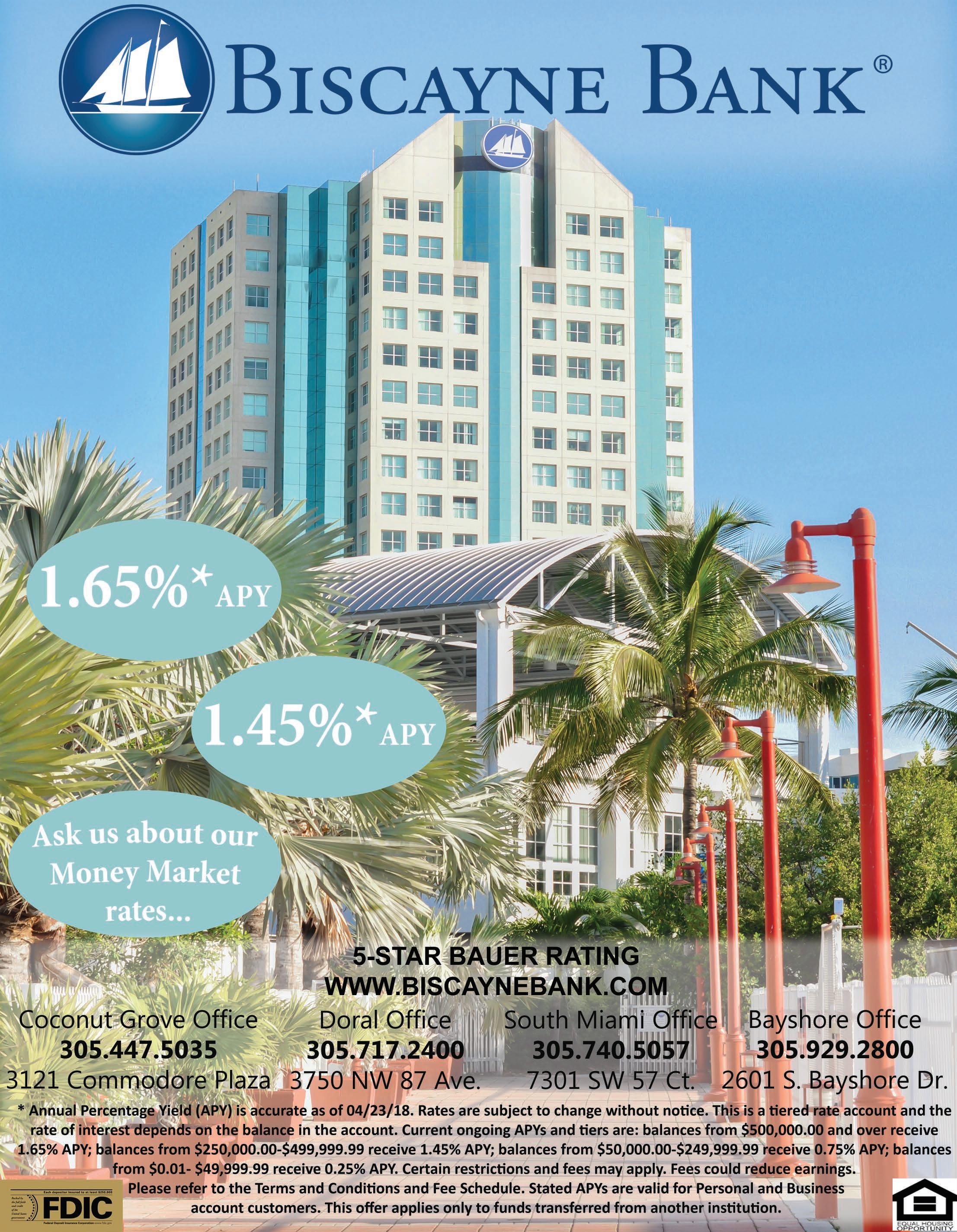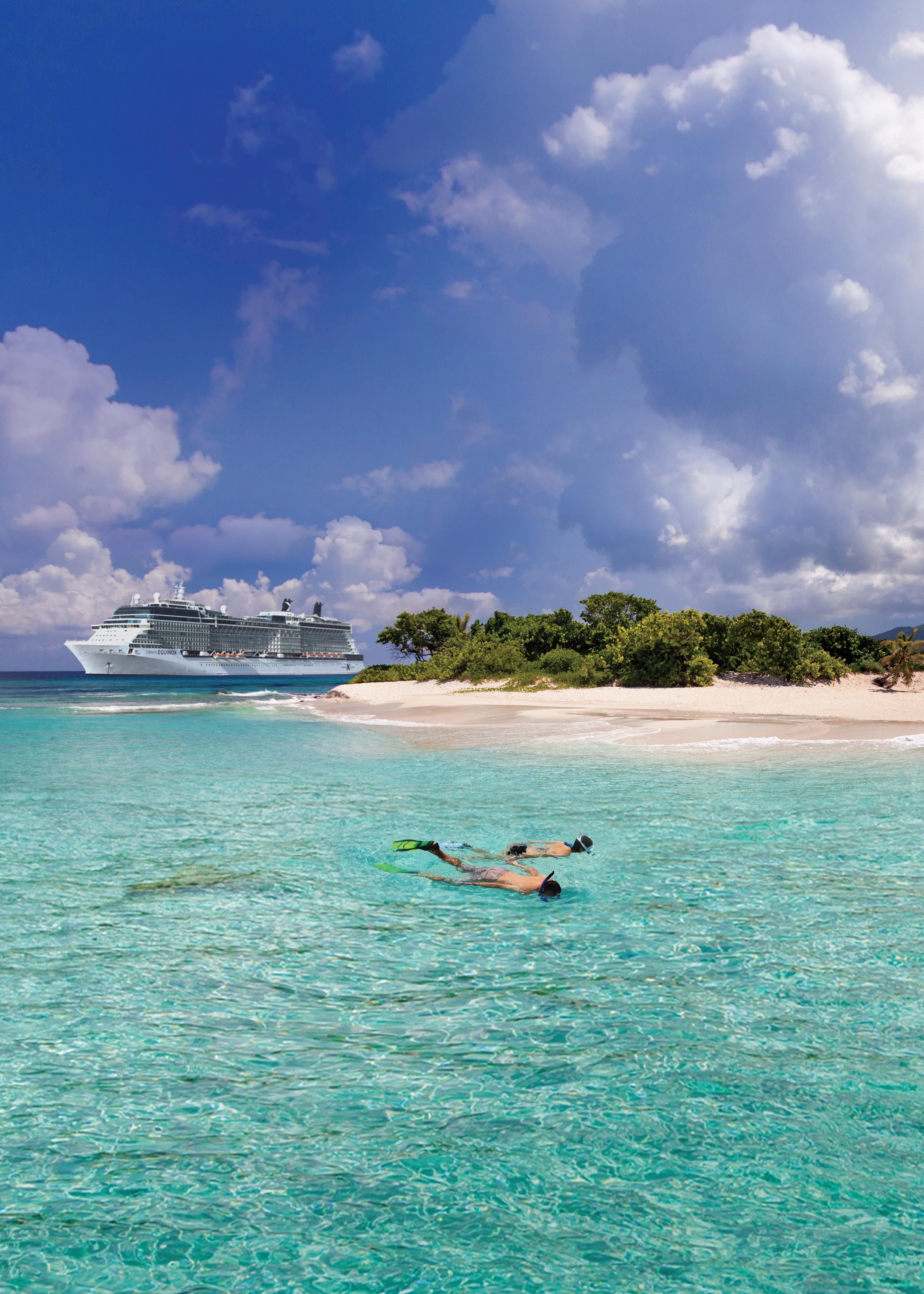Artists Hood
in the
ARTISTS WHO LIVE AND WORK IN THE CITY BEAUTIFUL

LIVING BEAUTIFUL
Offering a rich union of English and Spanish architecture with the soul of a European resort, The Ponce is simple and timeless. With its ideal location on one of Coral Gables’ main thoroughfares and walking distance to Merrick Park as well as Miracle Mile, residents of The Ponce can also enjoy trolley rides through the bustling business district of The City Beautiful.
With its historic and Caribbean aesthetics, The Ponce offers a modern twist to living in the city’s finest enclave
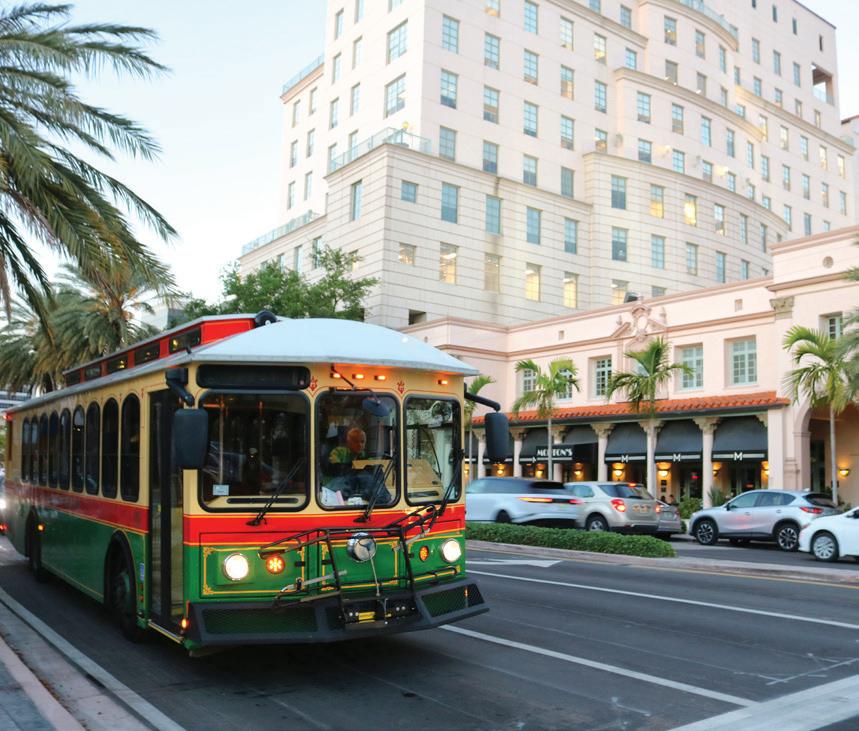


 PHOTO COURTESY: BID OF CORAL GABLES
ARTIST CONCEPTUAL RENDERING
PHOTO COURTESY: BID OF CORAL GABLES
ARTIST CONCEPTUAL RENDERING


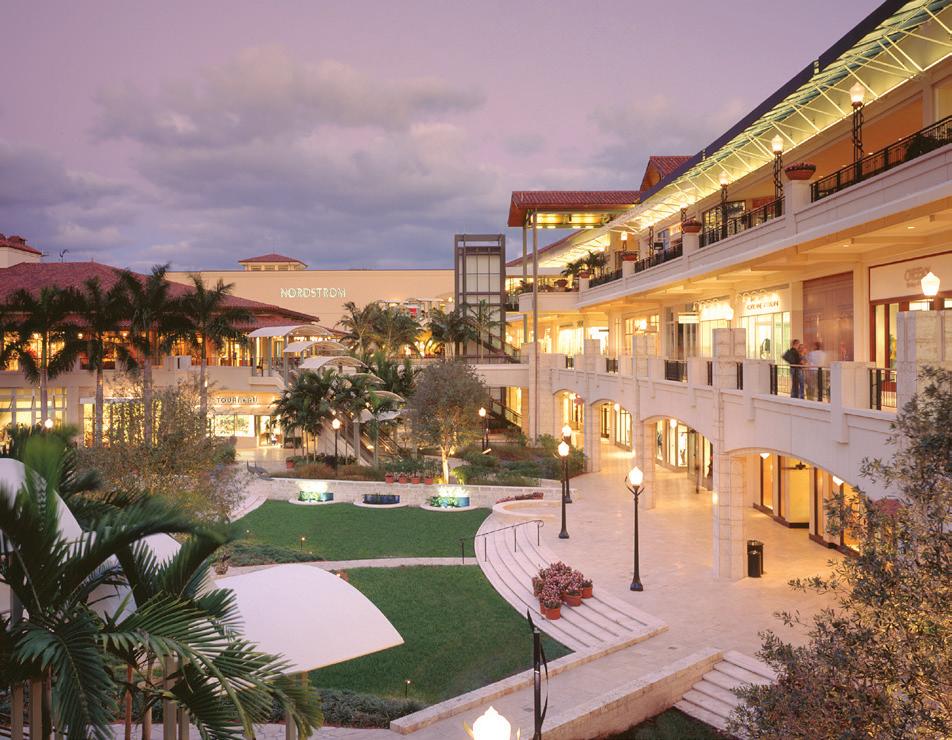
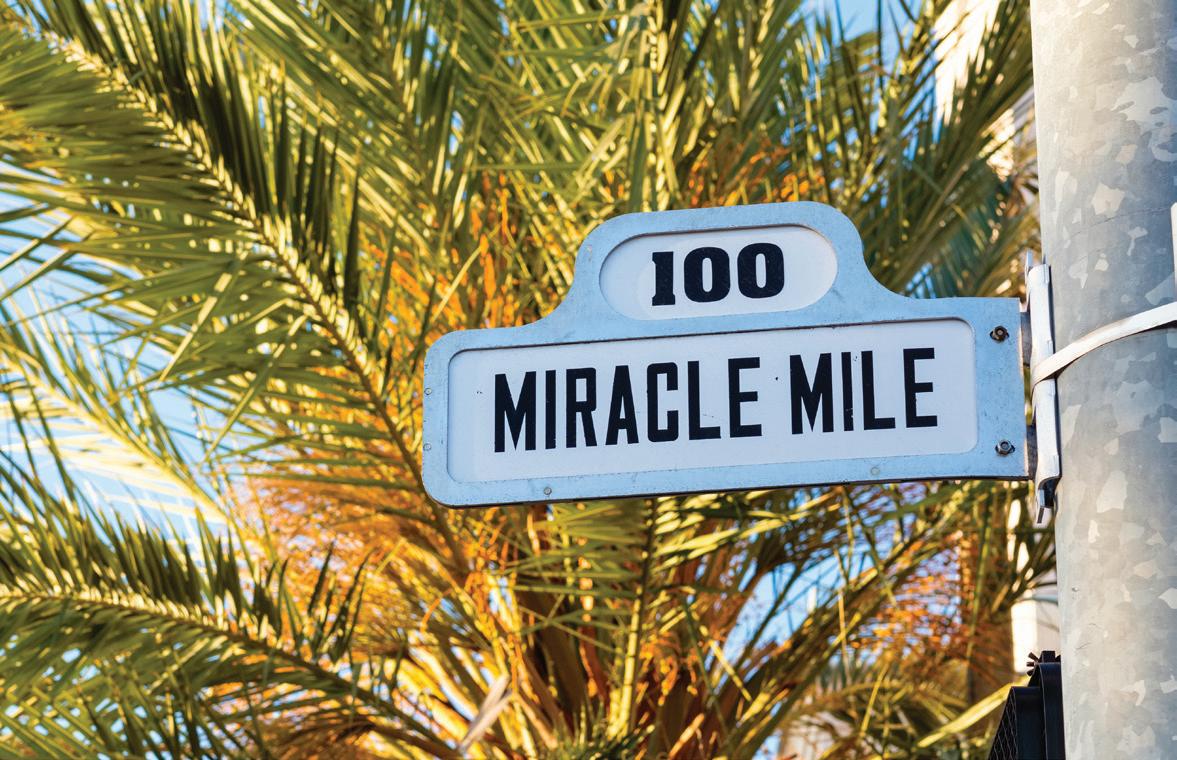



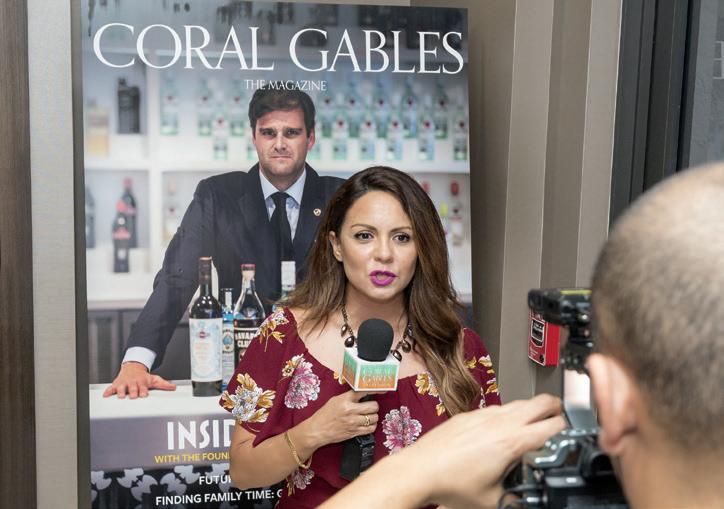

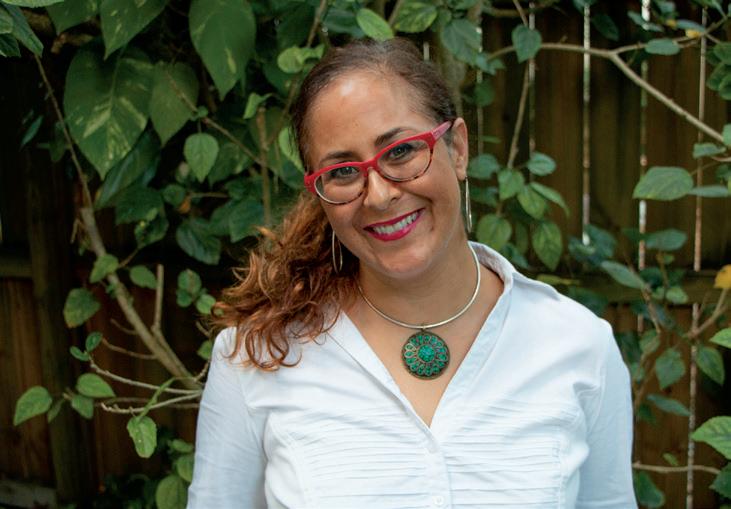
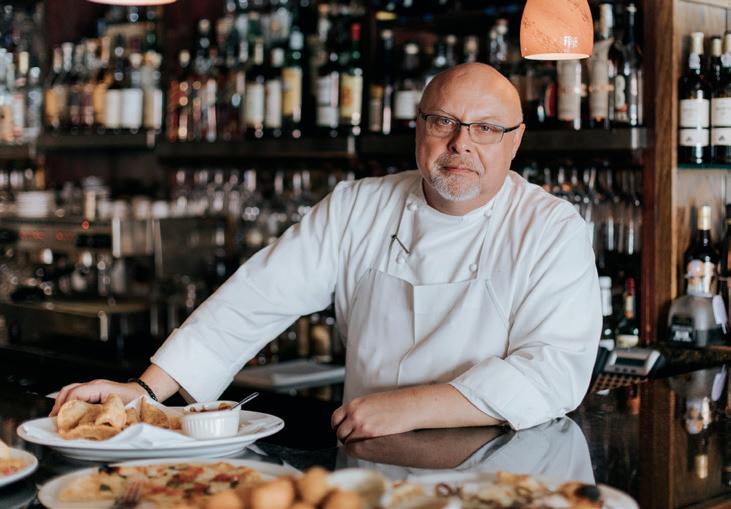
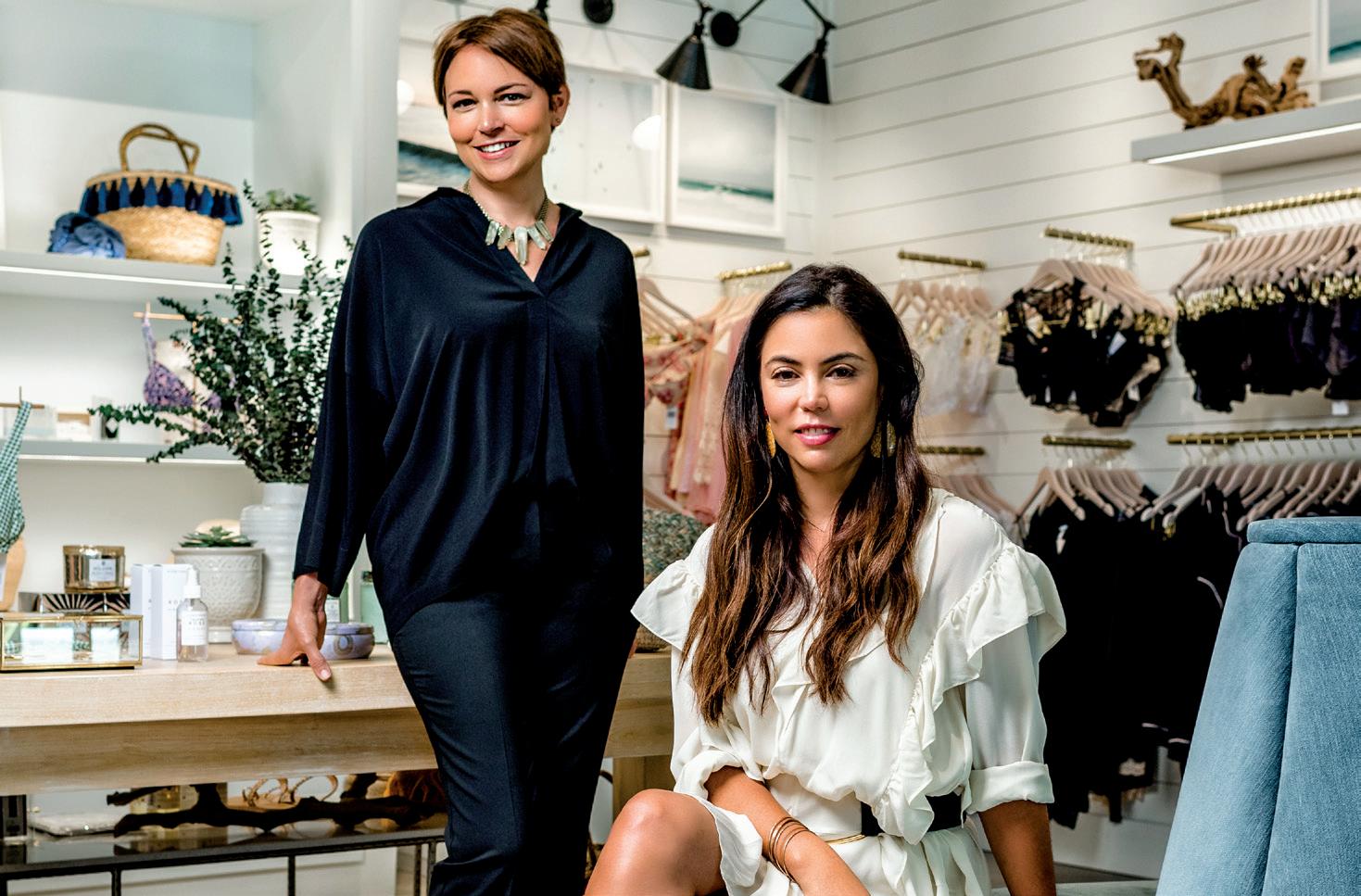
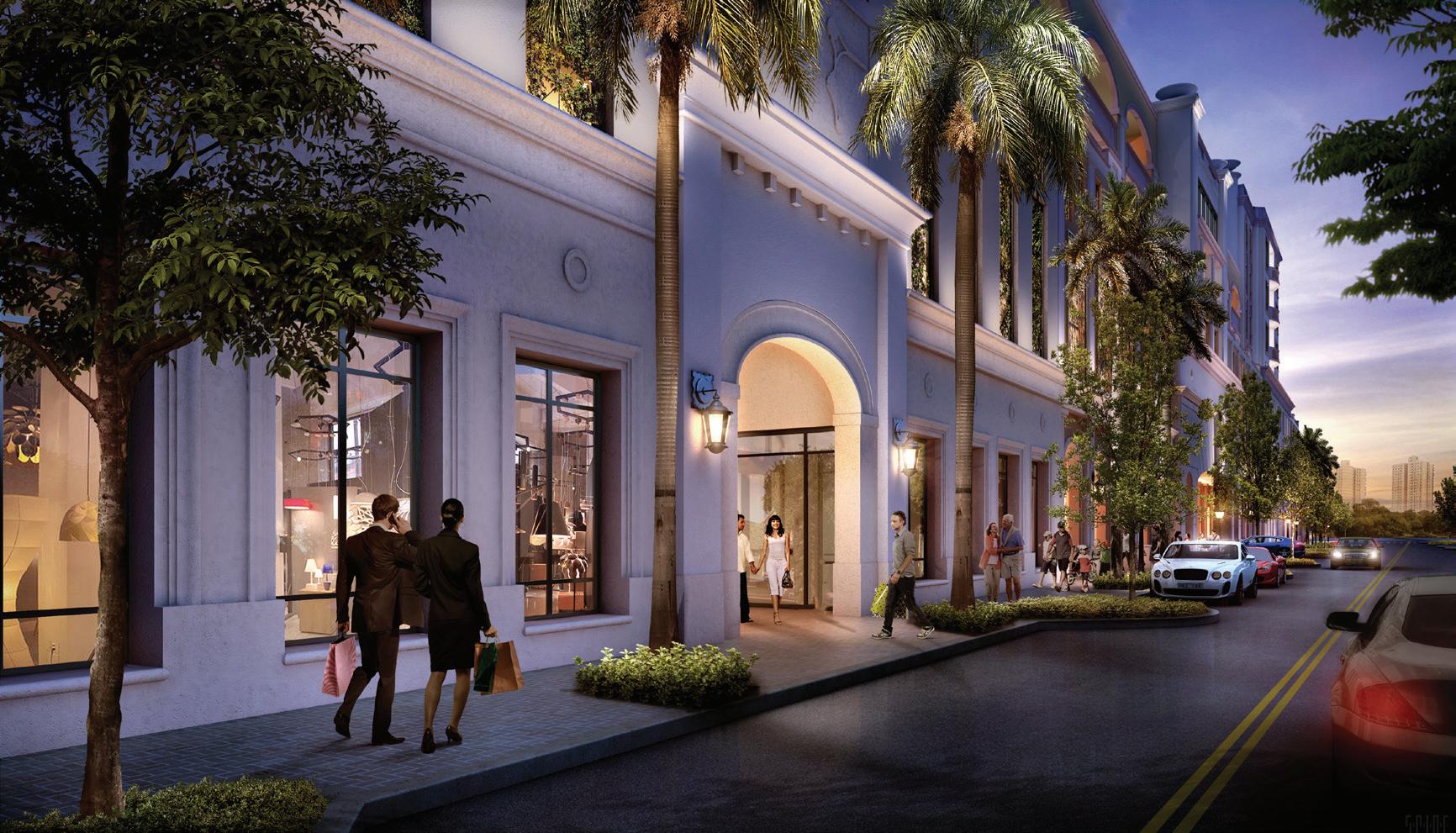
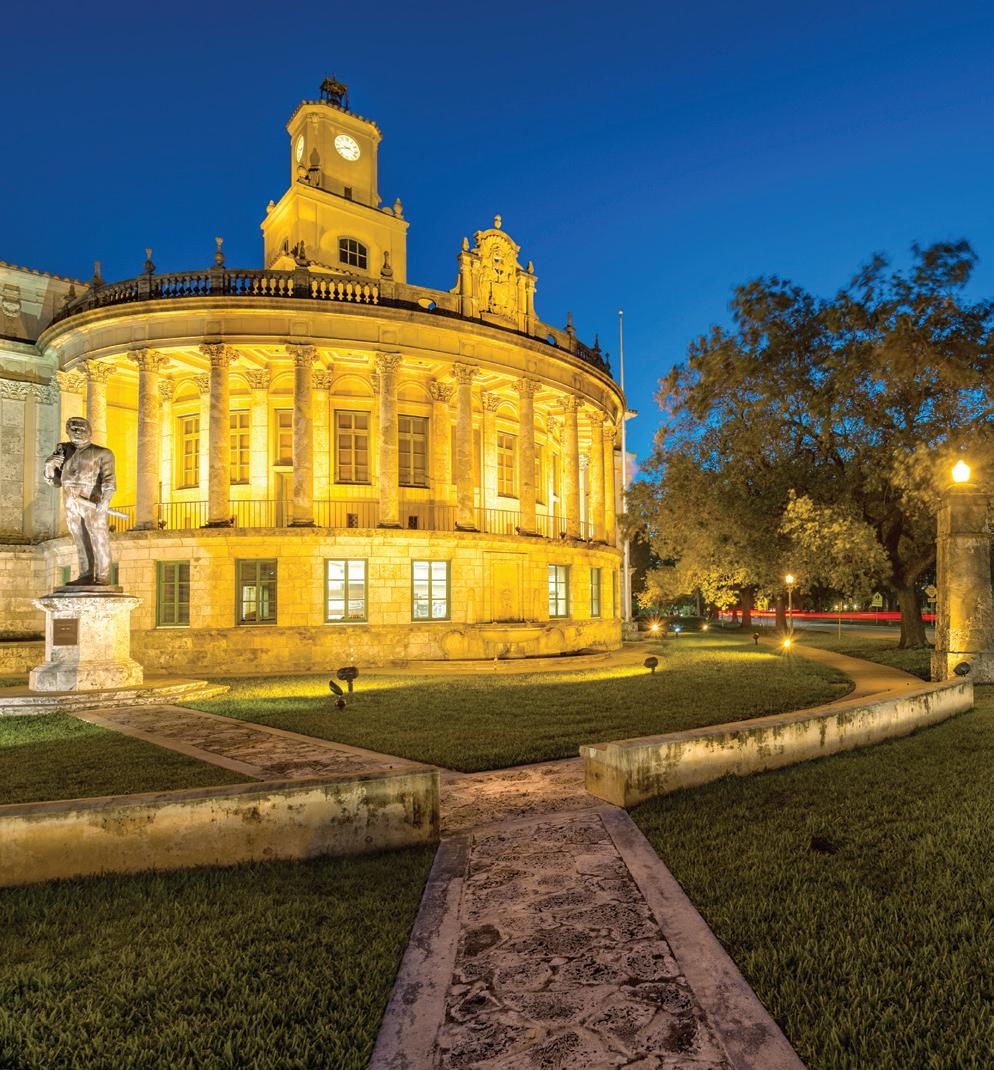
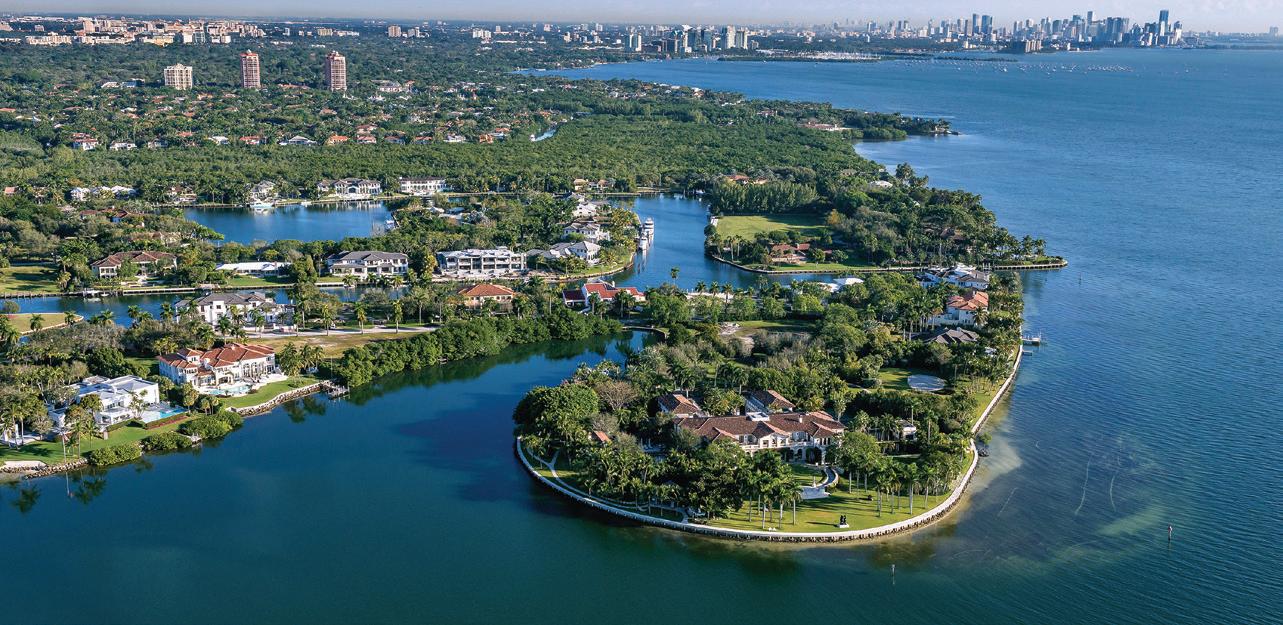
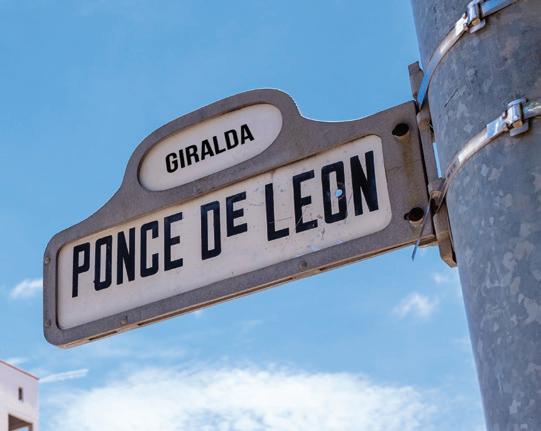
A Portrait of theArtist as a Gables Resident
Coral Gables is known for its art galleries, but what about its artists? In this feature, we profile four visual artists who live and work in the city and have been featured in its galleries, gardens, universities or private collections.
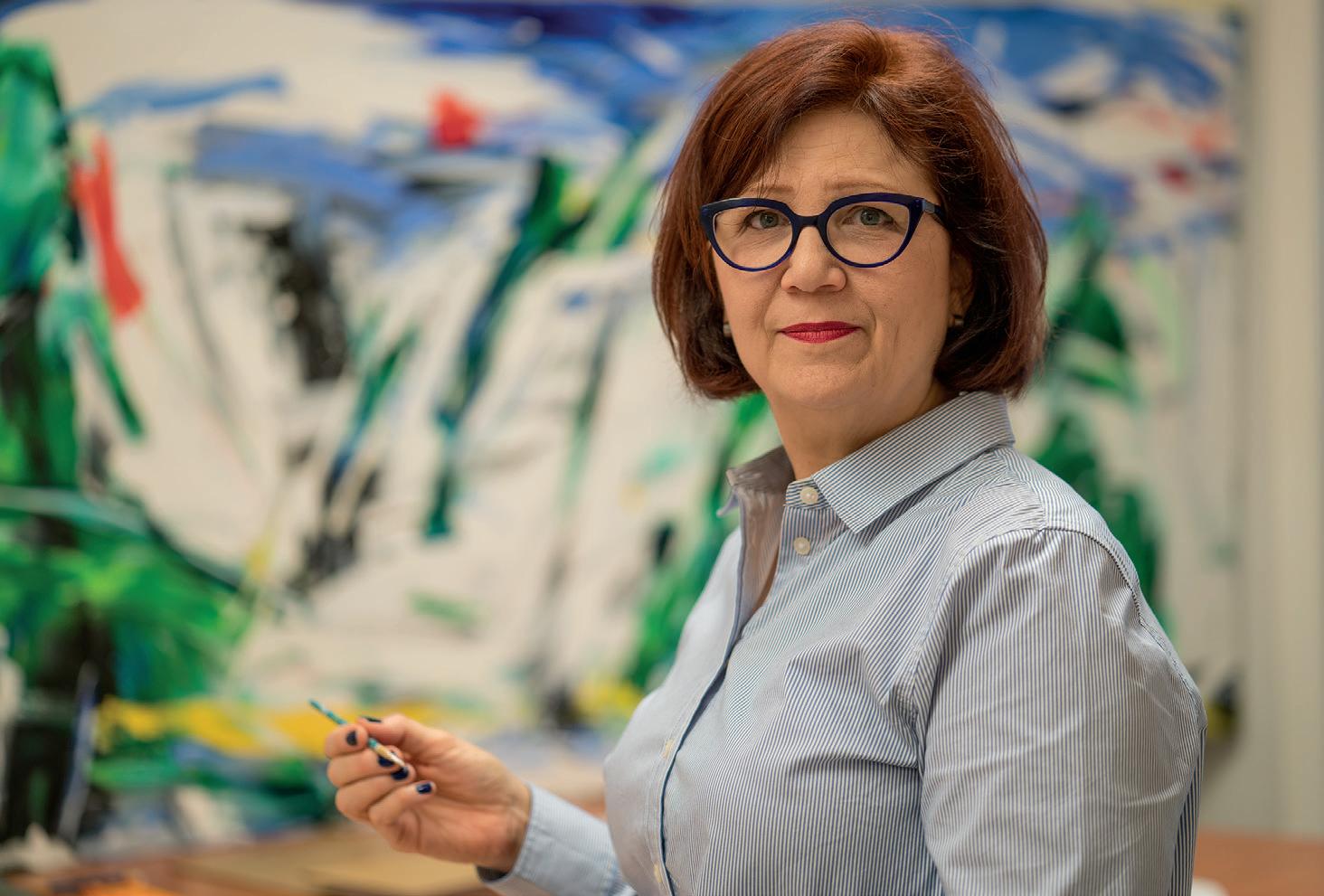
52
Confessions of an Urbanist
If its scaled down and appropriate for the Gables, there is a good chance that Venny Torre’s firm is building it. The rest of the time, Venny is busy enhancing the city as a model for new urbanism.
Historical Showcase
The Coral Gable-based Junior League of Miami pulled out all the design stops in their recent display of interior makeovers of the Deering Estate, the former 1920s mansion of industrial titan Charles Deering
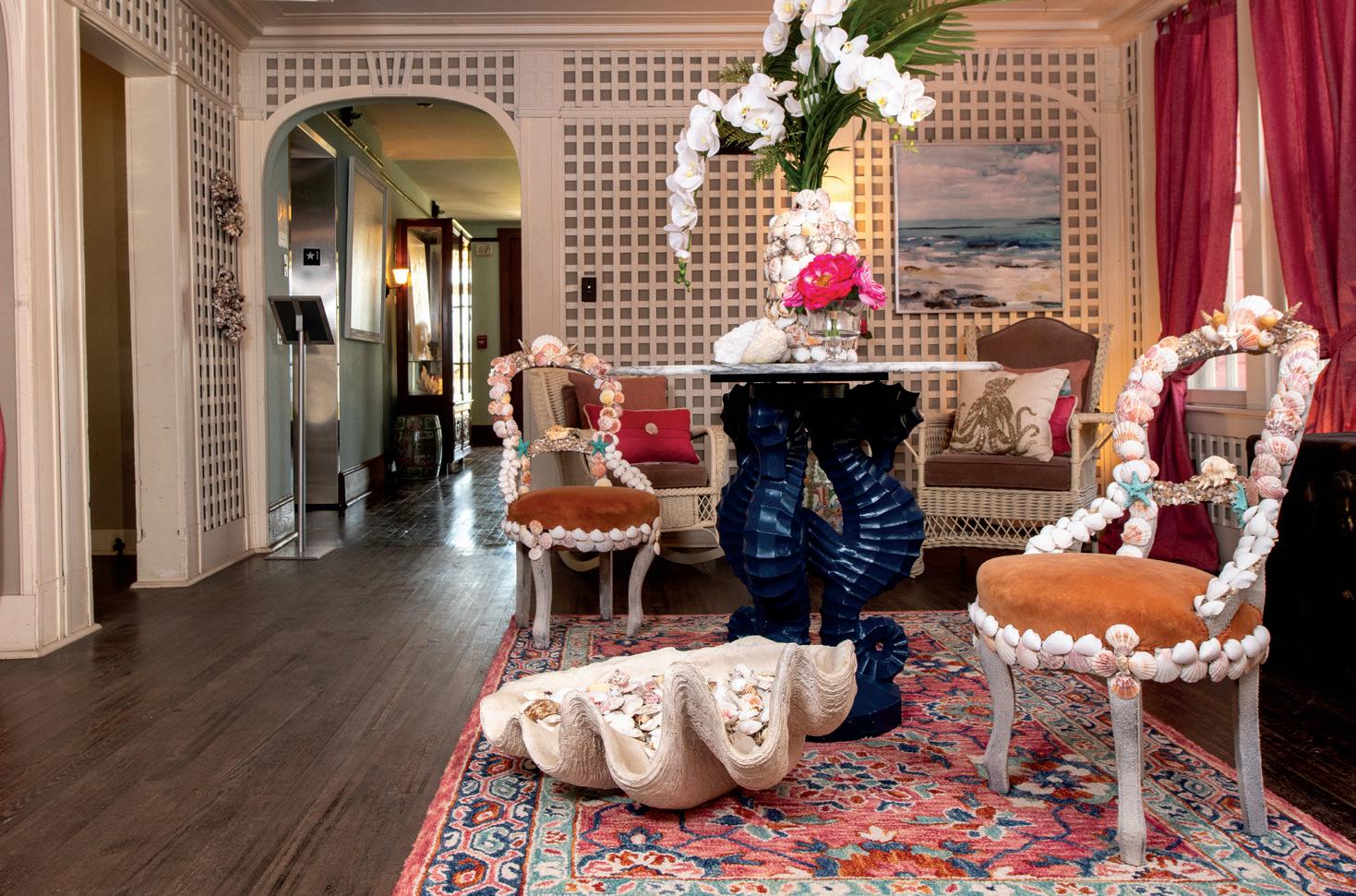
There’s something fresh happening downtown. Before, you saw more suits. Now, you see all ages...
Patricia Van Dalen, Coral Gables Artist

Too High Tech?
In our first issue, we ran a story called “Eye See You,” about the city’s new surveillance cameras that are designed to reduce crime. Some of these cameras are mobile, powered by solar panels, and placed in areas of high crime – such as parking lots at fast food restaurants where there have been frequent break-ins. The result is a drop off in crime.
Other cameras installed by the city are what’s called “license plate readers,” and have been placed at the intersections where major roadways enter the Gables. These cameras create what the city calls its ‘Geo Fence,’ designed to monitor every car that enters and leaves the city. The idea again is to reduce crime by surveillance, both as a deterrent and a way to track down suspects after the fact.
After we published the story the Miami Herald picked up on it and ran a front-page article about how Coral Gables was headed in the direction of Big Brother, that the license plate system allowed the city to track the movements of every citizen from the moment they drove out of their driveways to the moment they returned. They got various people from civil liberty groups to chime in about this threat.
First, that is not true. Those license plate readers don’t follow you home. But that misses the point. The fact is that you can’t have it both ways. If you want to have a door man at your condominium, watching people come and go for the sake of security, well then, they’re going to know when you come and go as well.
In a way, the Geo Fence is an attempt to make all of Coral Gables a gated community. It’s also part of an overall agenda to push Coral Gables into the 21st Century with innovative solutions to its problems.
In a subsequent issue, we will explore the city’s high tech agenda in depth. But for now, even in this issue, it’s hard to avoid, from Fairchild’s space gardens program to UM’s use of robots to teach health care to aspiring nurses to one Coral Gables high school student’s experiment in cyber-currency ‘mining.’
Coral Gables is both steeped in its rich past and determined to become a city of the future. Whenever that kind of evolution takes place, there is bound to be some friction. Just keep in mind that new technology is not inherently nefarious.
On the cover: A
PUBLISHER
Richard Roffman
EDITOR IN CHIEF
J.P.Faber
DIRECTOR OF OPERATIONS
Monica Del Carpio-Raucci
ART DIRECTOR
Jon Braeley
PRODUCTION MANAGER
Toni Kirkland
VP SALES DIRECTOR
Sherry Adams
SALES EXECUTIVE
Gloria Glanz
SENIOR WRITER
Doreen Hemlock
STAFF WRITER
Lizzie Wilcox
WRITERS
Mike Clary
Julienne Gage
Andrew Gayle
Kimberly Rodriguez
Kenneth Setzer
Kylie Wang Cyn Zarco
PHOTOGRAPHERS
Jonathan Dann
Nick Garcia
Robert Sullivan
SENIOR ADVISOR
Dennis Nason
CIRCULATION & DISTRIBUTION
CircIntel
J.P.Faber Editor in Chief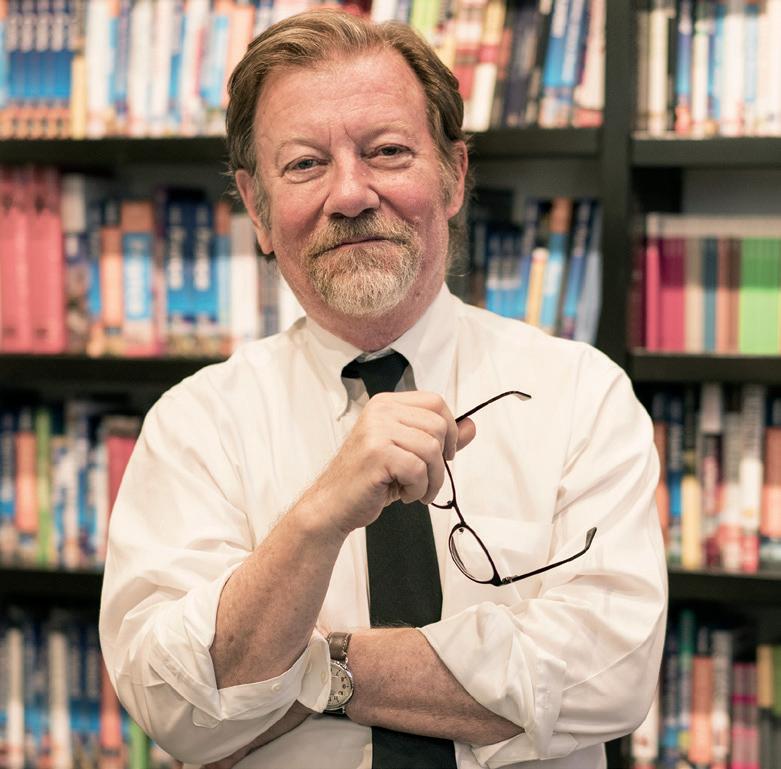

thecoralgablesmagazine.com
Coral Gables Magazine is published monthly by City Regional Media, 2051 SE Third St. Deerfield Beach, FL 33441. Telephone: (786) 206.8254. Copyright 2018 by City Regional Media. All rights reserved. Reproduction in whole or part of any text, photograph or illustration without prior written permission from the publisher is strictly prohibited. Send address changes to City Regional Media, 2051 SE Third St. Deerfield Beach, FL 33441. General mailbox email and letters to editor@thecoralgablesmagazine.com. BPA International Membership applied for March 2018. thecoralgablesmagazine.com
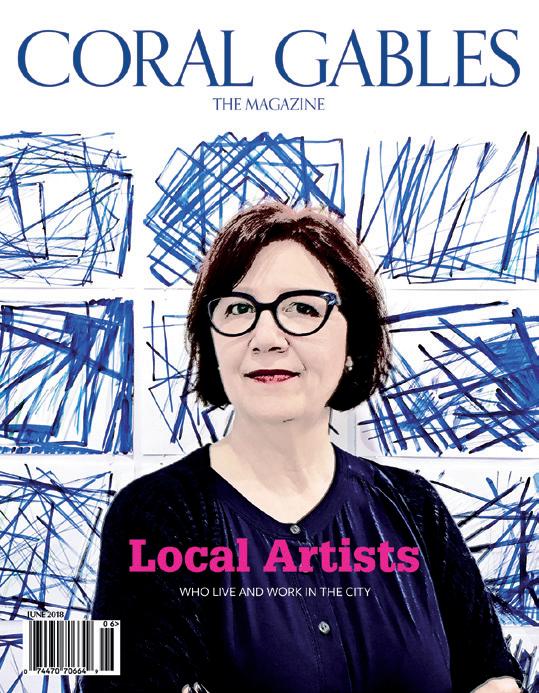
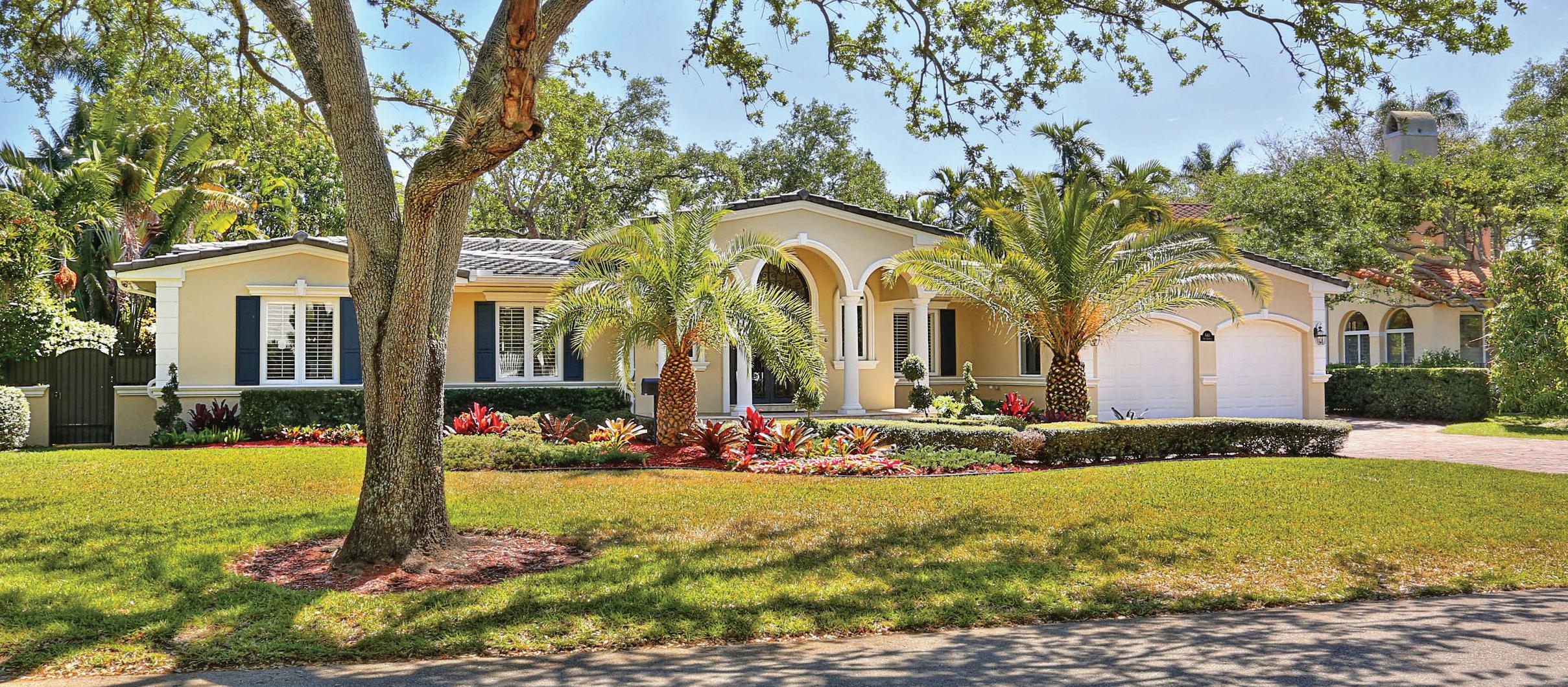
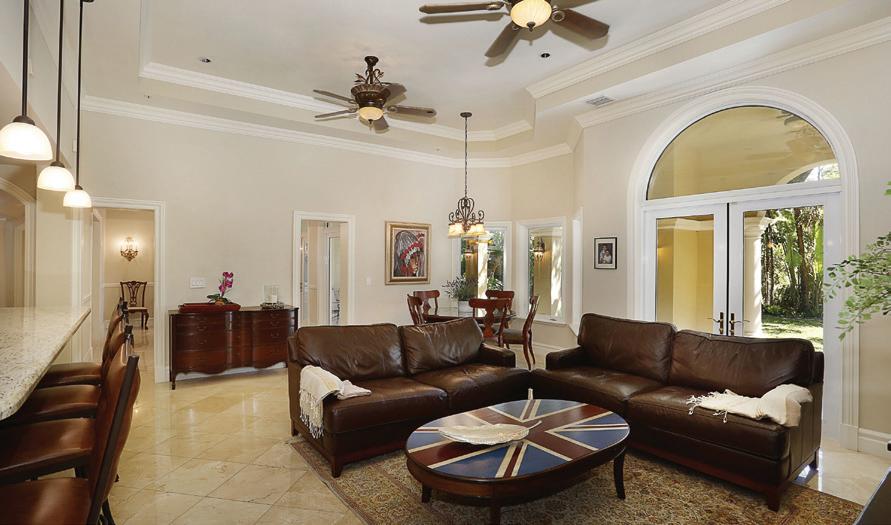
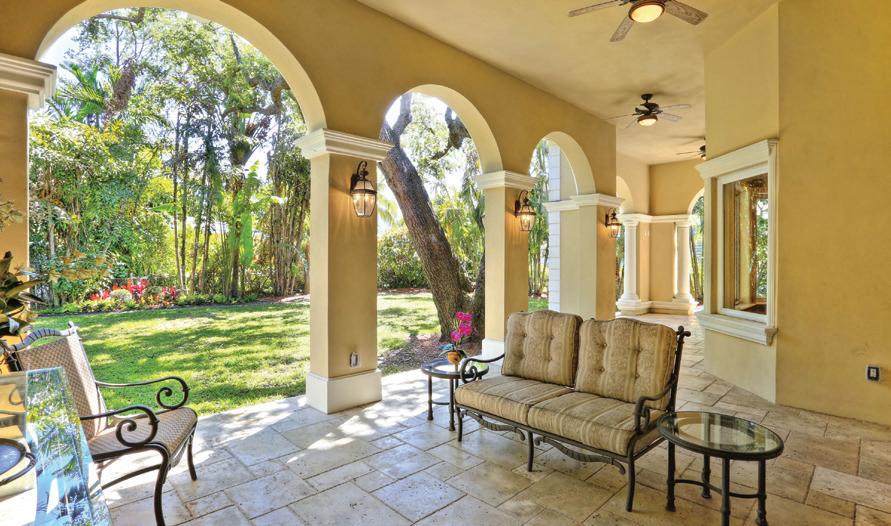
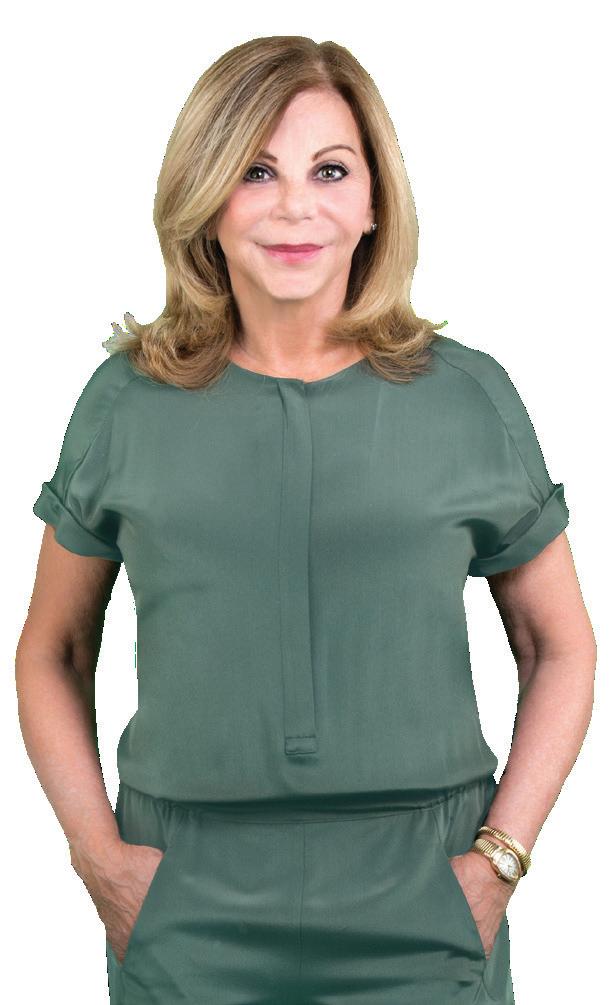
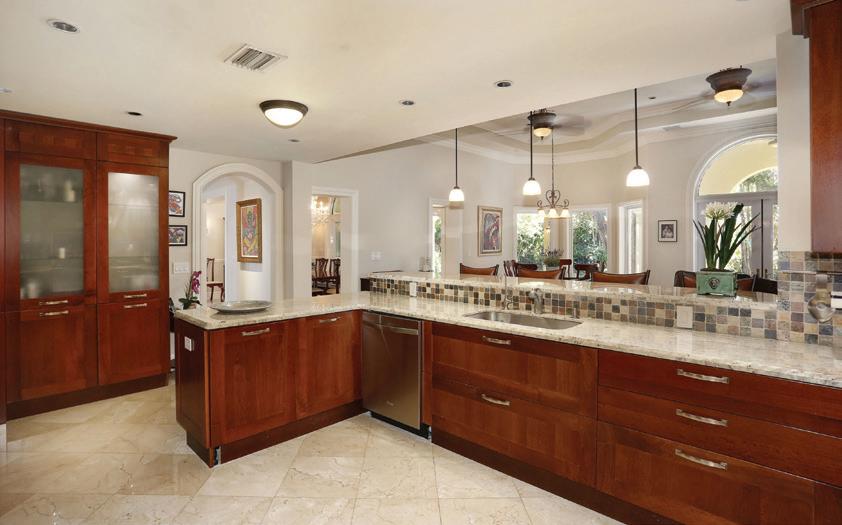
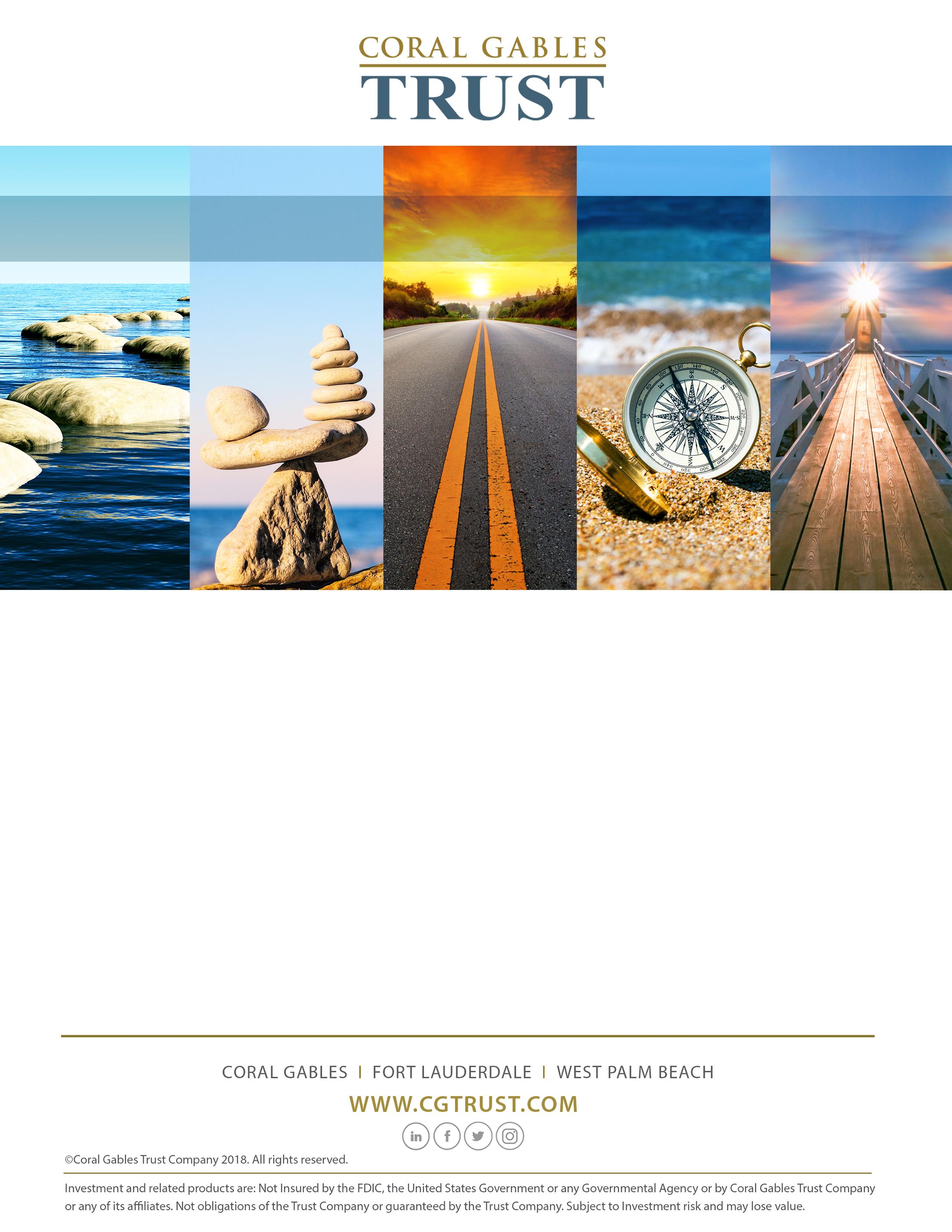


Streetwise
What Does it Take to Create a park?
Powering Puerto Rico Space Plants Bitcoin Boy Genius
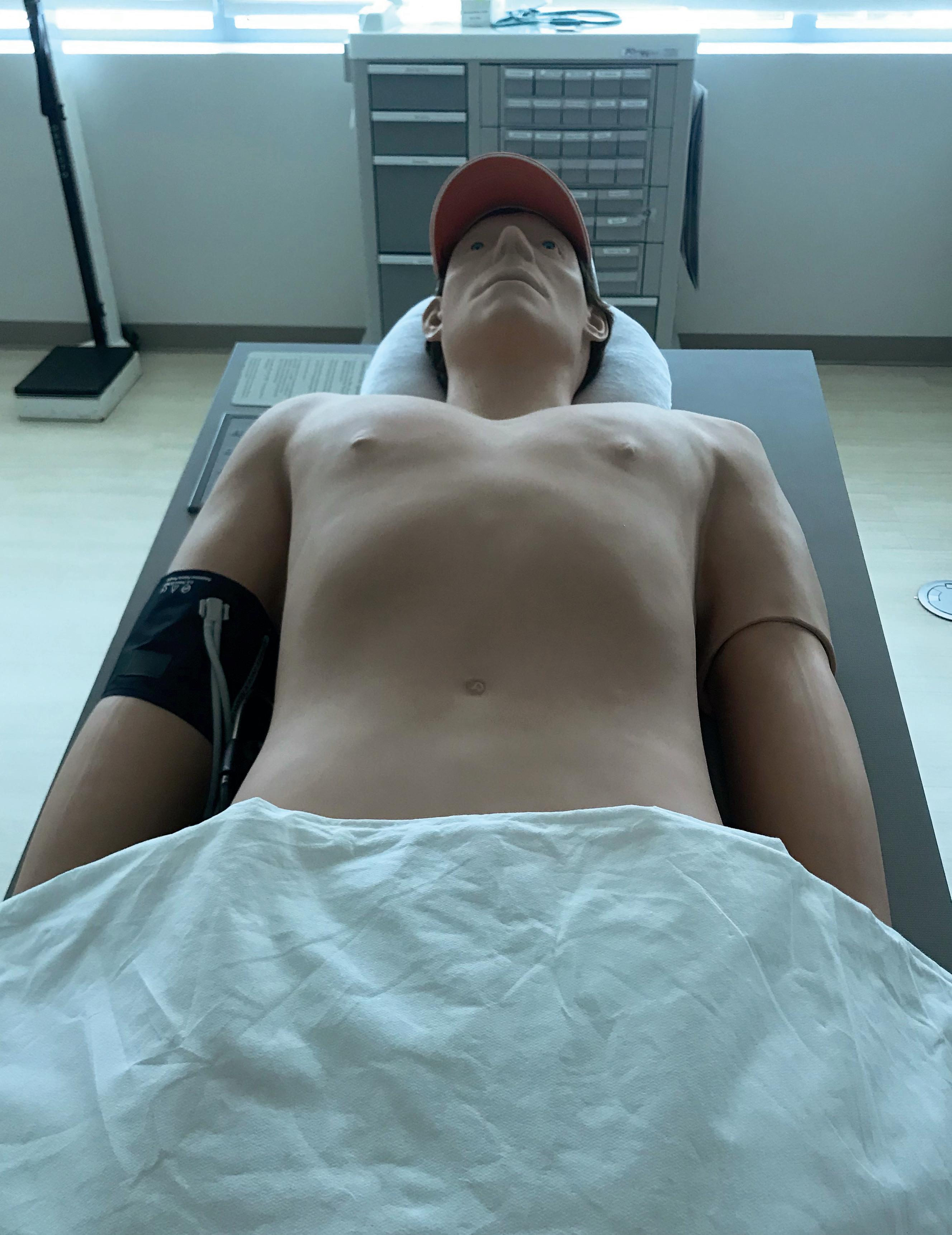
Powering Puerto Rico
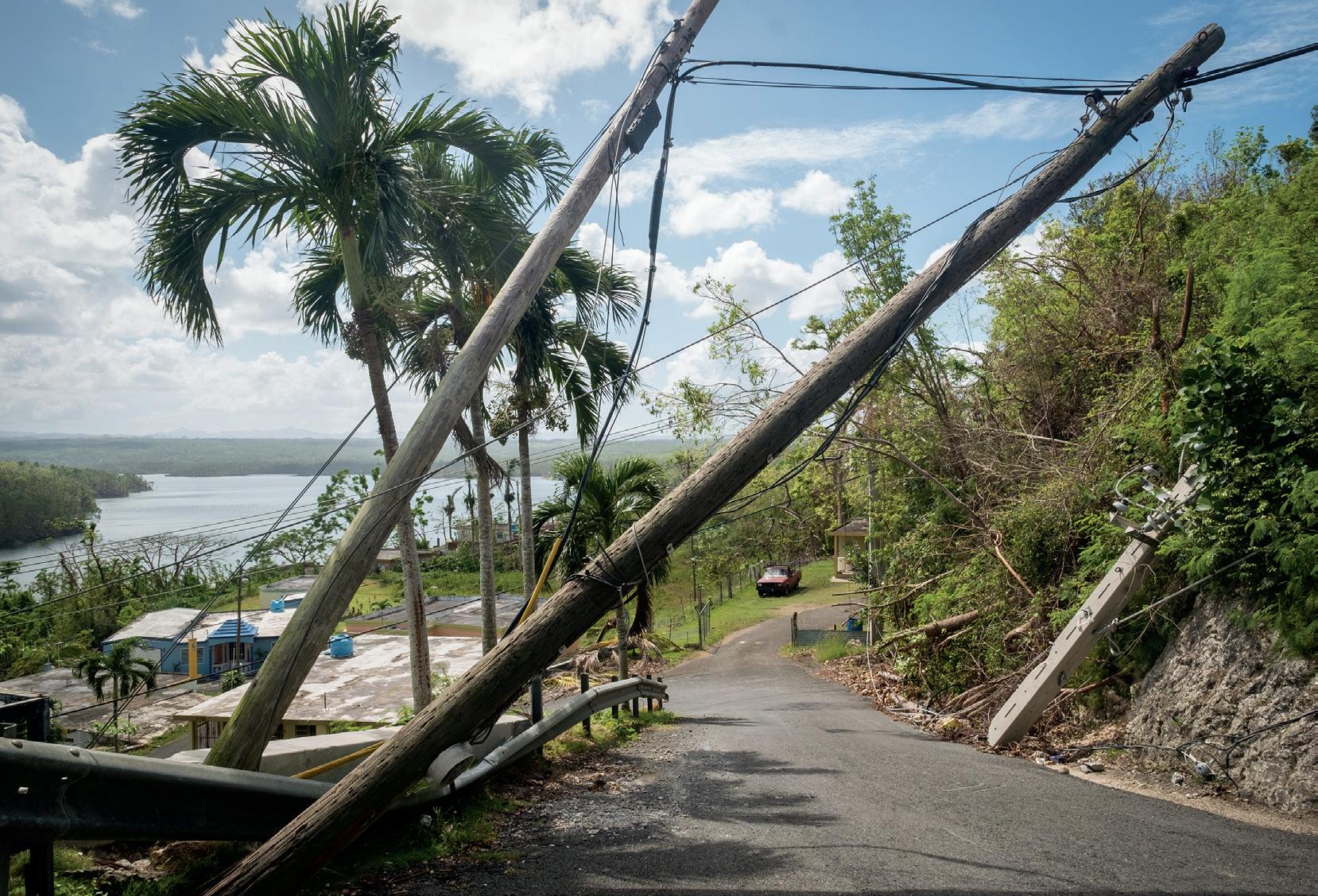
If you want to find a company to rebuild an electrical grid demolished by a hurricane, then go to a city where they have experience with hurricanes. And that would be Coral Gables. MasTec, Inc., the Gables-based infrastructure powerhouse (2017 revenue: $6 billion) was just awarded a $500 million contract to complete the repair and restoration of Puerto Rico’s mangled electrical grid, taken down by Hurricane Maria last year.
CEO José Mas said in a press release that MasTec has been “proudly performing services in Puerto Rico for over 50 years” so is familiar with the island. MasTec recently became the first company created by a Cuban American (Jorge Mas Canosa) to make it to the Fortune 500 list of top publicly traded companies in the U.S., ranking at 428.
Space Plants
Okay, so we don’t have the zero gravity of a spaceship. But that didn’t stop Fairchild Tropical Botanic Gardens from coming to the aid of NASA by drafting students from 120 Miami-Dade schools to test possible food plants for deep space.
The program, which has expanded to include another 30 schools in Broward and Palm Beach counties, Ohio and Puerto Rico, has now tried 106 veggies. Of those, four are currently being tested at the Kennedy Space Center, all varieties of Chinese cabbage and Japanese mustard greens.
“It’s citizen science, but it’s citizen science at its best because the kids actually see their work come to fruition,” says Fairchild’s education
director Amy Padolf. The criterion for the plants was straightforward. They must produce a “large amount of edible biomass,” grow with low resources (limited lighting and water), and have a high vitamin content, including vitamin K, which preserves bone density. The plants must also be stress resistant – perfect for students who don’t always water on time.
The next step is for Gables-based Fairchild is to use a new $750,000 grant from NASA to create a public space at the gardens where the community can view the project and help with the study.
Top right: Teachers learn how to set up mini botany labs
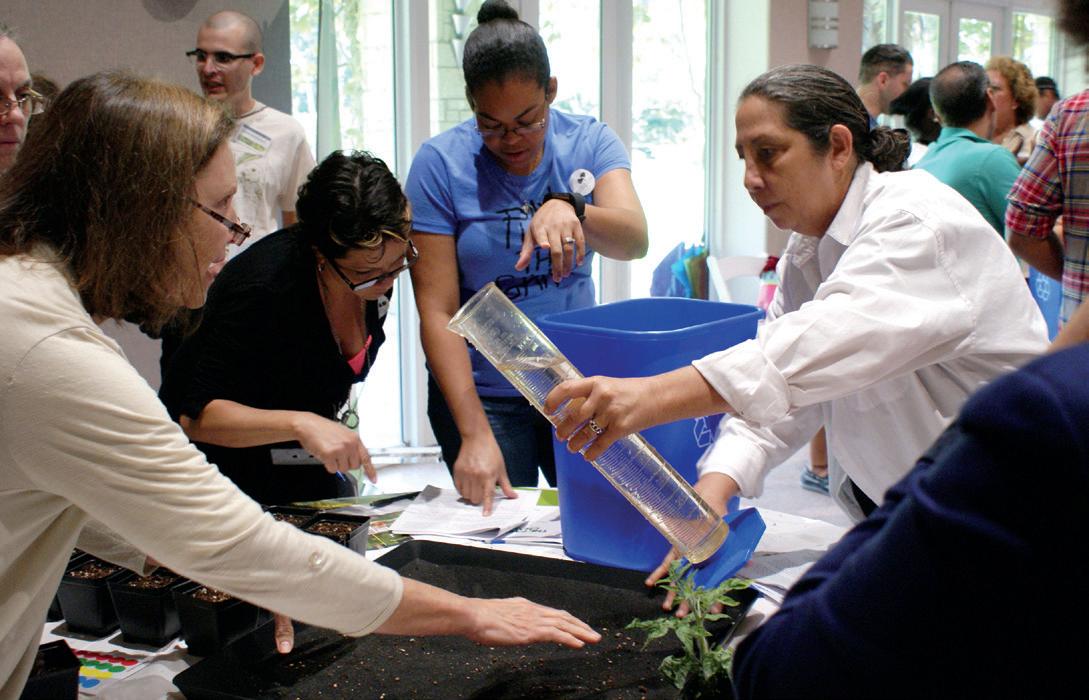
Bottom right: Students dialogue with astronauts earlier this year
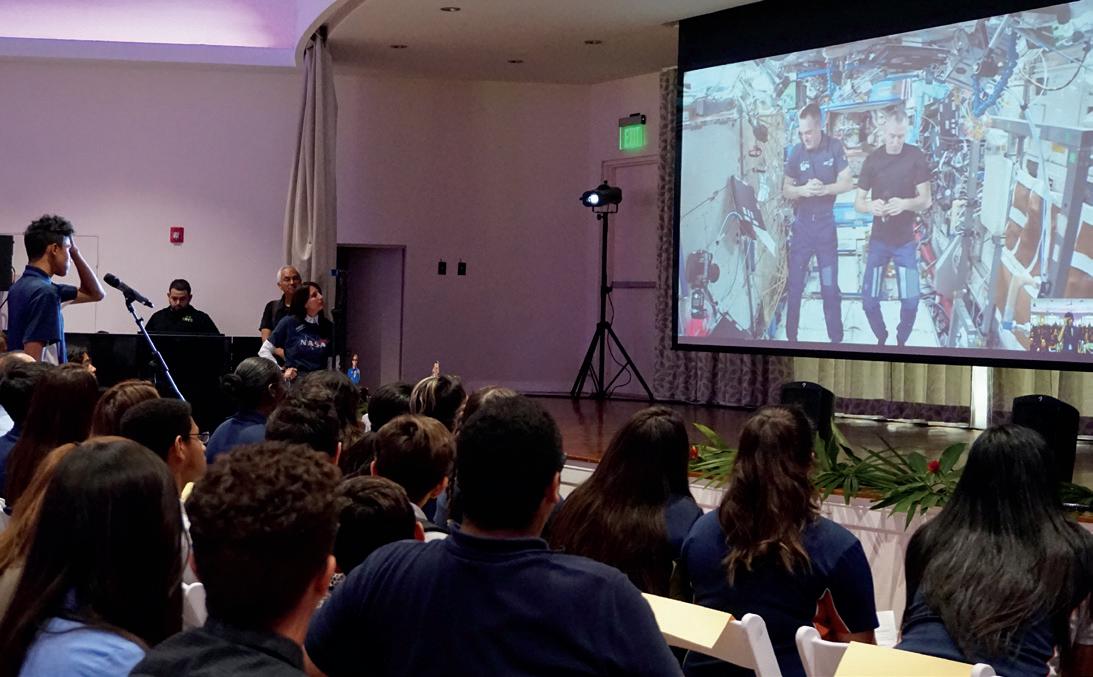





A Building Only a Mother Could Love
Brutalism is a style of architecture that flourished in the 1970s and then died, for obvious reasons. The term originates from the French phrase béton brut that means raw concrete, but has become synonymous with ugly: raw walls, few windows. Coral Gables possesses but one example of this style, the police and fire
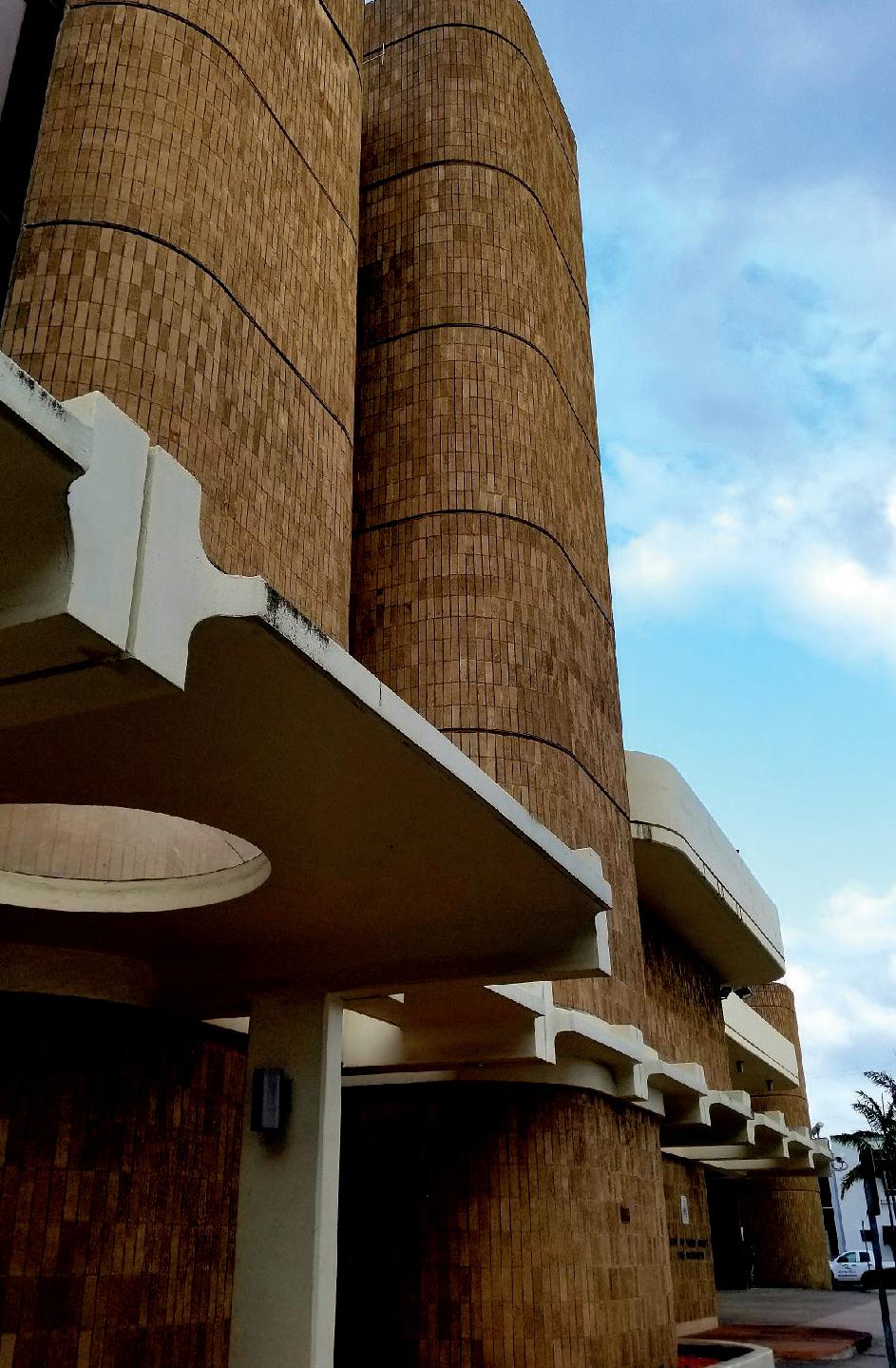
building at 2801 Salzedo St., built in 1973. Gables-based real estate development firm Codina Partners will take over the building after swapping land with the city, with plans to demolish it once the city relocates its public safety offices to a new building. Or should it be saved? Beauty, as they say, is in the eye of the beholder.
Bitcoin Boy Genius
We’ll be the first to admit we have no idea what cryptocurrency is. But a 16-year-old at Coral Gables High School does. Richard Smithies just won $1,500 for his business idea, Helios Mining. The prize money comes from the Regional Youth Entrepreneurship Challenge of the national non-profit Network for Teaching Entrepreneurship. Helios Mining is a mining company for Bitcoin and other cryptocurrencies.
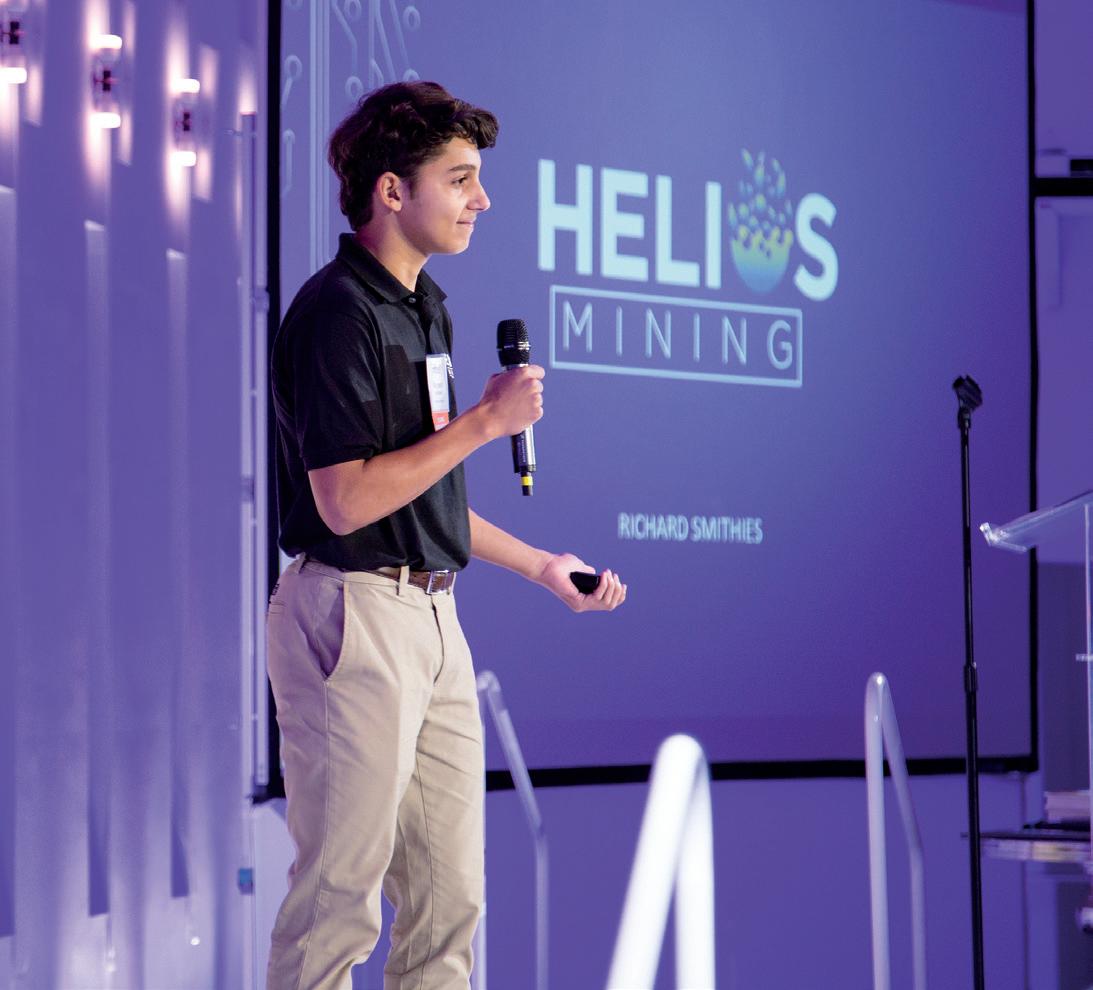
Jeannine Schloss, the Senior Director of NFTE, dumbed it down for us. Cryptocurrency
is sent from one person to another via the Internet. Along the way, the currency generates value, and the “miner” helps to buy and sell it. Smithies’ venture is called Helios Mining because the machine is powered by solar panels.
“For a 16-year-old to understand [cryptocurrency] is mind-blowing to me,” said Schloss. Also to us – especially how Smithies says his virtual mining company is already making $30 per day. This fall Smithies will compete with nine other regional winners for a $25,000 grand prize.
The French Connection
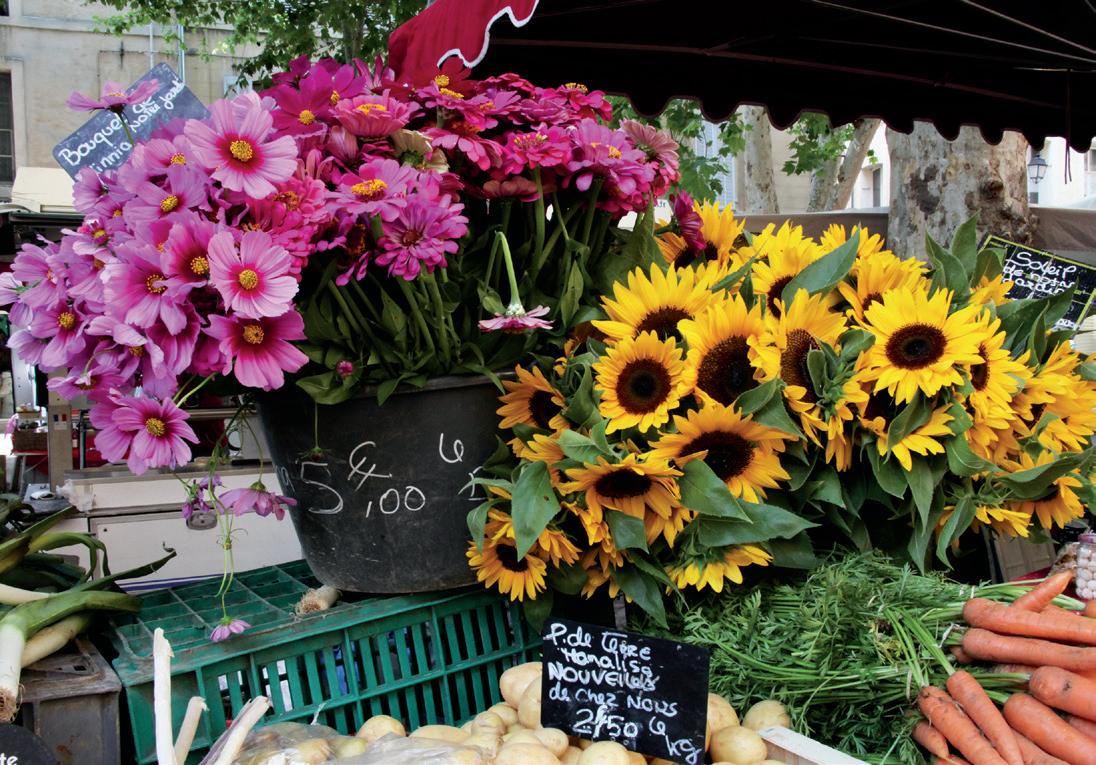
Call it an exercise in international relations. Last month Coral Gables photographer Alice Goldhagen held a special exhibition of her work at Sant’ana restaurant in St. Laurent du Var on the French Riviera. “I like to have interesting venues,” says the lifetime Gables resident, who recently wrapped up a year-long show at the Coral Gables Museum entitled “Coral Gables/Mediterranean Dreams.” Goldhagen
says she wanted to illustrate “how Coral Gables had been influenced by Italy and France.” Her show in France was put together by the editor of French culture magazine La Strada, Michel Sajn, who thought the images would act as a “bridge between the U.S. and France.” Coral Gables does have a sister city in France, Aix-enProvence, about 100 miles away (photo of its flower market, above, from her museum show).

Tech Med
UM’S NURSING HOSPITAL: ROBOTS WANTED
by Kylie WangUpon arrival at the University of Miami’s Nursing Simulation Hospital, one might think it’s an actual hospital on-campus, complete with operating rooms, birthing suites, and an ER. Student nurses in mint green scrubs hurry from room to room.
Upon closer inspection, the patients on the operating tables look curiously like realistic mannequins. And that is because they are.
“From the moment anyone walks through those doors, we want them to feel like they’ve already entered a hospital,” says Director of Simulation Hospital Special Programs Susana Barroso-Fernandez. “It’s our job to put [nursing students] in situations very similar to what they would be encountering in a hospital.”
The simulation hospital is populated by “simulators” that can do everything from breathe to sweat to cry. They range from babies to adults, female and male, of all different ethnicities – and all manifesting different illnesses. Controlled by operators in a separate room, they can even speak back to students.
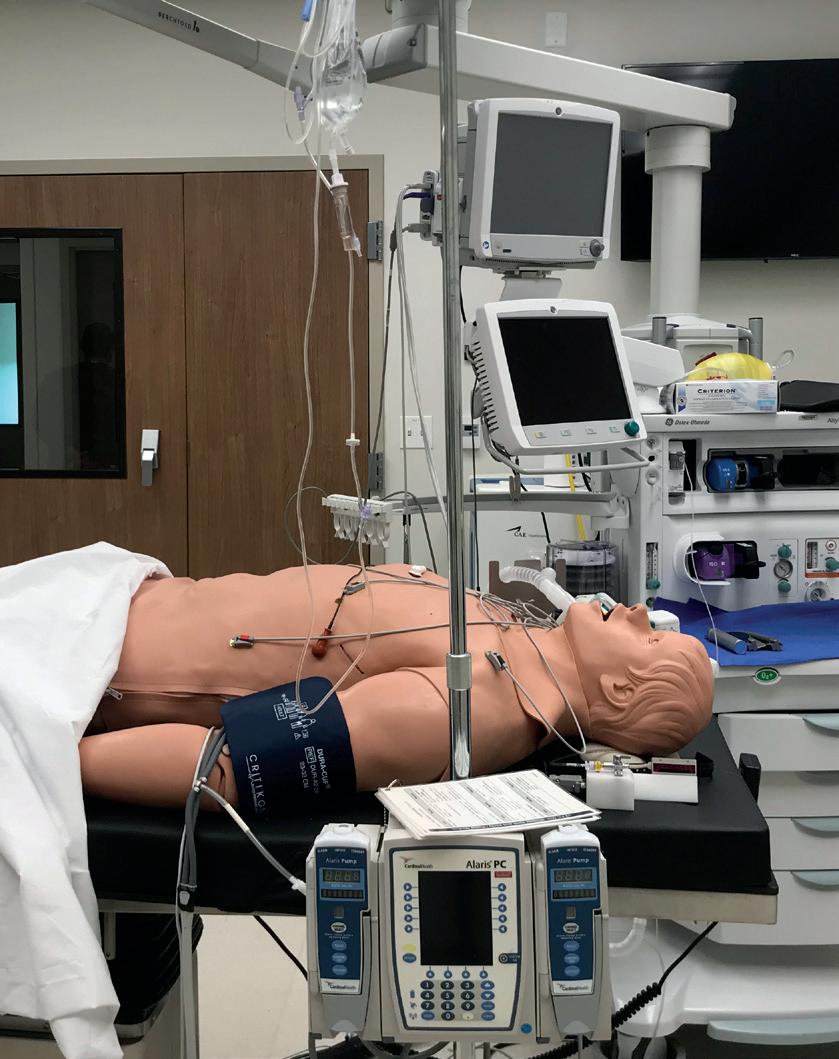
The idea for the hospital, which went “live” last fall, came from former Dean of the School of Nursing and Health Studies, Nilda Peragallo, who envisioned a “place where students could come and immerse themselves” in a realistic hospital setting, says Barroso-Fernandez. With robots that can complain, that sounds pretty close.
What: UM’s Nursing Simulation Hospital
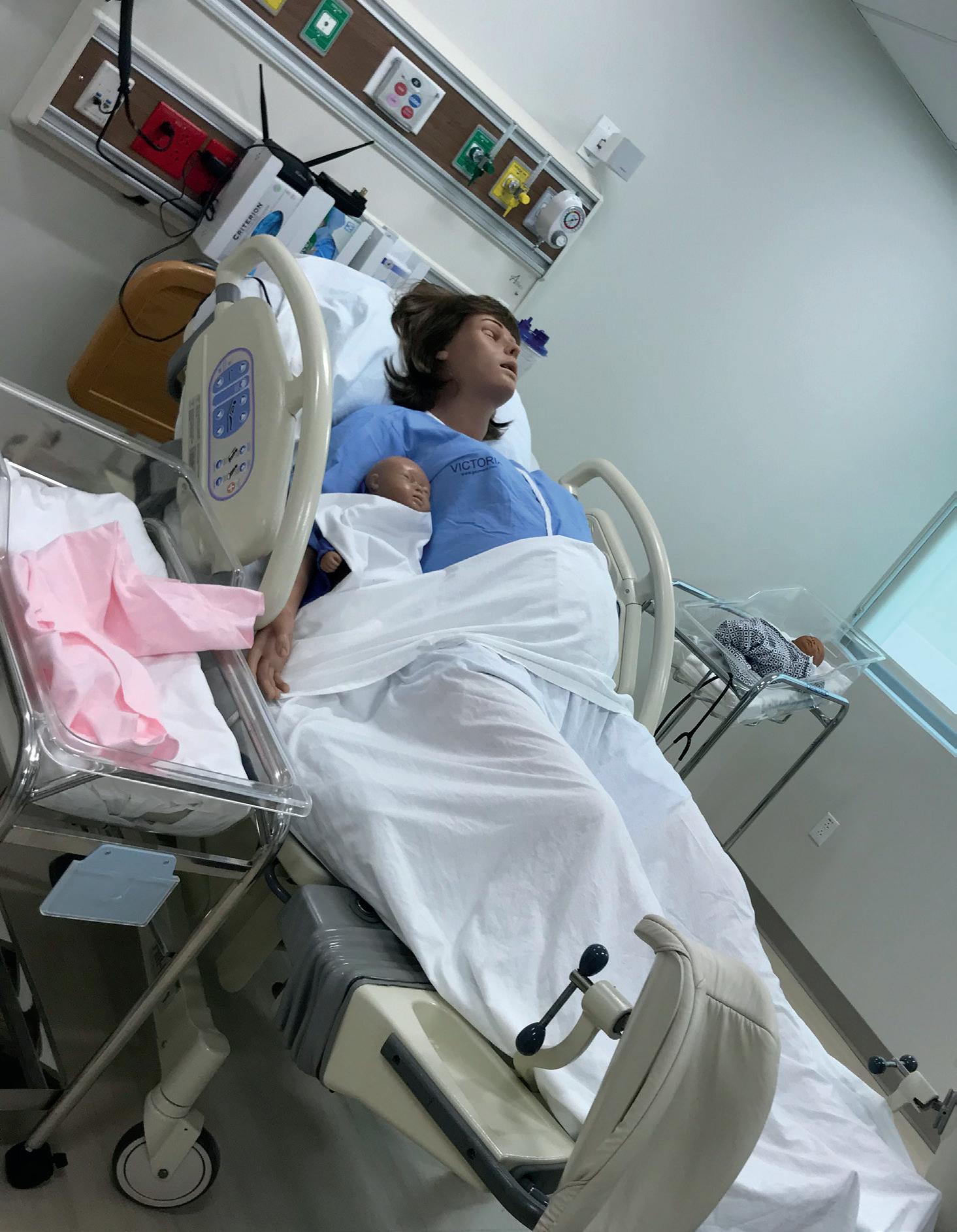
Where: UM Campus
Number of Floors: 6
Number of Robots: 40
Online Since: Fall 2017
NEW LISTING! South Miami

5990 SW 80 St. Rare-find one story, one year-new contemporary on oversized 17K plus sf. lot!
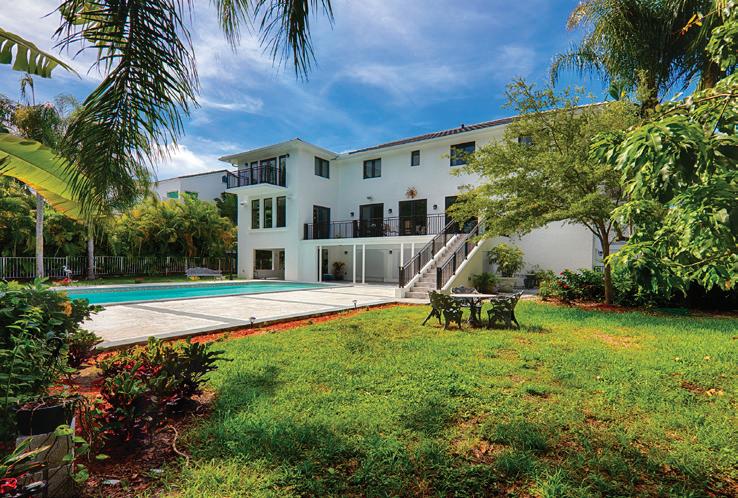

NEW LISTING! South Miami 7010 SW 71 Ct. Built to perfection! Great one story smart house. Impact windows and doors.
| 5,832 adj. sf. | 23,750 sf. lot | $2.285M
NEW PRICE! Cocoplum, Coral Gables
321 Costanera Rd. Contemporary home. Bright, open floor plan! Completely remodeled/expanded.
NEW LISTING! Cocoplum, Coral Gables
NEW
Cocoplum, Coral
NEW LISTING! Cocoplum, Coral Gables
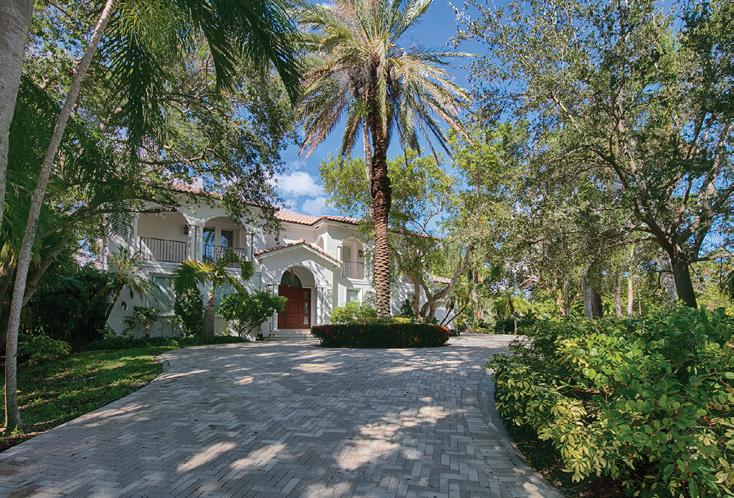
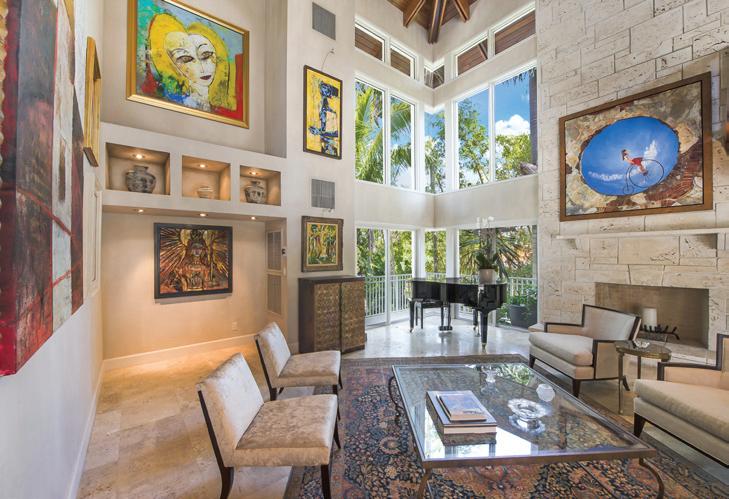
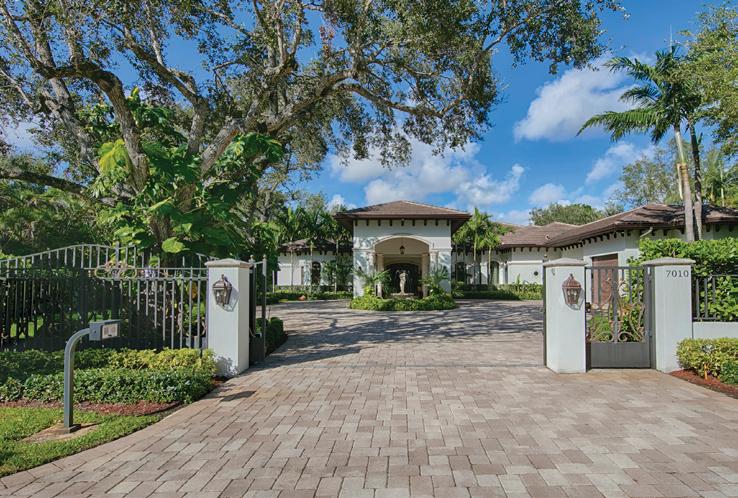
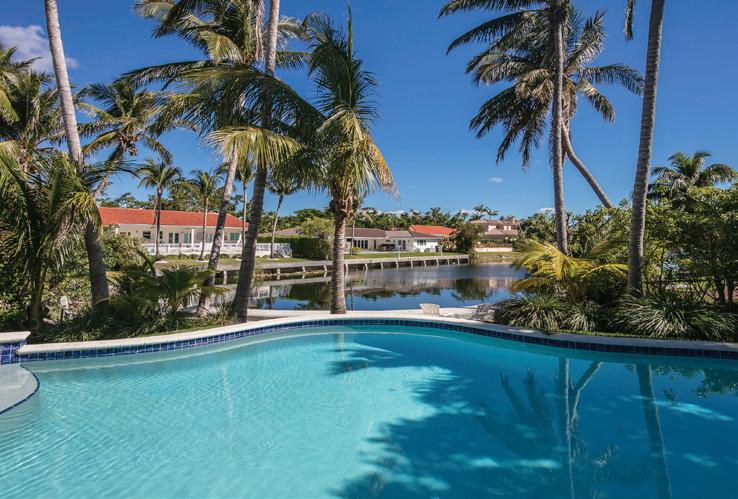
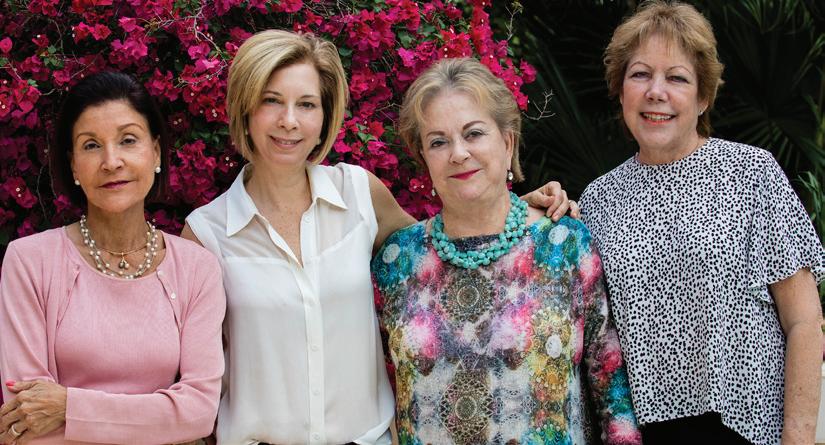
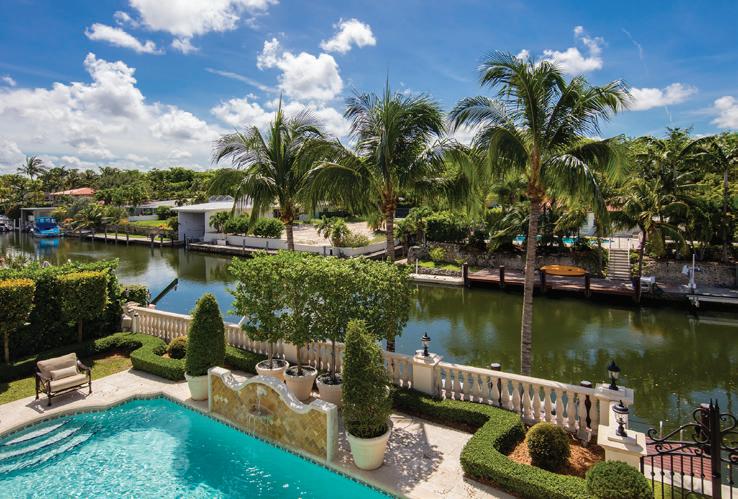
7125 W Lago Dr. Tropical contemporary, both cool and cozy. Great for entertaining & family privacy!
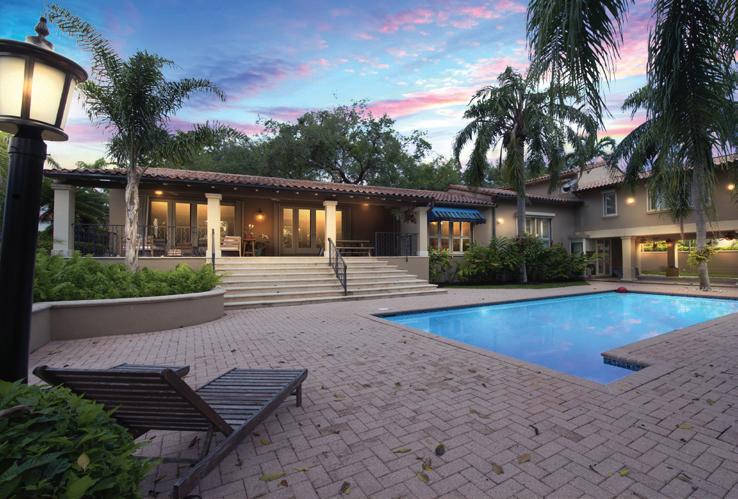
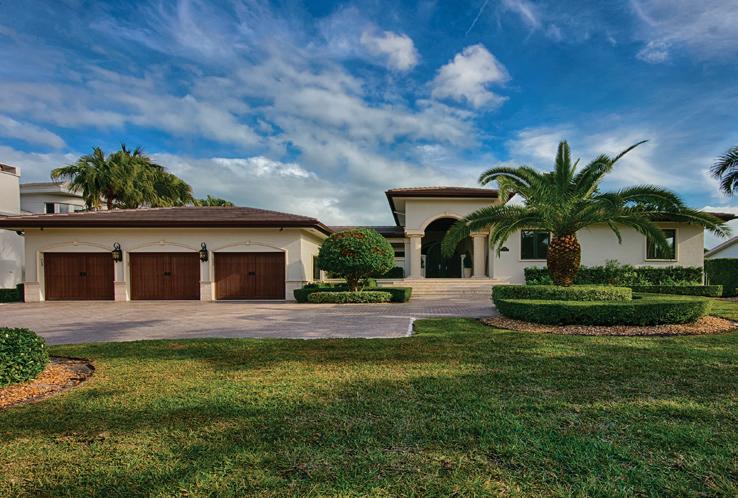
sf.
waterfront home, corner lot home. 4/3/1 | 4,330 sf. | 16,566 sf. lot
What Does it Take to Create a Park?
CORAL GABLES NOW HAS 29 PARKS
THANKS TO THE ADDITION THIS YEAR OF THE BETSY ADAMS CORAL GABLES GARDEN CLUB PARK AT THE INTERSECTION OF ALHAMBRA AND MERCADO. JUST WHAT DOES IT TAKE TO CREATE A NEW PARK AND HAVE IT NAMED AFTER YOU? WE INQUIRED.
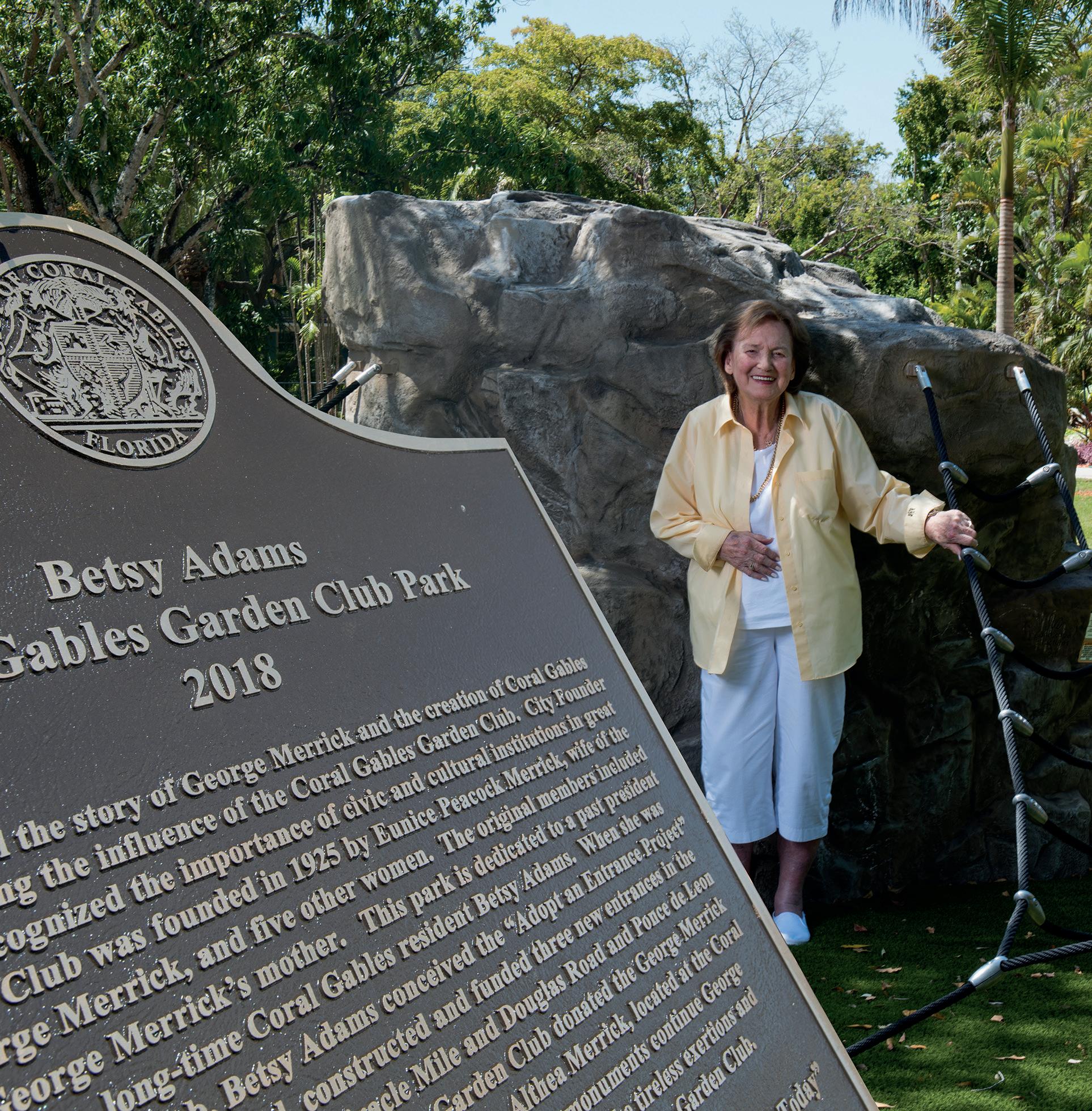 By Mike Clary
By Mike Clary
THE HONOREE
When Betsy and Larry Adams raised three sons on Mendavia Avenue, their home’s ample yard became the neighborhood playground. On its lawns were swings and a tree house, room to play tag, volleyball and soccer, a basketball court, even a small baseball diamond. Over the years, Betsy welcomed dozens of youngsters, made them countless pitchers of lemonade, and went on to become a civic activist. “I loved every minute of it,” says Adams, 89, a Coral Gables resident for 58 years.
The neighborhood park dedicated to her name on March 17 is just a fly ball away from her former home. “I had no idea this would happen,” says the North Carolina native. “But I’m grateful for it, I really am.”
HOW IT HAPPENS
The process to develop a new park and decide its name can take years. Suggestions come from city officials or residents who bring their ideas to the city commission. The next stop is approval by the parks and recreation advisory board. Funds to buy and build typically come from the city’s capital improvement projects budget.
What became Betsy Adams Park traces its roots to 2010 when the owner of the only house on the west side of the block asked city officials if there was interest in acquiring it. There was. “It was a double lot on a corner, located in an area that did not have a neighborhood park, so it was an attractive property…,” recalls parks director Fred Couceyro. The city paid $1 million.
NAMING IT FOR BETSY
City officials take nominations on names for a new park. If it honors an individual, that person must have: made a significant contribution to the city’s quality of life; had a significant historical or cultural connection to the city; and/or had a residence associated with the park. Adams checked all boxes.
As president of the Garden Club, Adams partnered with the city’s Adopt-an-Entrance Project that in the 1990s raised $1.4 million in cash and in-kind contributions to build Mediterranean-style gateways to the city at Coral Way and Red Road, Miracle Mile and Douglas Road, and Ponce de Leon Boulevard and Southwest 8th Street.
Adams and the club were also prime movers in commissioning the bronze statues of George Merrick at City Hall, and of his mother Althea at the historic Merrick House.
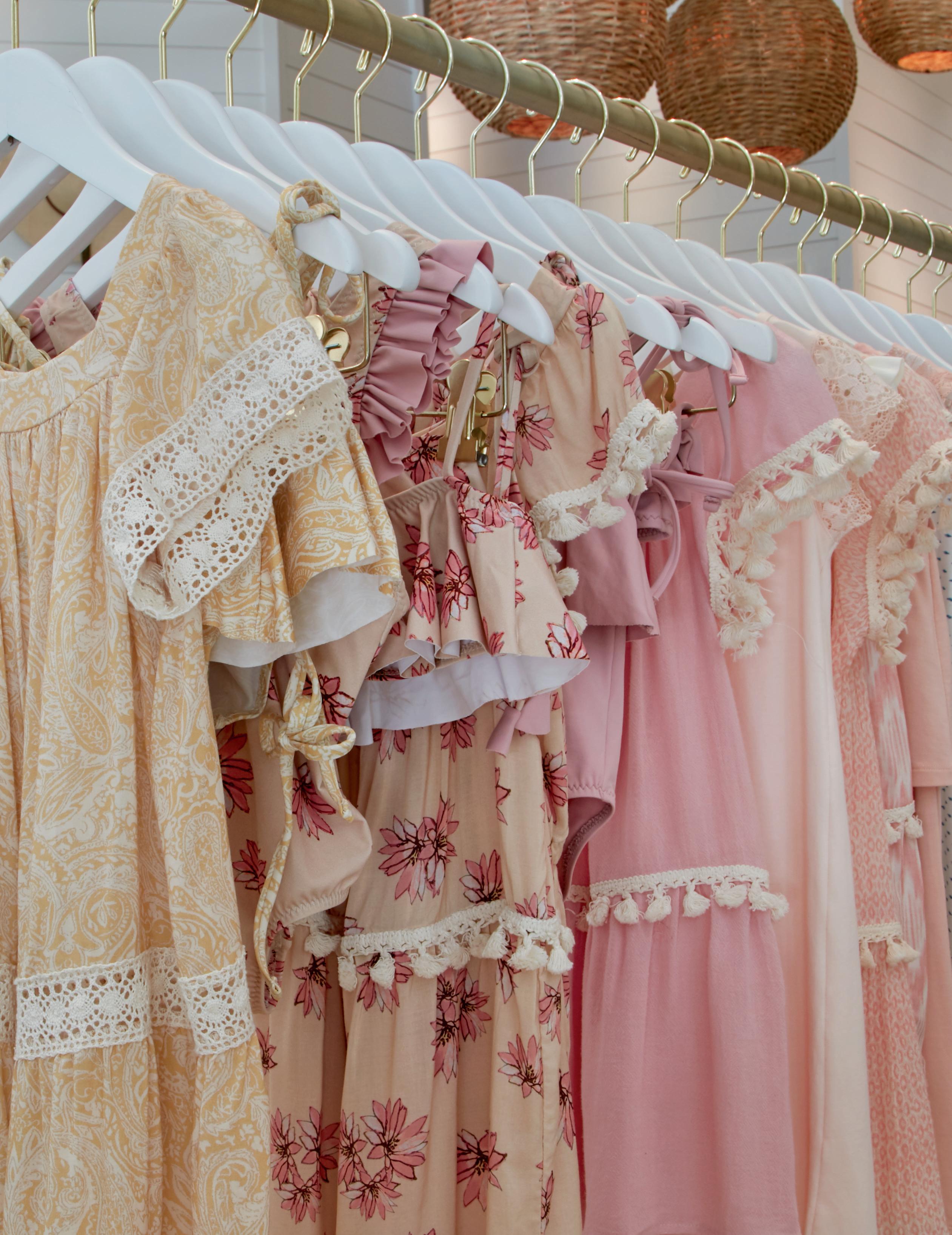
Softer Side
By Kimberly RodriguezAT EBERJEY IN MERRICK PARK, A CULT CLIENTELE FINDS SOFT, WEARABLE AND FASHIONABLE PIECES, FROM LINGERIE TO LOUNGEWEAR
When Eberjey opened its doors a year ago in The Shops of Merrick Park, the brand already had quite a following, providing women some of the softest, wearable and most fashionable lingerie for more than two decades. Local co-founders Ali Mejia and Mariela Covito have nurtured a bit of a cultish clientele that looks to Eberjey for not just everyday lingerie but for their loungewear, travel pieces, and bathing suits; even their “mini me” companions can find pieces that match mom’s. Honestly, I love to just go into their stores and peruse their affiliate’s products of books, home goods, and delicate jewelry, all while surrounding myself in a beautiful, feminine, chic setting. Their decision to open in Coral Gables was a no brainer. “It’s where our community is already shopping,” says Mejia. “It was a natural fit.”
After traveling to Italy and always admiring her mother’s lingerie drawer, Mejia knew she wanted to live a creative life in fashion – and without any formal design training, dreamt of creating a lingerie brand. While she was creating her vision, she met her soon-to-be co-founder, Mariela, at their day jobs in marketing at an advertising agency. Eventually they would leave the corporate world and begin creating
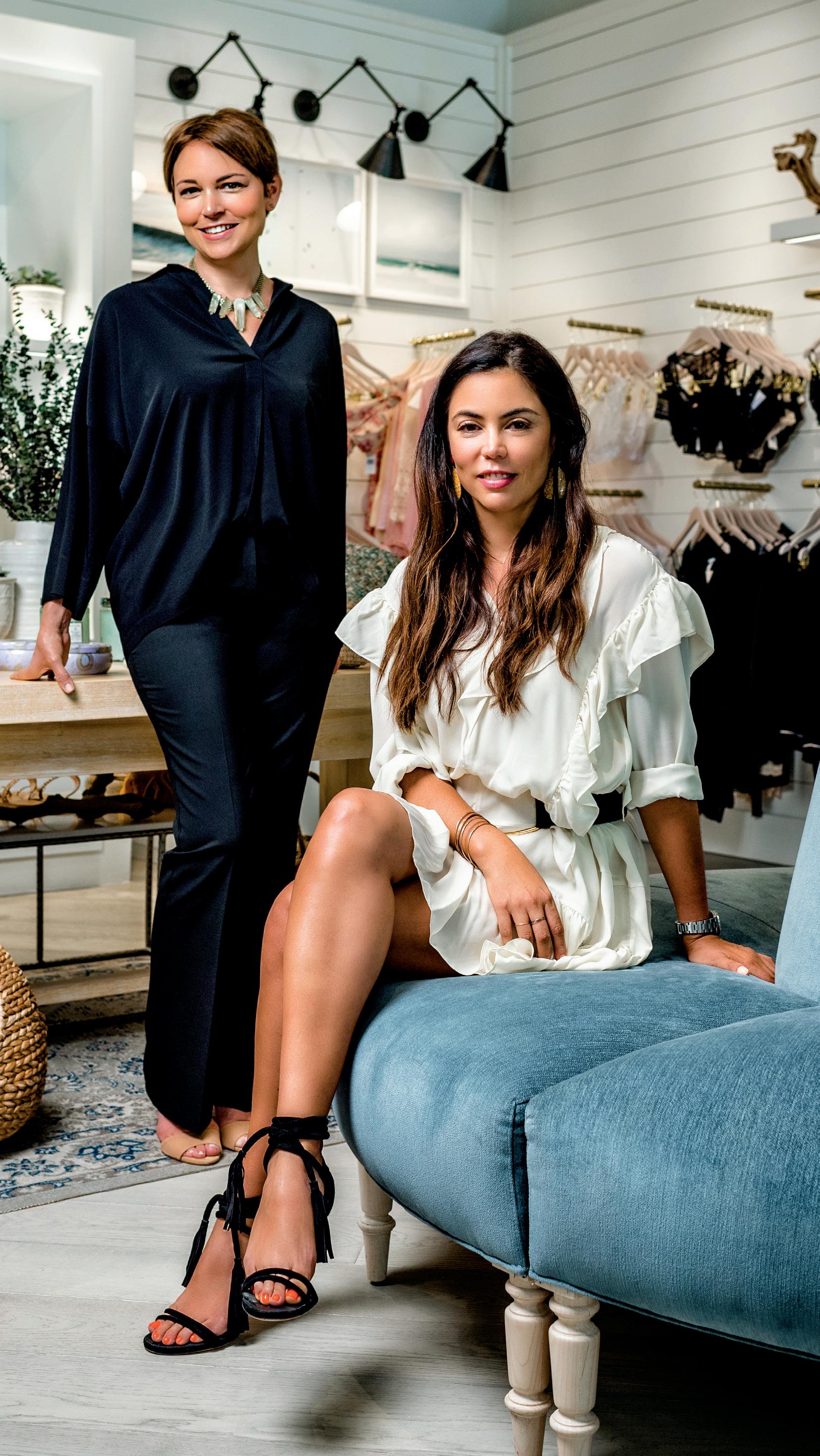
and validating the vision for Eberjey, right here in Miami, Mejia as Design and Creative Director and Rovito as CEO.
The Eberjey contemporary lingerie brand today is known for its high quality, ultra-soft fabrics coupled with beautiful color palettes and great attention to detail. The clientele loves to dress beautifully but comfortably, and appreciates versatility in the fabrics and styles that lead to functional and effortless dressing day and night. This summer their clients will find rich, earthy colors in bathing suits, both solids and modern prints, with beautiful details such as ties, twists and knots. The color palettes change seasonally within the core loungewear, but you can always find neutrals for all your favorite pieces in stock year-round. Their current price points generally range from $18 for underwear to $249 for a resort cover up.
Since launching in 1996 the brand itself is now sold in over 25 department stores and 1,400 specialty boutiques across the country. But most exciting for us is their brick-andmortar store right here in Coral Gables, as well as their outposts in Miami Beach, NYC, and Newport Beach, California.
Kim Rodriguez is a Personal Stylist and Shopper whose clients include many Coral Gables residents.
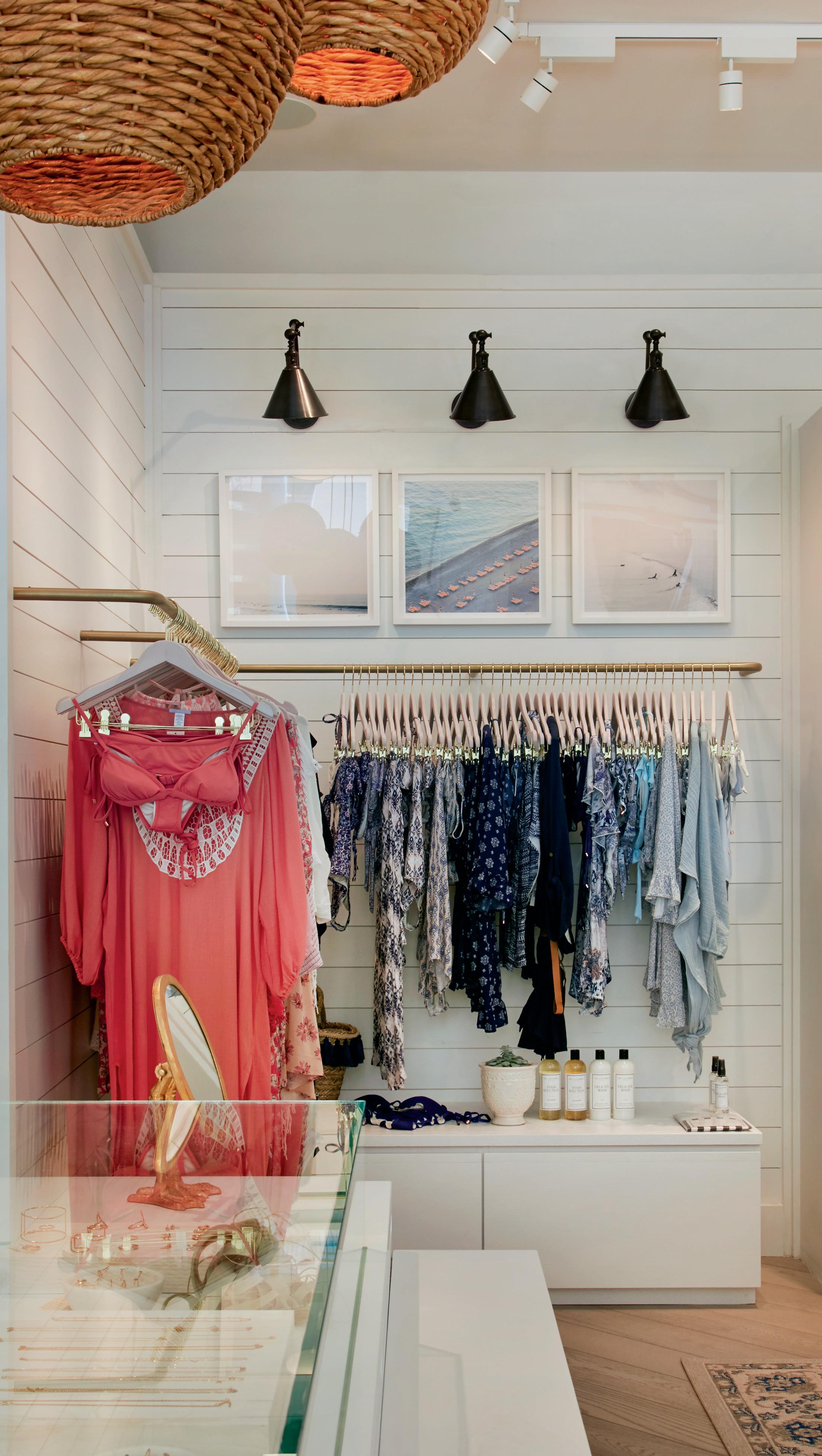
It’s where our community is already shopping. It was a natural fit.Photography by Nick Garcia Eberjey Coral Gables at Merrick Park 360 San Lorenzo Ave. #1530 (305) 763-1215
A Gold Coin for Your Thoughts?
OWNING A PIECE OF HISTORY COSTS LESS THAN YOU THINK
By Doreen HemlockGreek coins from 300 years before Christ. Notes from Confederate states during U.S. Civil War days. Money from pre-Castro Cuba. Step into Gables Coin & Stamp Shop on Miracle Mile, and you’ll find special items like these. History buff John Albright started the business 52 years ago and still enjoys telling the stories behind the currency.
Consider the bronze and silver coins from the Roman Empire. The coins often depict emperors to highlight their authority and power, Albright says. One bronze coin from 316-326 AD shows Emperor Crispus, a wreath of leaves around his head. It sells for a mere $60. Albright’s own collection features every Roman emperor, “except the son of one who was a co-emperor and only in power for two weeks,” he says.
Or check out the ancient coins in gold. Some from the Byzantine Empire curve like tiny bowls for easier stacking, says Albright. One Greek coin dates back nearly 2,300 years to 278-276 BC, when King Pyrrhos ruled Syracuse in Sicily. That coin shows Athena, the goddess of reason and the arts.
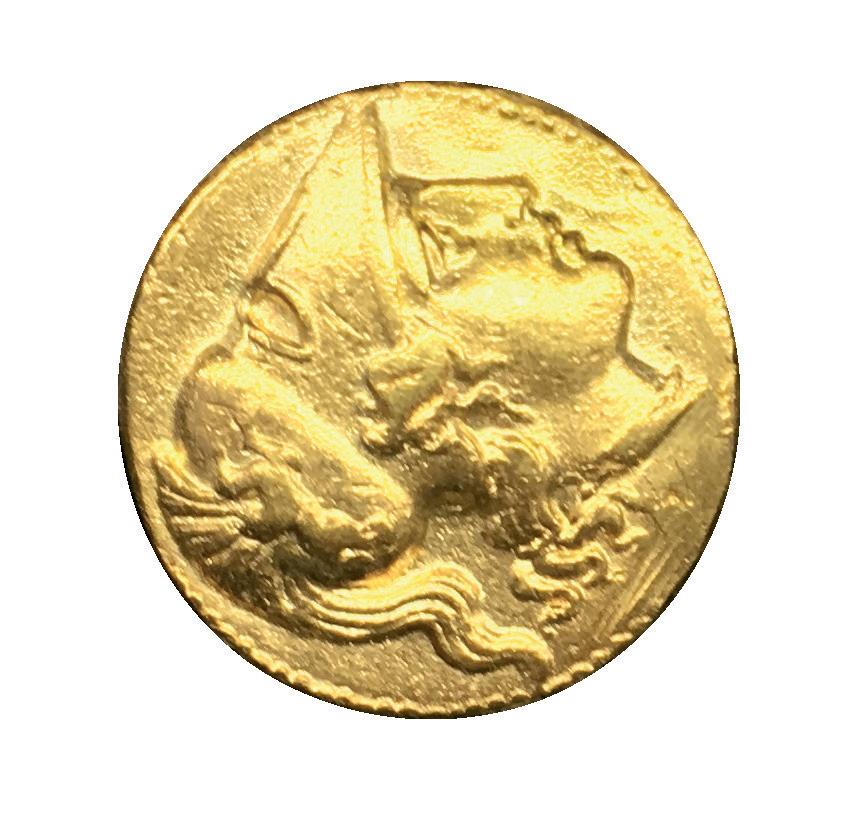
With 4.3 grams of gold, it sells for a slightly heftier $2,400.
Among Confederate notes, I gawked at a pink $100 note from 1864 that shows Lucy Holcombe Pickens, wife of the South Carolina governor. She’s the only contemporary woman ever pictured on a Confederate note. That envelope-sized bill retails for $95.
Confederate notes of smaller denominations are tougher to find, Albright says. “People saved the 50s and 100s thinking they might be valuable one day. But they used the ones and twos to line the inside of their log cabins, because paper then was scarce.”
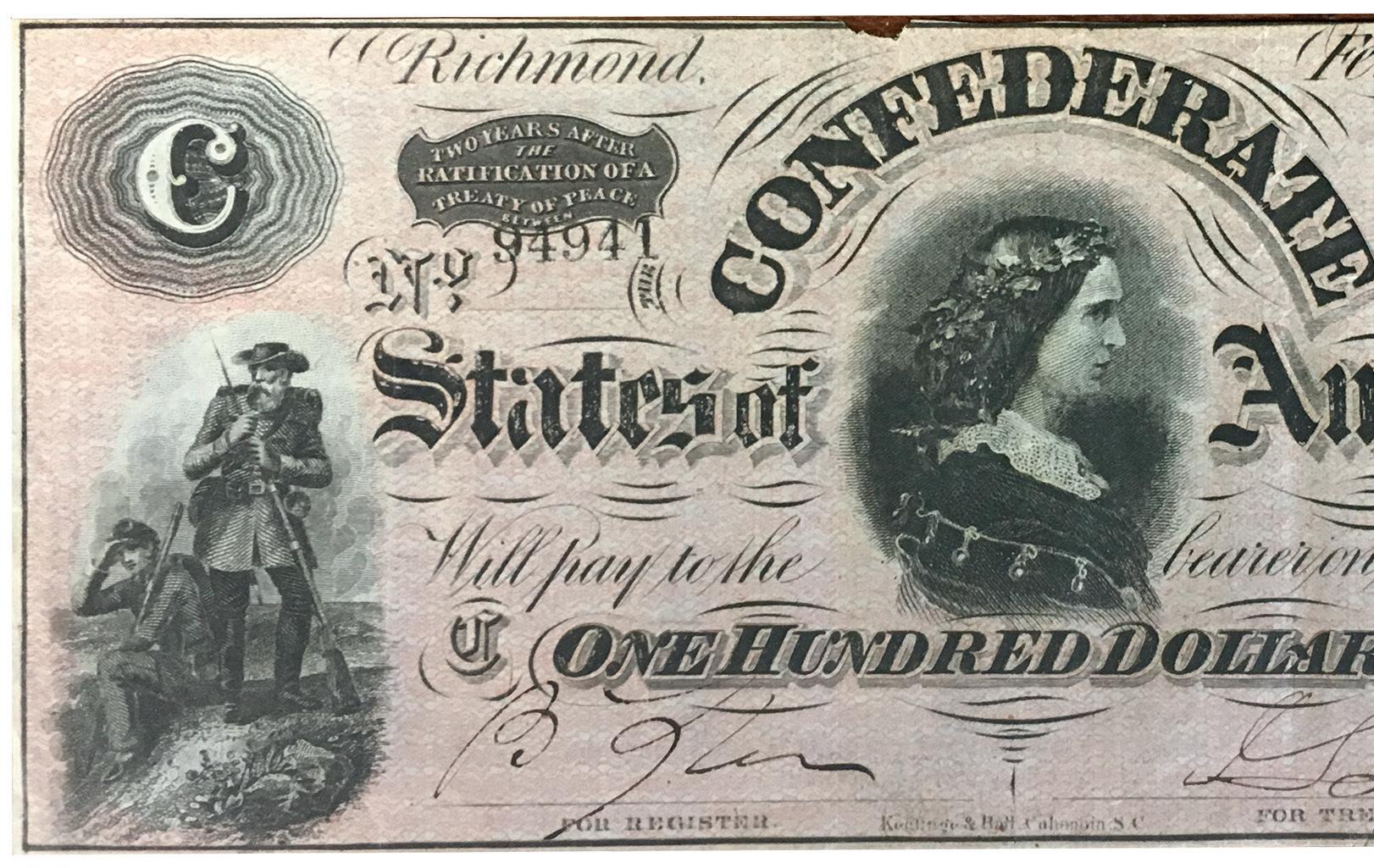
Cuba aficionados can see the strength of U.S. ties in the Cuban coins minted in Philadelphia from the earlyto-mid-1900s, adds Albright. One silver peso from 1953 marks 100 years since the birth of Cuban independence leader Jose Marti and sells for $35.
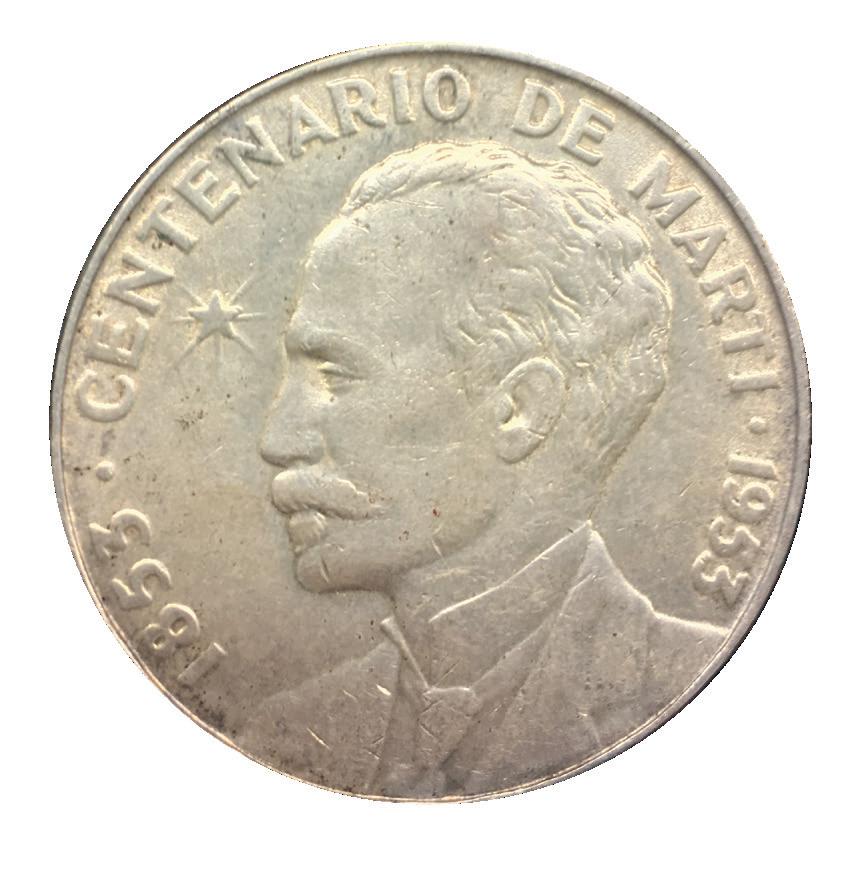
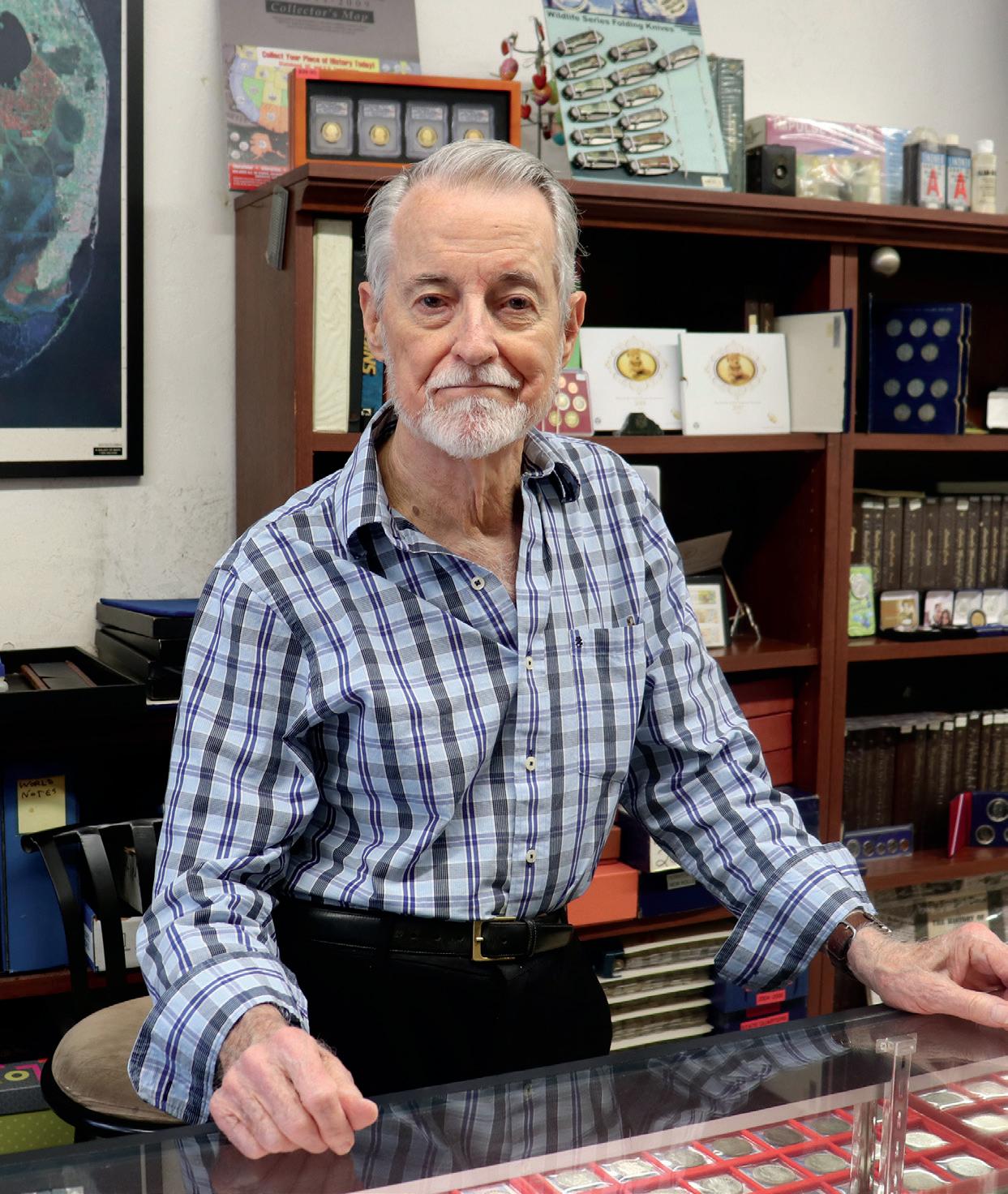
Attorneys at Law Since 1910
Shutts & Bowen is a full-service law firm that has provided leadership and high-quality legal services to businesses and individuals for over a century. With more than 280 attorneys in eight offices in Florida, our attorneys focus on more than 30 distinct practice areas nationally and internationally.
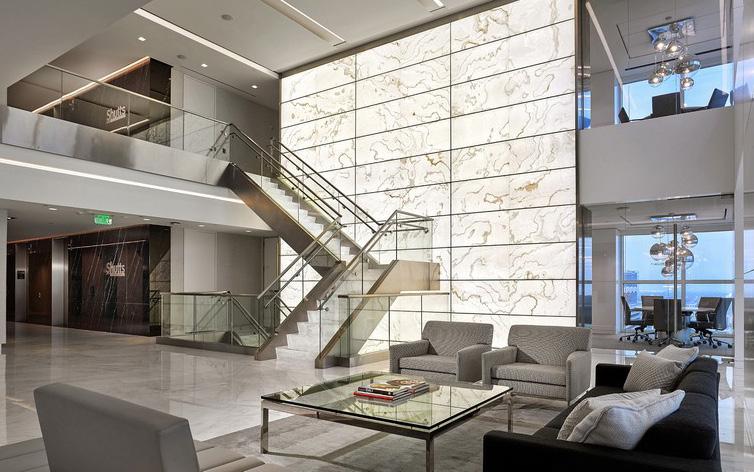
Bowman Brown, Partner Co-Chair, Financial Institutions BBrown@shutts.com
Francis E. Rodriguez, Partner Co-Chair, Tax & International Law FRodriguez@shutts.com
Steven M. Ebner, Partner Co-Chair, Business Litigation SEbner@shutts.com
Florentino Gonzalez, Partner Co-Chair, Real Estate FGonzalez@shutts.com
Bryan S. Wells, Partner Co-Chair, Financial Institutions BWells@shutts.com
Ricardo J. Souto, Partner Co-Chair, Tax & International Law RSouto@shutts.com
Alfred G. Smith, Partner Co-Chair, Corporate ASmith@shutts.com
Aliette DelPozo Rodz, Partner Chair, Diversity Committee Member, Business Litigation ARodz@shutts.com


Bites p24
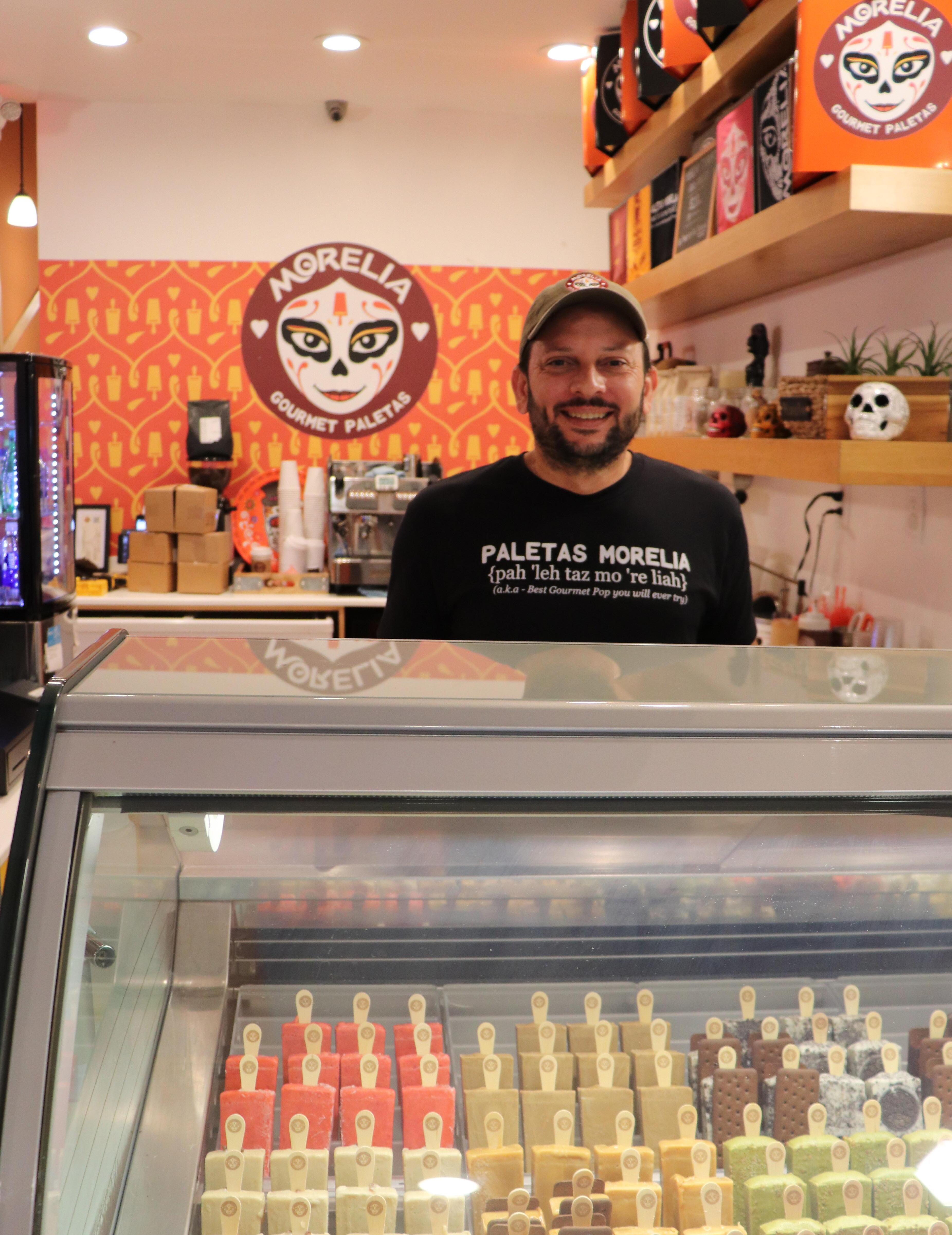
The Final Puzzle Piece
The Breakfast Club
The Frozen Kings of Coral Gables
A QUARTET OF LATIN AMERICAN ENTREPRENEURS IS TAKING THEIR CORAL GABLES SUCCESS WITH FROZEN TREATS ACROSS SOUTH FLORIDA – AND BEYOND
By Doreen HemlockWith its smiley-face logo based on a traditional Mexican doll, Morelia Gourmet Paletas looks like a snazzy neighborhood ice-cream shop. But it’s more than just a hip Miracle Mile locale making handcrafted popsicles.
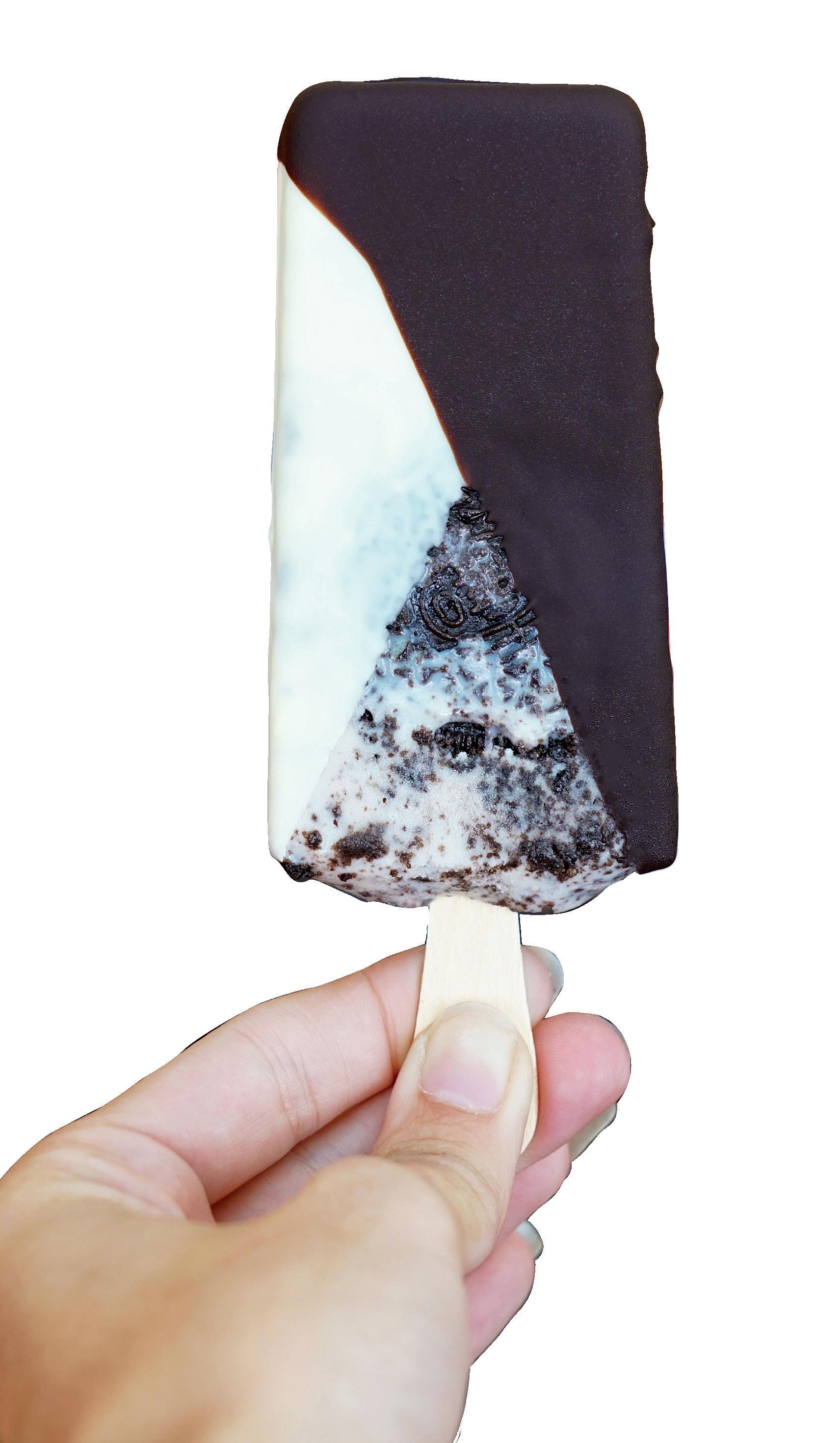
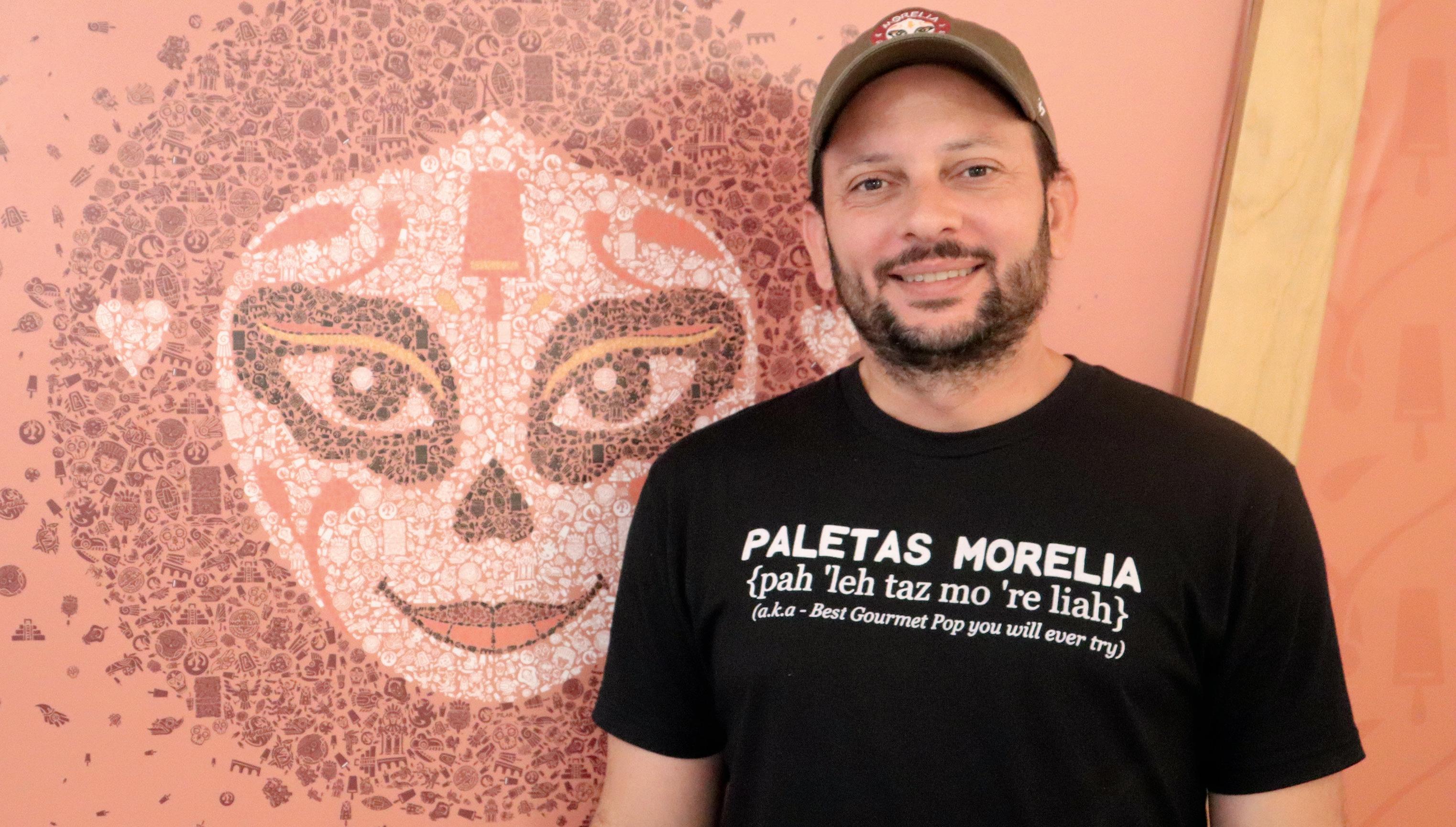
Founded by three executives from Procter & Gamble and run by an experienced software project manager, the business has been carefully planned. And it’s now expanding beyond its home base in Coral Gables. Morelia’s four partners studied the art of fruit-pop making in Mexico, surveyed how Mexican paletas went gourmet in Brazil, and took classes in gelato, sorbet and ice-cream making in
Italy, Argentina and other countries. They then applied their corporate know-how and refined the details at the Miracle Mile shop that opened in late 2016.
The results were immediate: From sales of 4,600 paletas its first December, it now averages 13,000 monthly, with spikes in the summer. “Nothing is improvised,” said Gilbert Arismendi (above), partner and general manager. There’s even attention to how the treat hits the tongue: not freezing or icy, but cool and refreshing with rich texture. “We want to do this for the long-term and get the right culture from the get-go.”
In November, Morelia debuted at a mall in Winter Garden near Orlando. This
At the Coral Gables locale, Margarita Mesones is a frequent customer, sometimes visiting daily. She suffers from an ailment that makes it hard to eat many foods. But she finds Morelia’s paletas so clean and natural – their sugar content so low – that she can easily digest them.
Italian chocolate, among others, all prepared without adding artificial colorings or flavors and without gelato mix.
Margarita
customer Mesones, CoralMay, it launched in Miami’s Wynwood. Later this year, it plans outlets at Aventura Mall and in Surfside, plus one at a Fort Myers mall in southwest Florida. An associate in the Dominican Republic this spring opened the first Morelia in that Caribbean nation and plans more there –part of a larger push overseas, Arismendi says.
The founders chose the Morelia name to honor the capital of Mexico’s Michoacan state, known as the birthplace of paletas. Some say the treats earned their Spanish moniker for their shape as little shovels.
Among her favorites: the top-selling flavor cookies and cream, dipped in white chocolate. Sometimes, she enjoys them as dinner. “This is the only sweet stuff I can eat that doesn’t make me sick,” said the 41-year-old paralegal who lives nearby.
Cookies and cream takes the longest to make. To spread the cookies evenly, every paleta is produced in stages, with crumbles placed on each layer and then frozen, a process repeated five or six times.
Some customers finish off the popsicles with a “s’mores” treatment: dipped in marshmallow, toasted with a flame and then topped with graham crackers.
Like most gourmet foods, Morelia’s paletas don’t come cheap: $4.65 each, plus toppings starting at 50 cents and dippings at 75 cents. But quality ingredients cost, too: fresh berries, tropical fruits, nutella,
The Coral Gables shop now produces all the paletas for Florida, using refrigerated trucks to transport them. Expansion in the state means staff on Miracle Mile likely will keep growing, already up from about six employees a year ago to more than a dozen now, says Arismendi.
The venture exemplifies “glocal,” a mix of global and local. The founding trio met in Brazil but came from Argentina, Mexico and Venezuela. They reached out to the Venezuelan’s friend, Arismendi, who was living in Florida. He helped fine tune recipes for local ingredients, including sweeter strawberries and less creamy milk.
“Although new to being entrepreneurs, the discipline learned in a corporate environment for so long was extremely helpful,” says Arismendi, 37, who used his software skills to ensure strong business processes.
But corporate backgrounds were of little concern to Mesones, as she picked up paletas to go on a recent weekday. “The quality, the freshness,” she says, “I love it.”
Wing Nut
There isn’t one list for top chicken wings in Greater Miami that doesn’t include the Sports Grill on Sunset near UM, and usually they are at the top. One big reason is that they’re grilled, not fried. We tried an order of 20 Special Grilled Wings recently (for a mere $23.99) and
became converts.
Yes, it’s a true sports bar, with 15 screens and retro poprock music, but get past that and you’re in wing heaven. A return trip for their Jerk Style and Dale Style (both hot) wings kept us in the fan club. 1559 Sunset. 305.668.0396.

They’re Back!
Any place that calls itself “the best” had better mean it. And for 45 years, Miami’s Best Pizza did its best to vindicate that moniker. Nonetheless, when its lease ended in 2015, the perennial favorite closed its
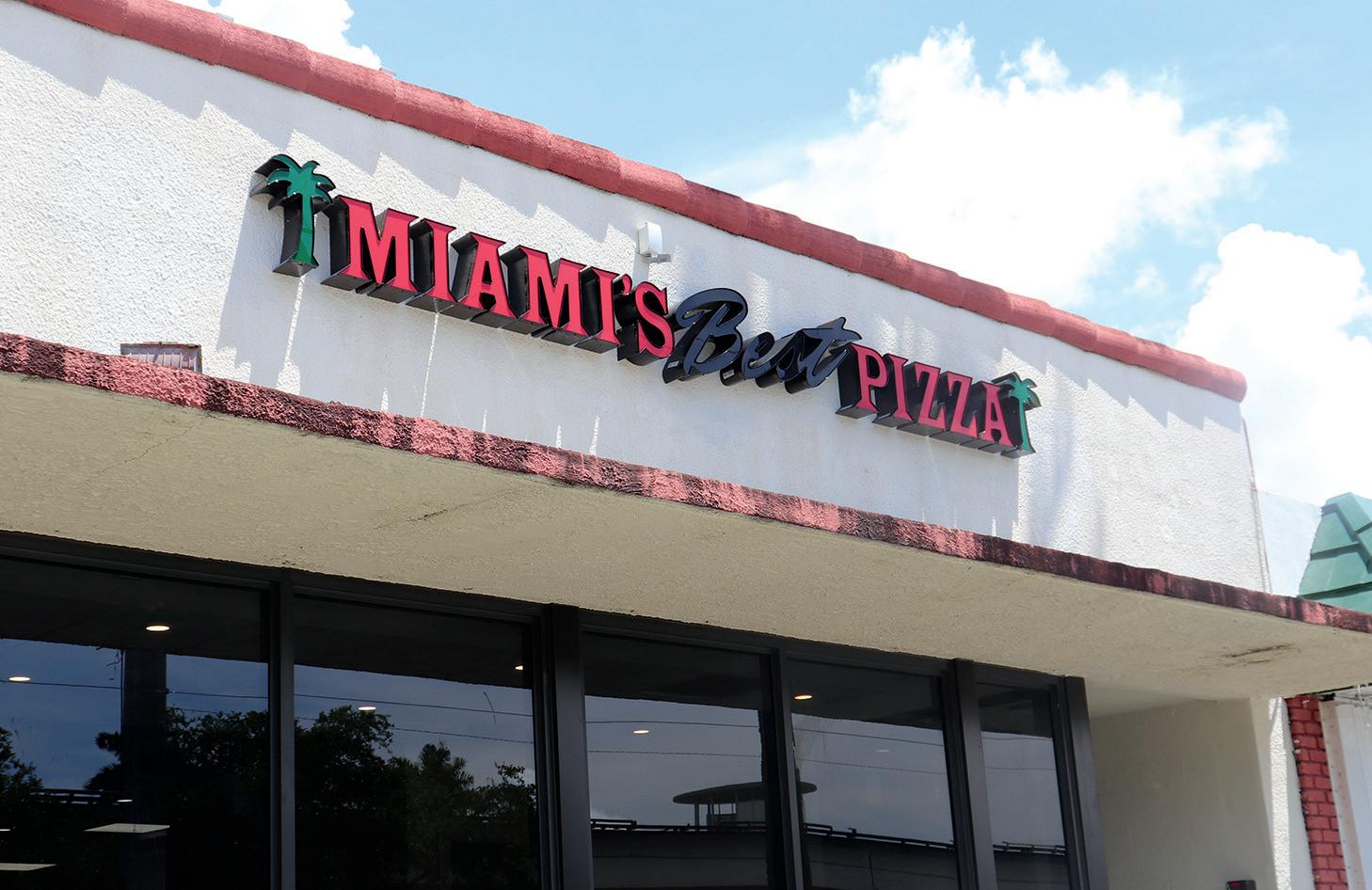
doors. Now, three years later, MBP has reopened not far from its original location.
So, head over to Ponce to one of the first pizzerias to open in Miami, and enjoy a slice of 305 history.
This is the only sweet stuff I can eat that doesn’t make me sick...
Gables
The Final Puzzle Piece

Anyone who has spent time on Giralda Avenue – especially on the now pedestrian mall of Giralda Plaza – will have noticed the odd-ball on the block: The Church of Scientology between Miss Saigon Bistro and Mara’s Basque Cuisine. For years, it has quietly processed converts to its unique vision on a retail street devoted mostly to dining.
Now the 1947 building, a former U.S. Post Office, is being converted to four restau-
rants, including the block’s first rooftop eatery. Purchased last year by the Gables-based Maven Real Estate group for $3.9 million, the renovation is revealing 19-foot ceilings and fluted 25-foot columns that had been covered up.
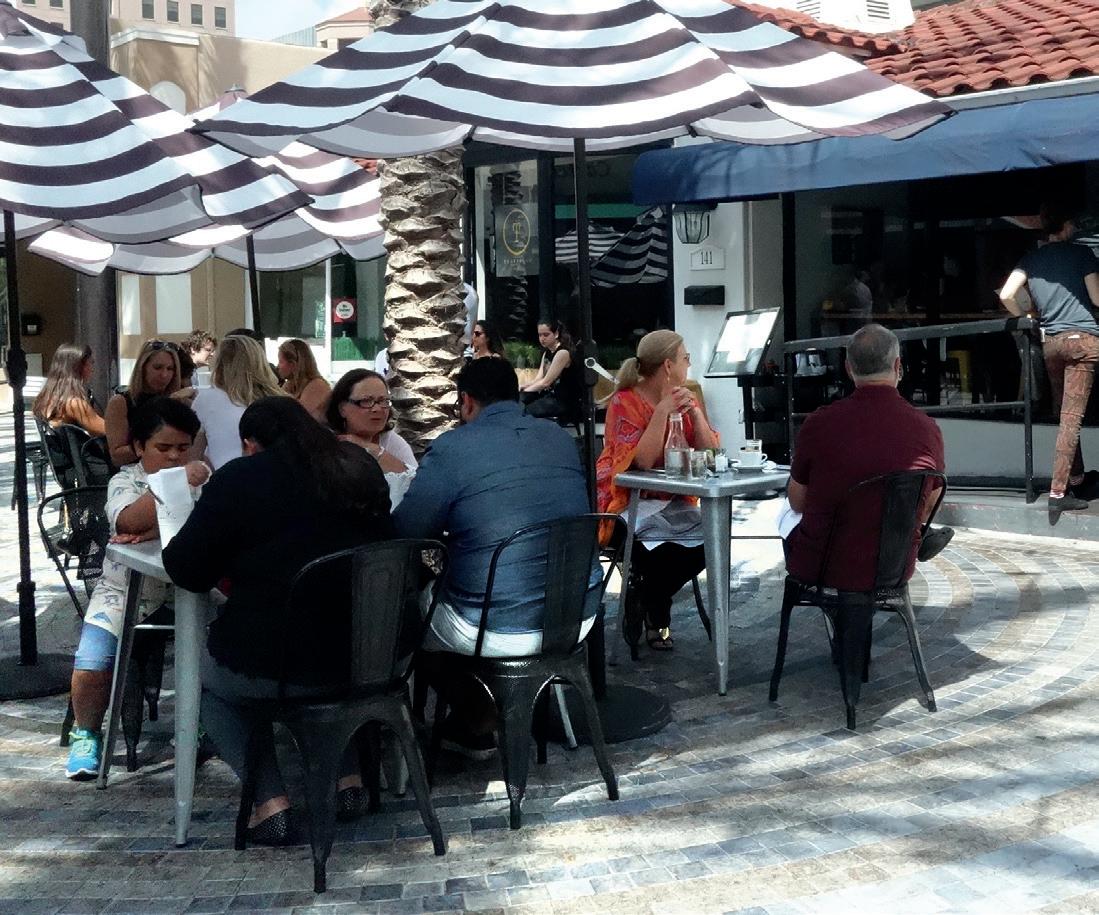
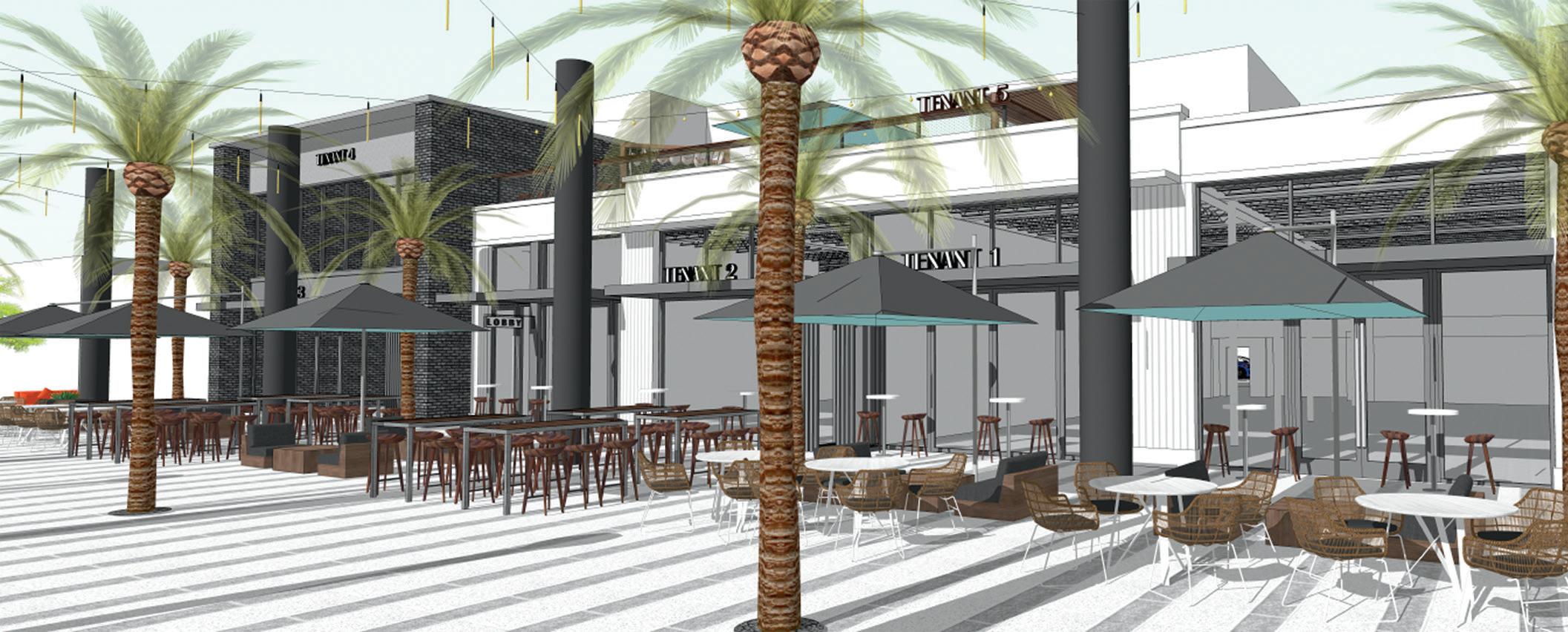
“Most of the older buildings [on Giralda] are like bowling alleys, narrow and dark,” says Maven’s managing partner Marc Schwarzberg. “We have towering ceilings and wide spaces, and we’ve
worked to preserve that.” The transformed building will be sheathed in glass to let in the light, and, so far, will house a Catalonian-style tapas bar, a Coyo Taco outlet, and an Italian restaurant. Opening is scheduled for Q1 2019.
Other restaurant transformations in store by the Maven Group: A former architect’s office next door at 116 Giralda, and the historic La Palma building on Alhambra Circle. Stay tuned.
The Breakfast Club
The rumors that you can breakfast all day long at ThreeFold Café on Giralda are true. If you go to their website, their breakfast and lunch menus are in fact identical, and there is no dinner menu. Then again, who needs it when you can get shrimp tacos for breakfast, along with salmon scrambled eggs, chicken parma,
and that Millenial favorite, smashed avocado toast?
The brainchild of Australian Nick Sharp, ThreeFold is also popular for Sunday brunch, for obvious reasons. “All-day breakfast cafés with locally roasted coffee are big in Australia, it’s what we do,” says Sharp, whose hometown city of Melbourne has 3,500 such places.












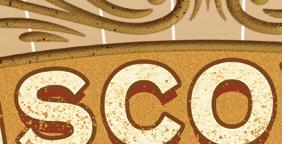
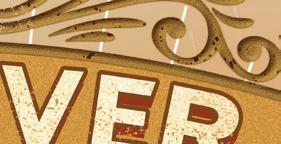





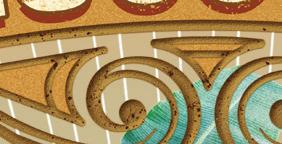
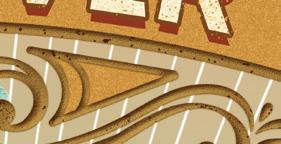






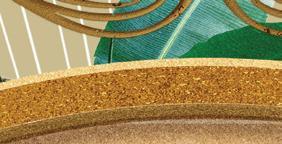
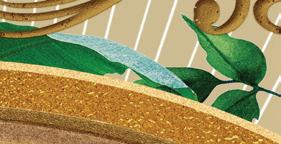




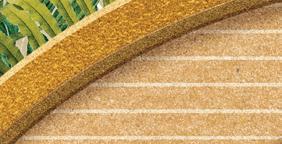
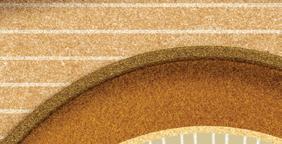
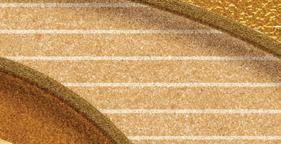





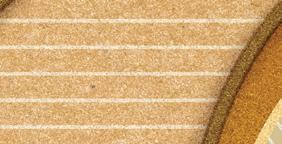
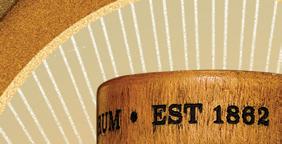




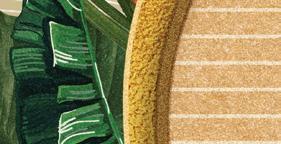


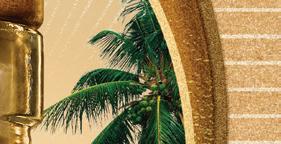






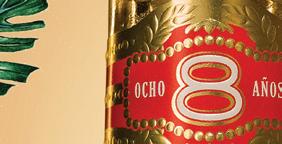
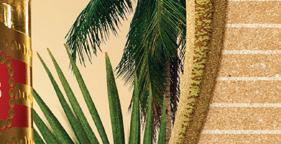












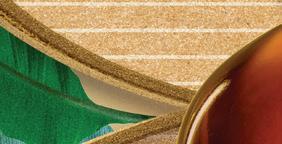

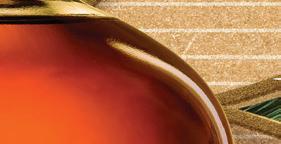



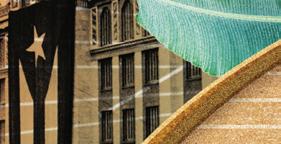

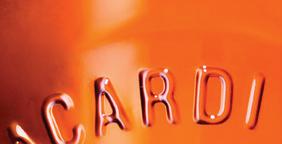

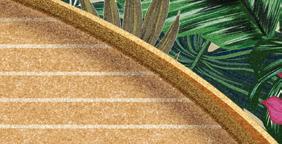



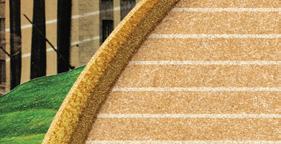

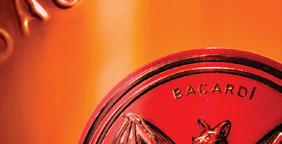
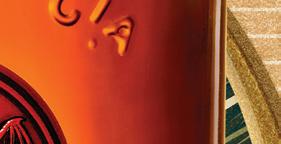





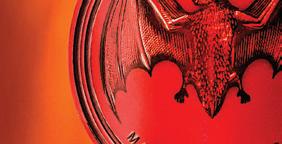







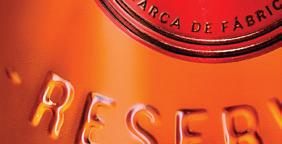

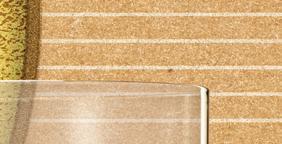



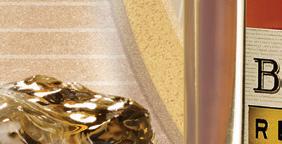
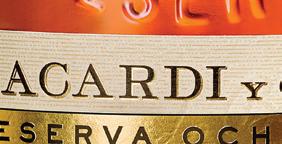
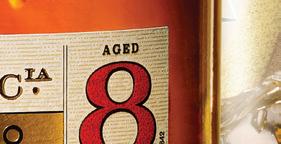
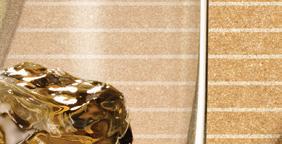



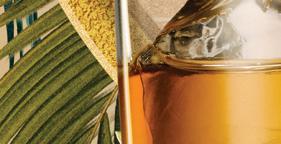
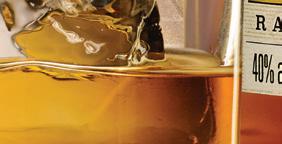

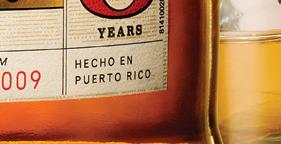
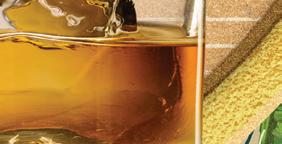


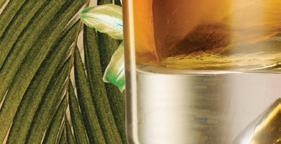
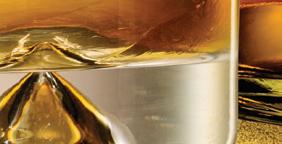








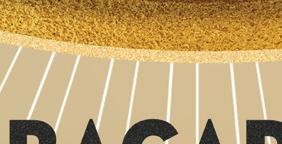


















The French Mediterranean Lives in Coral Gables
Le Provençal Restaurant was established in 1988 with the simple goal of bringing the flavors of the French Mediterranean coast to Coral Gables.
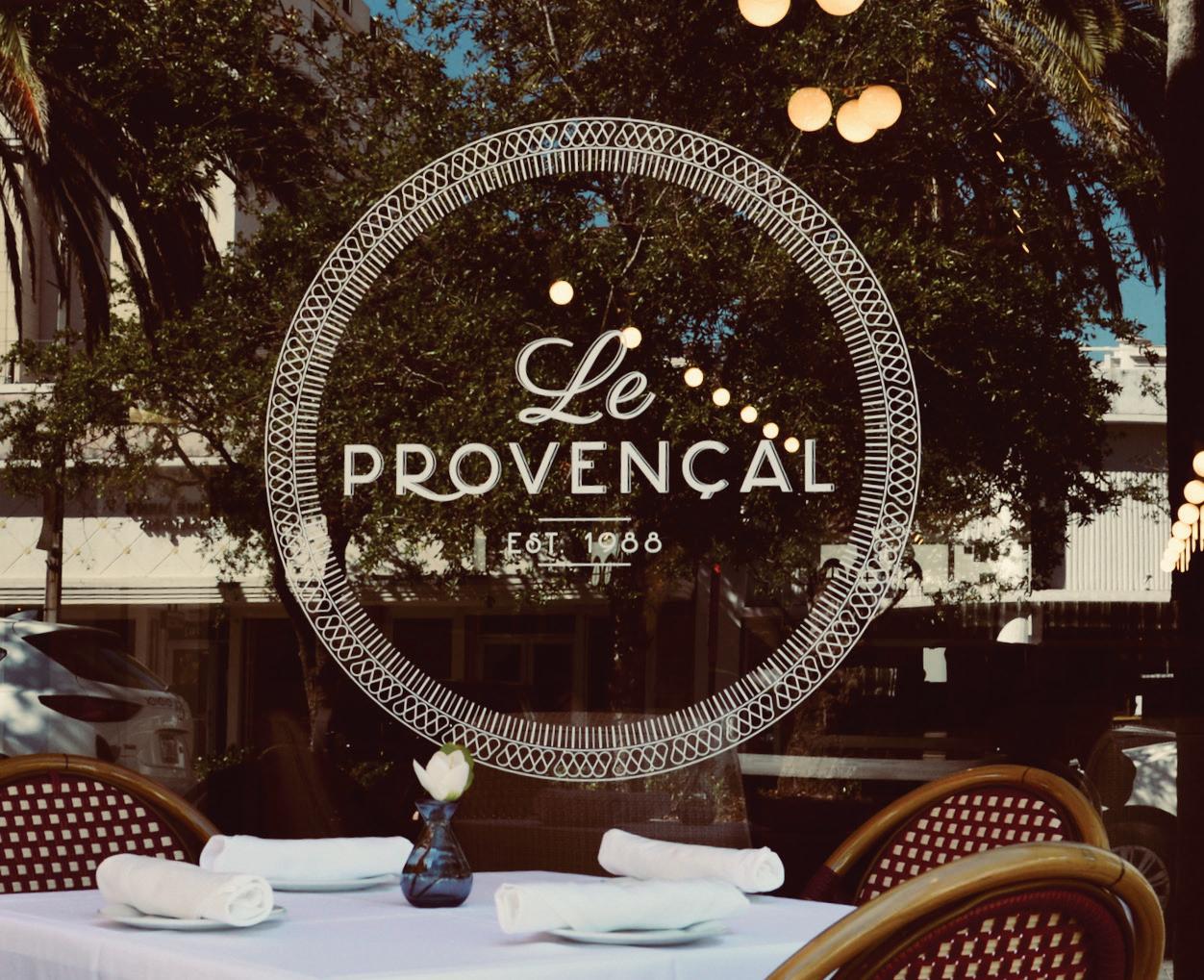
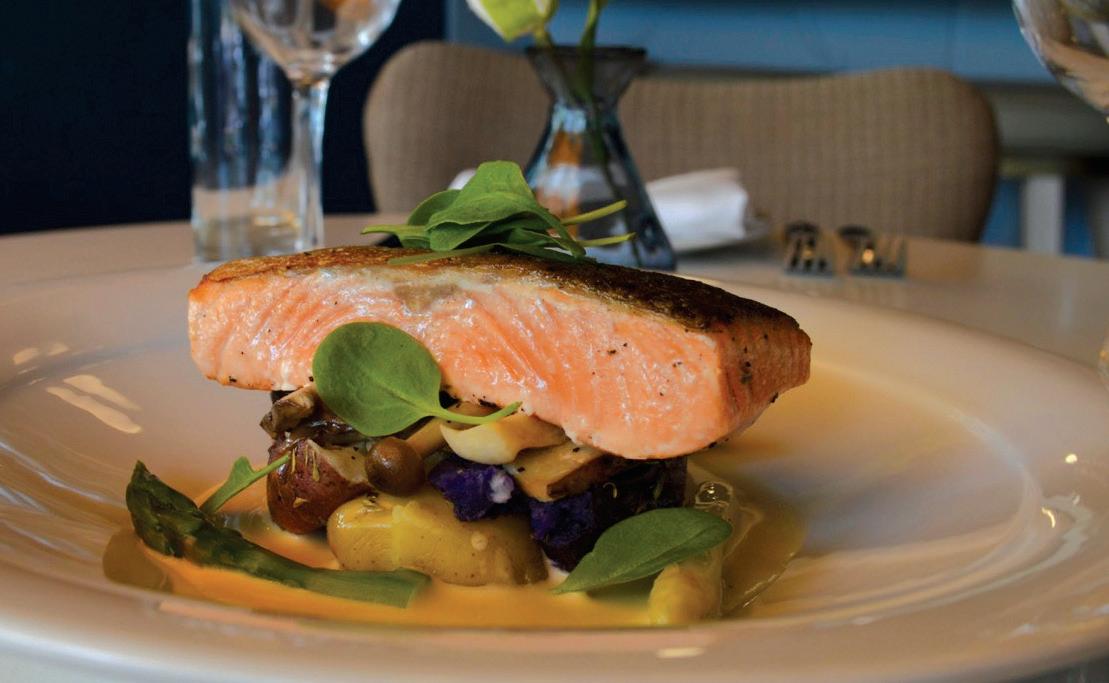
Now, three decades later, Le Provençal has become a multi-generational restaurant and landmark in the City Beautiful.
Following a significant and striking redesign in 2018, Le Provencal continues to maintain its tradition while simultaneously drawing a new generation of diners.
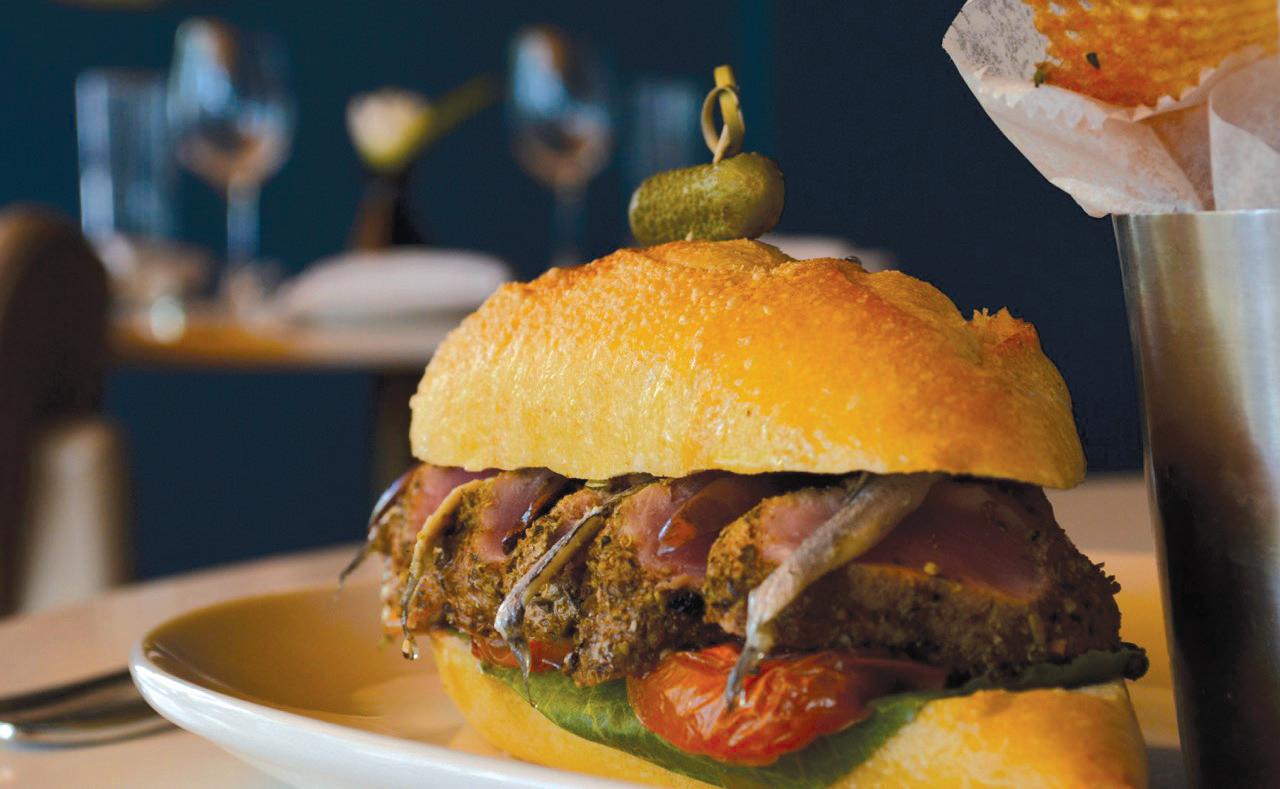
Le Provençal aims to stay true to its Mediterranean culinary roots and strive to bring gastronomic innovation to Miracle Mile with the use of local and sustainable ingredients.

Lunch: Tues-Sat 12:00 – 3:30p
Dinner: Tues-Thu 6:00–10:00p
Dinner: Fri-Sat 6:00-11:00p
Brunch: Sunday 12:00-3:30p
Dinner: Sunday 6:00-9:00p
266 Miracle Mile, Coral Gables 33134 +1 (305) 448-8984
www.leprovencalrestaurant.com
Venice in the Gables
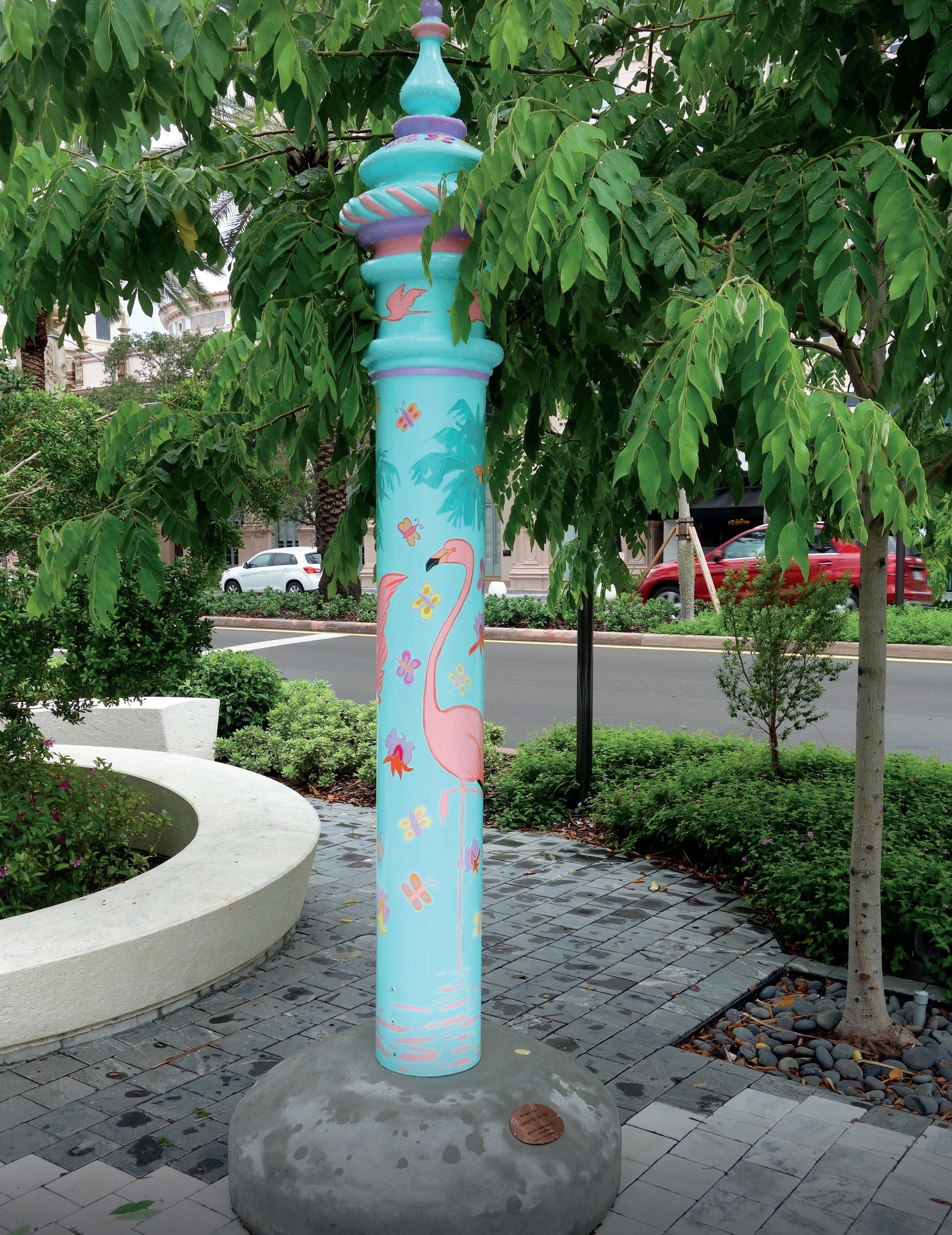
Spanish Boots
Master Pianist
W(h)ine About It
Venice in the Gables
PUBLIC ARTS INITIATIVE TURNS THE GABLES INTO VENEZIA
In a celebration of the completion of the city’s Street Scape Project, which widened the sidewalks of Miracle Mile and turned Giralda Avenue into a pedestrian promenade, the city curated a public art project: Venice in the Gables. For the next month or so, 33 Venetian palines – aka gondola posts – will adorn the downtown. Each painted by a different artist and sponsored by a different business or organization, they will be auctioned off for charity when they come down.
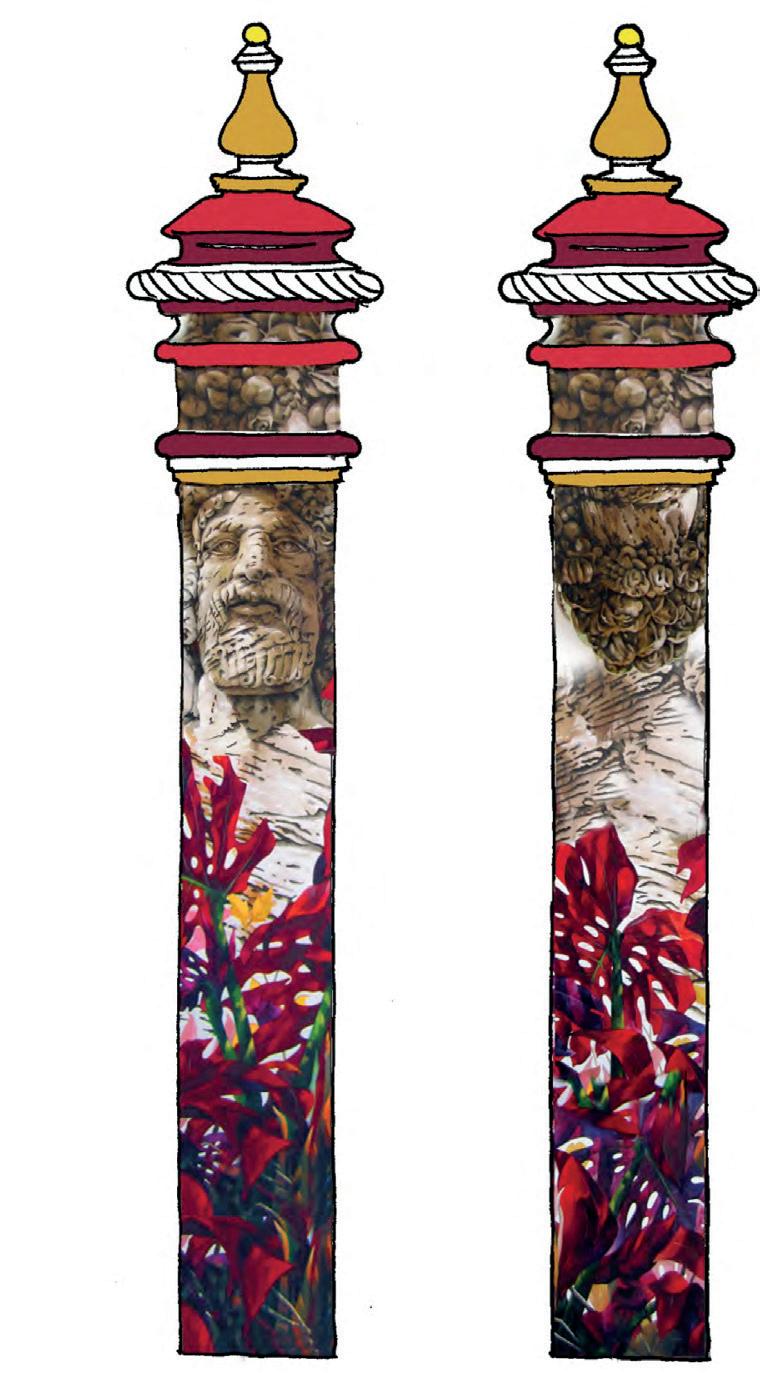
Here is a glimpse of the colorful posts. If you want to conduct your own scavenger hunt you can get a complete list of locations from the city at coralgables.com.
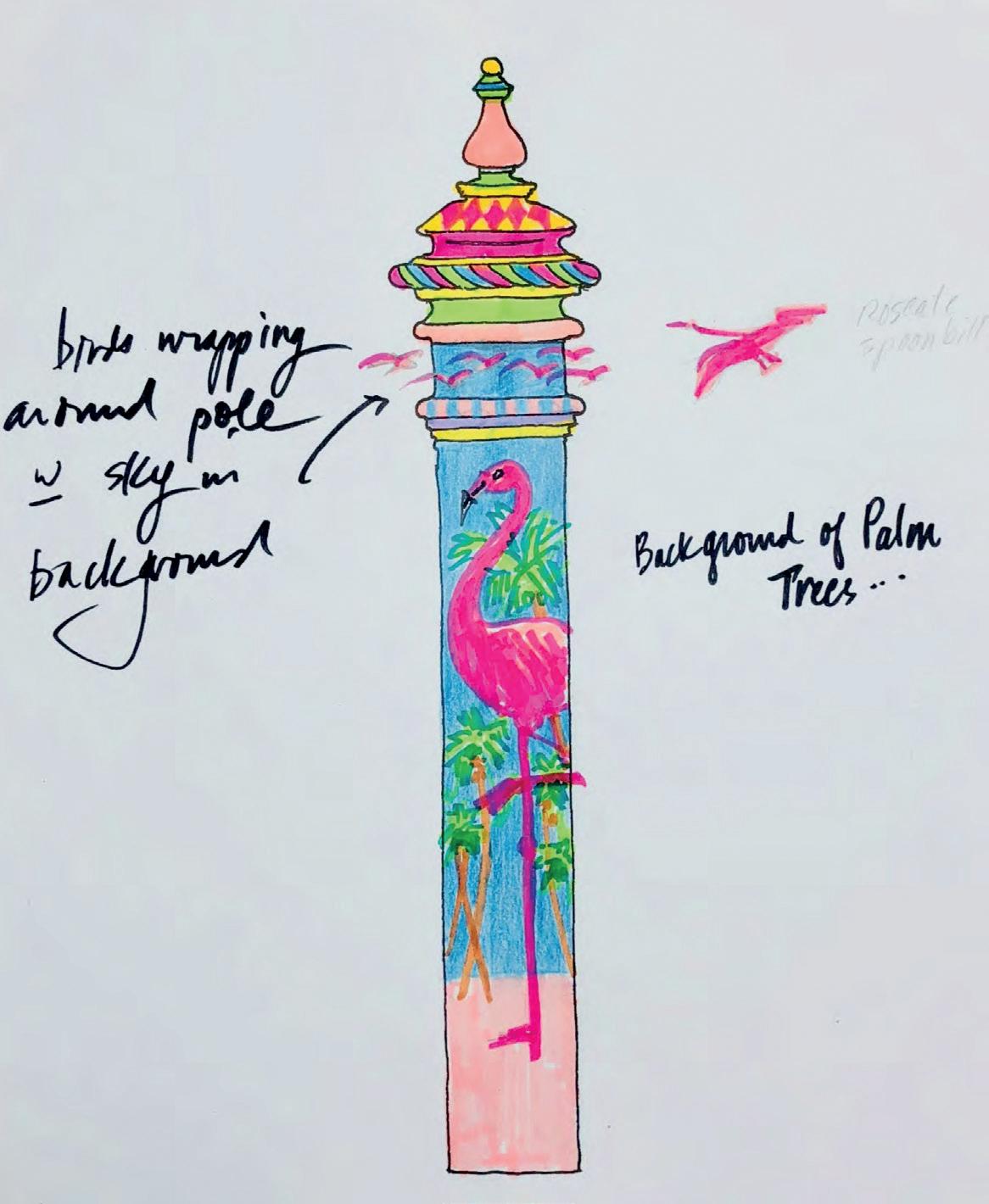
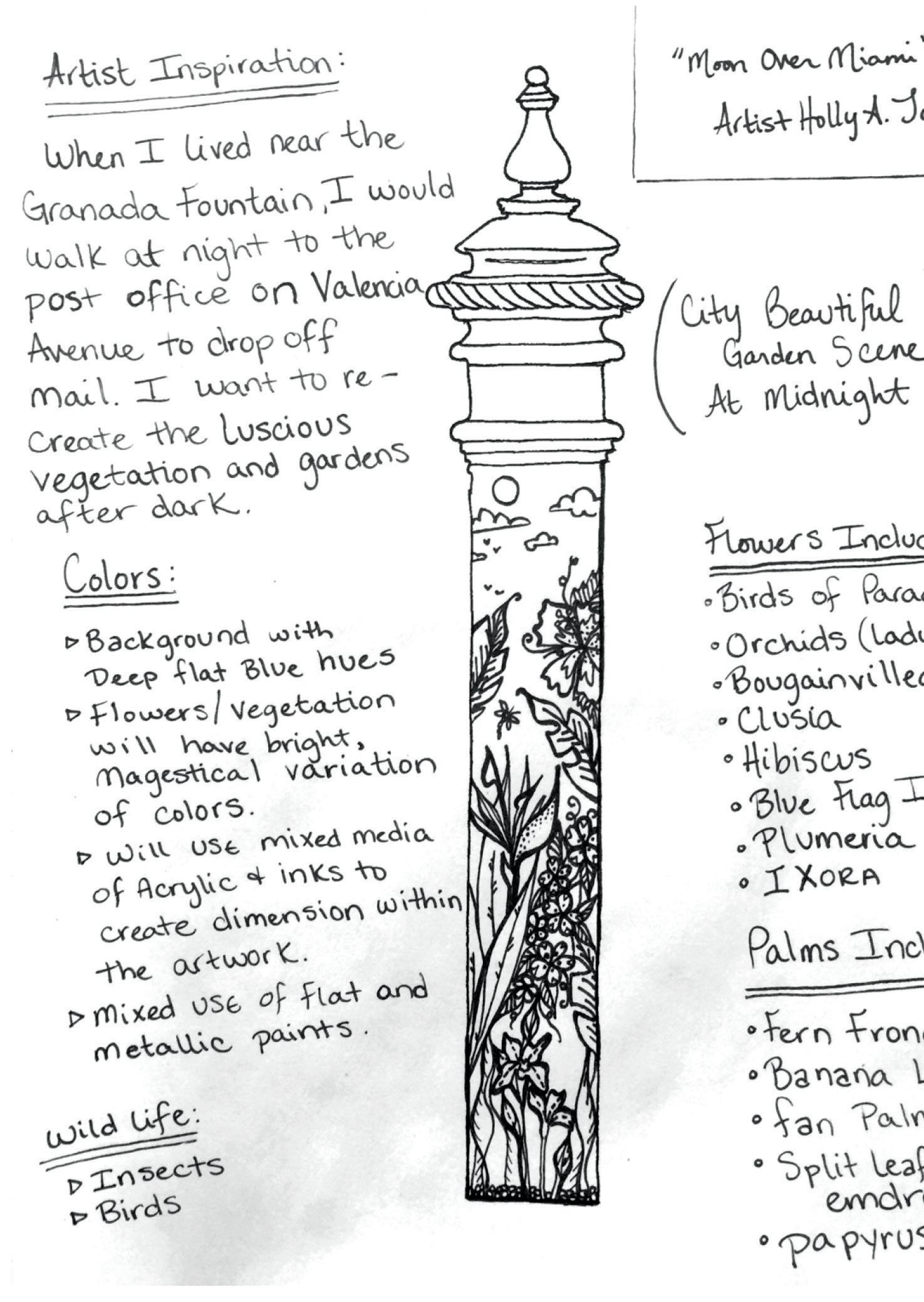
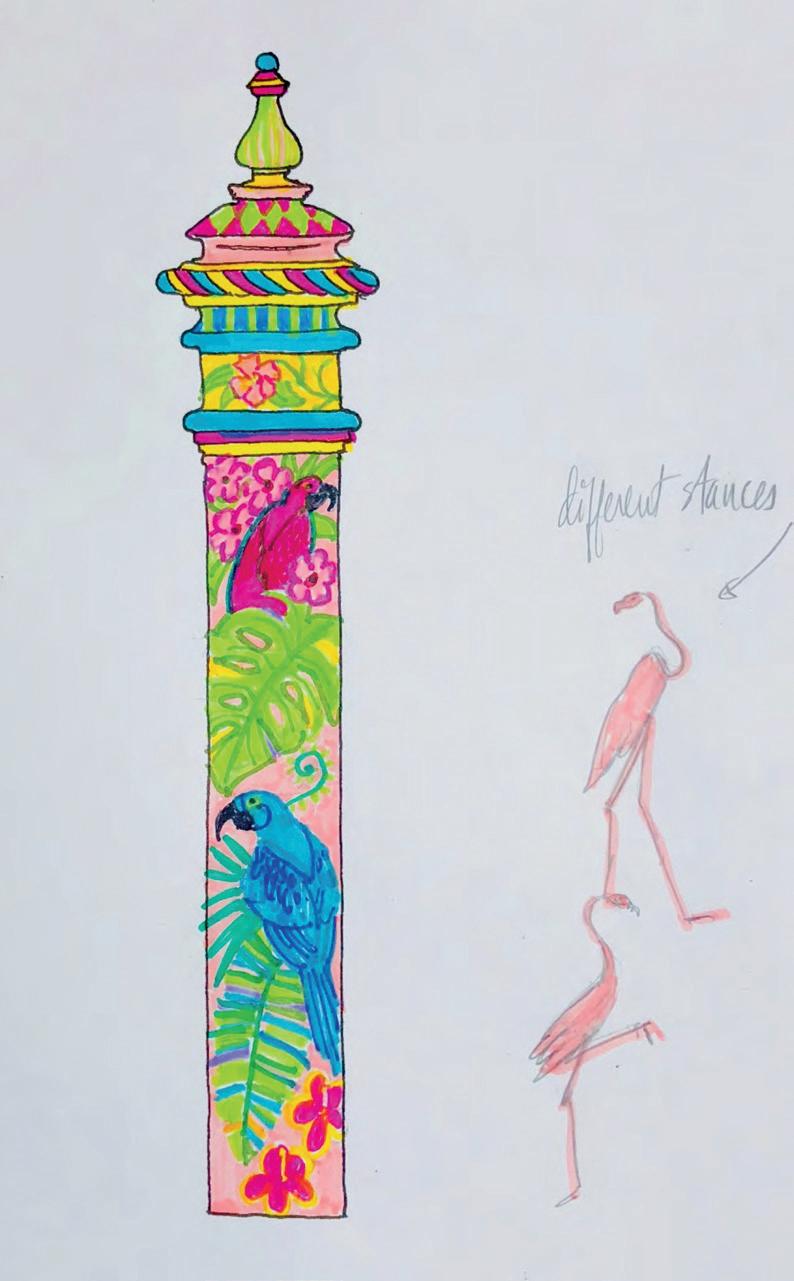

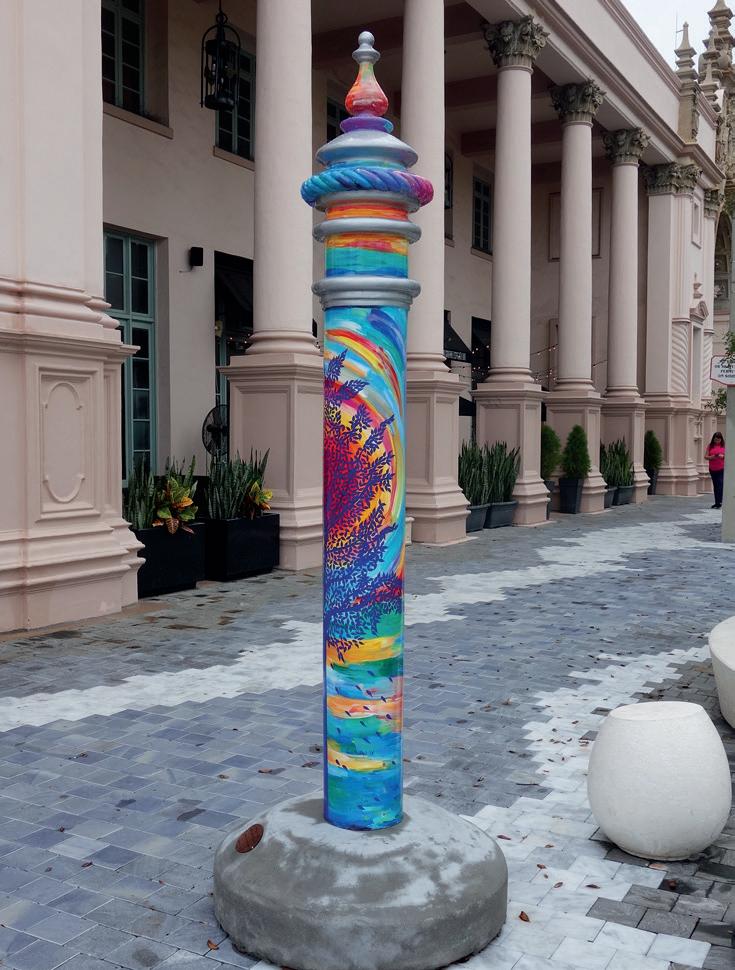
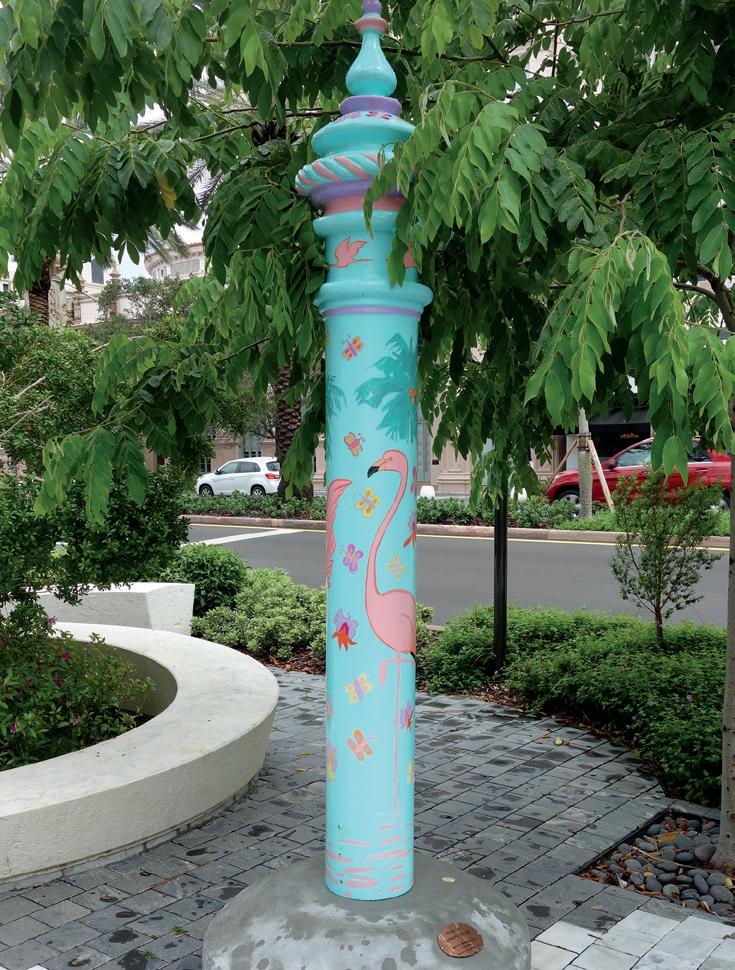
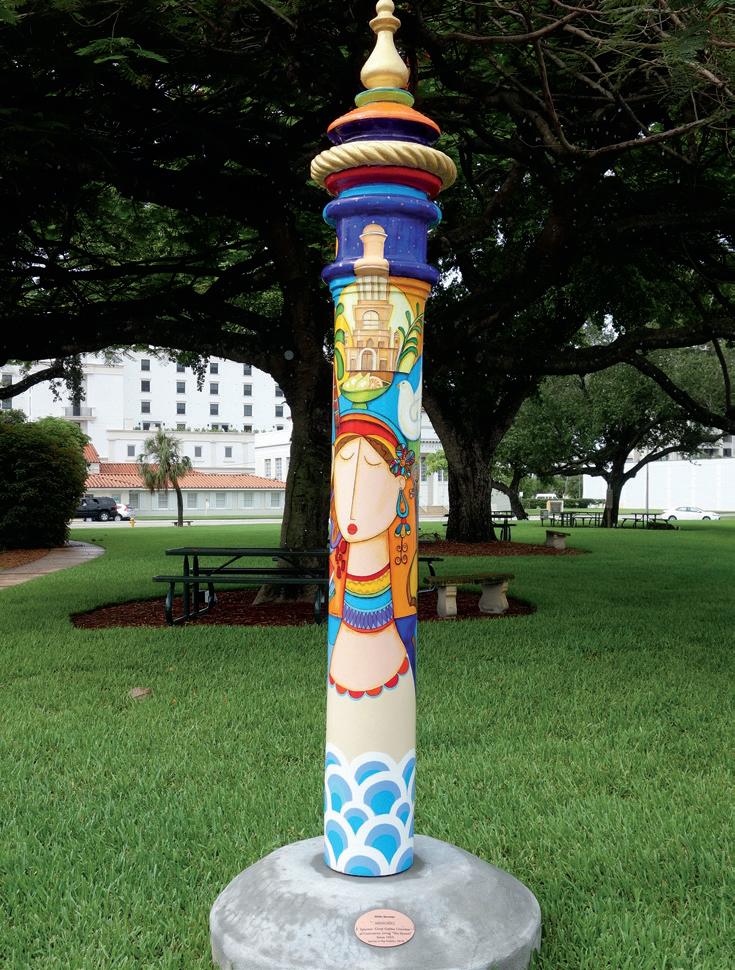
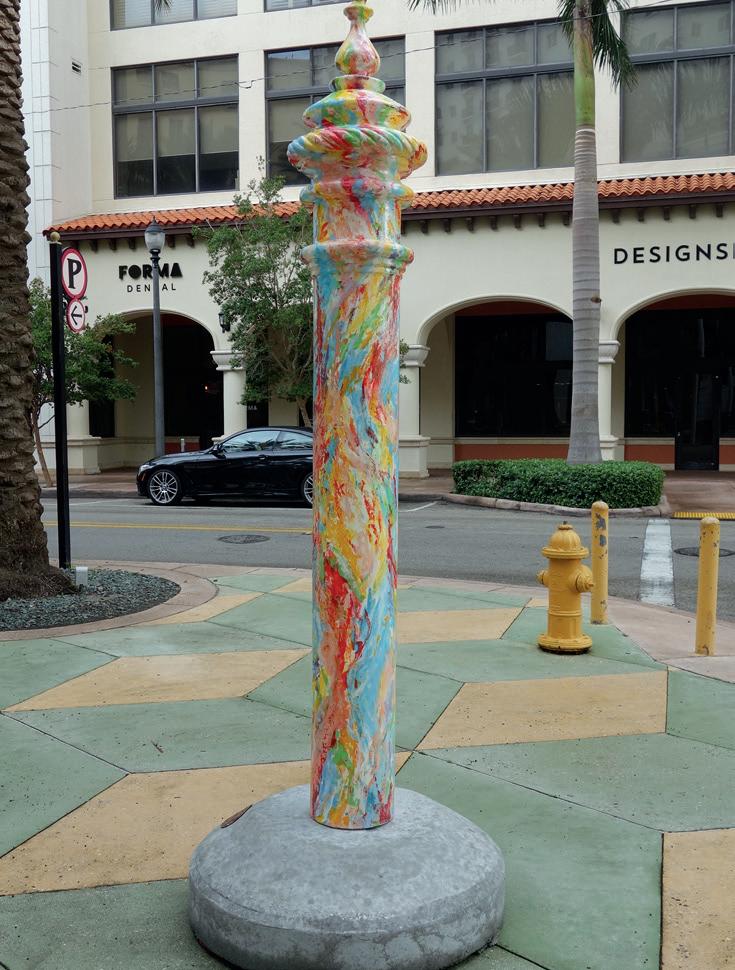
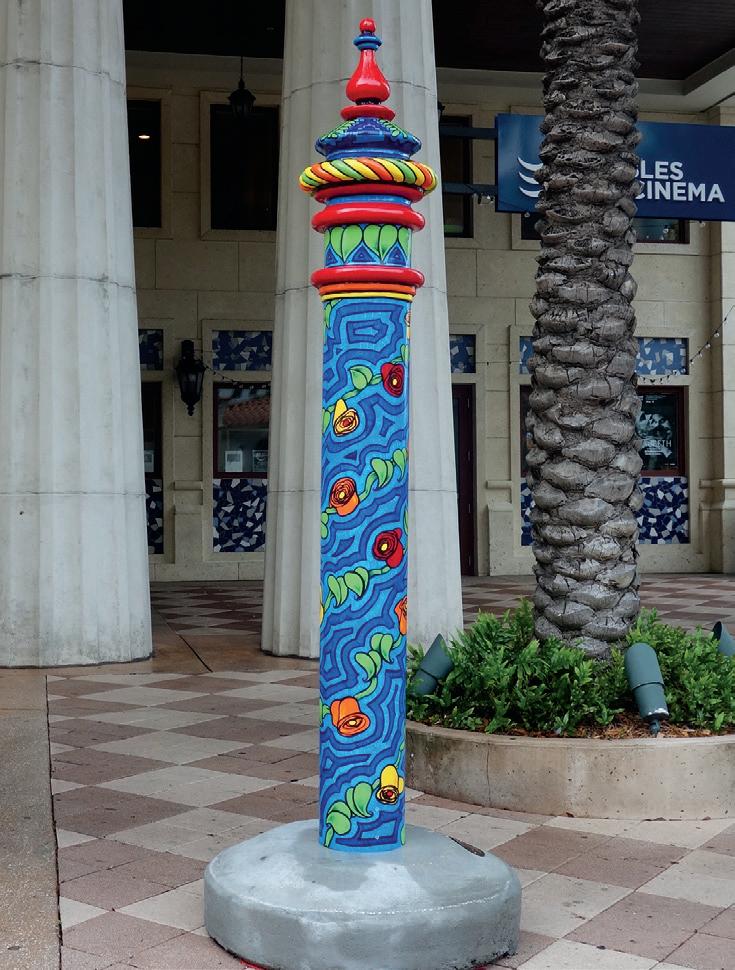
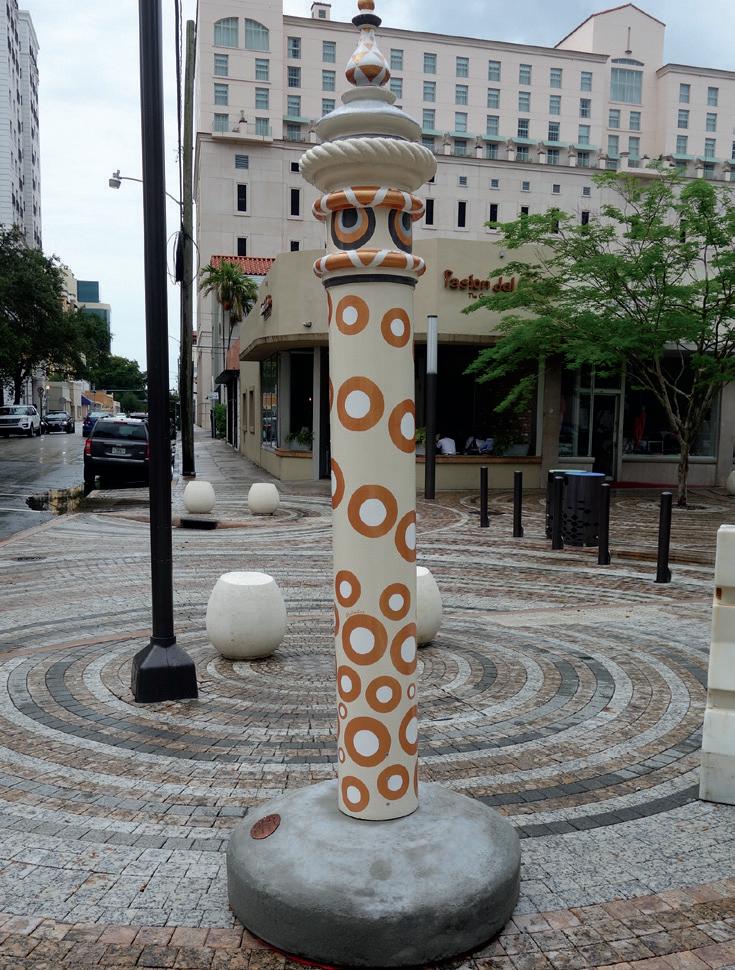
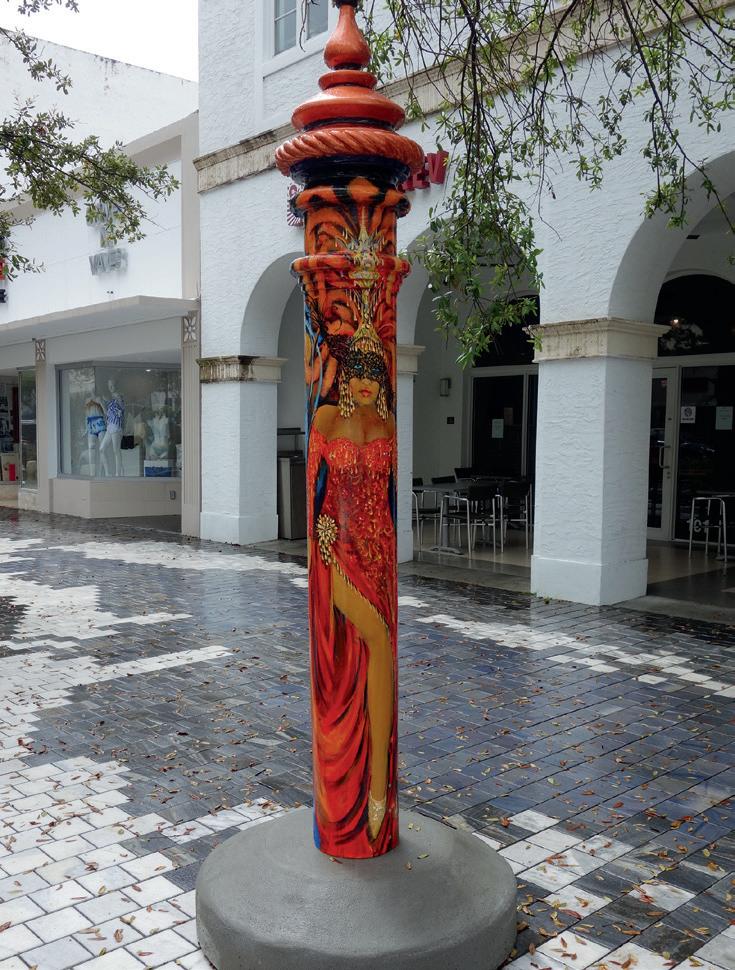
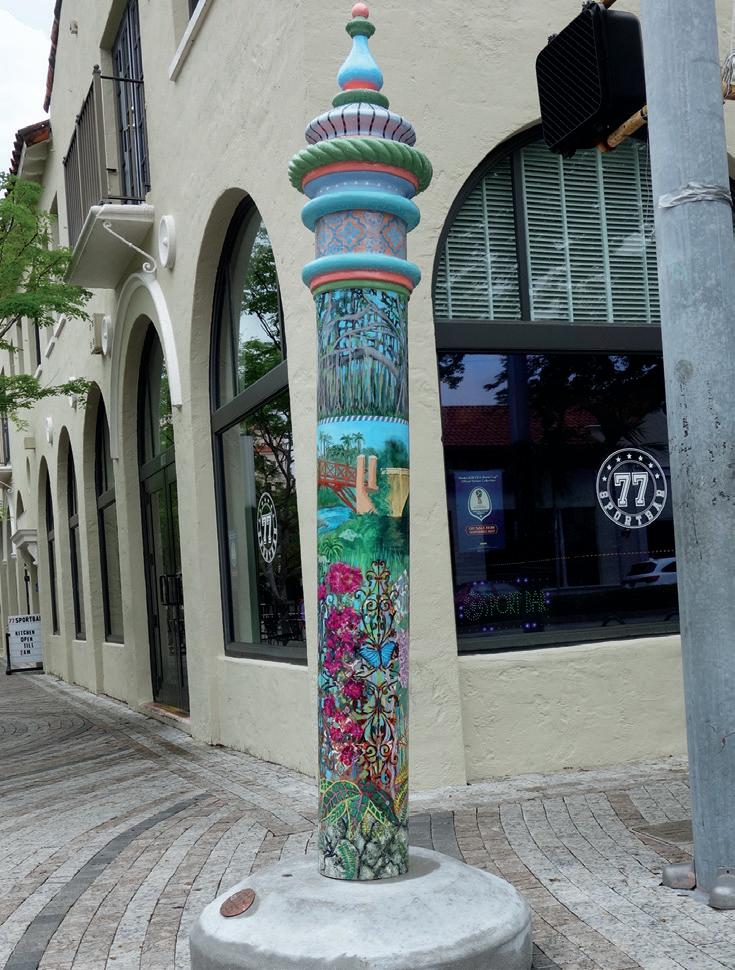
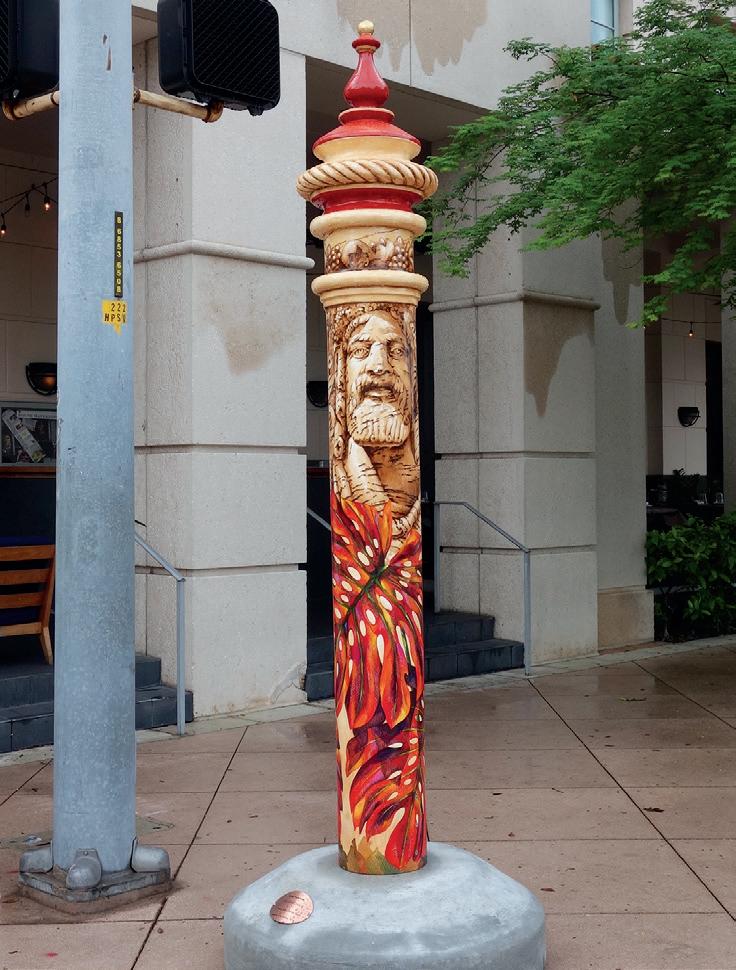
Spanish Boots
FLAMENCO DANCING IS ALIVE AND WELL ON SATURDAY NIGHTS
By day it is a narrow restaurant with painted walls of dark orange, peacefully serving traditional tapas with a tilt toward the northwest region of Spain – which means more things like fried, whole anchovies or peppers stuffed with black squid rice. But on Saturday nights it’s raucous and packed with fans of flamenco. A small stage at the end of the restaurant lights
up with (most recently) the trio Tres a Compáss, pounding (and clapping) out spirited, floor-stamping dance, along with high-spirited guitar and song that a Gypsy King would admire. Reservations are suggested for this slice of deepest España. And don’t forget to order the crunchy eggplant slices drizzled with honey. La Taberna Giralda, 254 Giralda Ave. 786.362.5677
Master Pianist W(h)ine About It
Who among us hasn’t heard a prelude, étude, nocturne, or waltz by the famous Polish piano composer Frédéric Chopin? Now is your chance to soak up more of his 19th century genius at UM’s Gusman Concert Hall. While there will be performances all week, the big events are Friday and Saturday nights, June 29 and June 30. That’s when

the stars of the Frost Chopin Academy will perform two concerts for free. The first will be primarily piano, but the second – and grand finale – night will witness the performance of a Chopin piano concerto with the help of the Amernet String Quartet.
The music plays from 7:30 p.m. to 9 p.m. both nights. 305.284.6168.
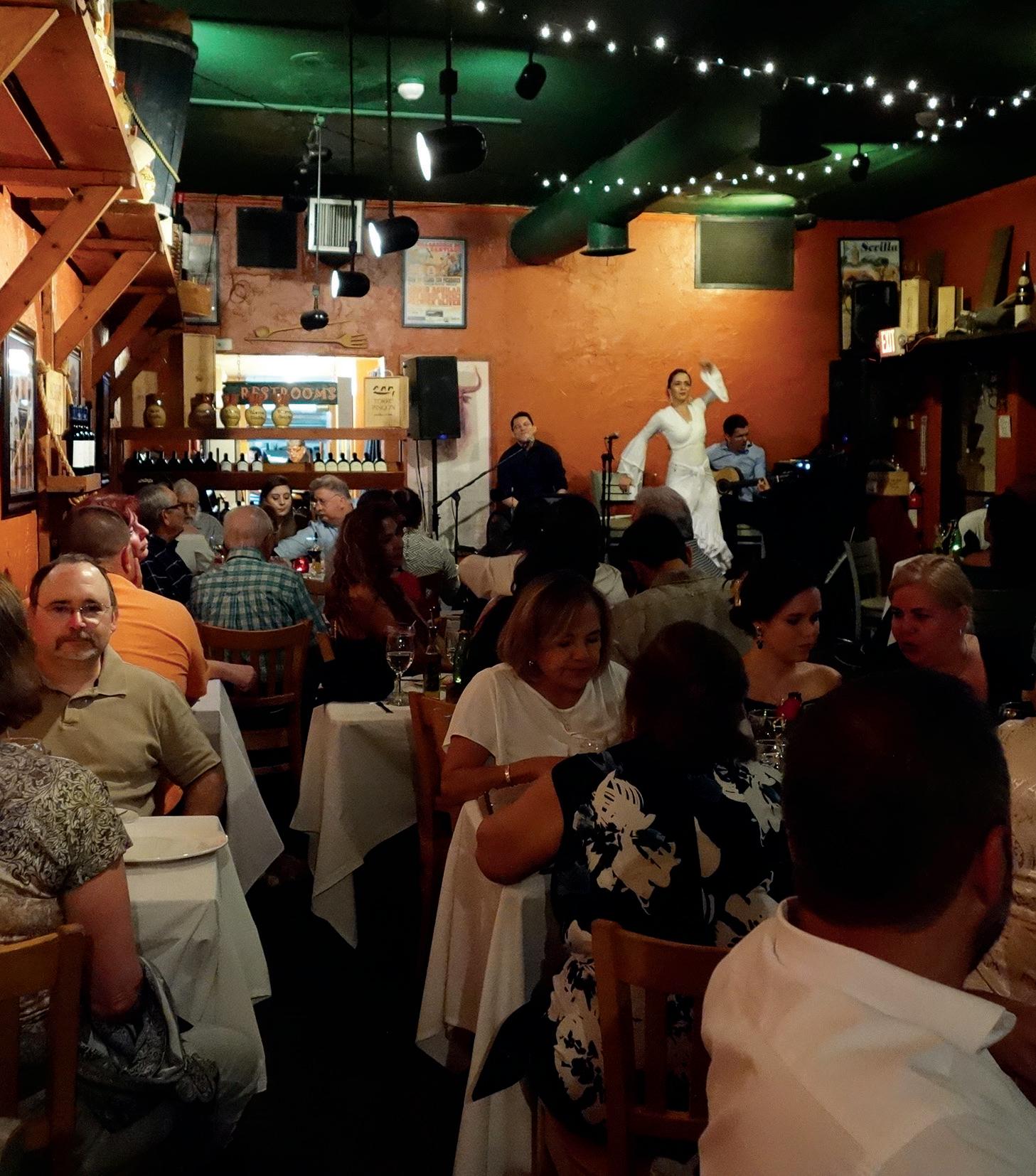
Whether you’re a connoisseur or tend to play it safe and stick to rosé, this event is suited for wine drinkers of all kinds. Travel to wine regions around the world without leaving Miracle Mile during the Coral Gables Wine Walk. Pick up your wine glass at Kettal Furniture Showroom and stroll through The Mile, where you will find designated tasting
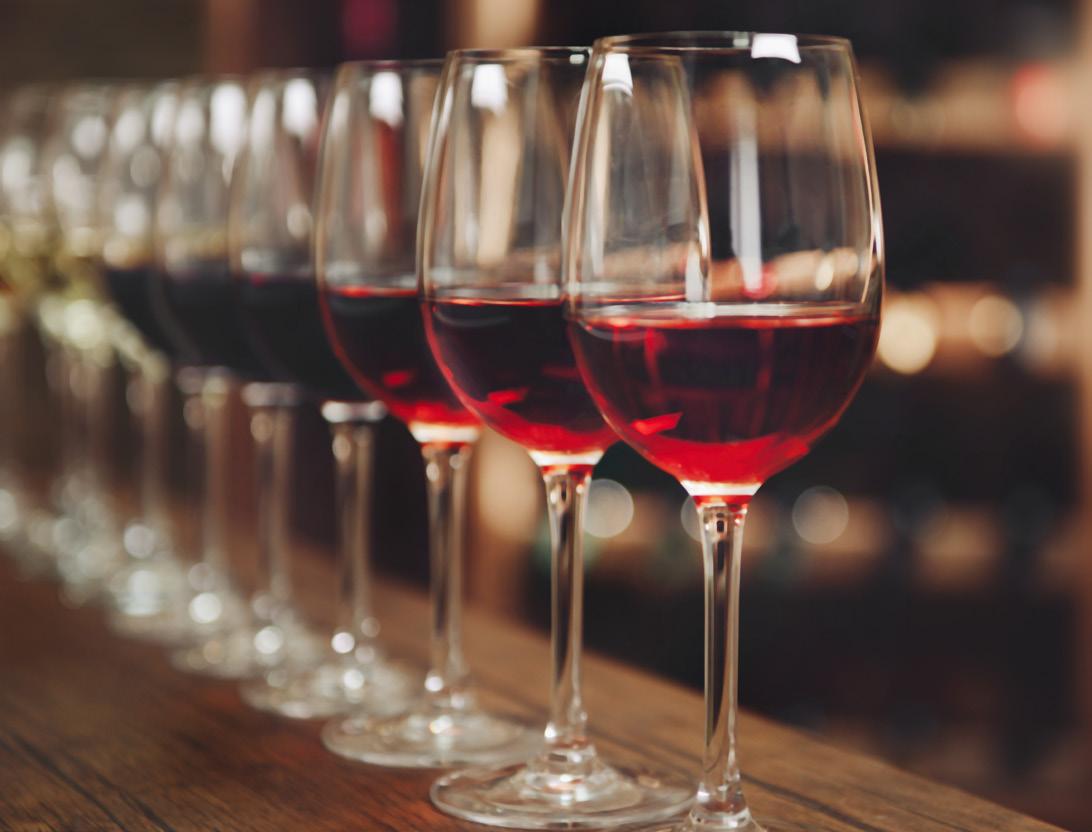
stops and special offers, promotions and prizes from participating stores, including Jae’s Jewelers, Pilates ProWorks and Wolfe’s Wine Shoppe. Tickets will not be sold at the door, so be sure to register on Eventbrite in advance (just Google “Coral Gables Wine Walk”).
Thursday, June 28, 5–8 p.m. Kettal Furniture Showroom, 147 Miracle Mile. $45.



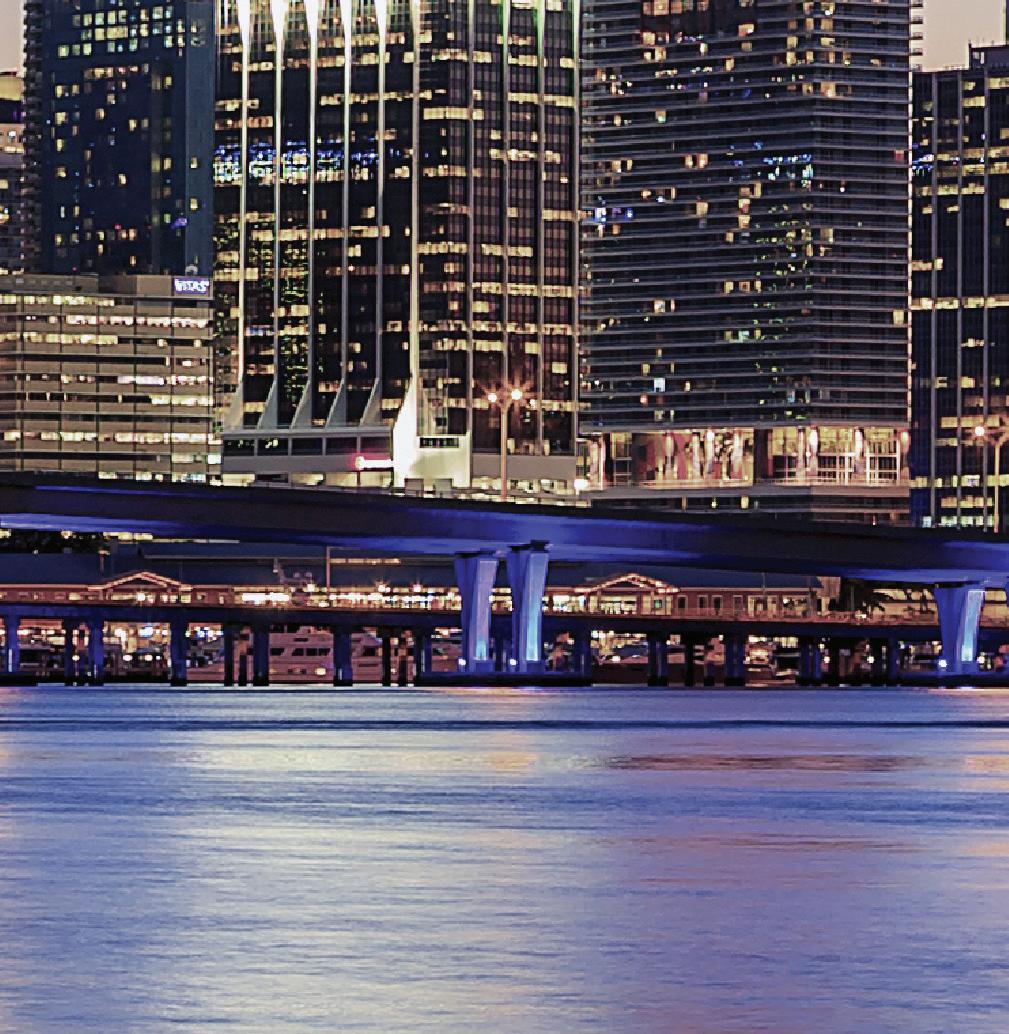
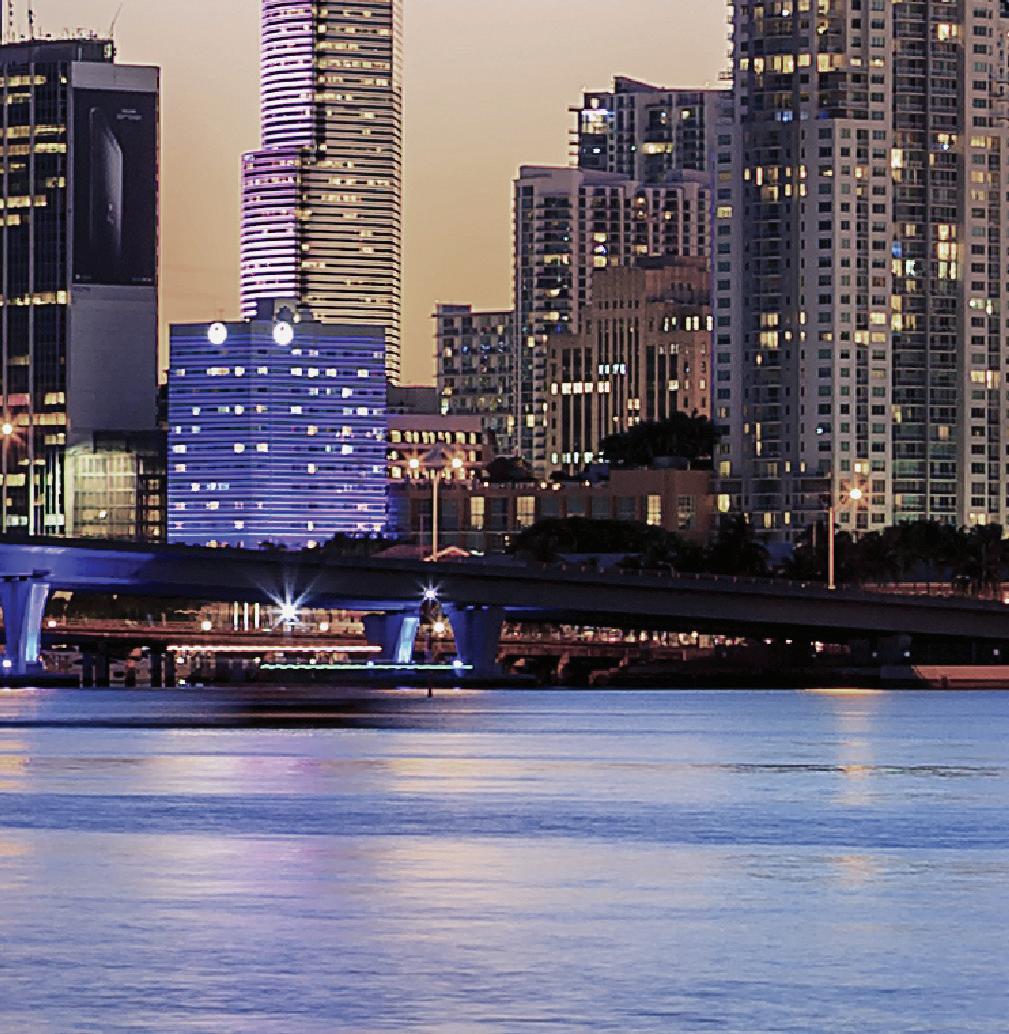
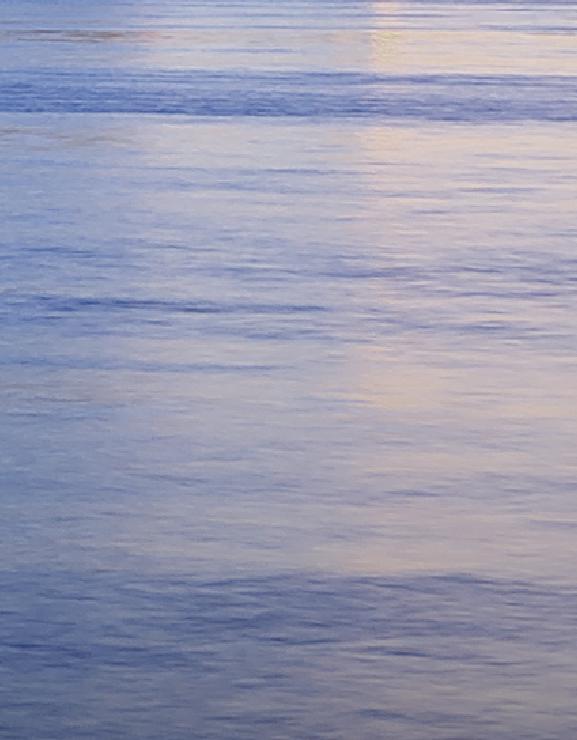

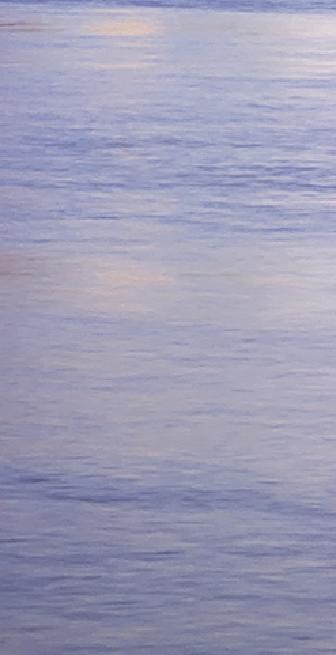
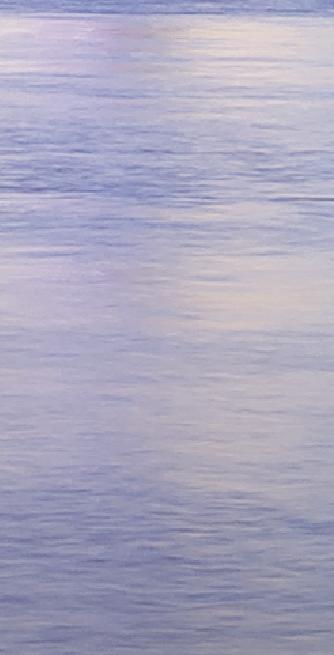
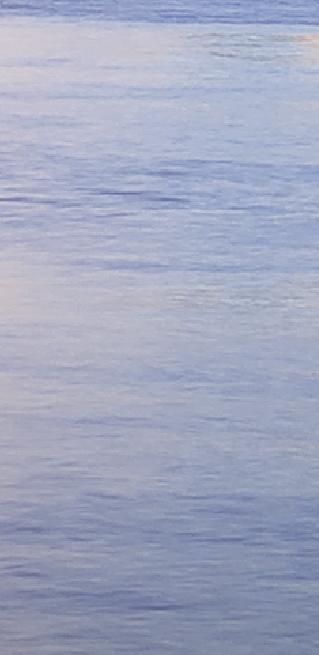
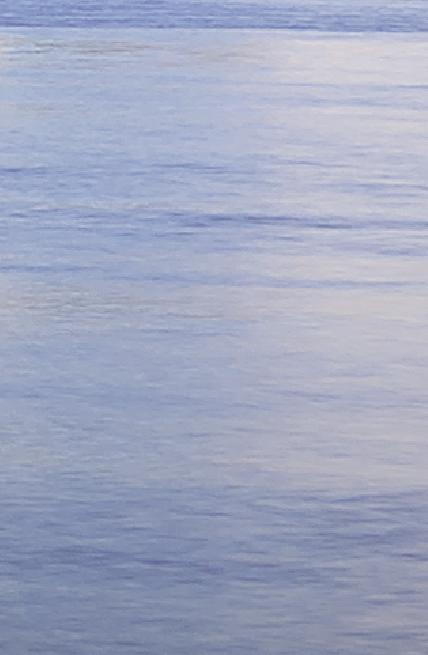
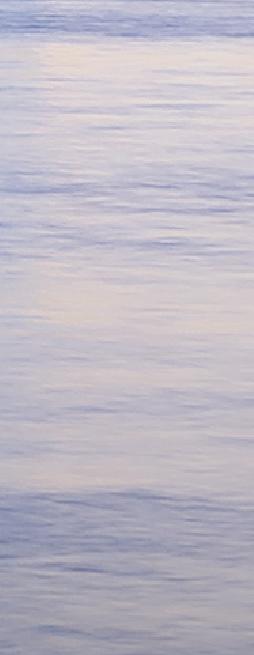
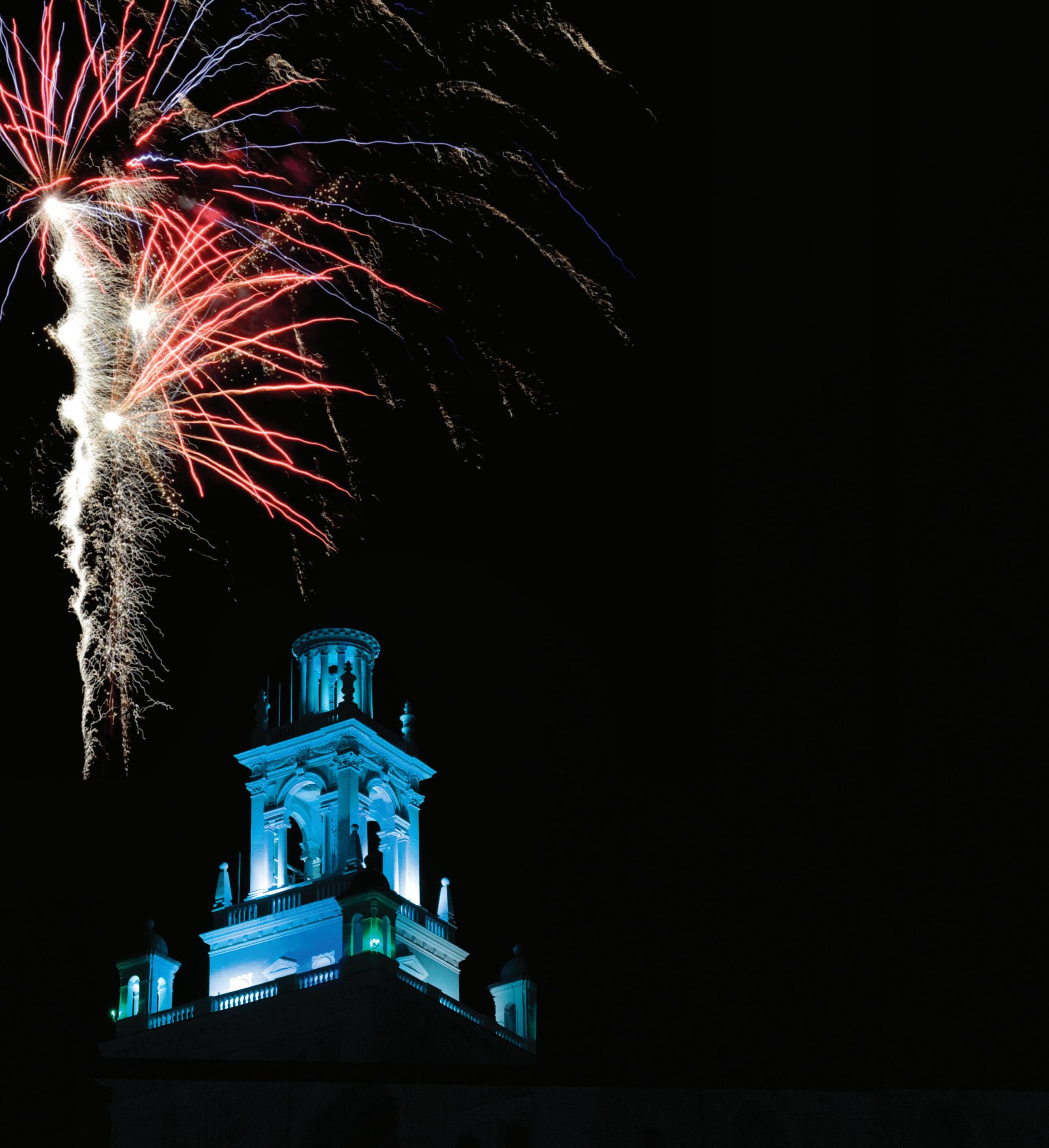

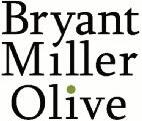

People p36 David Hernandez
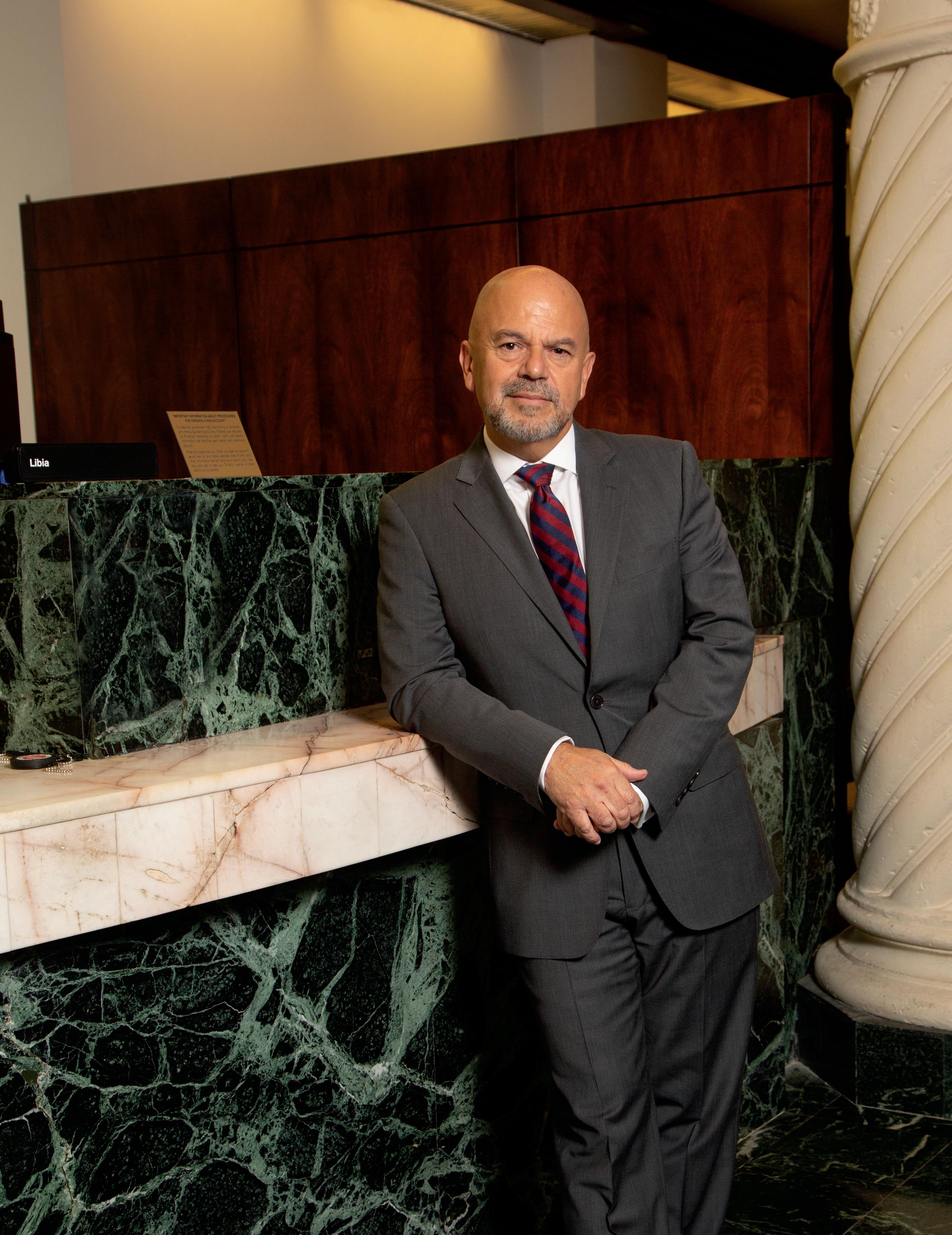
FIBA was first formed in 1979 to foster and support international banking in Miami, and along with that international trade, primarily in the Americas. Today it has 61 member banks and 51 members from ‘allied professions’ – i.e. lawyers, accounting firms, etc. Originally from New York, David Hernandez has worked for eight years as Chief Risk Officer at BAC, a Coral Gables-based bank with $2 billion in assets. In this role, his familiarity with international risk management and compliance with U.S. banking regulations made him the perfect candidate to chair FIBA for the coming year.
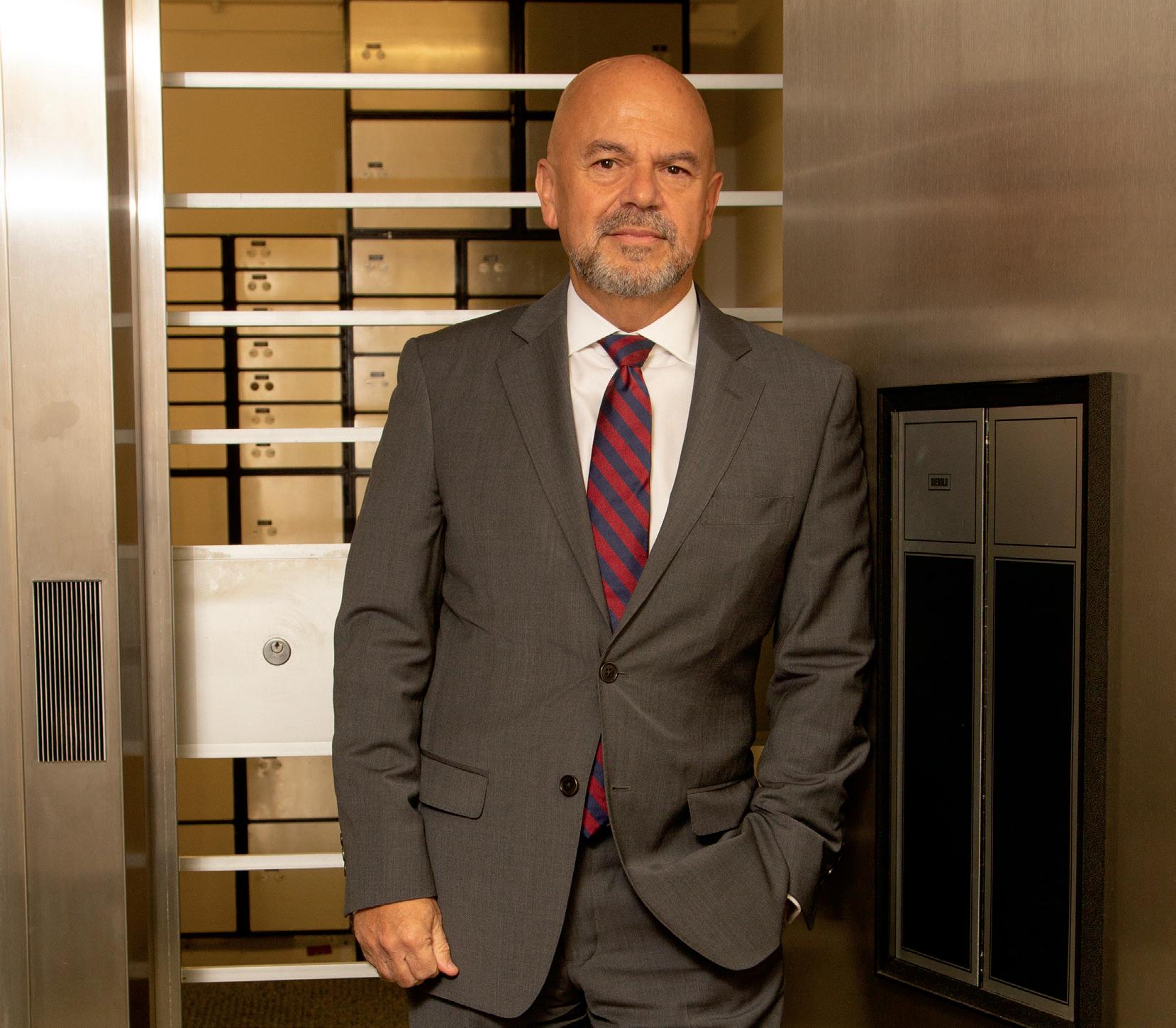

David Hernandez
WHAT HE SAYS

“As Latin American economies begin to mature, and offer as much export as import opportunities, they have to go through a bank to finance that international trade. We see fostering this as a noble cause. If we can facilitate international trade between Latin America and the U.S. [now $1.6 billion annually] we are helping the economies of the region,” Her-
nandez says. When it comes to regulatory compliance, “We [FIBA] are the thought leaders in anti-money laundering and cyber security.

In the world of international banking, we support the rule of law and the fight against money laundering and corruption – and that will be good for all the economies and people of the hemisphere.”

We are the thought leaders in anti-money laundering and cyber security




Christine Arce
UM’s Department of Modern Languages and Literatures
hired Dr. Arce in 2008 to broaden its regional focus, teaching students about another Latino community in South Florida that has consistently flown under the radar: the Mesoamericans. Growing up in Los Angeles, Arce made frequent visits to her father’s native Mexican homeland. That experience contributed to her doctoral studies at University of California Berkeley, and today helps her build a more relatable Mesoamerican curriculum around literature, music, movies, and art from that heritage.
LATEST ACHIEVEMENT WHAT SHE SAYS
Recently published the book, “Mexico’s Nobodies: The Cultural Legacy of the Soldadera and Afro-Mexican Women”
“There’s a cultural competency [in Miami] that’s always mitigated by the Cuban experience,” says Arce. “Mexico is part of the greater Caribbean, so what I’ve done with the students is put Mexico into a larger context that they know.”
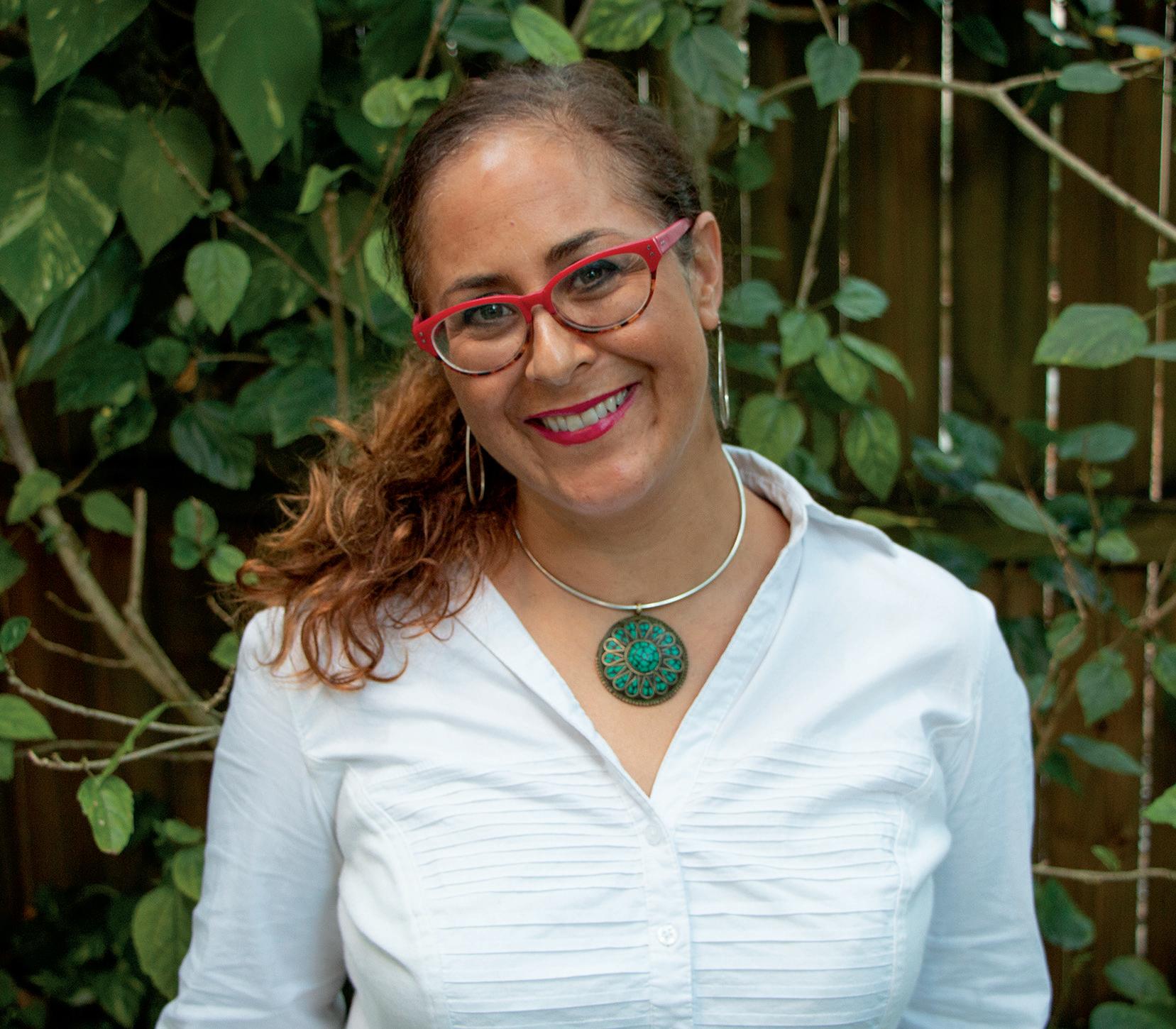
At the classroom level, she’ll present her research by playing Mexican music, such the 1958 rendition of “La Bamba” by Richie Valens.
“I’ve developed community engagement courses that align Latin American migration with actual practicum in the field, where students are translating for undocumented workers or people seeking to regularize their immigration status,” says Arce, noting that Mexican and Central American migrants pick Florida’s produce, clean its hotels, and clear its tables.
Reported by Julienne GageWhat I’ve done with the students is put Mexico into a larger context that they know...
Dr. Castellanos
Tony Villamil is a nationally recognized economist who founded the Coral Gables-based Washington Economics Groups (WEG) in 1993. He was the founding Dean of the School of Business at St. Thomas University from 2008 to 2013, afterwhich he returned to the WEG as senior advisor. He is also the immediate past Chairman of the Governor’s Council of Economic Advisors for Florida, and previously served as Undersecretary of Commerce under President George H.W. Bush. He is a long-time resident of Coral Gables.
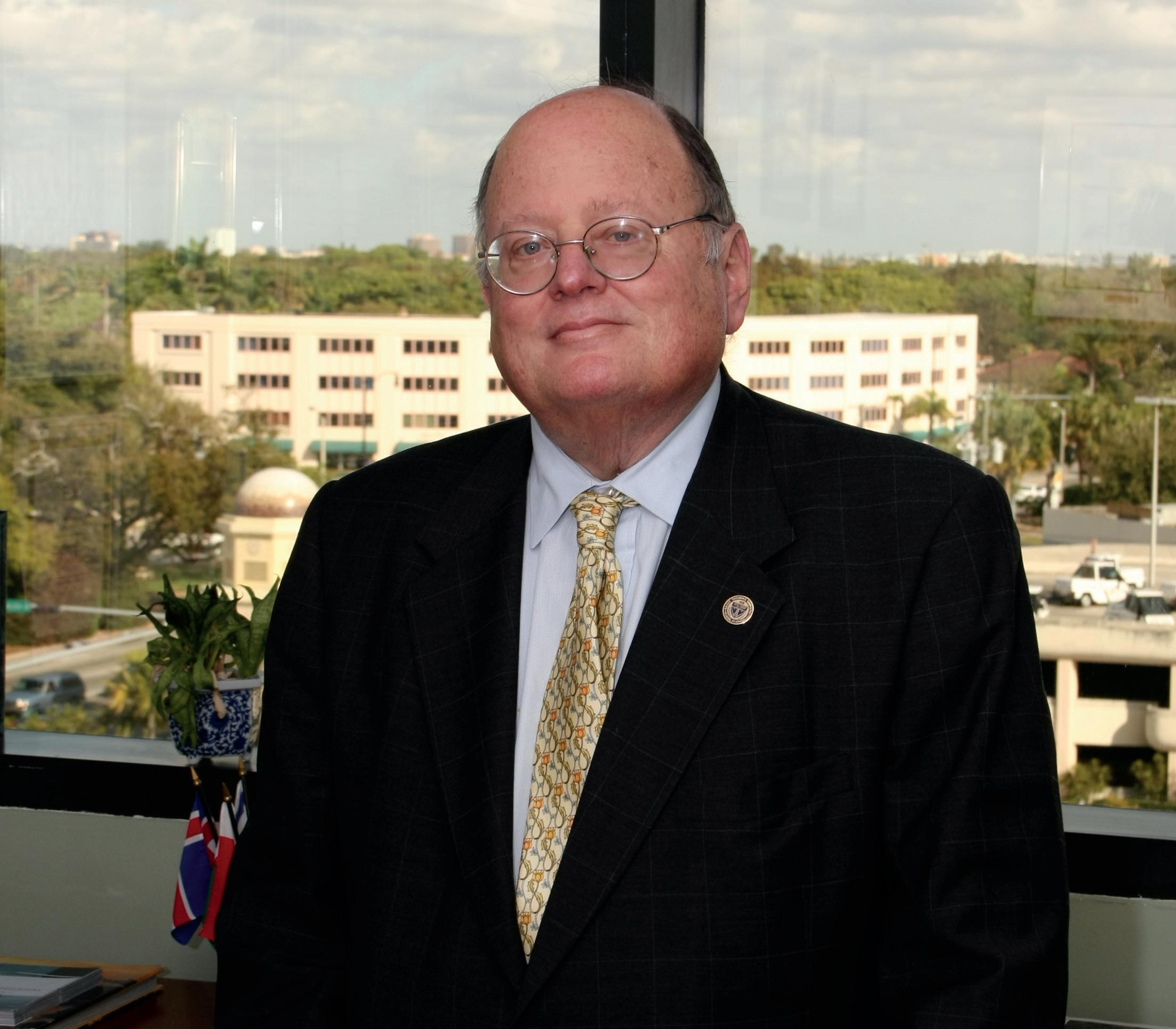
J. Antonio Villamil
FOUNDER & SENIOR ADVISOR, WASHINGTON ECONOMICS GROUP
LATEST ACHIEVEMENT
Recently produced a report on the economic costs of Florida
Gov. Rick Scott’s 2011 fasttracked law to require a 5-year waiting period for non-violent offenders to have their civil rights restored. An amendment to end the law is up for a vote in November.
WHAT HE SAYS
“The Washington Economics Group estimates that passing Amendment 4 would result in important positive economic benefits to Florida taxpayers,” says Villamil.
“These benefits will come from two sources: reduced court and prison costs through a decline in the recidivism of eligible individuals who have completed all the terms of
their sentences, and increased earning power for them through improved employment opportunities. ” Villamil and the WEG estimate that if Amendment 4 is passed, it will have a positive economic impact of $365 million per year – $223 million from reduced court and prison costs, and $143 million due to increased income from 3,800 new jobs.
Passing Amendment 4 would result in important positive economic benefits to Florida taxpayers.
First cast in 1974, production initiated in 2002 at Fundición R. Buchhass (inscribed with foundry mark).
Exhibited in Mario Carreno - Retrospective Exhibition, 1939-1993, Museo de Artes Visuales, Santiago de Chile, Chile, March-May 2004, and illustrated in the catalog, page 54.
Illustrated in Important Cuban Artworks, Volume Nine, Cernuda Arte, Coral Gables, Florida, November 2010, page 70.
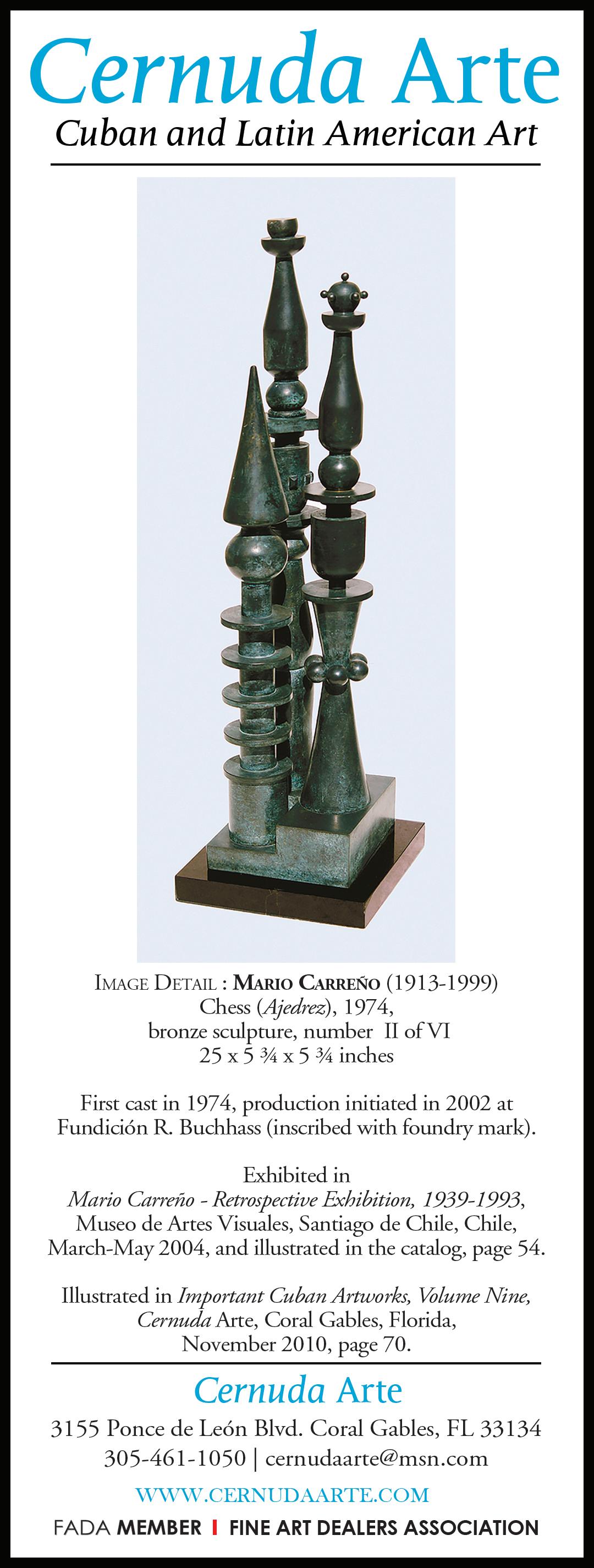
A Portrait of the Artist as a Gables Resident
CORAL GABLES IS KNOWN FOR ITS ART GALLERIES, BUT WHAT ABOUT ITS ARTISTS?
IN THIS FEATURE, WE PROFILE FOUR VISUAL ARTISTS WHO LIVE AND WORK IN THE CITY AND HAVE BEEN FEATURED IN ITS GALLERIES, GARDENS, UNIVERSITIES OR PRIVATE COLLECTIONS. TWO OF THE ARTISTS COME FROM CUBA, ONE FROM VENEZUELA AND ONE FROM JAMAICA. ALL FOUR APPRECIATE CORAL GABLES FOR ITS WALKABILITY, GREENERY, CULTURAL OFFERINGS AND DIVERSITY. ALL WORK AT LEAST PART-TIME FROM THEIR HOMES. HERE ARE OUR CONVERSATIONS WITH THE FOUR ARTISTS... IN THEIR OWN WORDS
 By Doreen Hemlock
Photography by Jon Braeley
By Doreen Hemlock
Photography by Jon Braeley
Patricia Van Dalen
Ideas on art: “I celebrate colors, lines and forms in space and the infinite ways you can combine them. All my works have a sense of joy behind them – joy that we have colors and can differentiate blue from green from orange, can see lines horizontal and vertical, can distinguish a square from a circle, and we can find this everywhere, all over the world.
“I’m interested in finding as many ways as possible to create something new from scratch – from a white canvas, white paper, a sheet of aluminum or wood – by combining colors, lines and forms. I’ve been working for more than 35 years in different media and series. I can be working simultaneously large canvases in a very expressive way, with gestures, and small pieces with geometric forms. I use a vocabulary that has common elements. It’s all abstraction.”
Pictured with When in Les Masses 08, 36 inches by 72 inches, acrylic on canvas, $21,000: “This work is part of a series from 2017 after an unexpected trip to a chalet in Switzerland in Les Masses. It holds all the energy and power from that spectacular gift. I never dreamed of being in such a pristine landscape in winter. I fell to my knees it was so beautiful. I was in a state of indescribable joy.
“The work is an abstraction of the landscape with snow, pines, signs for the skiers and a blue in the sky I’d never seen before, a new blue. It’s very informal, made with gestures, [painted not with brushes, but] with my hands only. It’s expressionist like my previous work before I became more geometric.”
BORN: Maracaibo, Venezuela in 1955.
EDUCATION/TEACHING: Graphic design at Venezuela’s Instituto de Diseño Fundacion Neumann; Trained in Paris with kinetic artist Yaacov Agam from 1980-86. Has taught at the Universidad Central de Venezuela.
KNOWN FOR: Abstract, often colorful work in painting, collage, site-specific installations and diverse media. Venezuelan works feature a nearly kilometer-long tile mosaic on Prados del Este highway.
IN CORAL GABLES: Since 2015.
WEBSITE: www.patriciavandalen.com
LAST EXHIBIT: Abstract Cabinet, with artist Emilio Narciso, at Imago Art in Action in Coral Gables through June; Ride the Rail solo show at ArtMedia Gallery in Wynwood, 2017.
Top: Installation at Luminous Gardens. 2003


I’m
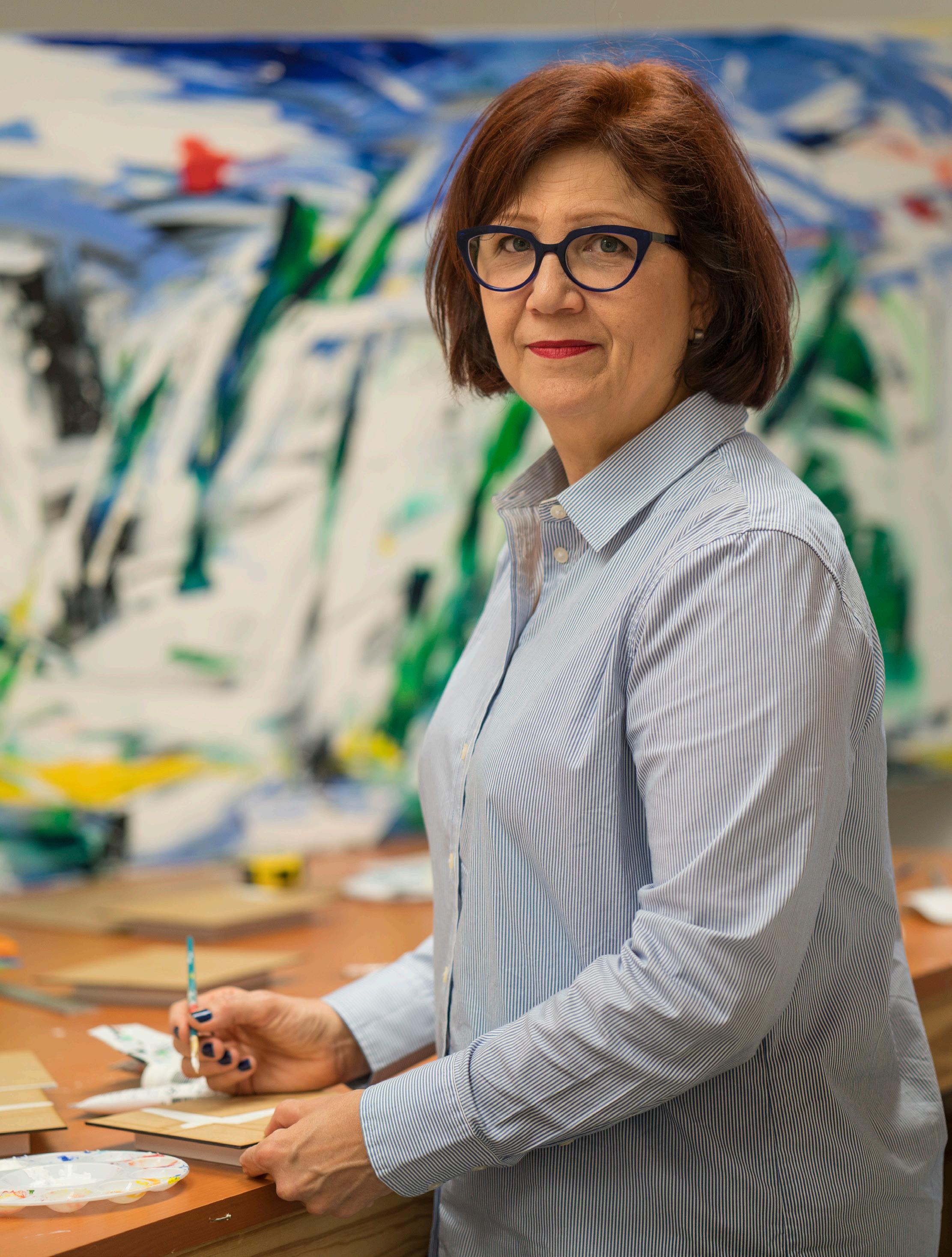
interested in finding as many ways as possible to create something new...
Ruben Torres Llorca
Ideas on art: “If you go to the doctor with a pain in your chest, he’ll tell you the cause – cardiovascular, muscular – and what medicine to take. I work the same way with what worries me or interests me. The idea tells me how to do the piece. Sometimes, it needs photography, painting or a three-dimensional sculpture. And I follow very strict rules. [American writer] William Faulkner once said in art, ‘You must kill your darlings.’ So, I don’t get married to any craft, no matter how pretty it may be.
What interests me most is not to tell you my opinion, but just to create a space where we can question together some subjects. It’s like I create this bull arena, I let the bull go out, and you need to deal with it – to the point where sometimes, I don’t recognize a piece I did 15 years ago.”
Pictured with Better Days Ahead, 86 inches by 86 inches, mixed media, $25,000: “This is a very simple piece. At first glance, it’s very comfortable. I paint it like a 1950s illustrator, sort of Norman Rockwell. (I studied 11 years in a Soviet academy in Cuba to avoid the military.) But at some point, you realize life is not that pretty. So, I tried to create a dramatic arc like in literature, some type of paradox, by saying ‘Better Days Ahead,’ because this one is horrible. They’re running scared, trying to find a better future. The newspaper in the background is a reference to the crazy amount of information we have - to the point that we get lost in it. The round, floating shapes show this piece is not as solid as you think, art need not be forever, this piece is alive, this is going to change.”
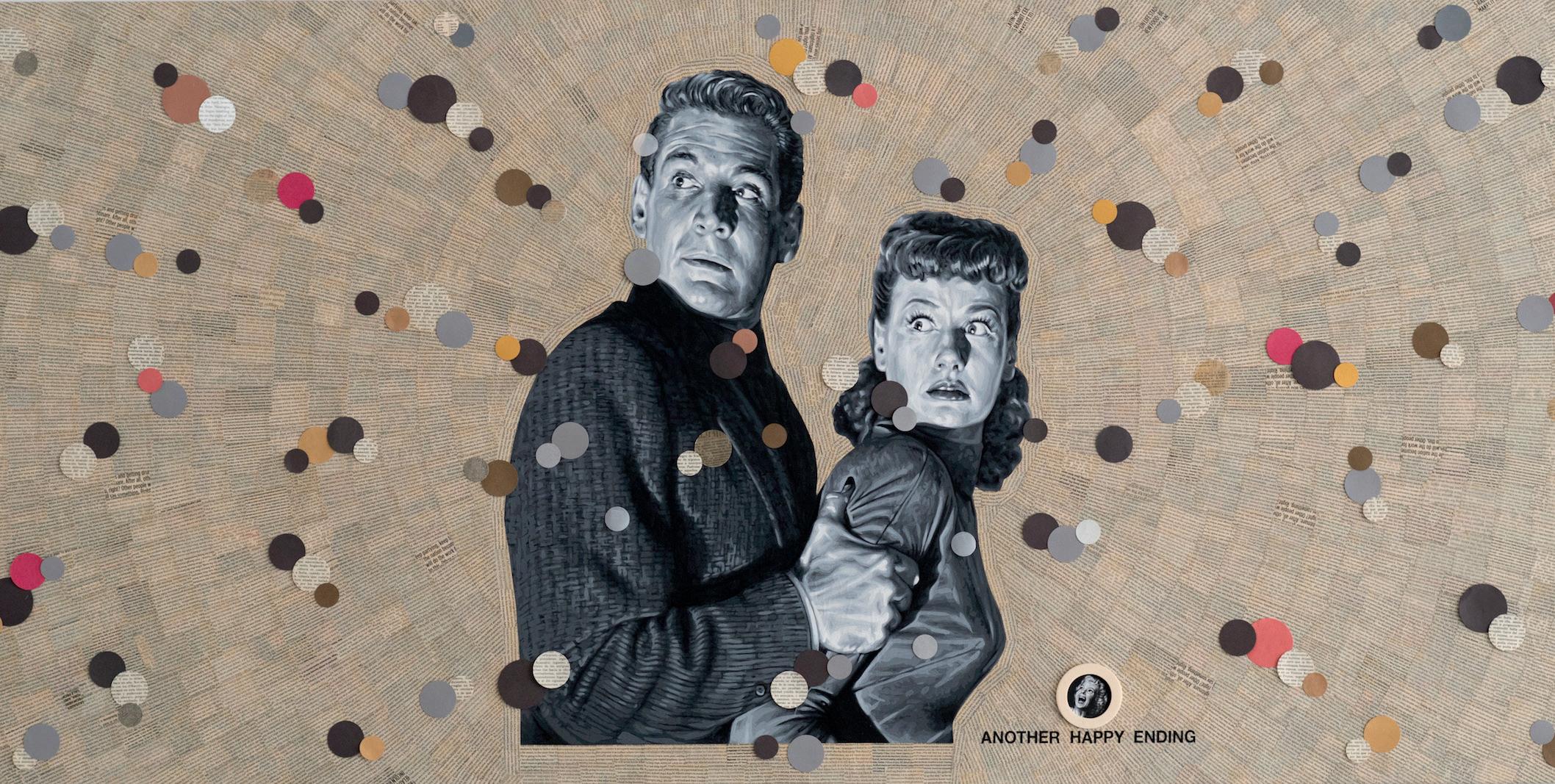
BORN: Havana, Cuba in 1957.
EDUCATION: Cuba’s top art schools, Escuela Nacional de Bellas Artes San Alejandro from 1972-76 and Instituto Superior de Arte from 1976-81.
KNOWN FOR: Painting, drawing, sculpture and collage, often with social commentary and wit.
IN CORAL GABLES: Since 2004. In the US since 1993. Also lived in Cuba, Mexico, Brazil and Argentina.
WEBSITE: www.condecontemporary.com/ ruben-torres-llorca-1
LAST EXHIBIT: “New Works: Ruben Torres Llorca” at Conde Contemporary in Coral Gables, 2017.
Top: Another Happy Ending, 72x32 inches. 2014
What interests me most is not to tell you my opinion...
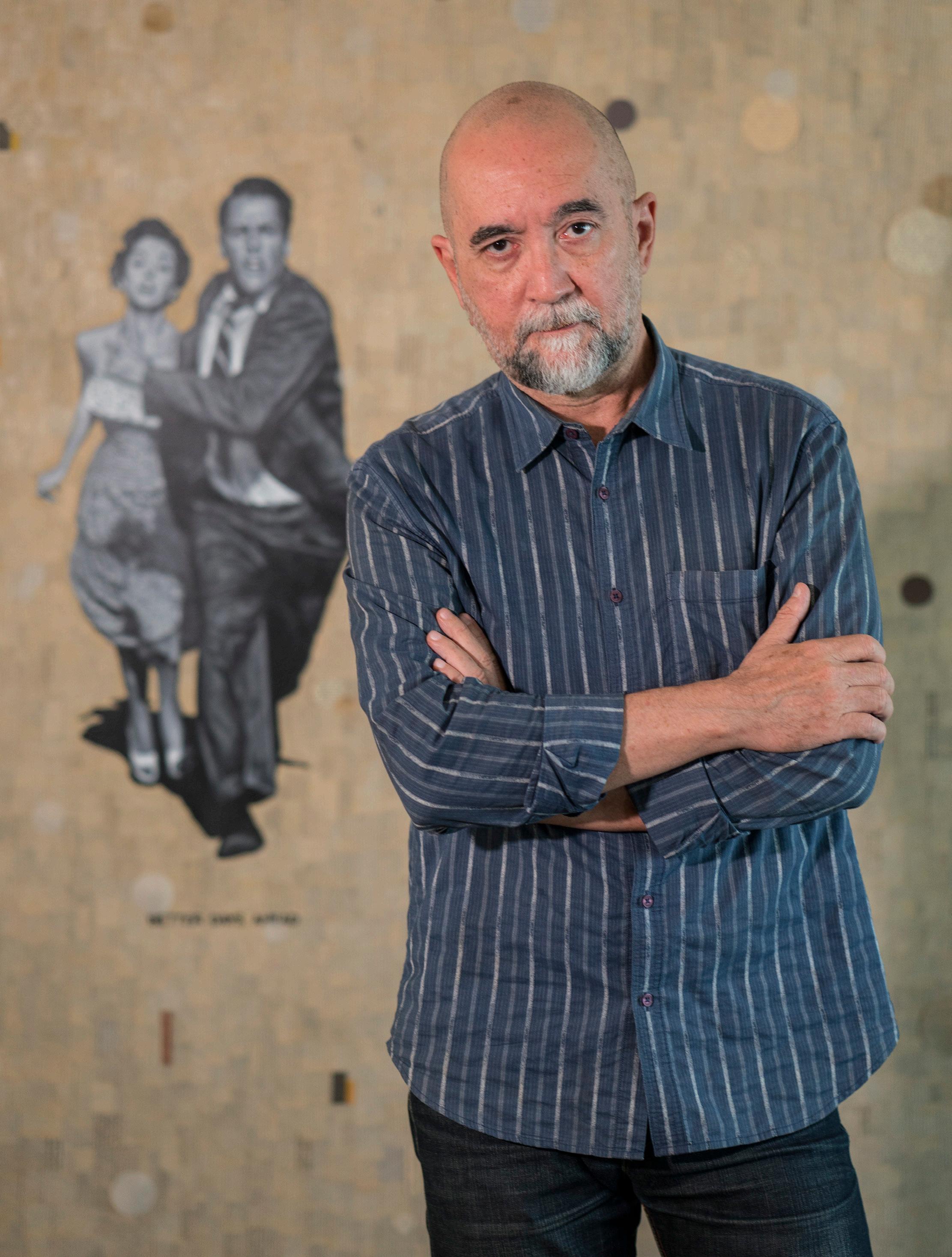
Aurora Molina
Ideas on Art: “My dad is a painter, so becoming an artist, I had to find my own identity. I found a voice in fibers and textiles, which have been linked to women’s history, to quilting circles. You can narrate the history of the world through textile trading. I really got engaged in drawing with thread and painting with thread. And with that, I travel around the world, work with artists and learn about cultural heritage. I’ve done projects in India, Indonesia, Morocco and Mexico. For the past three years, I’ve been going to Europe. I’m seeing how colonization has informed other cultures. For example, in Mexico, you get the hand embroidery from the Spanish, when really their tradition was weaving.
Pictured with Seven Years of Dreams and Nightmares, 60 inches by 55 inches, fiber art, not for sale, similar pieces $9,000: “This piece is about my first seven years adjusting and trying to find comfort in a new place, after we arrived from Cuba. It started with the doodles I made on the first pillow that I got here. Some writings are in Spanish. I made those doodles into embroidery on the pillow I used to sleep on. The spider-web part is the weaving of the dreams, all the connectedness. The chain is crochet of the days in those years – 365 times seven. The burlap is a reference to the fabric you’d find in Cuba for coffee or sugar. I cried every day when I first got here. This is about meeting the end to those years.
“All my work in the beginning was trying to detach from my dad. His painting uses a lot of vibrant colors, it’s whimsical and has magic realism. My early work was monochromatic. When I went to Mexico and India, color started to come in, because color there just hits you.”
BORN: Nueva Paz, Cuba in 1984.
EDUCATION/TEACHING: Coral Gables High School. Miami-Dade College, Associates in Art and Photography; Florida International University, BFA; Spain’s Universidad Europea de Madrid, Master in Contemporary art in 2009. Also teaches, including workshops this summer at Bakehouse Art Complex, Miami.
KNOWN FOR: Fiber art and soft sculpture, often with cultural commentary.
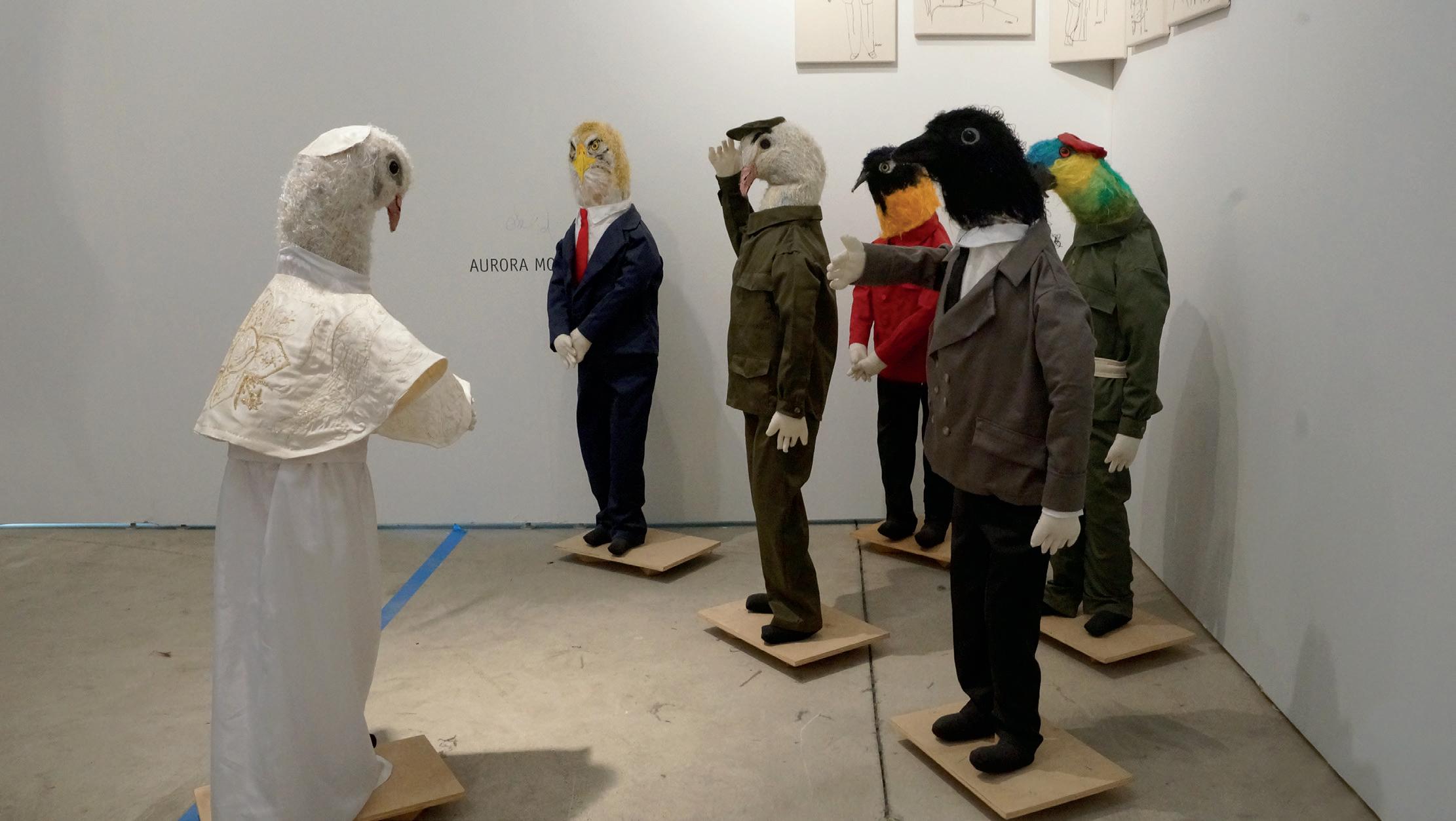
IN CORAL GABLES: Intermittently since 2001. Also lived in Spain and has done residencies in Mexico, India, Indonesia, Morocco and other nations.
WEBSITE: www.auroramolina.com.
LAST EXHIBIT: Group shows this summer include Rocking Chair Sessions at Bakehouse, Miami; Solo show The Decline of Rationality in American Politics, Bernice Steinbaum Gallery, Miami, 2018.
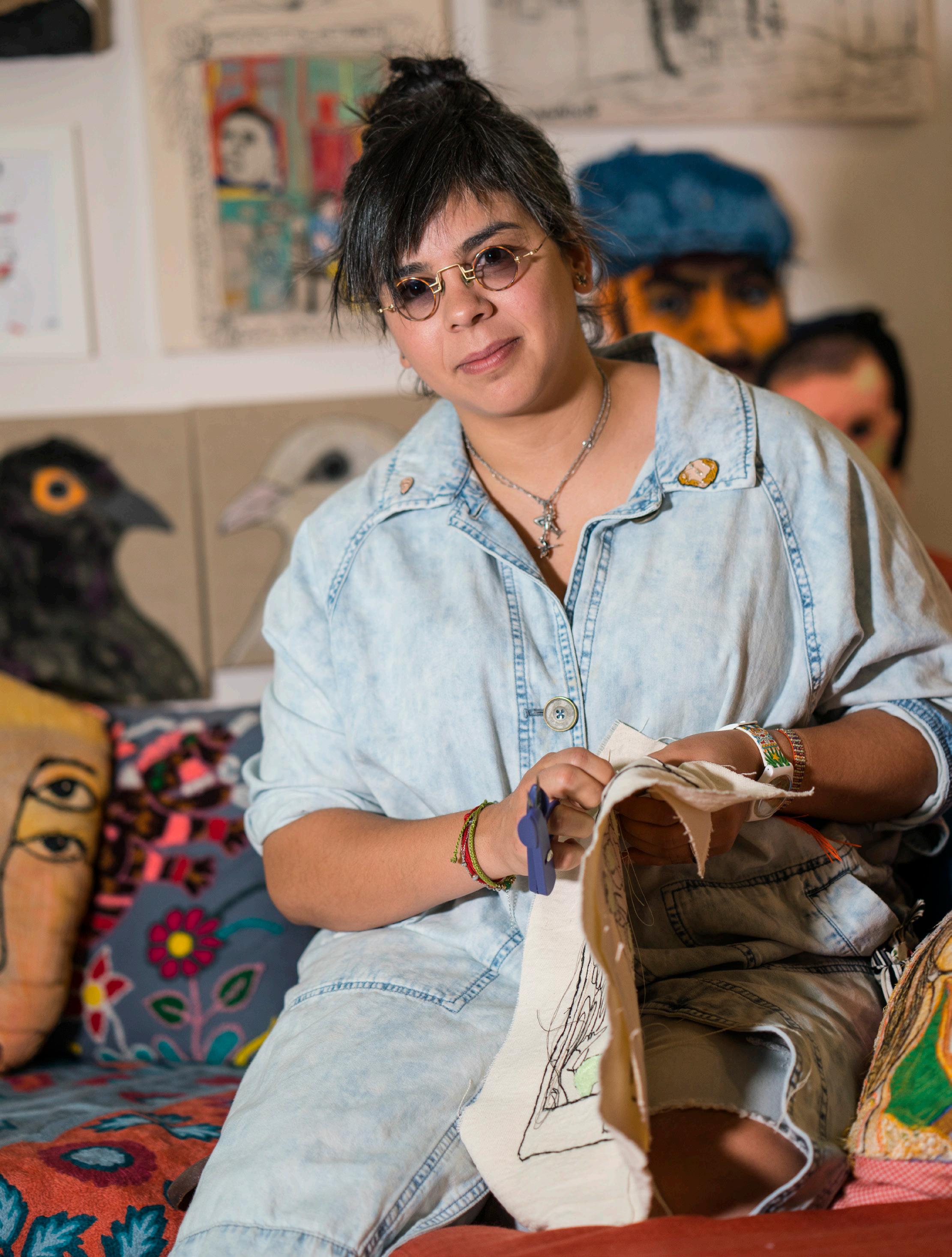
I found a voice in fibers and textiles, which have been linked to women’s history...
Jacqueline Gopie
Ideas on Art: “Having come to art late, I had a long time to think and observe. There’s not a lot of imagery of young, black children simply playing that doesn’t disclose their socio-economic environment. It’s often about kids in the ghetto. And the majority of ways that black people are portrayed in the media are negative.
“My background in the Army was nursing, so I have some understanding of physiology. The way your visual cortex works is to simplify information, to process it quickly to survive. So, when you see repeated negative images of black people, your response to black people becomes negative.
“With my art, I’m creating a different image, a counter to the negative. I’m keying into a time in everyone’s life that is pure and innocent – childhood, seaside. What could be more delightful! I want to change the narrative.”
Pictured with Jamaica Day at Port Royal, 72 inches by 36 inches, acrylic on canvas, $8,000: “I went with my sister to Port Royal on Jamaica Day, and all these schoolkids were there, dressed up in shorts and T-shirts in Jamaican flag colors. There had to be 20 busloads of kids running around. This one little group of boys was off to the side of the fort. I usually take photographs of kids from a distance, and I try to get a group, so I can move the images around and paint them later. This group was chasing each other around a tree, and the way the light was hitting them, it looked like they were glowing. What I wanted to capture was the light in their movement. I added a mineral called pearl mica in the paint, which helps create the illusion of light shimmering.”
BORN: Kingston, Jamaica in 1960.
EDUCATION/TEACHING: University of Miami, BFA in 2005 and MFA in 2012.
Mentored by late professor Walter Darby Bannard. Has taught at UM.
KNOWN FOR: Painting, often using color in broad strokes and portraying black children playing seaside.

WEBSITE: www.jacquelinegopie.com
IN CORAL GABLES: Since 2002. In the US since 1972. In U.S. Army for 21 years.
LAST EXHIBIT: Pleasure and Play solo show, Wirtz Gallery, South Miami, 2018.
Top Left: Foot Race, 78x93 inches. 2018
Top Right: Girl in White, 9x3 inches. 2018
Page 49: Into the Big Blue, 40x28 inches. 2018

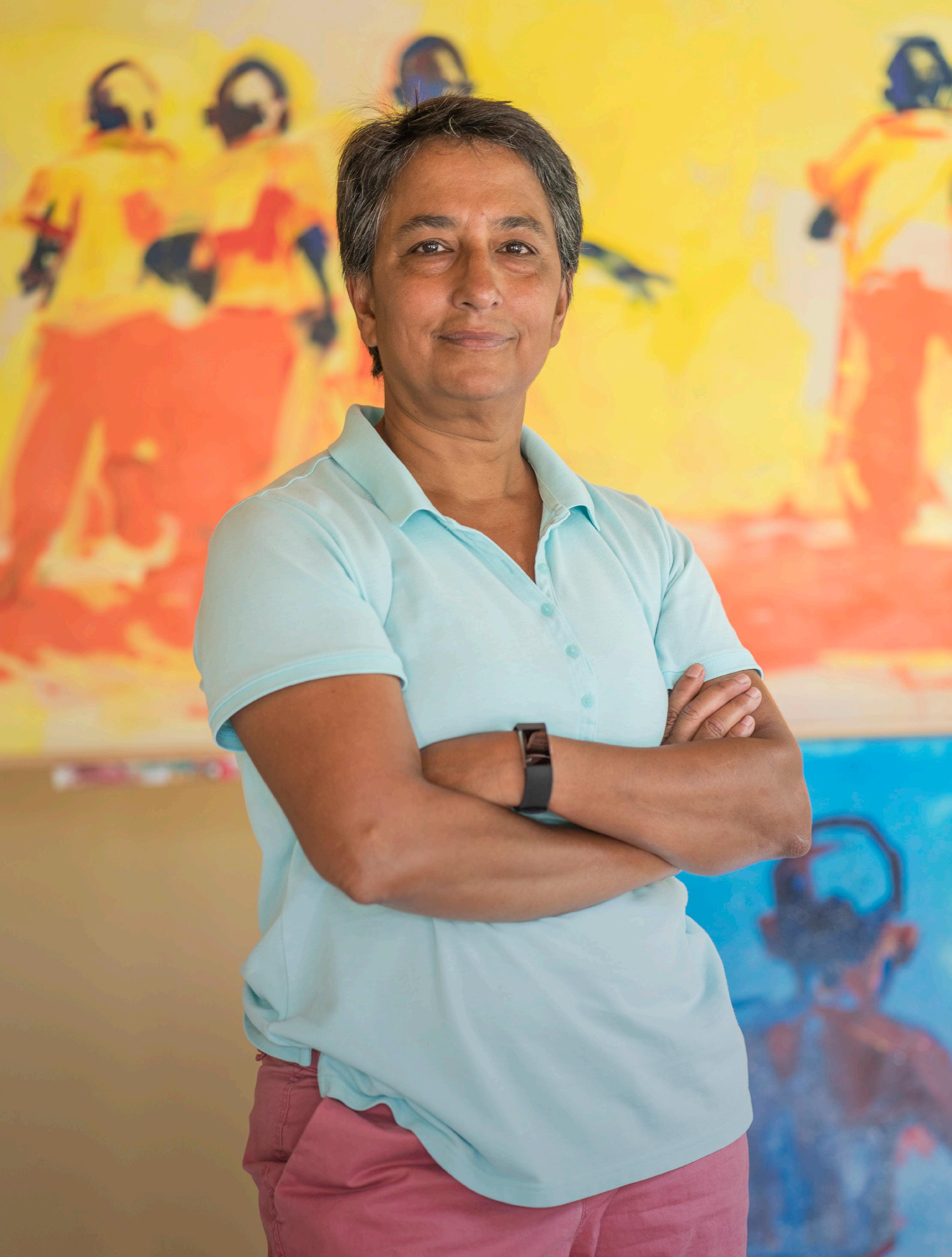
I’m keying into a time in everyone’s life that is pure and innocent – childhood, seaside...
Confessions of an Urbanist
IF ITS SCALED DOWN AND APPROPRIATE FOR THE GABLES, THERE IS A GOOD CHANCE THAT VENNY TORRE’S FIRM IS BUILDING IT. THE REST OF THE TIME, VENNY IS BUSY ENHANCING THE CITY AS A MODEL FOR NEW URBANISM.
By Doreen HemlockCall him Mr. Downtown Coral Gables. You’ll find him leading the Business Improvement District, on the board of the Community Foundation, working with the city museum, helping with historic preservation, or just strolling downtown from his townhome to his office and local restaurants.
Builder and real-estate developer Venny Torre can’t pinpoint why he’s so driven to enhance urban living in Coral Gables, his home since 1995 and hub for his Torre Companies. Perhaps the passion stems from his youth in Cuba’s small city Cienfuegos, where his dad owned and ran a hotel on the main square and Torre liked walking to school under covered colonnades. Or maybe it came from the year the family lived in cosmopolitan Madrid in Spain before moving to South Florida.
After college, Torre also drew inspiration working for the Graham Cos., developers of the planned community Miami Lakes. He lived upstairs and worked downstairs on the new main street there, cementing his love for a walkable, urban lifestyle.
Whatever the source, the 57-year-old relishes the challenge to energize urban centers, especially in his adopted hometown. “I call them puzzles,” says Torre
about urban buildings and community efforts he takes on. “I like solving puzzles.”
A COLLABORATIVE STYLE
Associates say Torres gets others excited about urban puzzles too, making projects with him collaborative and fun. “He’s inclusive,” says global business consultant Carolina Rendeiro, who has served on the board of Business Improvement District with Torre for years. “He listens.”
The same skills Torre uses for construction he brings to community building, says architect Maria de la Guardia, who’s worked with Torre for more than a decade. “He creates a strong foundation by establishing good relationships with team members,” she says, describing Torre as low-stress, positive and open-minded. “He finds a way to rally support and enthusiasm around the projects he’s involved with.”
That’s key, because Torre has been steeped in real-estate ever since he moved to Florida. His lawyer-mom and hotelier-dad worked with a fellow Cuban who turned a tract of western Miami-Dade County into a residential community. Starting at 15, he did manual labor on that project during summers, “hammer-
ing, moving steel and blocks, going up and down ladders. I got nails in my feet,” recalls Torre.
Always keen on drawing and art, Torre figured he’d study architecture to make his mark in urbanism. But two years into the University of Florida he switched majors to construction, tapping his entrepreneurial side. A bachelor’s in hand, he found a job with South Florida’s respected Graham Cos.
By age 30, Torre was on his own, parlaying the skills and contacts from his Graham years. He worked in Coral Gables with partners to build a Dutch colonial-style community, the award-winning Campo Sano Village, and another compound in Bermuda-style – both in the spirit of the architecturally detailed villages developed by the city’s founder George Merrick.
He’s been building in Coral Gables ever since, most recently creating luxury townhomes in the urban core, some for MG Developer led by Alirio Torrealba. The idea of the townhomes is to fill a gap in the housing profile of the city, something that’s in-between today’s vogue of mid-rise condos or large Mediterranean manses: Multi-story townhouses that are luring empty-nesters from larger houses in the suburbs to live near downtown shops,
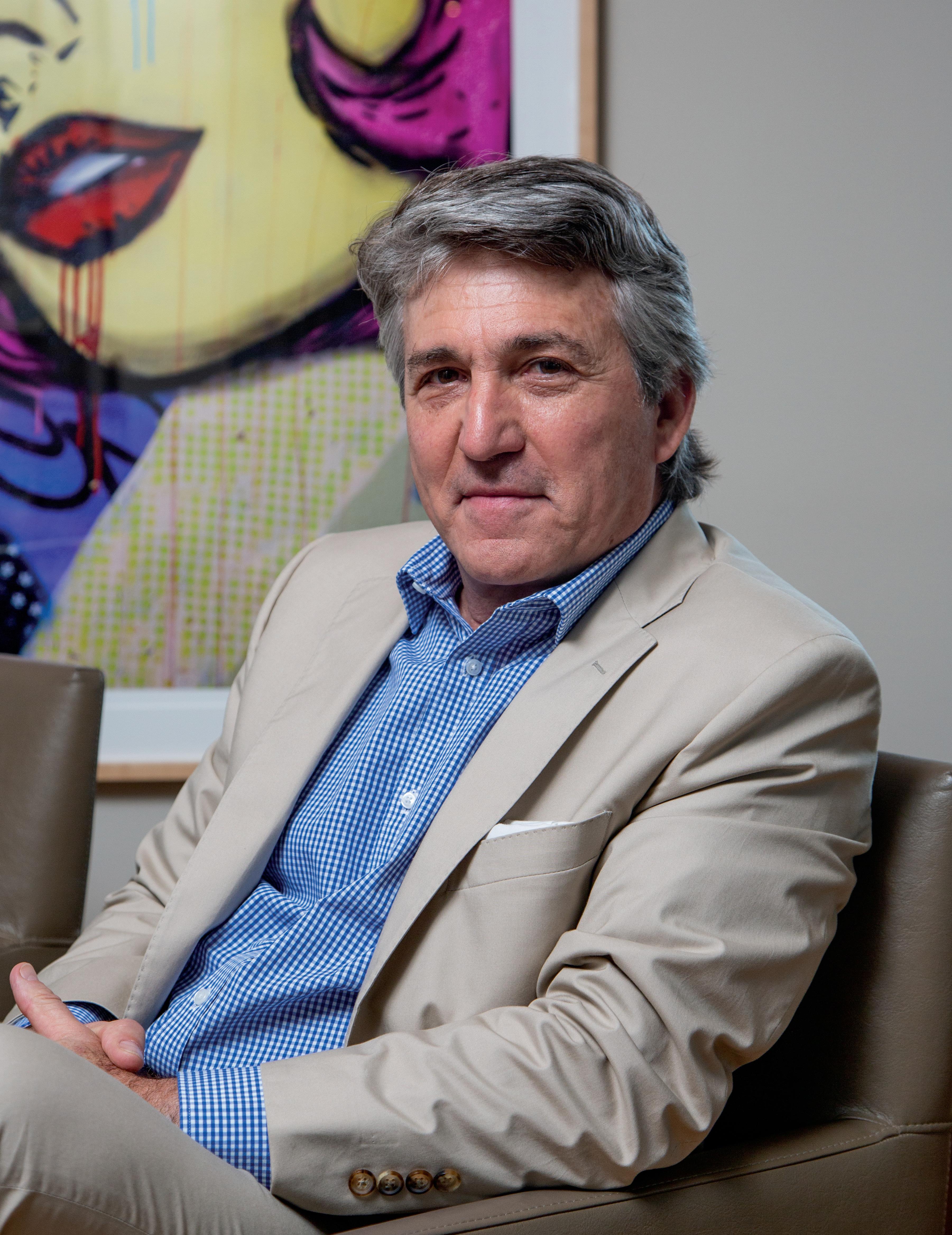
restaurants and cultural offerings. “I try to be different and not follow the trend,” says Torre. “I like to be more of a trendsetter.”
His renovated office building at 208 Andalusia Ave. shows that progressive streak. The private offices offer public art exhibits and feature a mural by a graffiti artist. Torre now has an installation outside consisting of large, blue butterflies he painted himself.
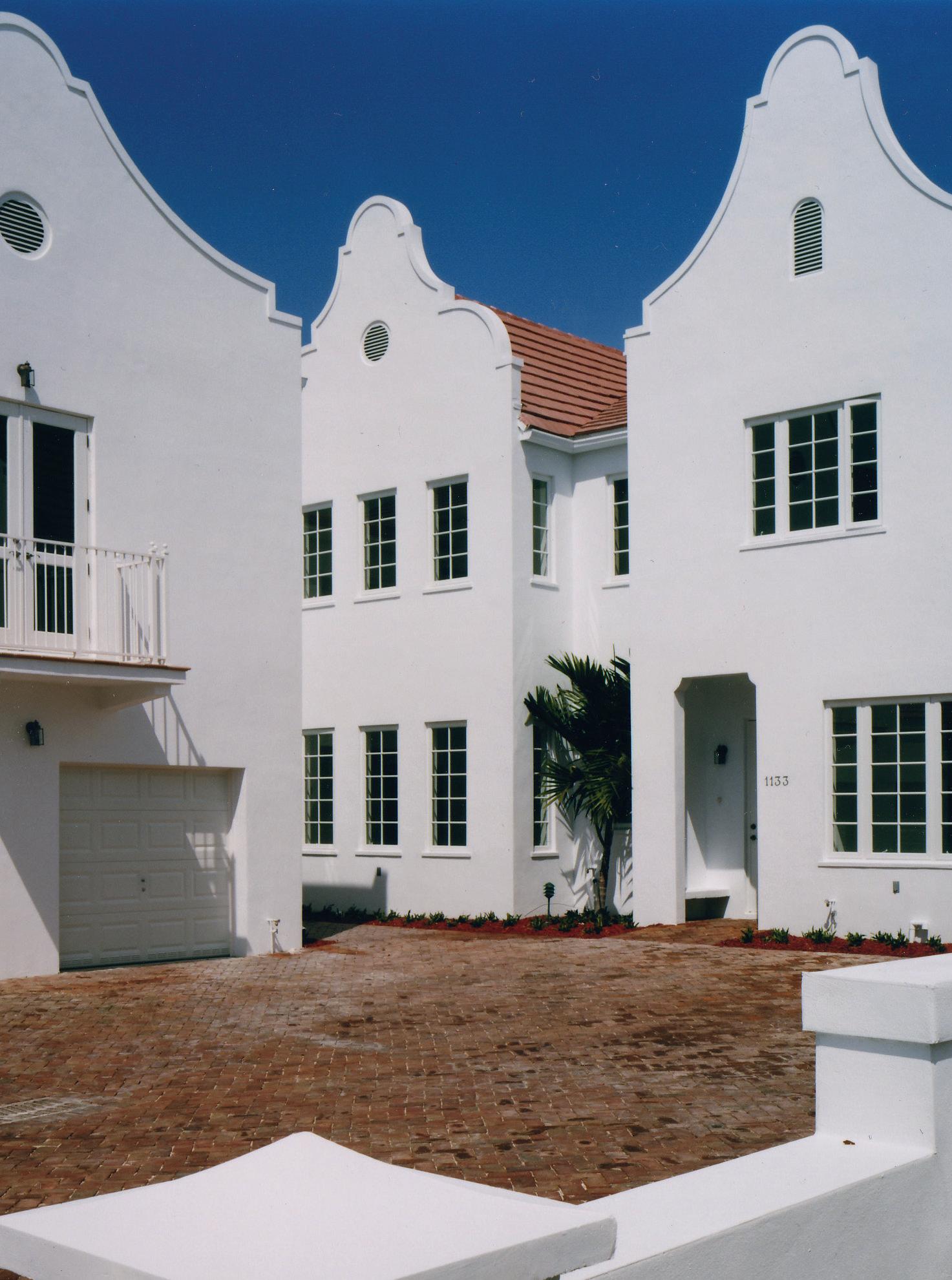
FROM POP-UP GALLERIES TO FUNDRAISERS
In civic circles, Torre also is known for creativity. He came up with the idea for popup art galleries in empty spaces on Miracle Mile for this spring’s debut of the StreetScape project, says Mary Snow, executive director of the Coral Gables Community Foundation. “Some people thought he was overly ambitious, but he did it,” she says. “He got the landlords to donate the space” for the temporary galleries designed to activate the street.
At the Community Foundation, Torre has been expanding the Tour of Kitchens,
a fundraiser he’s chaired for three years, adding more kitchens at more diverse homes. For next year’s 10th anniversary, he plans a rooftop kickoff with a band – all to help fund scholarships and programs for Coral Gables High School’s culinary program, says Snow. “He’s a thinker of the big picture, not just for his interests but for the betterment of the city,” she says.
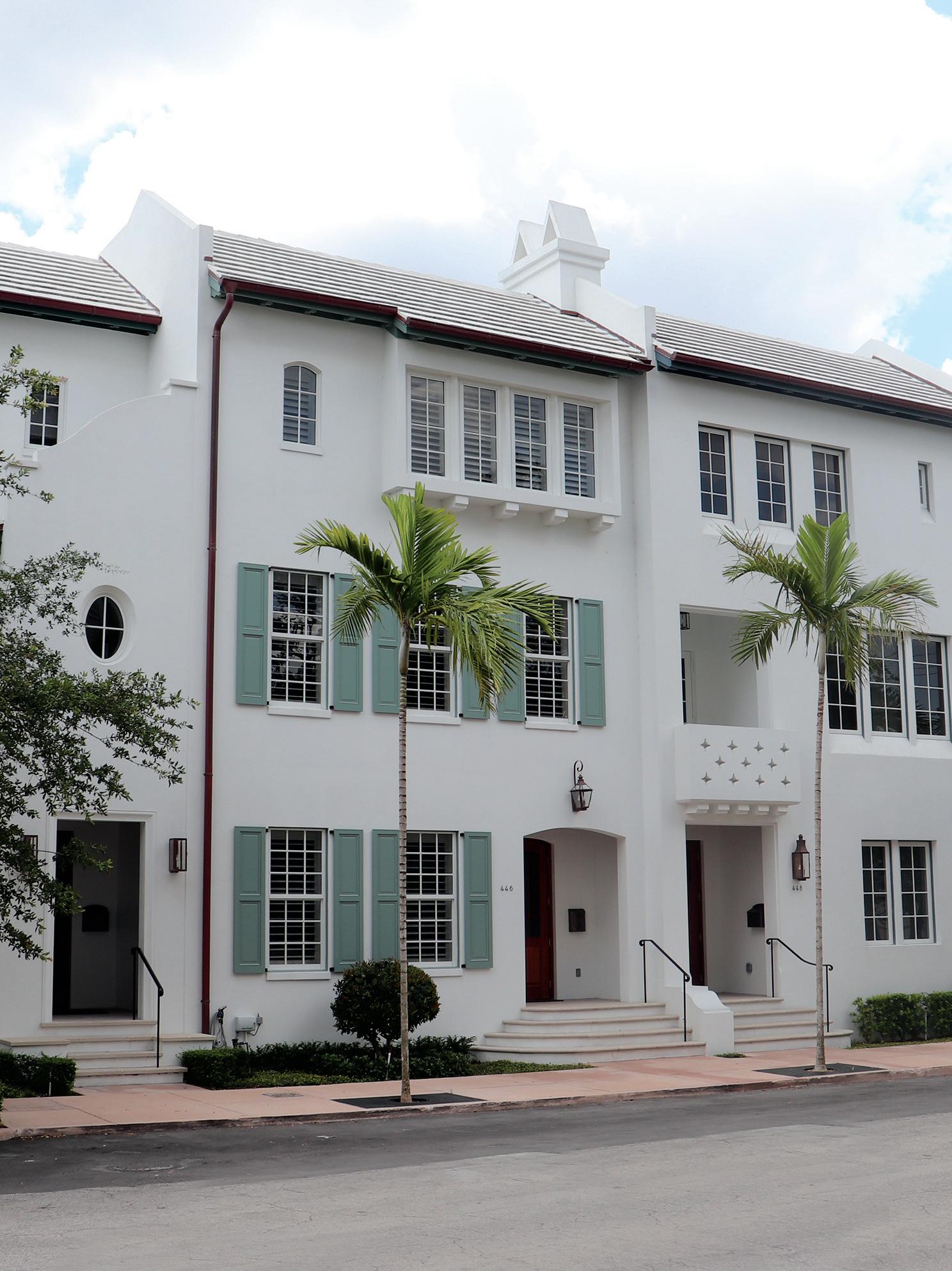
Torre’s community involvement grew partly out of real-estate. Seeking zoning amendments in the 1990s, he got to know then-Commissioner Jim Barker, eventually helping with his re-election campaign. He got involved with city groups, enjoyed it, and soon joined the board of the new museum, drawn by his love of art, architecture and history.
Today, Torre heads up the Business Improvement District that represents downtown merchants and property owners. He finds puzzles worth solving in amplifying that unique voice – which is sometimes drowned out, Torre says, because many owners don’t live in Coral Gables and can’t vote in the city. Yet he believes city invest-
Above left: Townhouses on Valencia AvenueIf the city invests in the downtown, it goes right back to them...
ments in the business hub can provide big returns to local government. “If the city invests in the downtown, it goes right back to them. And here’s why: the residential tax dollar is capped by your homestead,” says Torre. “If the downtown is booming, the tax increase potential is greater.”
Downtown business owners aren’t always unified either, adds Torre. Some landlords were against the transformation of Miracle Mile, which pinched immediate profits in exchange for making the downtown a more sophisticated destination long-term. “We have to educate people to have more of a combined self-interest than an individual one,” he says. “In the long-run, we’re better off with quality retail and restaurants.”
To foster quality, Torre also leads the city’s historic preservation board, a group that works to maintain such 1920s gems as City Hall and the Biltmore Hotel and uphold the city’s original urban plan. “What makes Coral Gables so special is our history, architecture and master plan, so well defined by George Merrick,” he says. “The
founders knew what they were doing. They set the rules and standards, and we need to protect that.”
EXPANDING INTO CENTRAL FLORIDA
Nowadays, Torre’s biggest real-estate project is not in Coral Gables but in Central Florida. The lakeside city of Sanford asked for proposals to redevelop three downtown blocks, and Torre’s team won the competition. His group is now designing a mixeduse project with apartments, offices, retail and other features – a development slated to cost more than $50 million.
Torre’s proposal calls for using brick and other architectural elements already common in Sanford’s historic downtown. New structures in the city’s Heritage Park also will be varied, “so buildings feel like they’ve been done over a period of time, not by a cookie-cutter developer,” he says.
As in downtown Coral Gables, Torre aims to create a “sense of place,” the New Urbanist vision of somewhere folks want to live, work and enjoy a meal – a walkable
area that can be a catalyst for the whole city, he says. He sees his developer’s role as “being involved, tied to the project, considerate to the community, and giving back. That’s how we’re approaching this project and that’s how we are.”
To be sure, Torre’s zeal for cities, urban travel and renovation can have downsides. His teenage daughter Olivia recently bemoaned an upcoming family trip to Barcelona in Spain, because “all you’re going to do is look at architecture,” she told her dad. And Torre’s wife Coco has learned to live with him buying, renovating and selling their homes – about 10 so far, starting after Hurricane Andrew with a 1936 Mediterranean-Art Deco house. “My wife says, ‘I know we’re moving when they put in the chandelier in the entrance-foyer,’ ” he jokes.
Still, Torre can’t fathom not being involved in business and civic efforts to energize downtown Coral Gables: “What I do, it’s not work for me. It’s like being with friends all the time.”
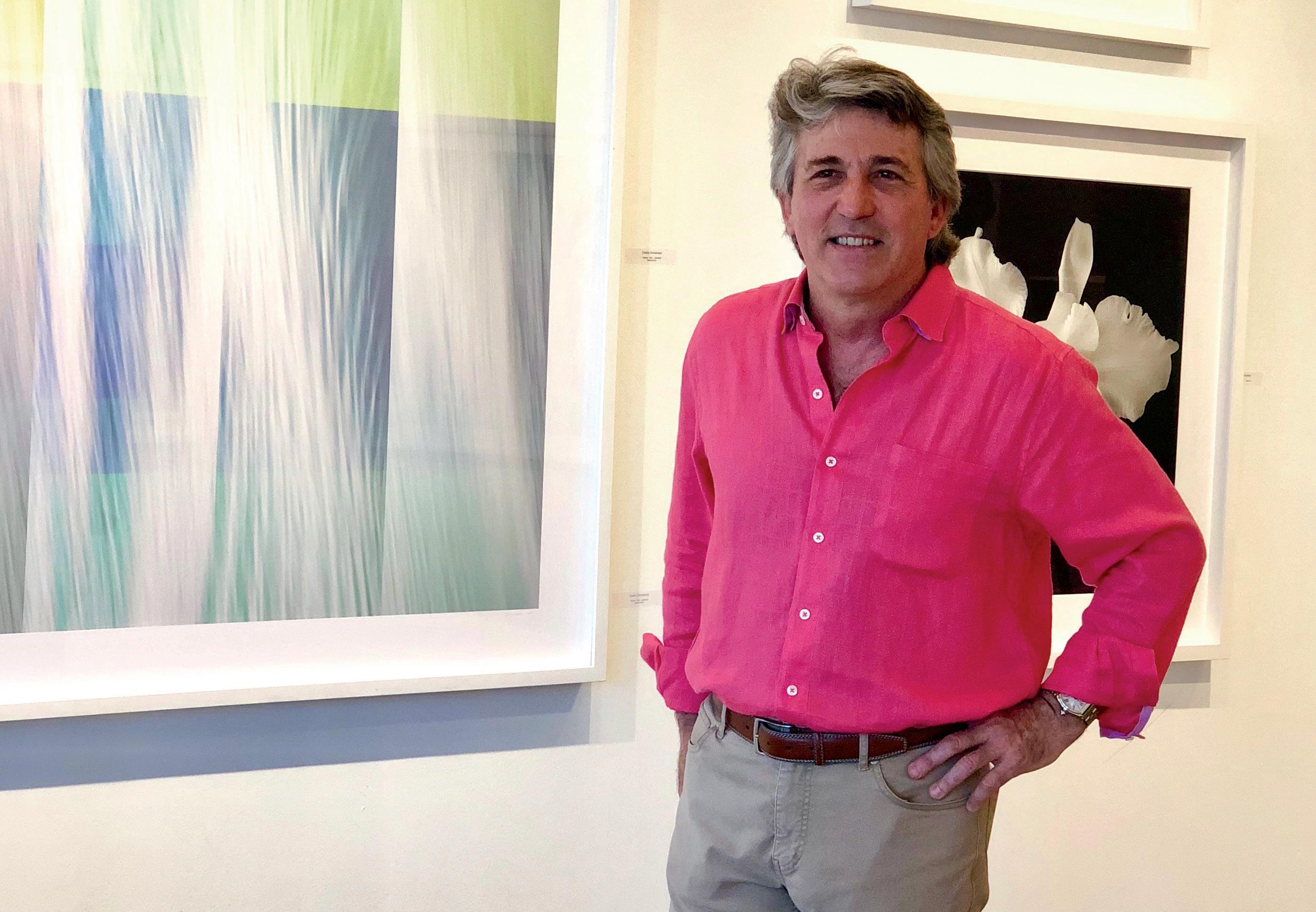
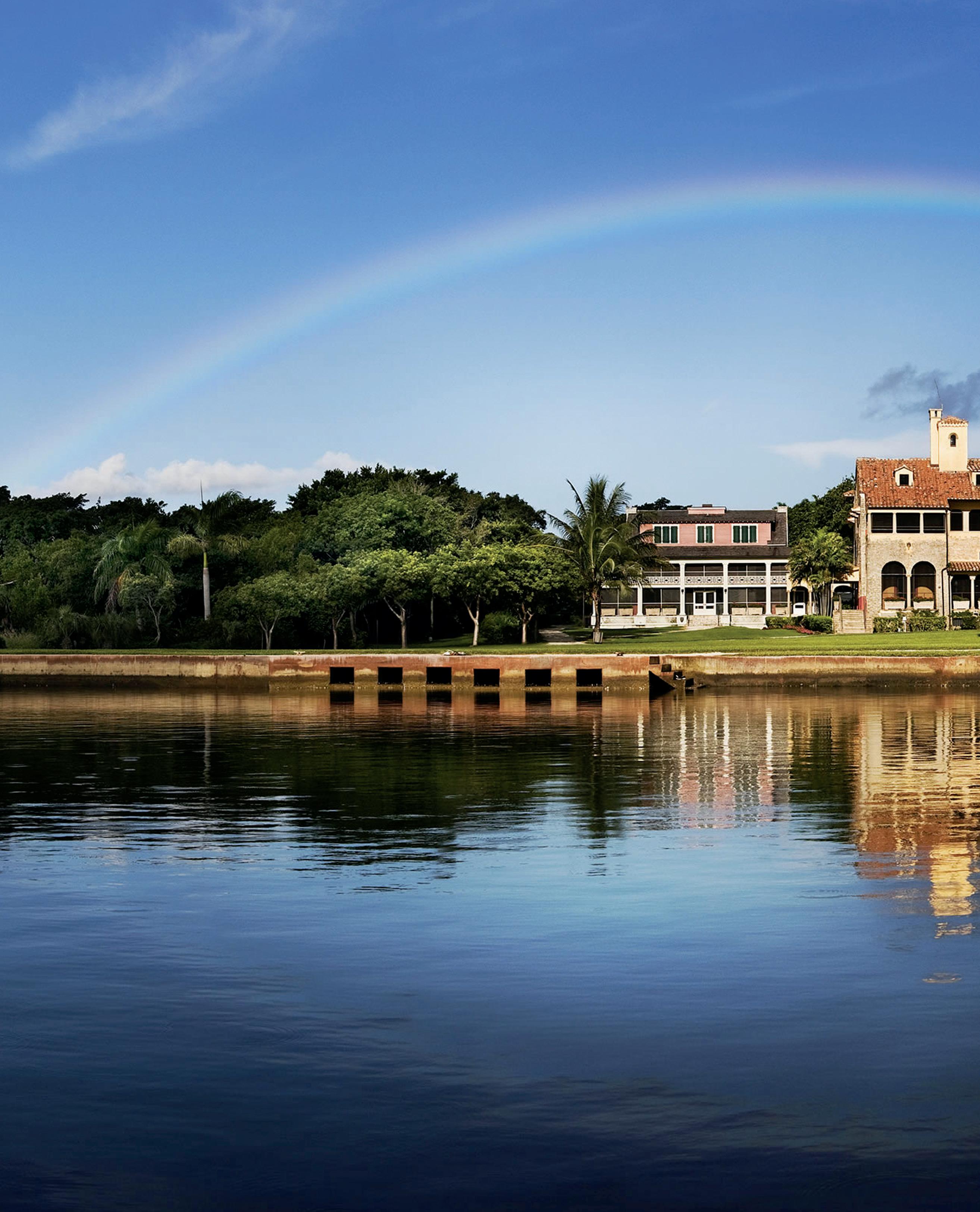
The Deering Estate Showcase
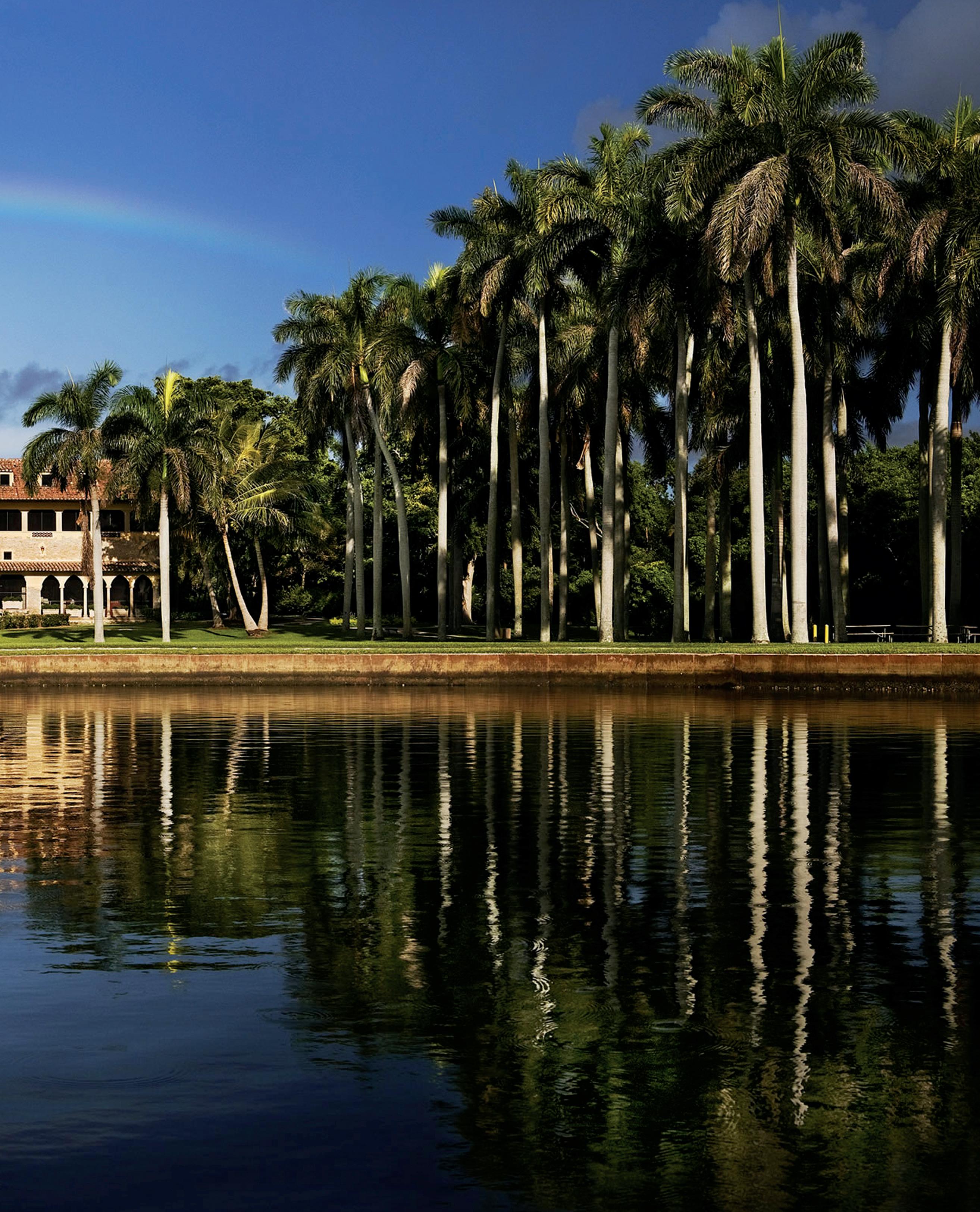
What better way to bring to life the past than with contemporary design?
The Coral Gable-based Junior League of Miami pulled out all the design stops in their recent display of interior makeovers of the Deering Estate, the former 1920s mansion of industrial titan Charles Deering.
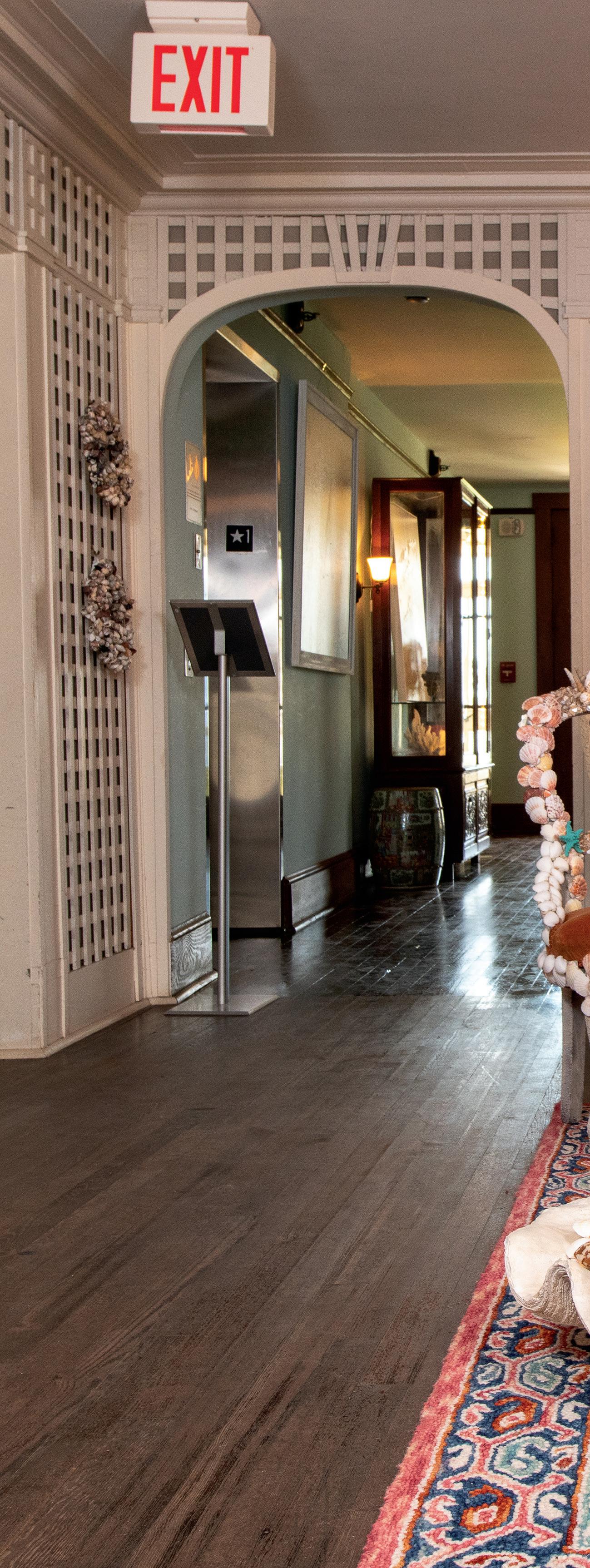
The 1,000-woman volunteer organization, itself founded in 1926, raised more than $185,000 from admission fees and donations paid by 2,000-plus visitors to the estate. The money will go toward the Junior League’s mission to empower women and help families at risk. Deering himself lived at the eponymous estate for the last five years of his life, but probably with interiors a little more restrained than what this year’s participants put together.
Where: The Deering Estate (on the southern edge of Coral Gables on Biscayne Bay)
What: Junior League of Miami’s 2018 Showhouse
Who: South Florida’s Hottest Interior Designers
Why: To Raise Funds for Women and Families at Risk. Amount Raised: $185,000
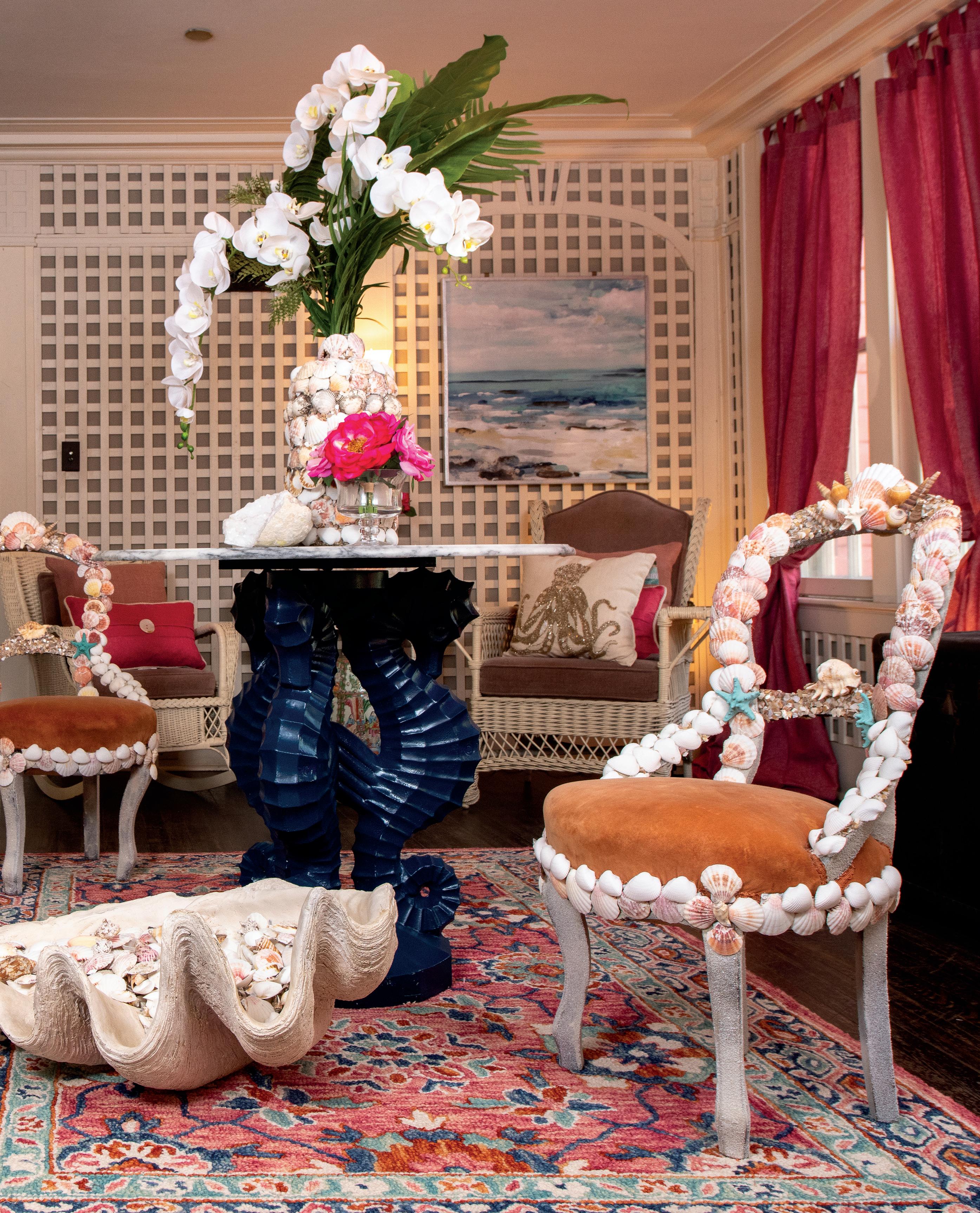
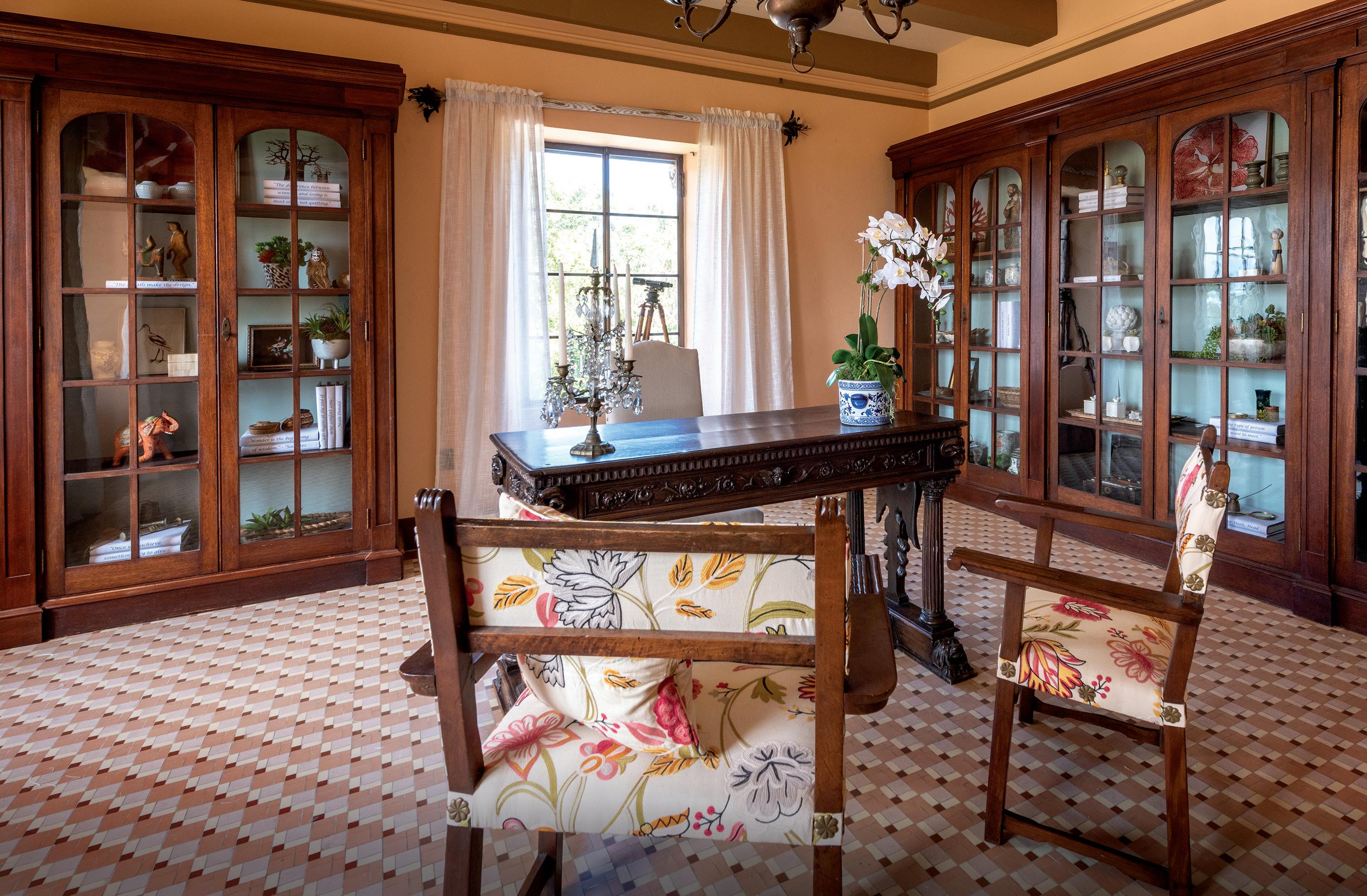
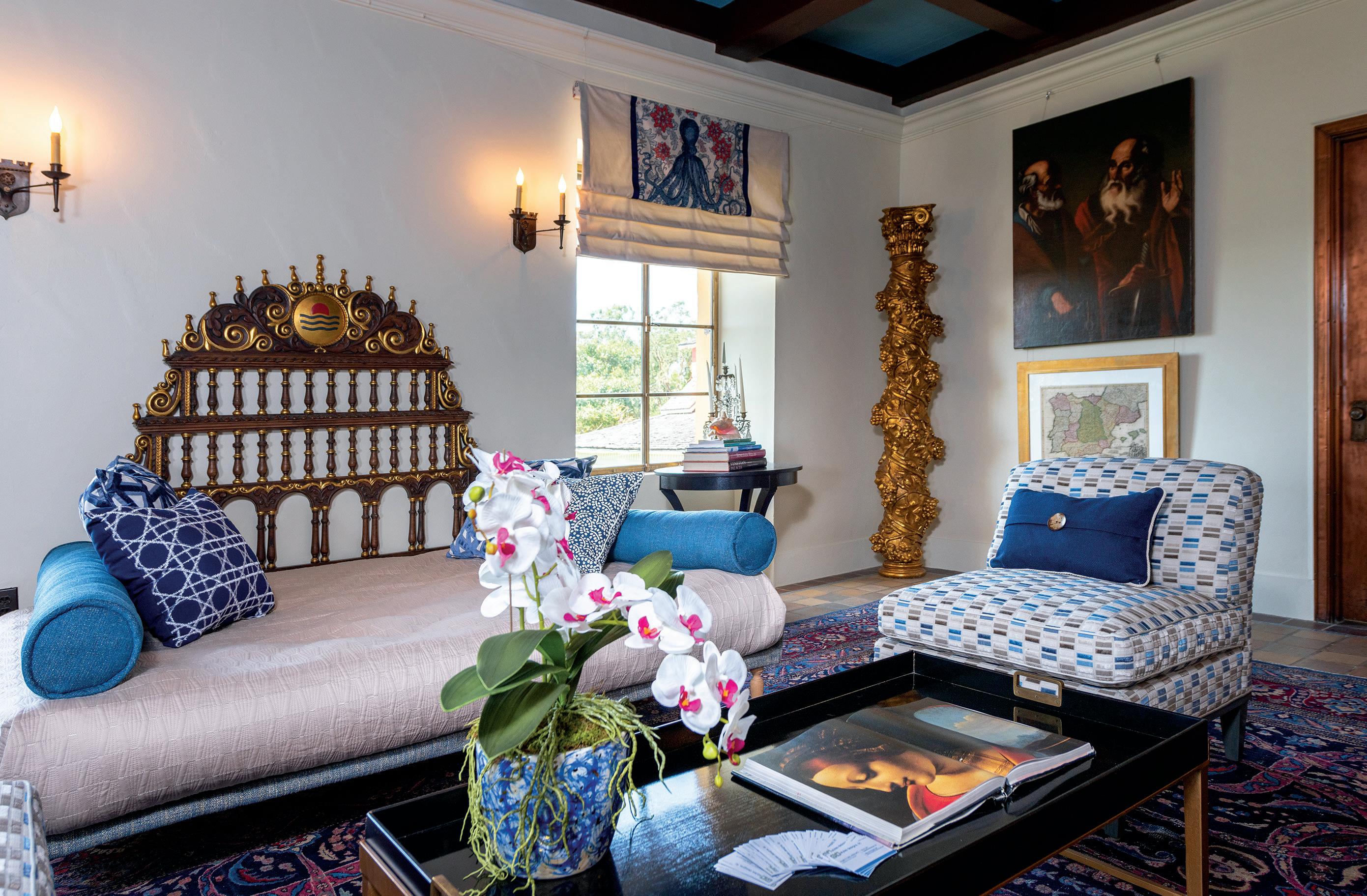
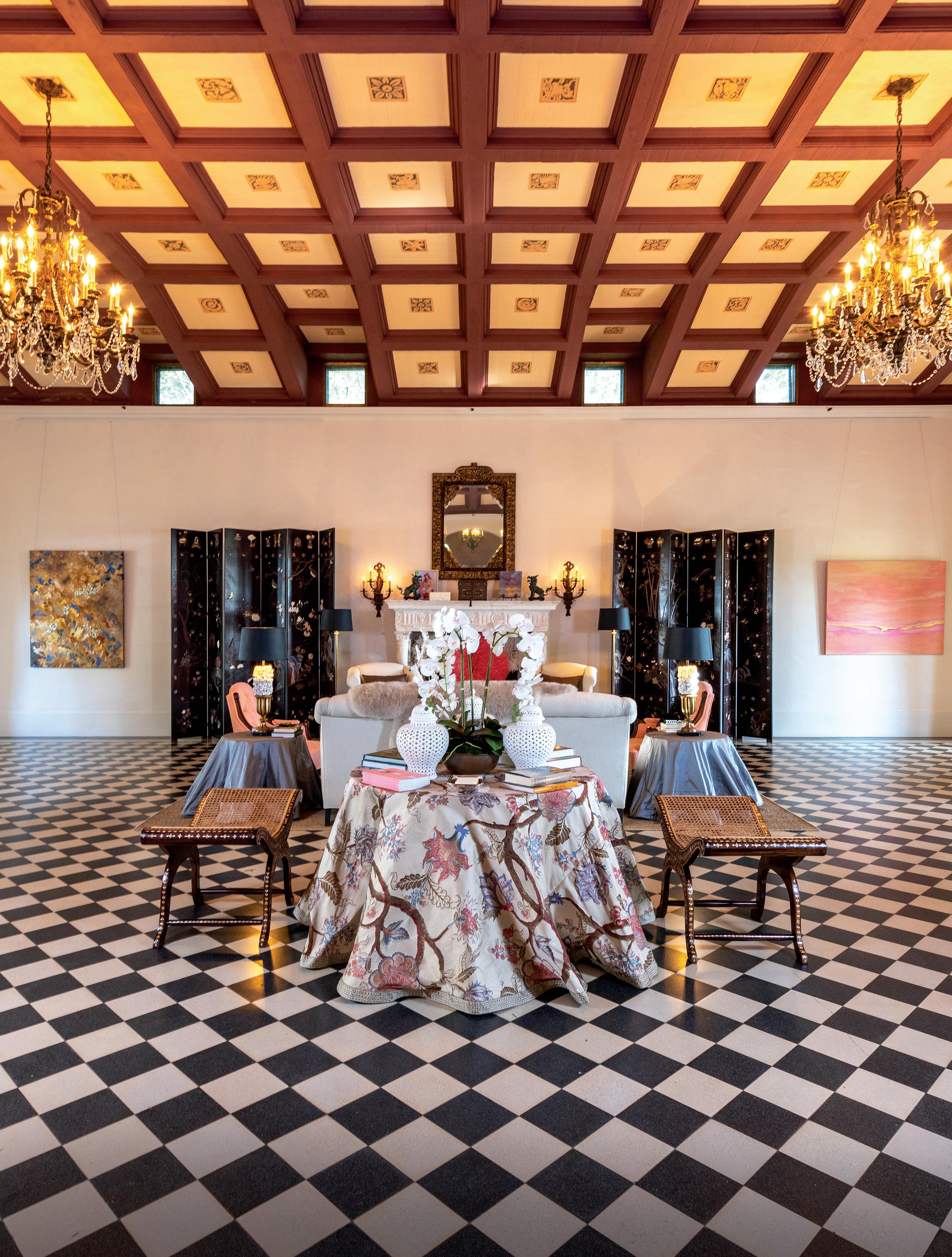
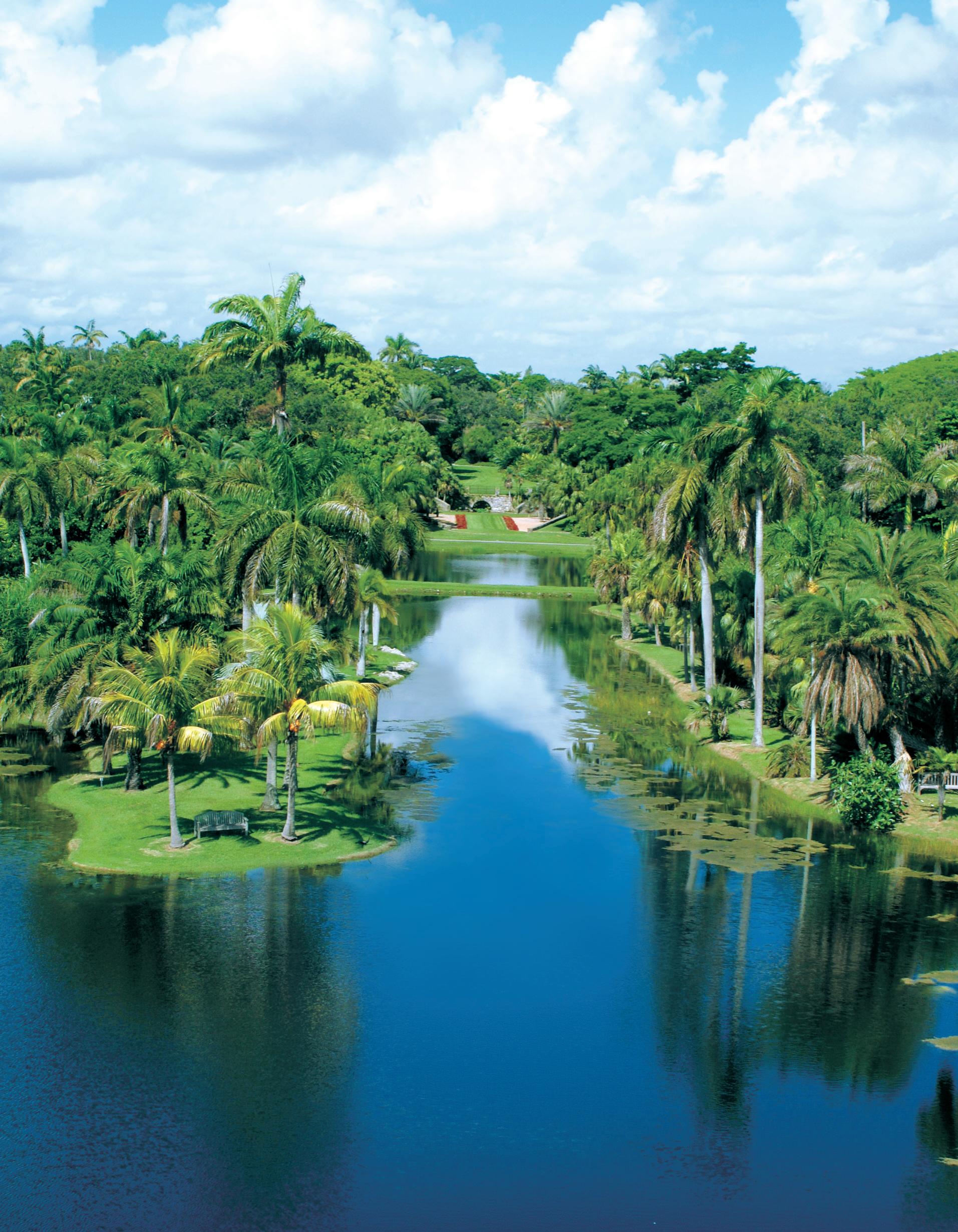
Bring on the Flowering Trees
NOW IS THE TIME OF YEAR TO PLANT FLOWERING TREES FOR YOUR ELEGANT TROPICAL GARDEN LANDSCAPE

Words and Photos by Kenneth Setzer
The Tabebuia aurea drops its leaves before flowering
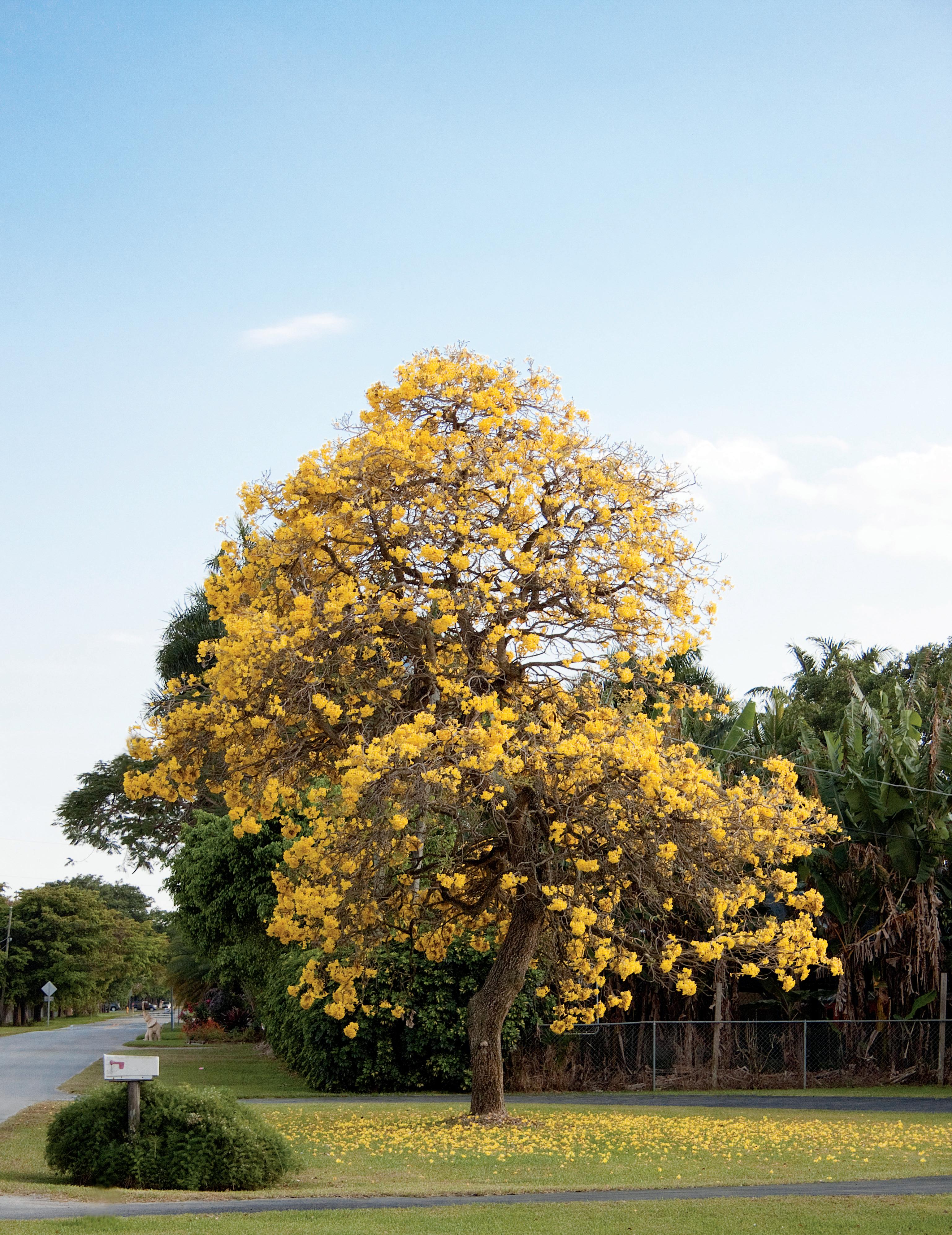
With the heat and frequent rains of summer, now is the best time of the year to plant new trees. And what better than the tropical flowering tree option? They are many and varied, and provide a magnificent point of interest in an elegant tropical garden. Just keep in mind to choose them not only for beauty, but for storm resistance, troublesome roots, and whether the tree is exceedingly messy. Meeting those criteria, here is a selection of the best. Just imagine any of these lining a driveway, street, or as an accent tree in the garden. You can combine colors and trees that blossom in different seasons to ensure your tropical paradise is always in color!

1. Classic red royal poinciana, a Miami favorite for over a century
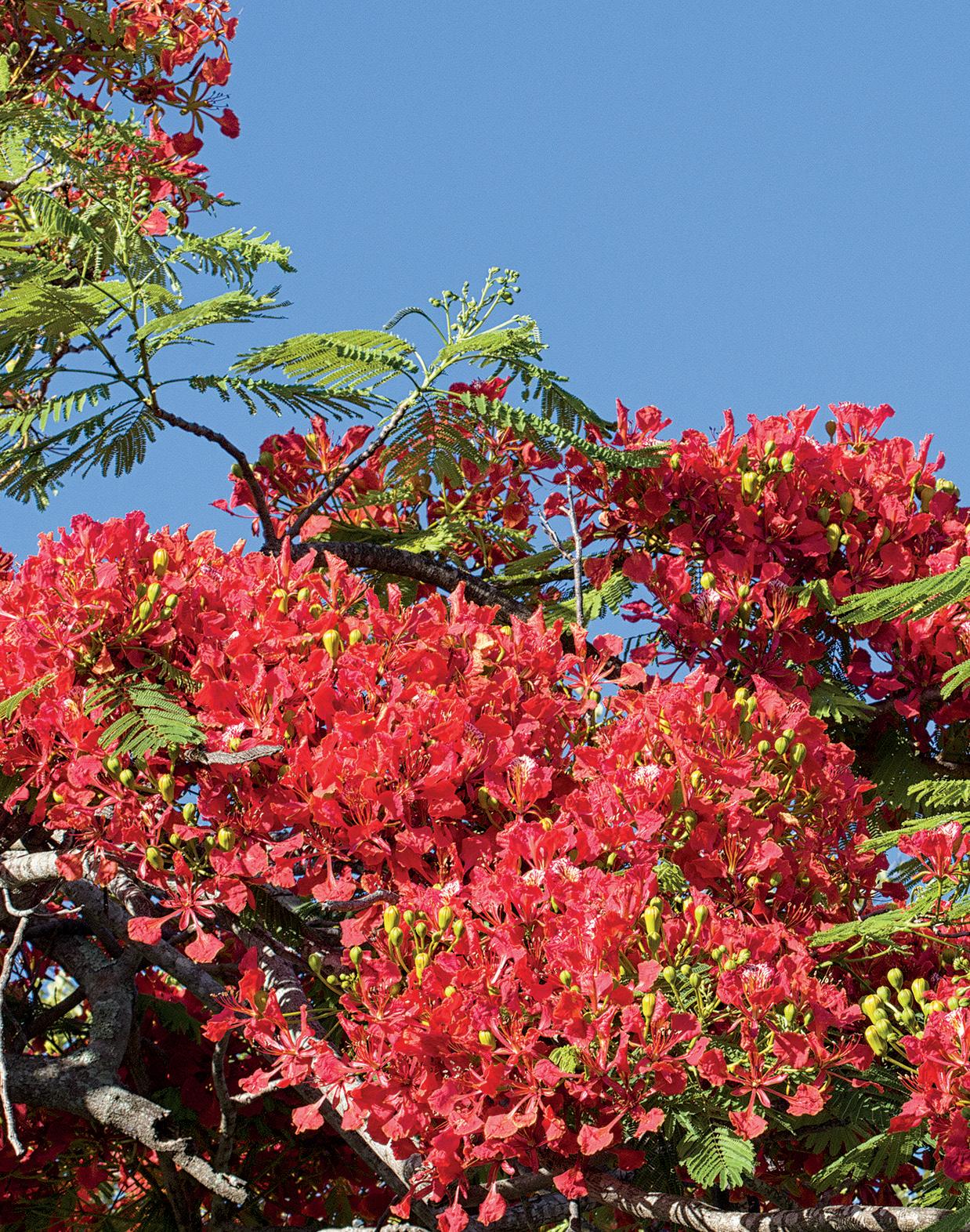
2. Flowers, buds and cascading foliage of Colville’s glory
3. Jacaranda cuspidifolia’s flower color differs based on soil pH
4. The Long John tree, an underutilized tree with hot pink fruit
5. Cassia fistula x javanica, a hybrid with yellow and pink in its blooms
6. Ceylon Senna’s fall tropical color and shade
THE TREE OF FIRE
No mention of tropical trees is complete without the royal poinciana, Delonix regia. A Spanish name for it is Arbol del fuego, certainly more evocative of its hot tropical beauty. They’re a common sight along South Florida streets, and for good reason. They are drought tolerant once established, preferring very little water in winter, so are nearly maintenance free. They’re also tough; at Fairchild Tropical Botanic Garden, one planted in 1974 is thriving still. The flowers, of course, are what we are after. The umbrella-shaped poinciana is just afire with them in late spring, especially after a period of dry weather. Different trees range from crimson to reddish orange; there is even a golden yellow variety, Delonix regia var. flavida, and cultivars including ‘Kampong yellow’ and ‘Smathers gold.’ The fruit are woody seed pods a foot or so long, and a little messy. The roots are shallow and spreading, and the trunk produces buttresses, so plant the poinciana well away from structures.
GOLDEN AND PURPLE BELLS
Tabebuia species of trees (photo page 73) can produce shades of pink, magenta or yellow flowers. The yellow is less cold tolerant, but more eye-catching. They seem to glow from within. Both Tabebuia chrysotricha and T. Aurea (Caribbean trumpet tree) are yellow flowering, the latter more common. The flowers are bell shaped and especially showy because the tree usually sheds its leaves before flowering.
Tabebuia is shallow rooted and flowers in late spring after a winter dry season. Plant in full sun and they may reach 20-35 feet. Tabebuia ‘Carib Queen’ is a hybrid to consider if you prefer deep magenta flowers. The tree will reach about 20 feet. For a splash of grape-purple try a Tibouchina. A smaller tree than Tabebuia (those in cultivation probably won’t exceed 15 feet), purple Tibouchina may flower throughout the year, more in warmer months. These trees prefer some shelter from the wind and the harshest midday sun, and some soil-acidifying fertilizer.
STRAIGHT FROM MADAGASCAR
Coleville’s glory (Colvillea racemosa), like the royal poinciana, is native to Madagascar. Unlike poinciana however, Colvillea is rare in cultivation. But it is well worth trying to find. Its foliage is pinnate like a fern, very wispy and fine, providing enchanting, dappled, rippling shade. Preferring full sun, Colvillea will reach 50 feet, a stunner with long, cone-shaped racemes – flowers attached along a stem – clustered with bright yellow and orange blooms that appear in fall. It truly is a glory, and drought tolerant!
SPANISH PURPLE
Is it blue or purple? Opinions differ, but Jacaranda flowers are affected by soil acidity, with more alkaline soil like ours in South Florida producing shades toward blue. You are likely to find Jacaranda mimosifolia, J. caerulea or J. cuspidifo-
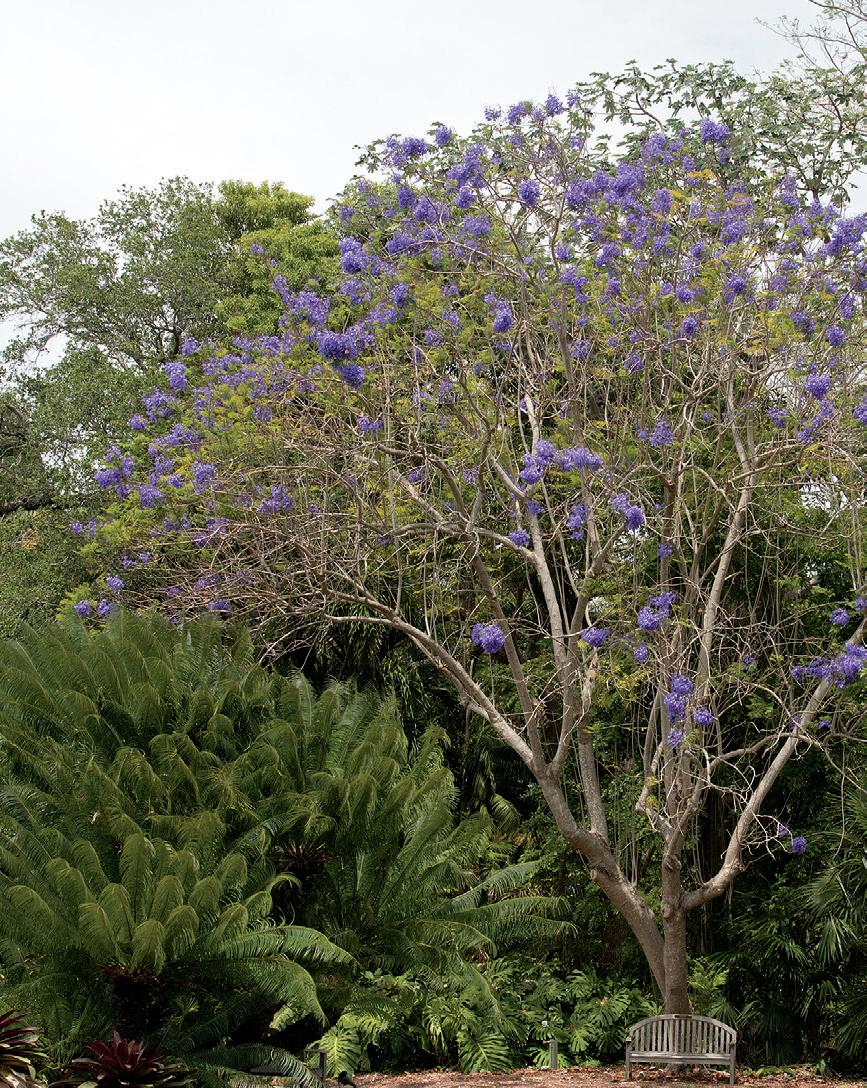
lia (pictured) for sale. The last can reach 30 feet or so and seems to be the most common. It should flower in drier months, because it likes dry climates – anyone who has travelled through Spain has seen them flower profusely. The one pictured flowers in April, the tail end of Florida’s dry weather. Its foliage is feathery and fernlike, and its fruit are seedpods that look like 2- to 3-inch-long turtle shells. Needs direct sun.
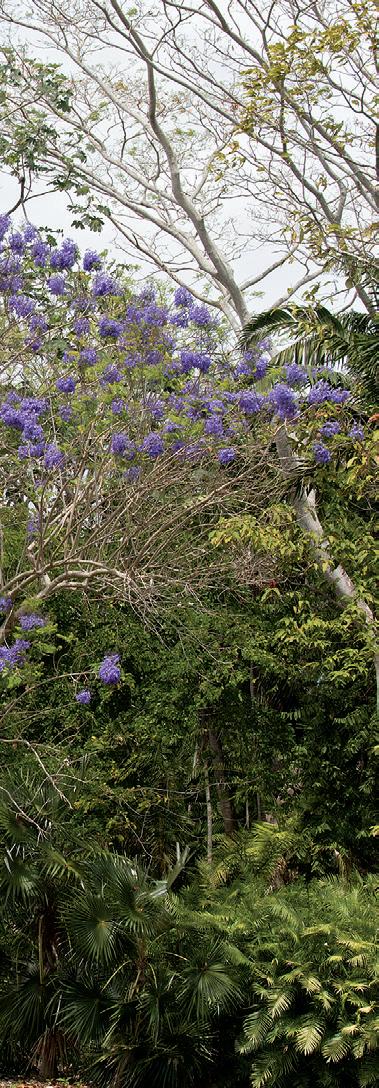
VERTICAL RED
There don’t seem to be many Long John trees in private gardens, but Triplaris cummingiana (also called the ant tree) fits beautifully into areas of full sun to some shade; and like many of our trees, it prefers dry winters and wet summers. It flowers and fruits in winter, an unexpected delight. The Long John tree can attain 50 feet and higher, but is more pyramidal and less spreading than royal poinciana, for example.
SMALLER TREES
Finally come the cassias, slightly smaller tropical trees. There’s a good deal of variability in some Cassia species with hybrids available. Cassia fistula x javanica, the rainbow shower tree, is one such hybrid. Its parents produce yellow and pink flowers, so you may see a bit of both colors in this one. Thriving under full sun, it’ll reach about 20 feet maximum, and forms a nicely compact tree of colorful blossoms along racemes in spring and summer, fading to creamy white with age.
CASCADING CANOPIES

Cassia roxburghii, or Ceylon Senna, is native to Sri Lanka and southern India. It forms a large, cascading canopy up to 30 feet tall of fine, feathery foliage. When it flowers in late summer/early fall (photo taken in November), the deep pink and red flowers carpet the waterfall of weeping branches. It’s a wonderful shade tree, preferring full sun to part shade.

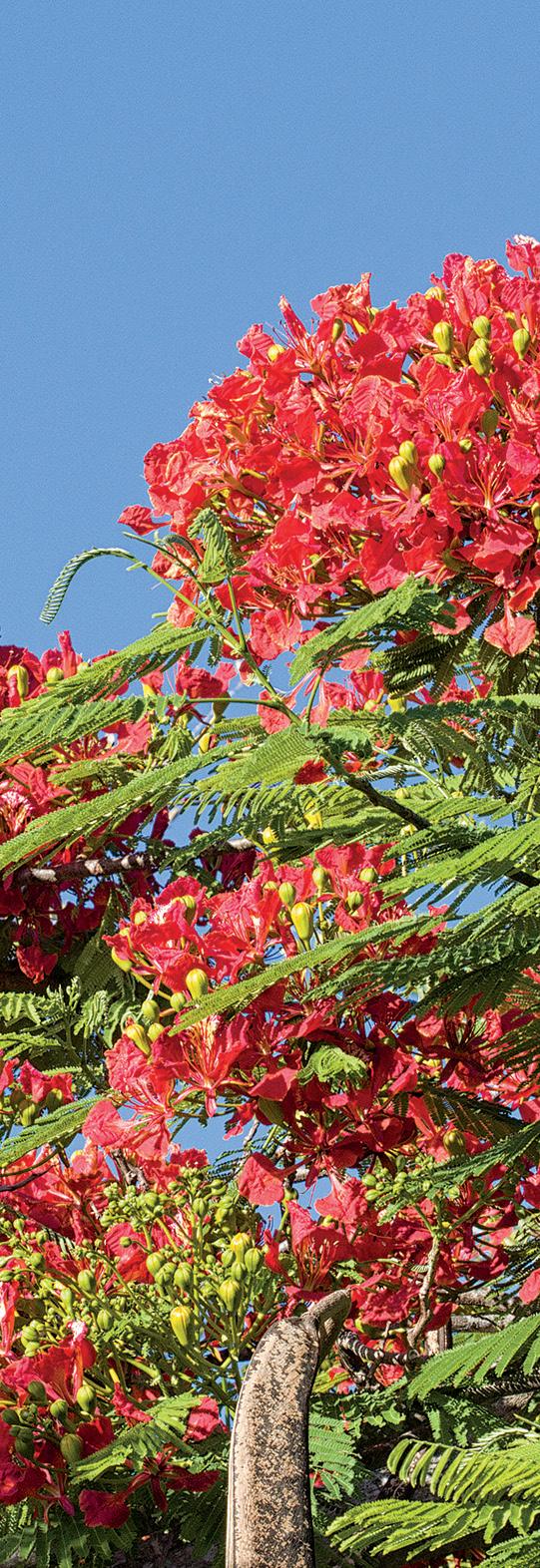
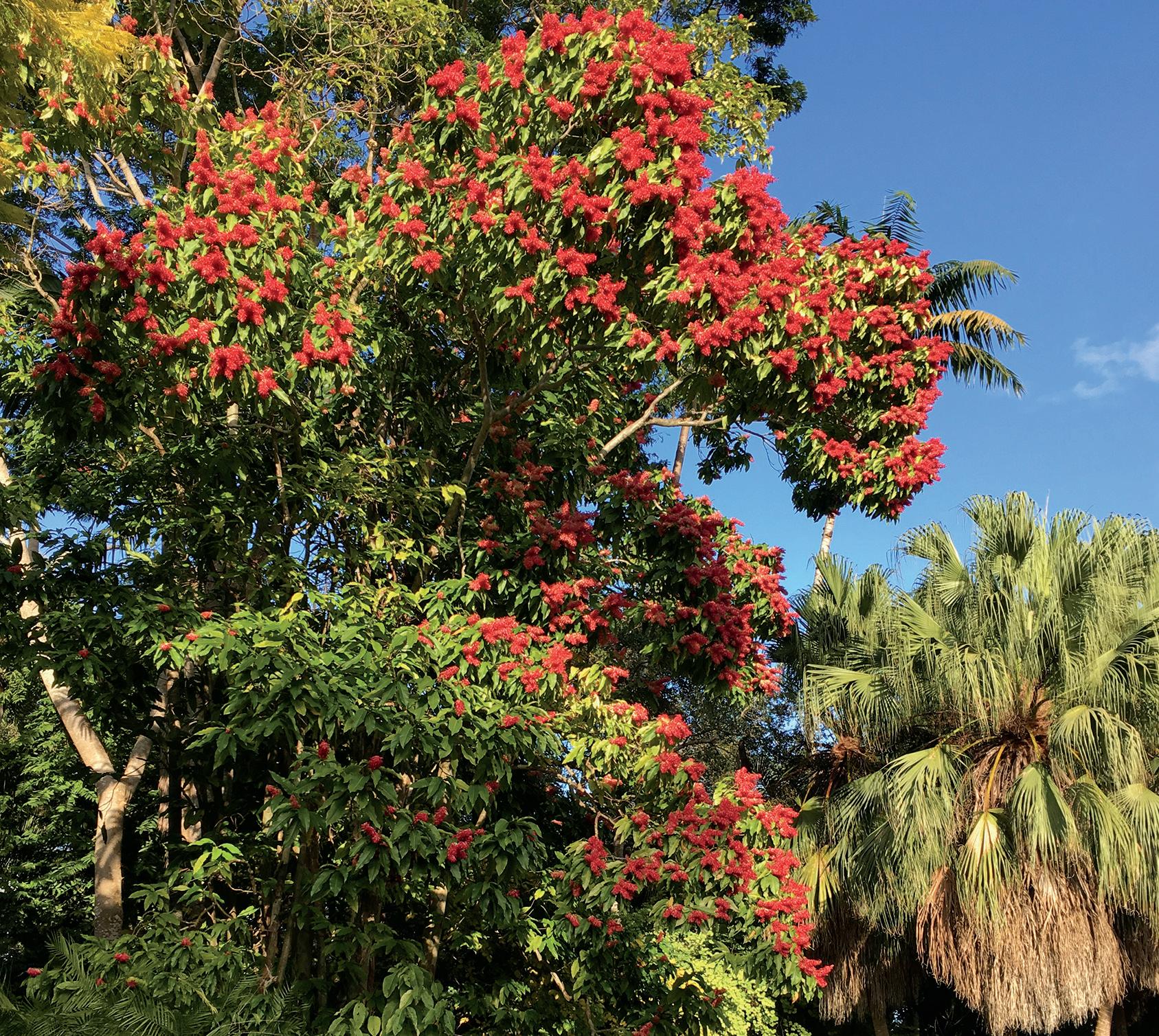
We are lucky to also be able to grow Cassia bakeriana, sometimes called the pink shower tree. From Southeast Asia, it prefers a sunny, sheltered area, but is worth it when the flowers appear.

GOURMET HIDEAWAY
TWO CHEFS RESTAURANT, NOW IN ITS THIRD DECADE, CONTINUES TO IMPRESS
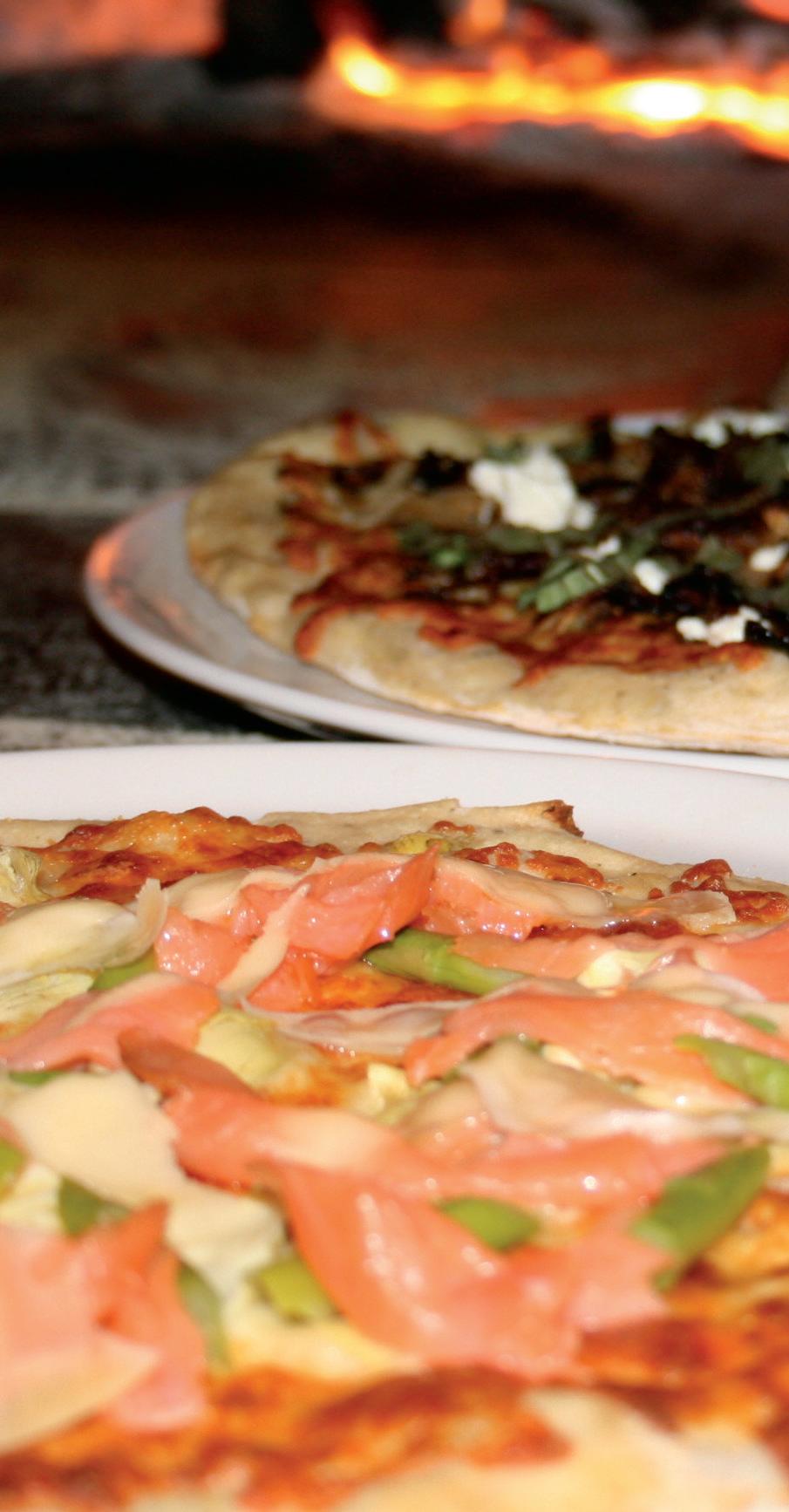 By Andrew Gayle
By Andrew Gayle
What could be better than a restaurant that started as a cooking school? Answer: That same restaurant, years later, still run by its master chef and founder – who still runs a cooking school next door.
Chef Jan Jorgensen is now in his third decade as the resident culinary wizard at Two Chefs, a quiet, elegant hideaway in what is an otherwise unremarkable pocket mall on U.S. 1 about a mile and a half south of UM.
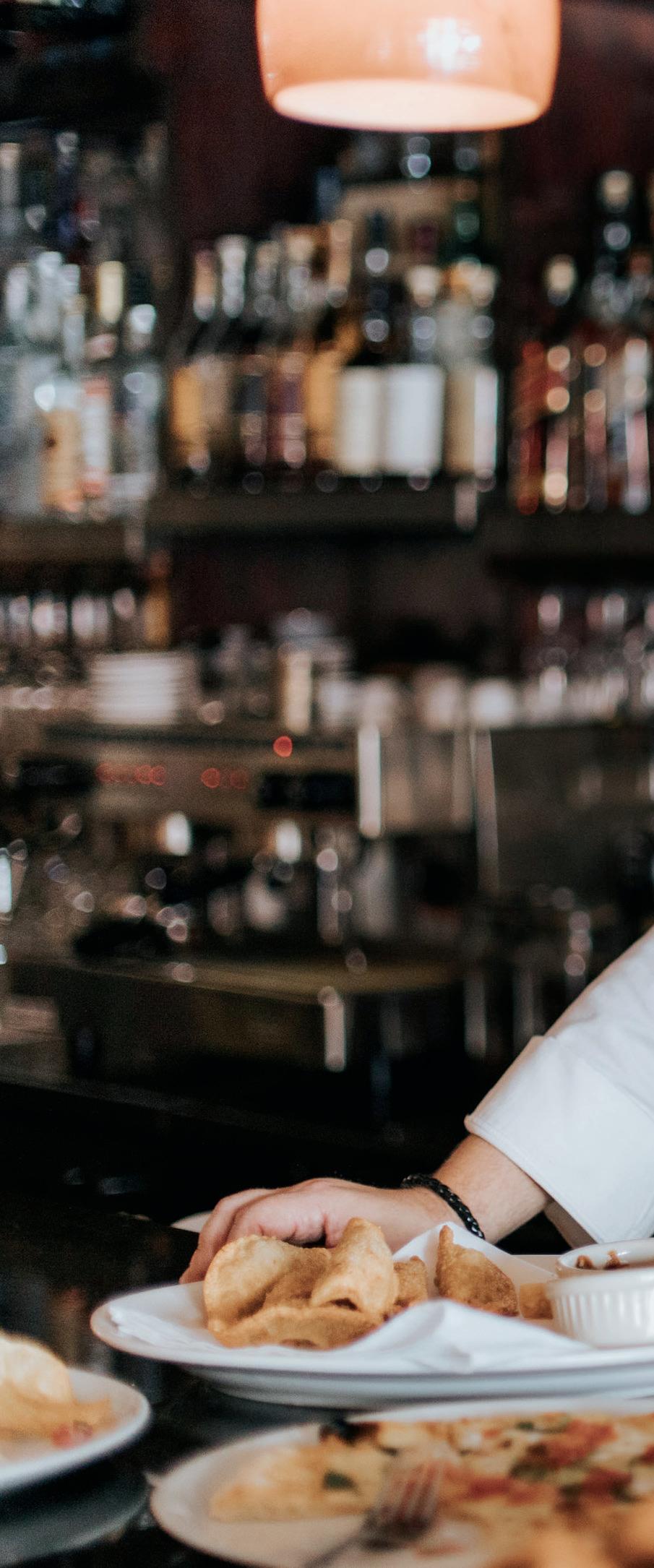
The fact that Jorgensen has been the at helm for some 25 years is a testimony to the inventiveness of his dishes. A native of Denmark trained in classic European cuisine, Jorgensen cooks what he calls American food, albeit with his own unique spin.
“We are a classic kitchen, but some would call it an American kitchen. We are not working in oriental flavors, or Japanese, or ceviche. We just cook,” says Jorgensen, who
updates the menu every few weeks to reflect whatever is fresh, available, or interesting to him. “Of course, we keep certain things on the menu that are favorites for our customers.”
The interior of Two Chefs has a golden glow, created by alabaster saucer chandeliers overhead and enhanced by the flames of oil lamps at every table. The décor is 20th Century retro, with a long curvilinear bar that defines the space. The kitchen is partly open, but also dimly lit where it brackets the dining room, with a brick oven that adds its own warmth to the space. The brick oven is also where Jorgensen makes his popular flatbread appetizers, ranging from one with salmon and caviar to one with shitake mushrooms, goat cheese, caramelized onions and truffle oil. Both excellent.
Another Jorgensen menu perennial is the tuna tartar with hand cut potato chips and yellow pepper sauce, a perfect balance of salty crunch, buttery
Left: Brick oven flatbread appetizer with salmon Middle: New York strip steak with bourbon glazeWe are a classic kitchen, but some would call it an American kitchen...Resident culinary wizard, Chef Jan Jorgensen (top)
tuna, and just the right zing. We also tried a tasty baked, almond crusted goat cheese atop heirloom tomatoes, but it was upstaged by a lump crab cake on a bed of roasted red peppers and marinated green beans. It had a thin, crisp exterior surrounding a rich and creamy crab interior. Light and flavorful.
In the entrée realm Jorgensen offers a round robin of what he calls “larger plates” – and they are generous – of meats and fishes. His salmon dishes use salmon only from Denmark’s Faroe Islands, and ours was perfectly broiled atop a mound of toasted spaetzle with basil pesto. This is classic Jorgensen, coupling different foods to produce a new medley of flavors.
Other standouts from our dinner were the ‘chicken thigh chop’ with mushroom risotto and the New York strip steak with bourbon glaze and steak fries. Both were flavorful and moist. For dessert at Two Chefs there is but one choice: the soufflés that are its signature dish. Jorgensen has mastered the art of this delicate puffery. We tried the bitter sweet chocolate soufflé served with chocolate ganache sauce and the stone ground pistachio soufflé served with crème Anglaise. Both were wonderful.
The other elements of Two Chefs earn equally high grades, including an excellent wine cellar and a loyal wait staff that apparently never leaves – our waiter Brian had been there for 20 years. Why leave this elegant enclave of fine food cooked with such creative flair?

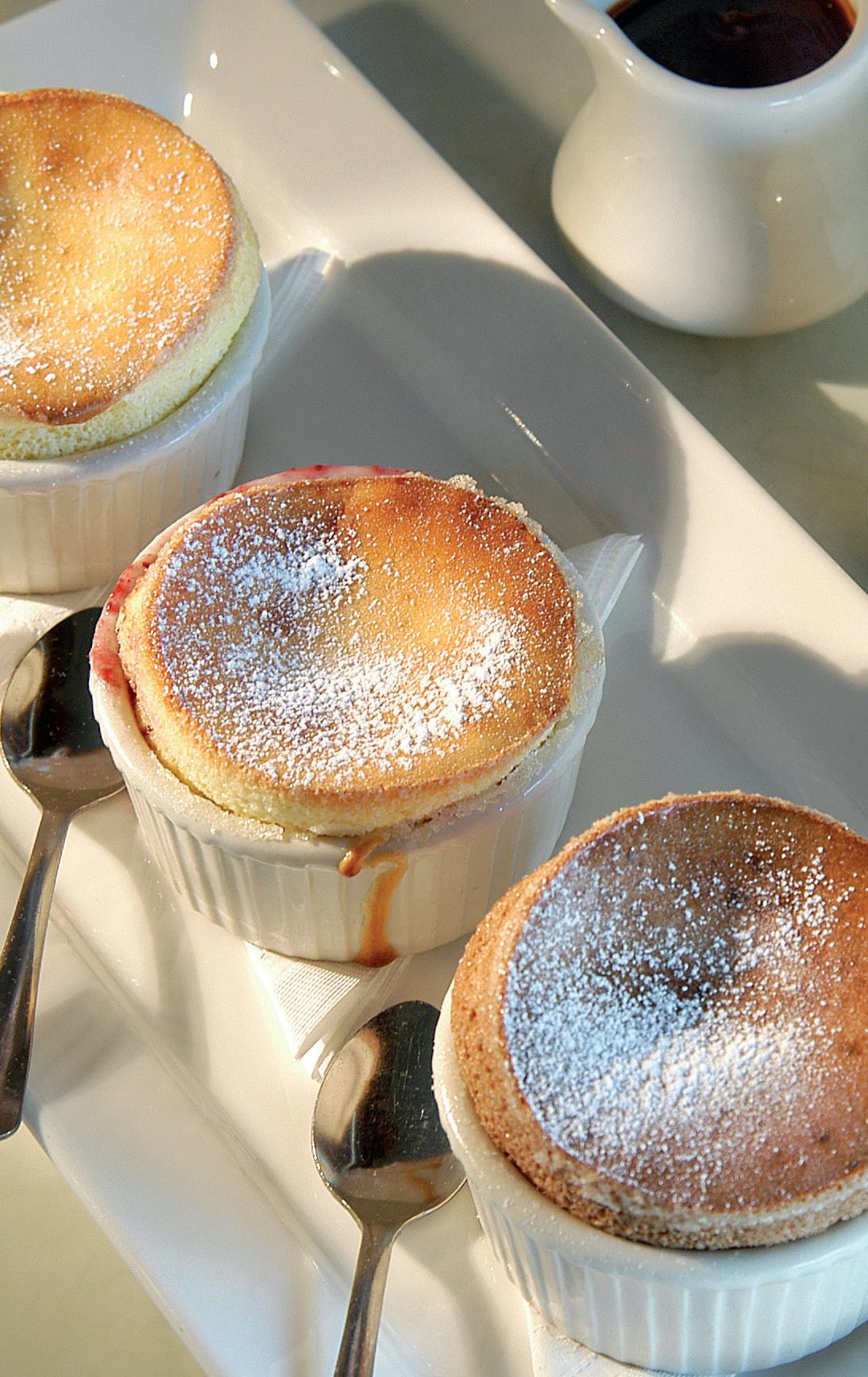
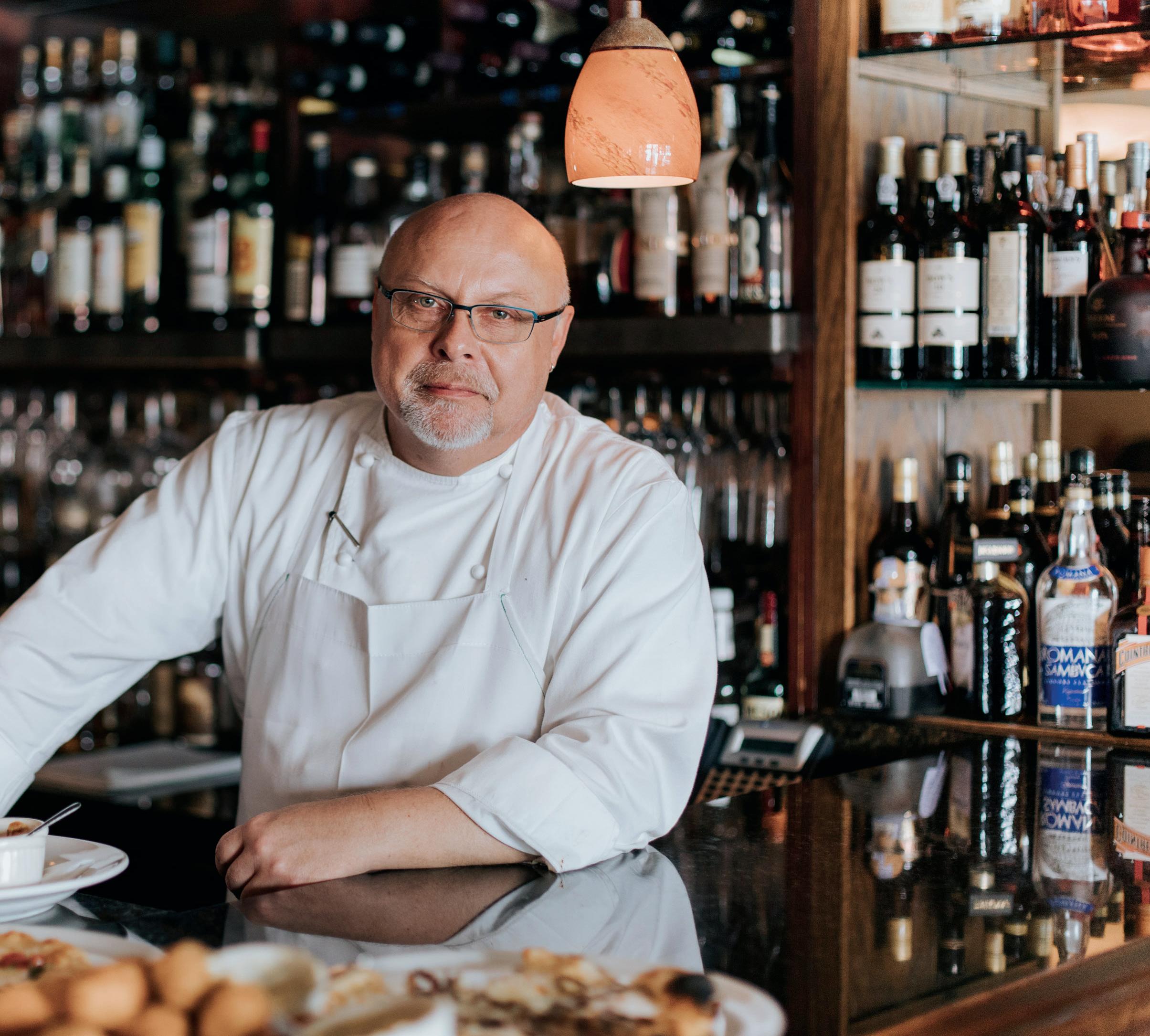
What
Million Will Buy in Coral Gables
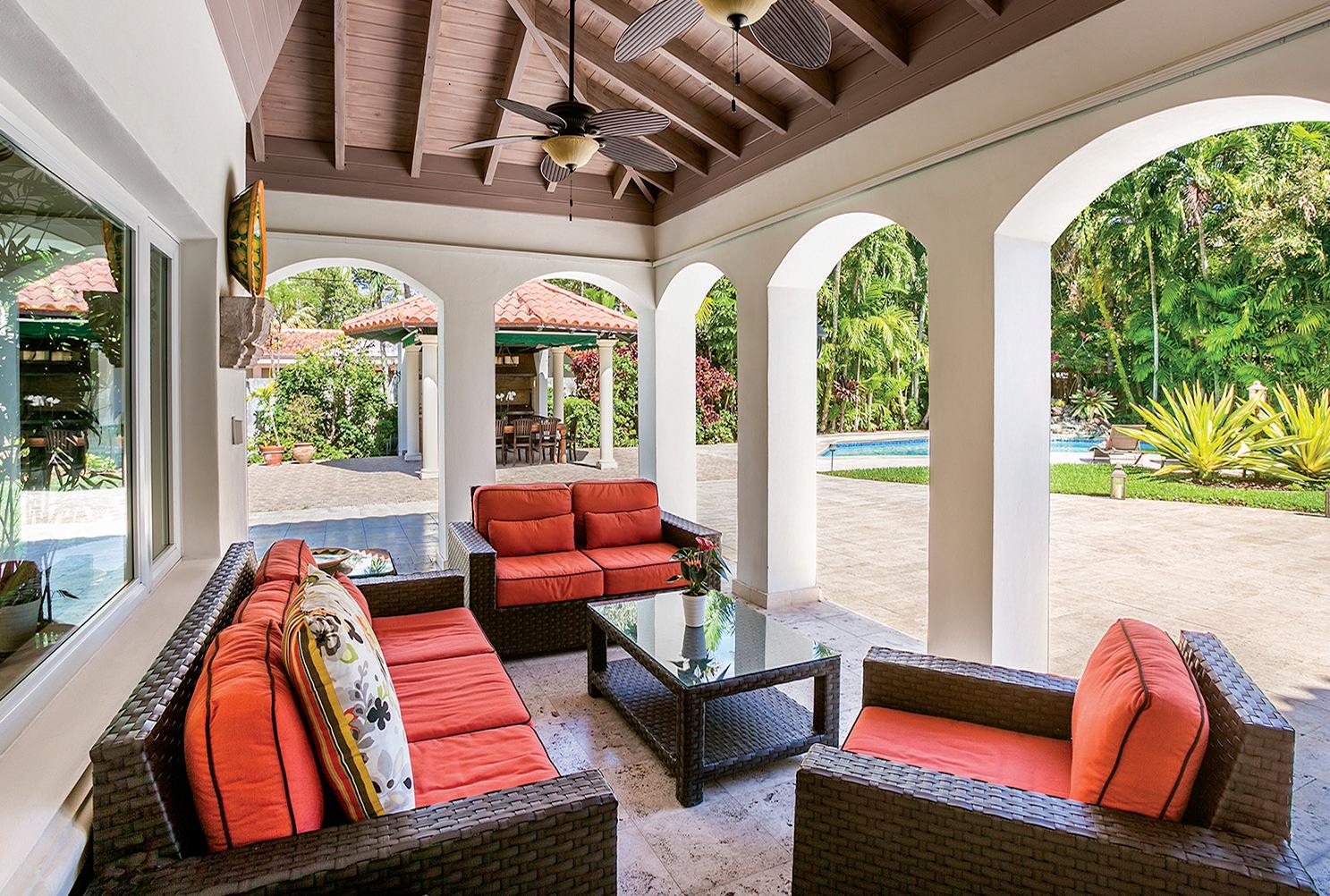
Coral Gables has some of the most valuable real estate in South Florida, with a median price per square foot ($423) that is almost twice that of the Miami/Fort Lauderdale area. Average prices over the last five years have risen 43 percent.
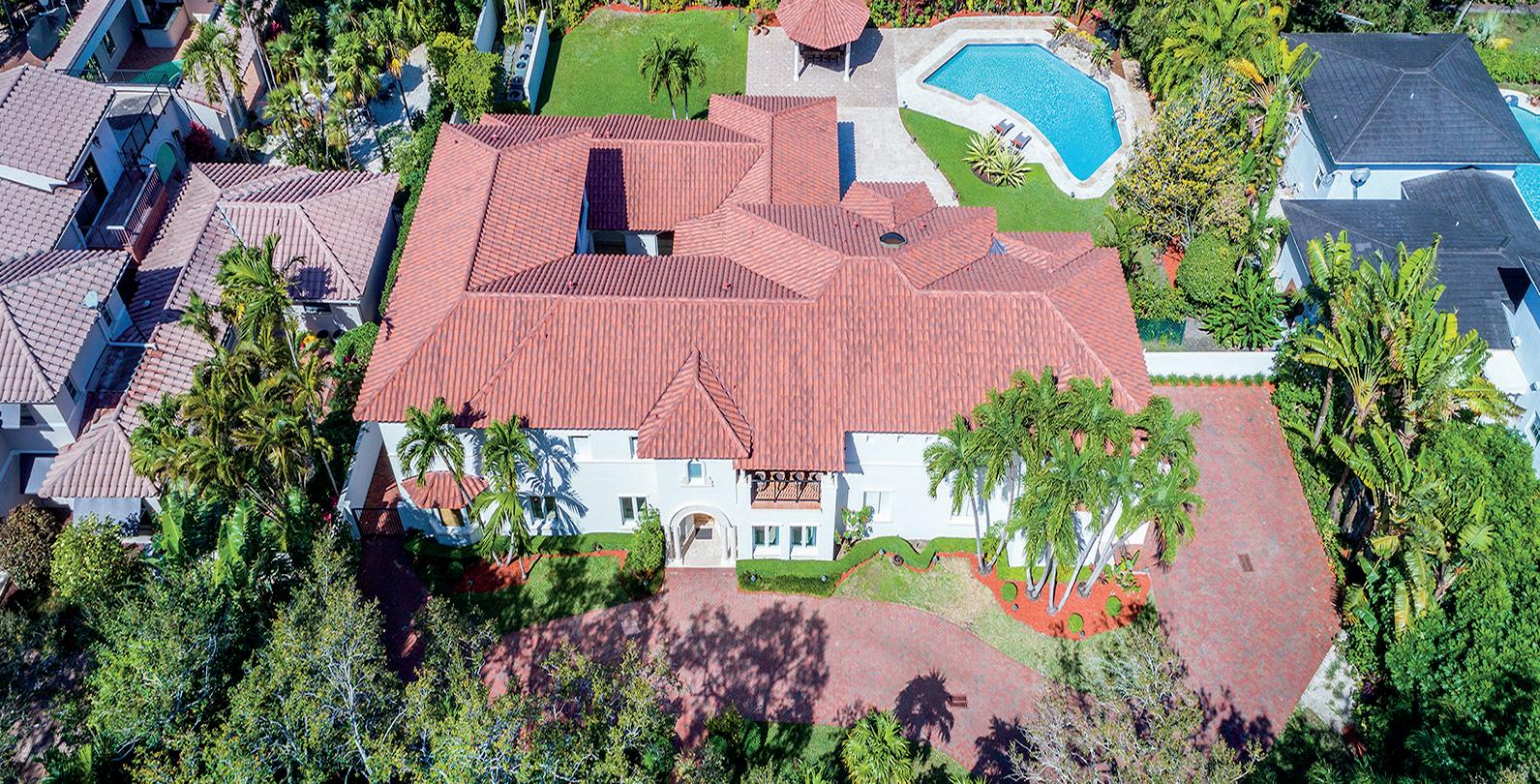
To see what $4-5 million would buy today, we asked four real estate agents to submit one of their homes for sale in that price range – give or take a few hundred thousand dollars. Here is what they came up with, in different Gables locations.
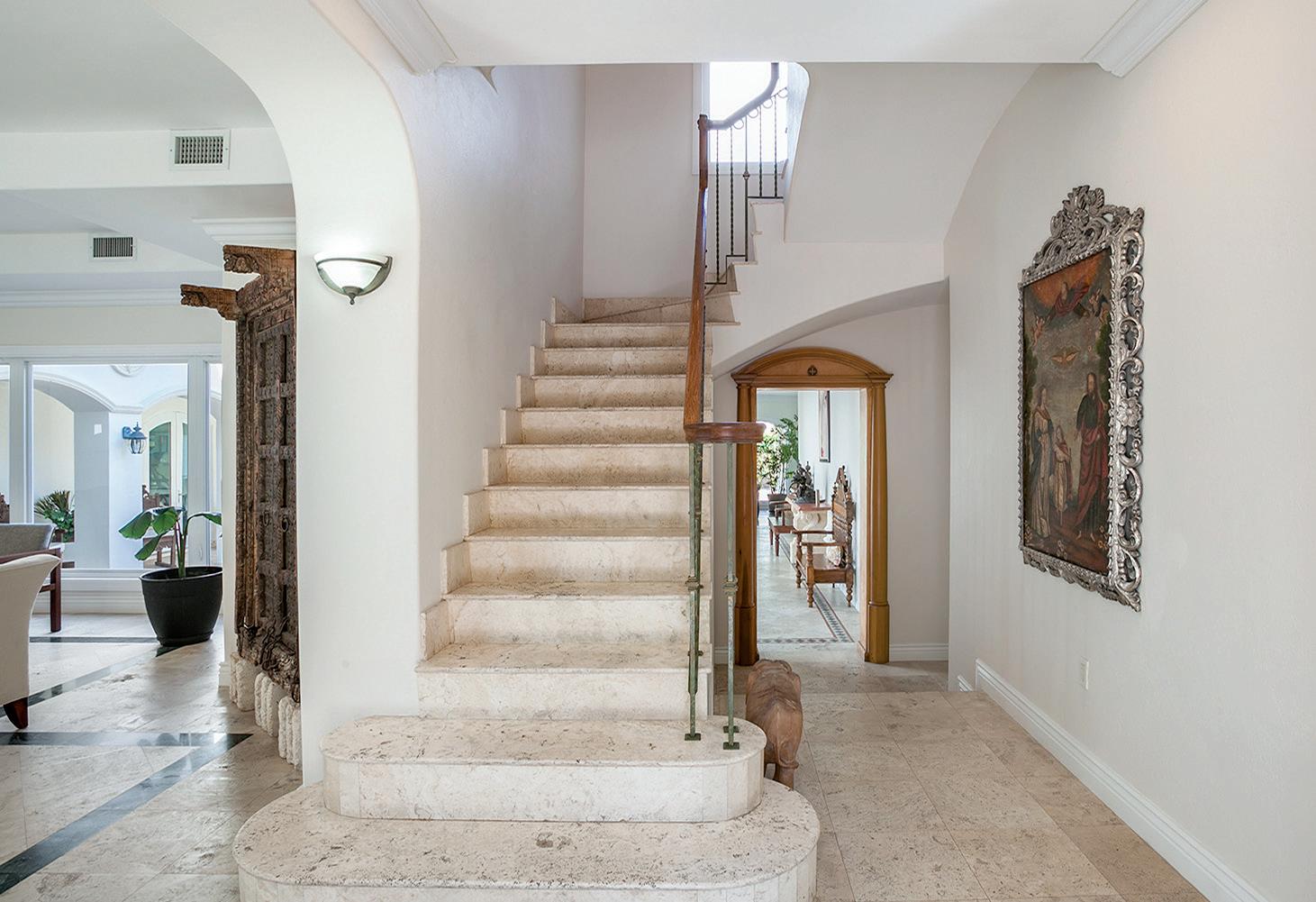
Listing Price
$4.9M
Modern Waterfront
4510 GRANADA BLVD
6 bed/6 bath/1 half bath. 6,602 sq. ft.; 19,884 sq. ft. lot
Resting on the Coral Gables waterway, with access to the ocean, this sun-filled modern mansion has a pool, boat dock, 3-car garage, marble and wood floors, enormous walk-in closets, a wine cellar, Chicago-brick driveway and an array of expansive verandas and terraces.
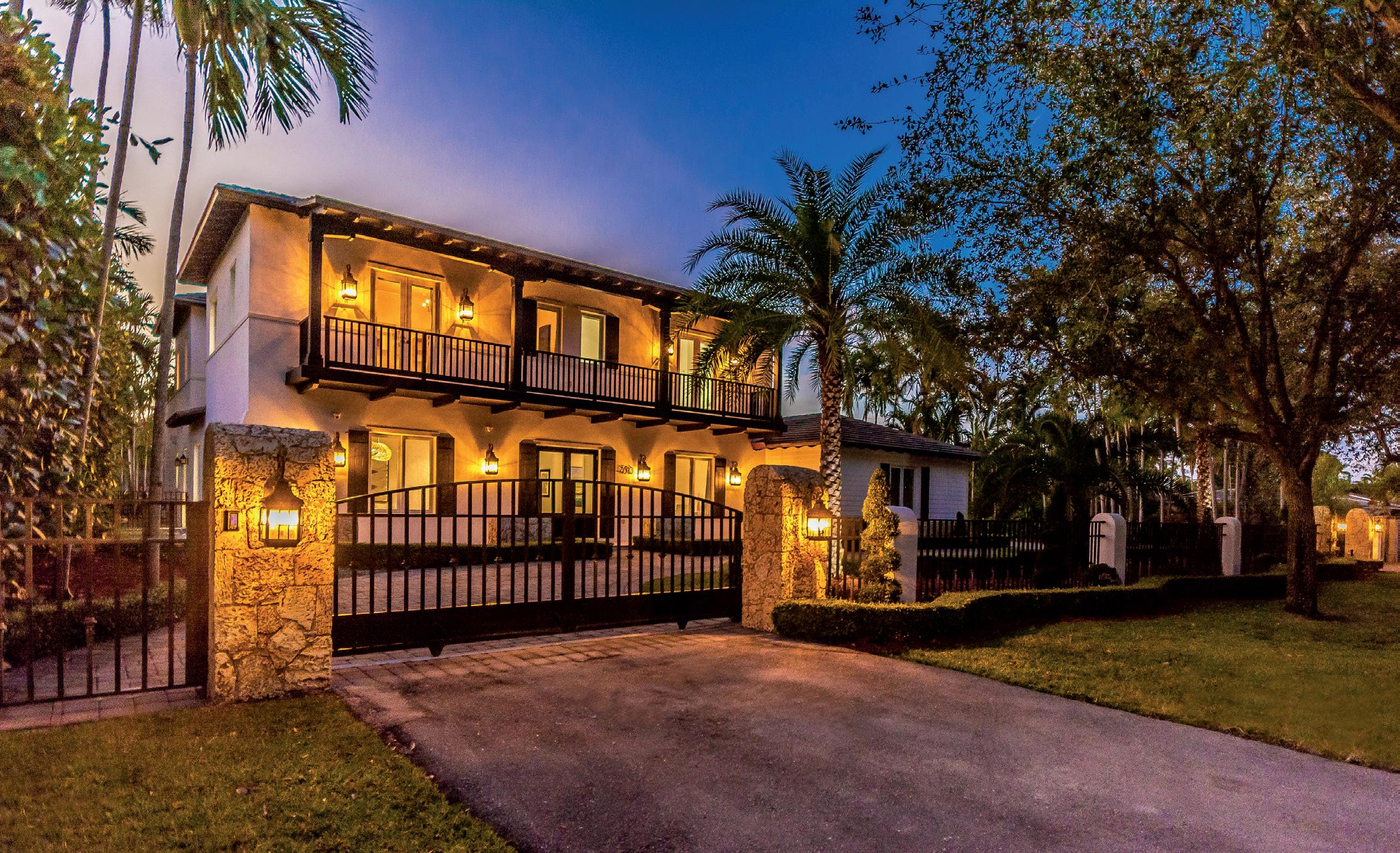
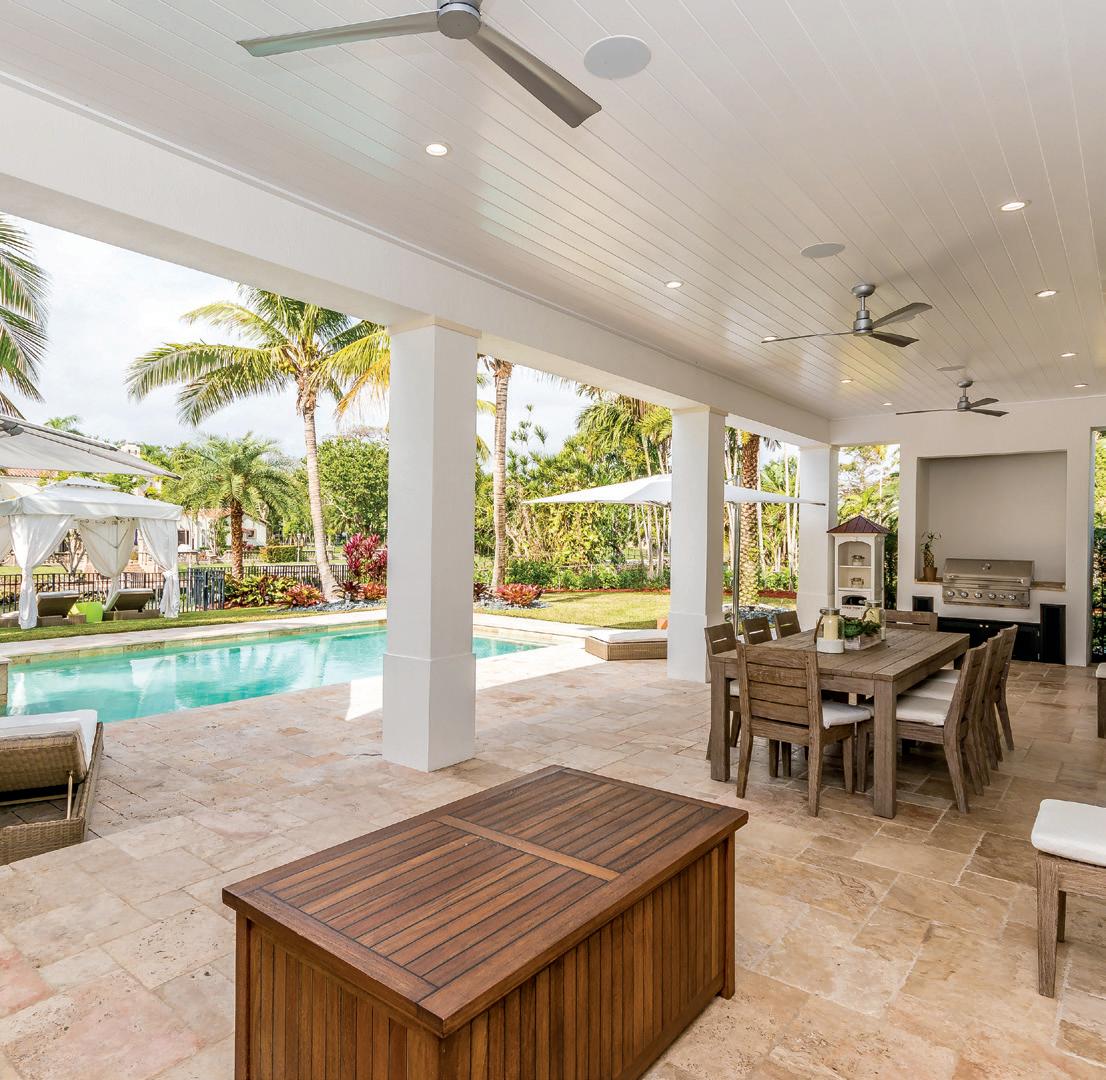

Plantation Style Estate

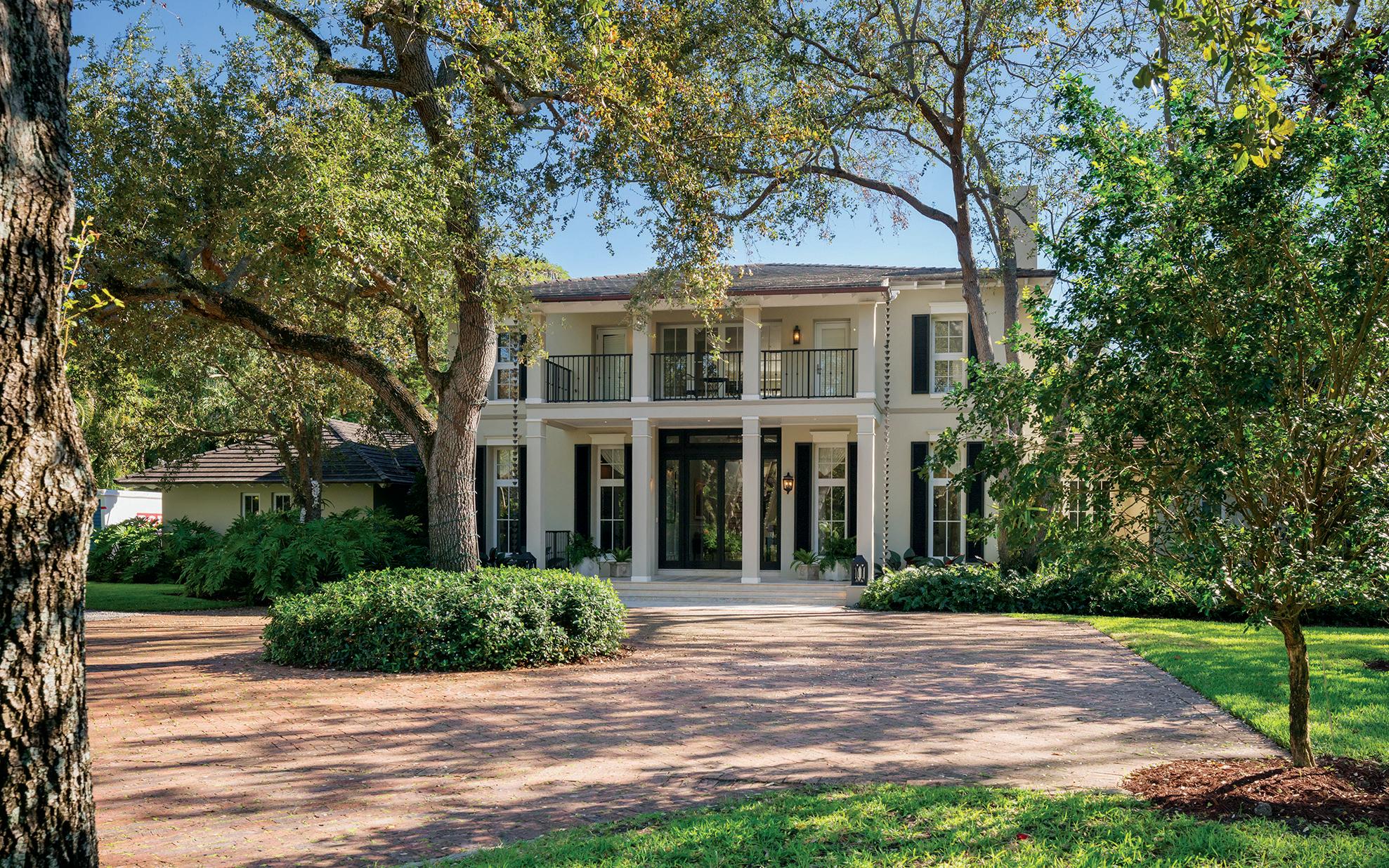
4550 SUNSET DRIVE
Listing Price
$4.4M
6 bed/5 bath. 6,204 sq. ft.; 49,223 sq. ft. lot South Gables home nestled in lush landscaping, with vaulted ceiling foyer, wood floors, wood pub-style bar, ground floor master bedroom, upstairs family room with balcony. Traditional kitchen with farm-style pantry, pool, backyard with stone floors, covered terraces, full cabana bath, and lit basketball court.
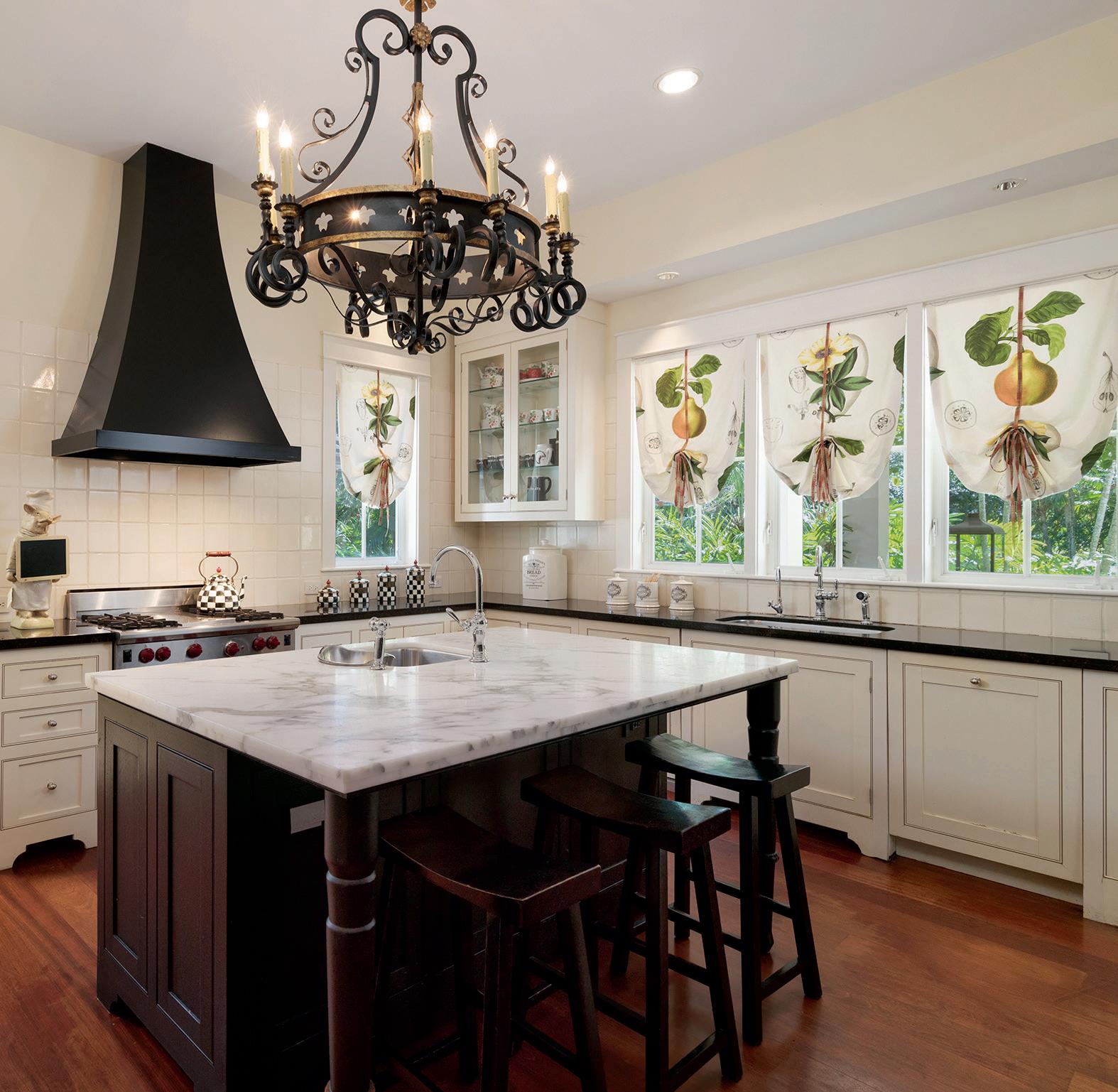
Listing Price
$4.5M
Modern in Cocoplum
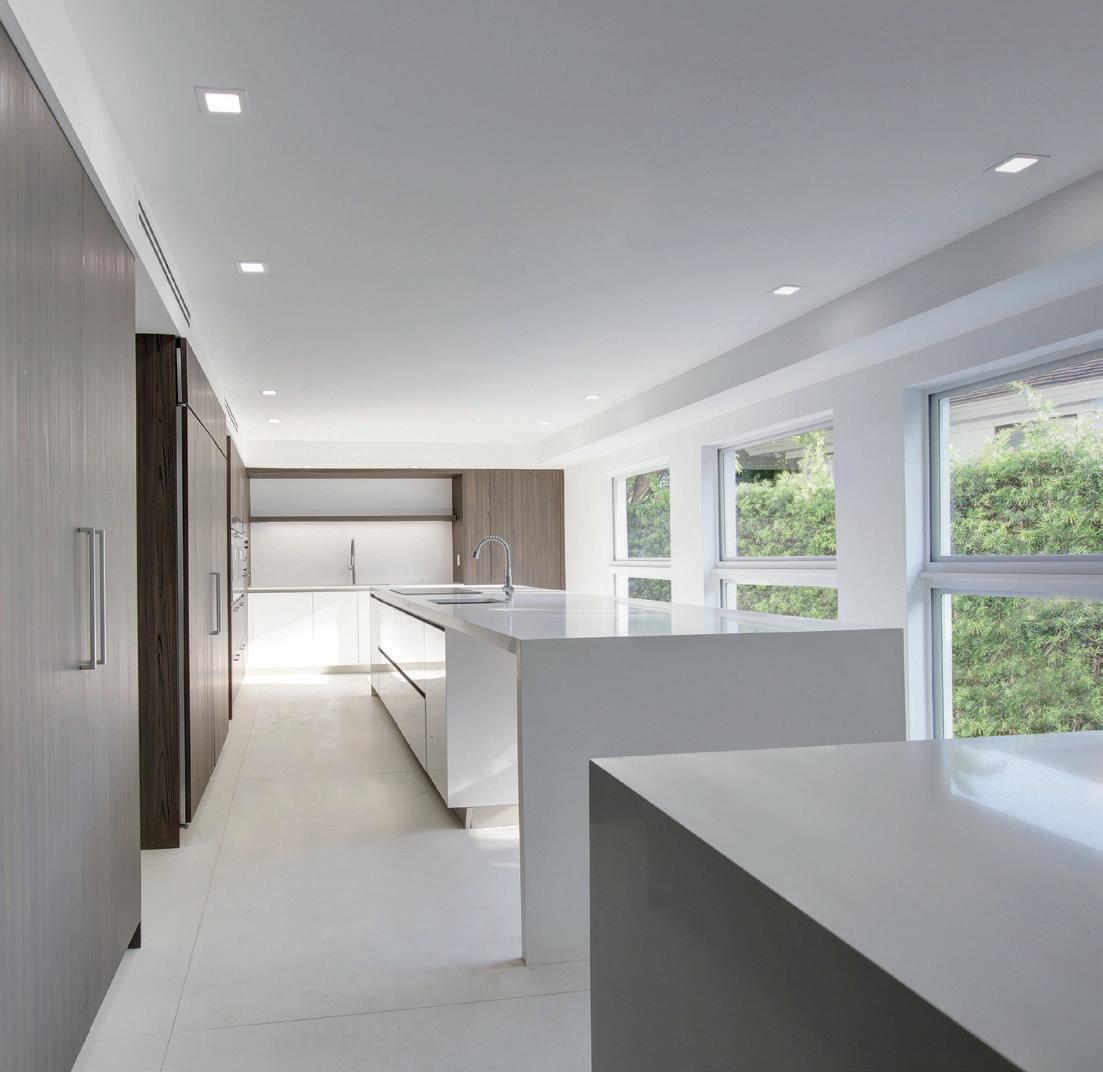
7810 LOS PINOS BLVD
7 bed/9 bath/8,370 sq. ft.
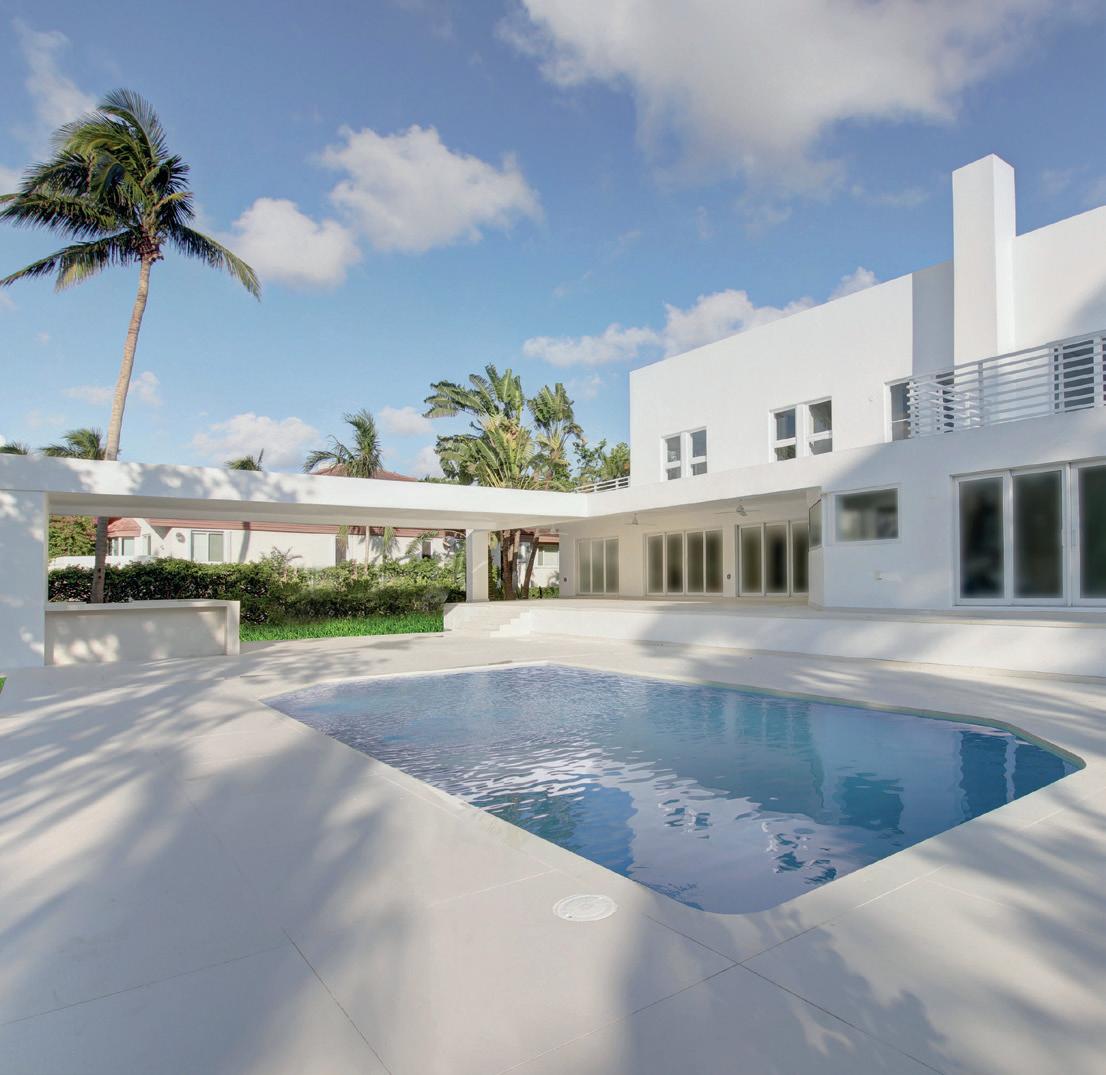
This custom-built home stands out from the typically traditional and Mediterranean homes in the community. Open floor plan and large windows overlook an oversized pool patio area. Oversized Snaidero kitchen with state of the art appliances, double dishwashers and wine fridge. Third floor guest quarters.
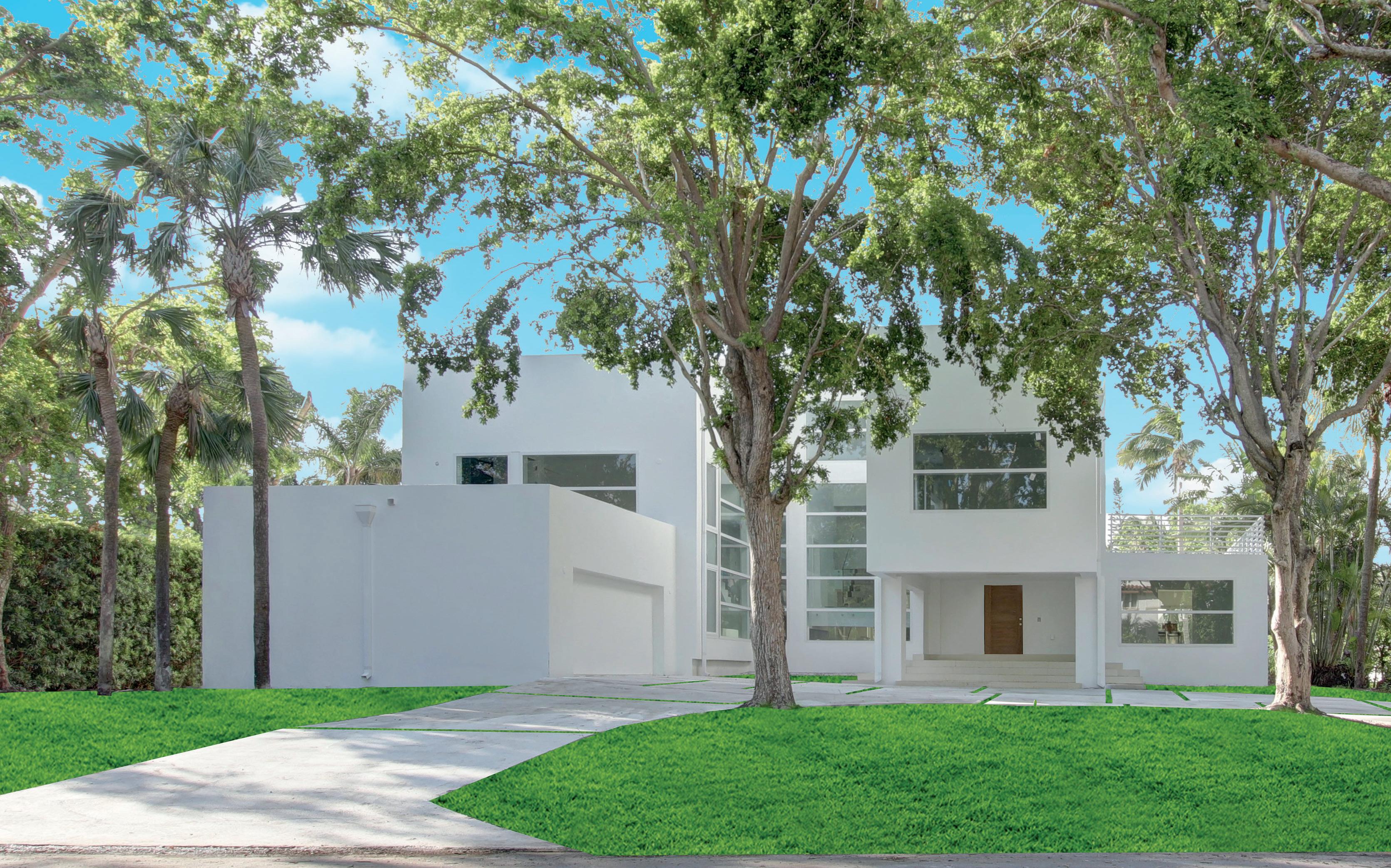
Meet Florida Poly
NEARLY 900 PEOPLE ARE MOVING INTO FLORIDA EACH DAY, WHICH REQUIRES US TO THINK BOTH STRATEGICALLY AND DISRUPTIVELY WHEN IT COMES TO INDUSTRY CHANGE AND FUTURE JOB GROWTH. FLORIDA POLYTECHNIC UNIVERSITY IS WELL POISED TO TACKLE THESE CHALLENGES.
heart of Florida’s high-tech I-4 corridor. Founded in 2012 by the Florida Legislature as our state’s 12th university, Florida Poly graduated its first full class of 200-plus students just this past May.
As Florida Polytechnic University’s inaugural president, Dr. Avent is committed to strategically developing Florida Poly as a research and jobs university, an agent for growth, and a beacon for the economy of our state. His background at MIT and NC State suits him well for this role.
Florida Polytechnic University prides itself on offering a rigorous curriculum, small class sizes, and faculty with experience both in the classroom and in business and industry. It distinguishes itself from other STEM schools by offering six degrees, including computer engineering, electrical engineering, mechanical engineering, computer science, business analytics, and data science, across 19 areas of concentration.
teaching and directing research at higher-education institutions, and connecting with the business community via partnerships and collaboration.
Not a day goes by in our Gables Chamber and peer groups when we don’t talk about talent development (and retention) here in South Florida, especially in STEM industries that often struggle to compete for experienced professionals and recent graduates. Dr. Avent is committed to providing talent state-wide and assessing our future needs to remain competitive.
This past month, our Coral Gables Chamber of Commerce hosted Dr. Randy Avent, Founding President of Florida Polytechnic University, as keynote speaker for our signature monthly networking breakfast, Good Morning Coral Gables.
Florida Poly, as it is affectionately known, is our state’s only accredited public university with an exclusive focus on the core STEM disciplines of science, technology, engineering and mathematics. Their new campus is located between Tampa and Orlando in the
Graduates have the skills, education and confidence to quickly integrate into any work environment in the fast-evolving labor market. They are highly trained, highly skilled and well positioned to be “lifetime employable,” as Dr. Avent describes, and not just prepared for the first job.
As we learned during his presentation to the Chamber, Avent’s career exemplifies the qualities of innovation, leadership and entrepreneurship the university seeks to instill in all its students and graduates. An accomplished academician and research scientist, Dr. Avent has an extensive background
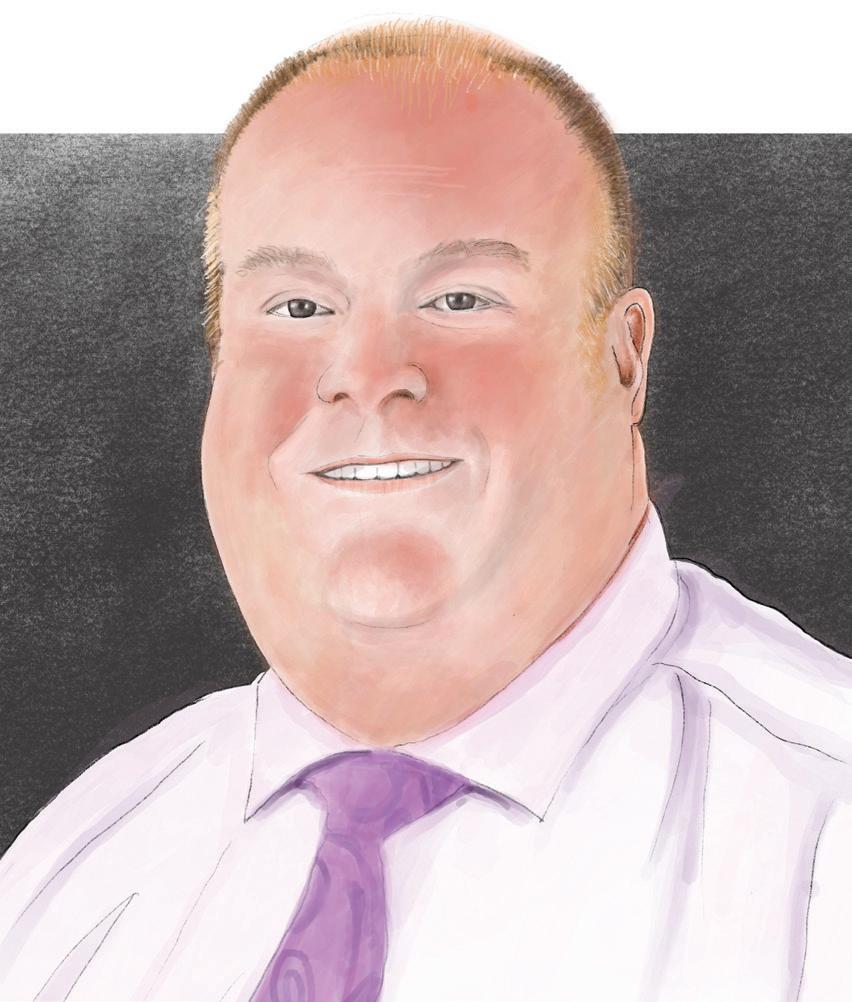
Avent and Florida Poly have developed partnerships with 200 companies around the state, crucial for a required internship program for each Poly student. It is no surprise that 94 percent of Poly students have a job offer or acceptance to an advanced degree program on graduation day. And, with 75 percent of the graduates staying in state, Florida Poly is a future force as economic growth in Florida will be driven by the workforce’s ability to design, implement, test and generate innovative ideas, products and services that involve science and technology.
Ultimately, STEM education in Florida is focused on generating new ideas, concepts and theories that address real-world challenges and spur scientific breakthroughs. Our local economy depends on meeting today’s needs, as well as preparing for the next generation of jobs and industry that go far beyond a traditional curriculum. The graduates of Florida Polytechnic University are our future and that future is now.
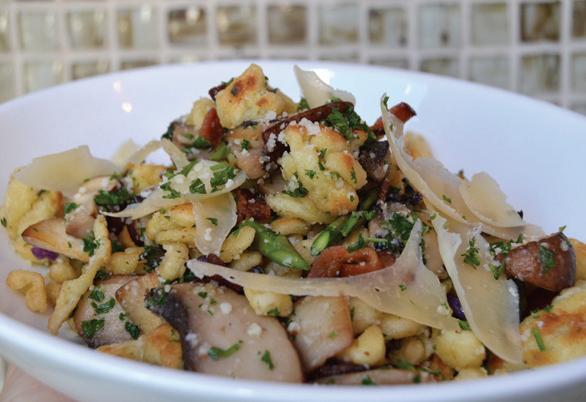
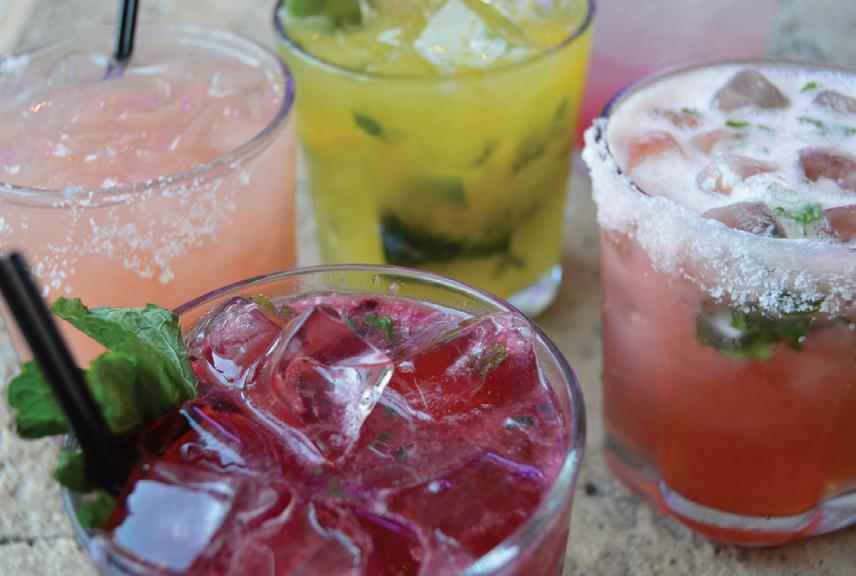

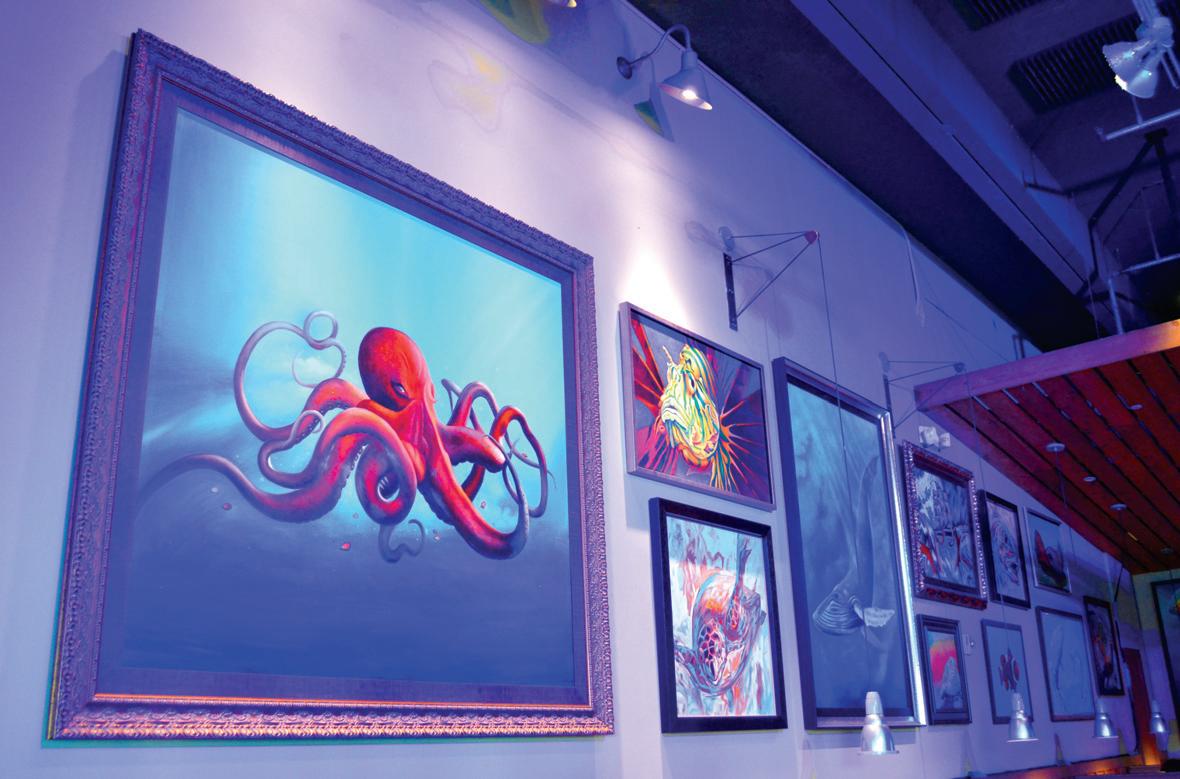
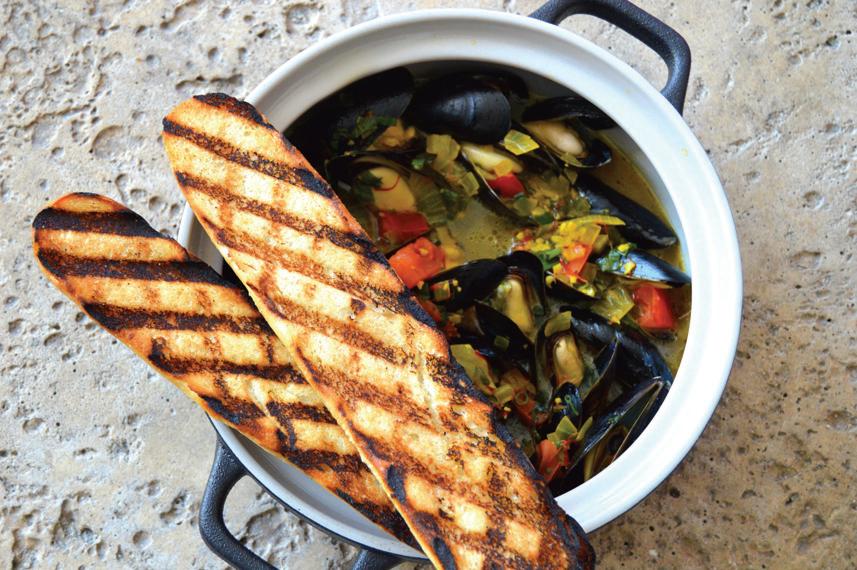
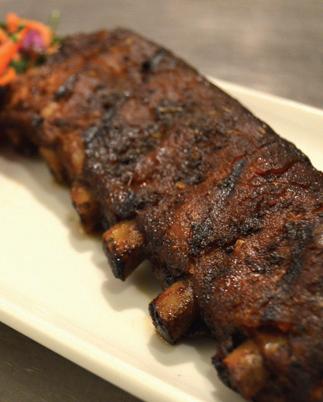
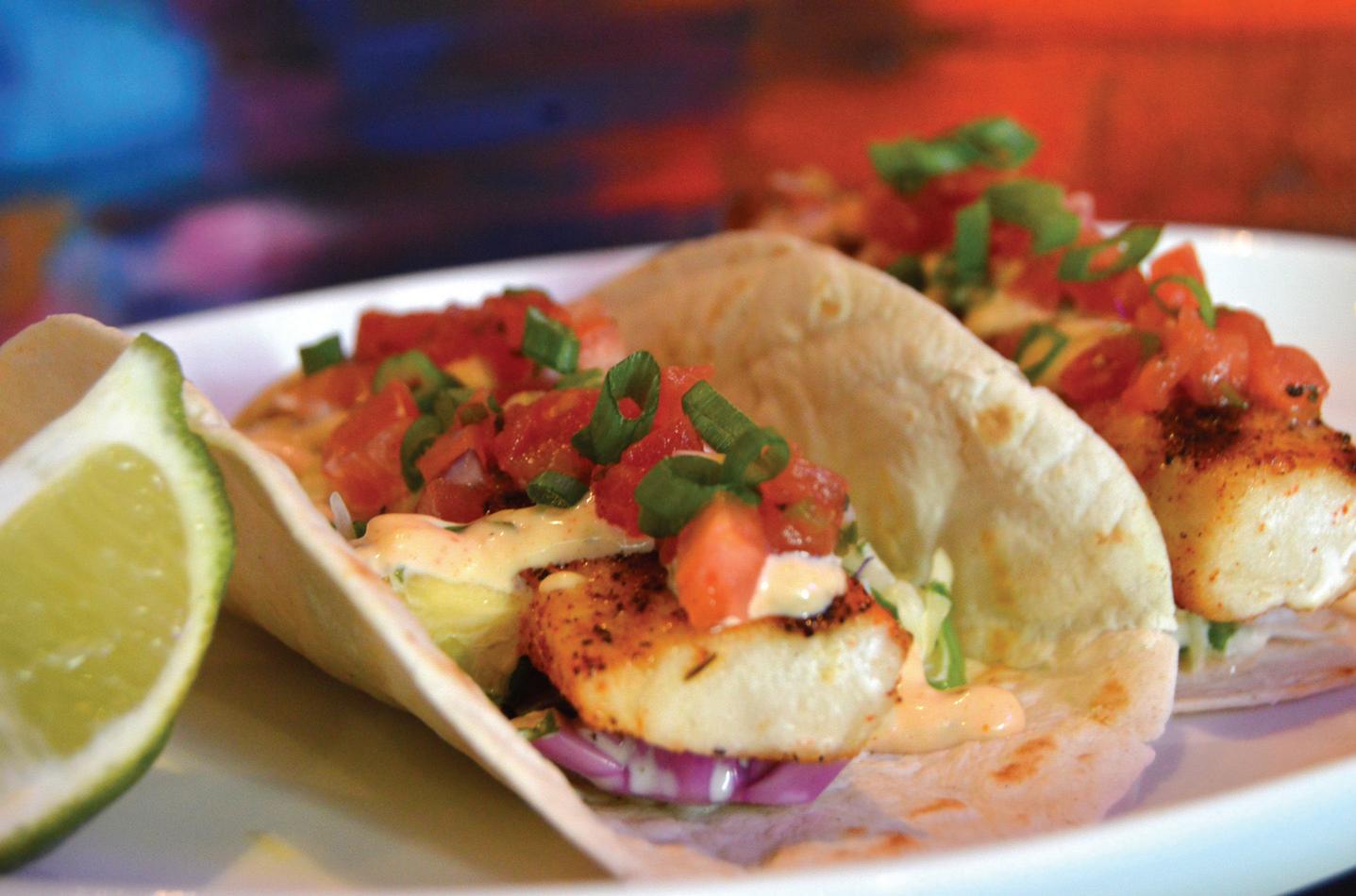 Your Money by Eileen Santana
Your Money by Eileen Santana
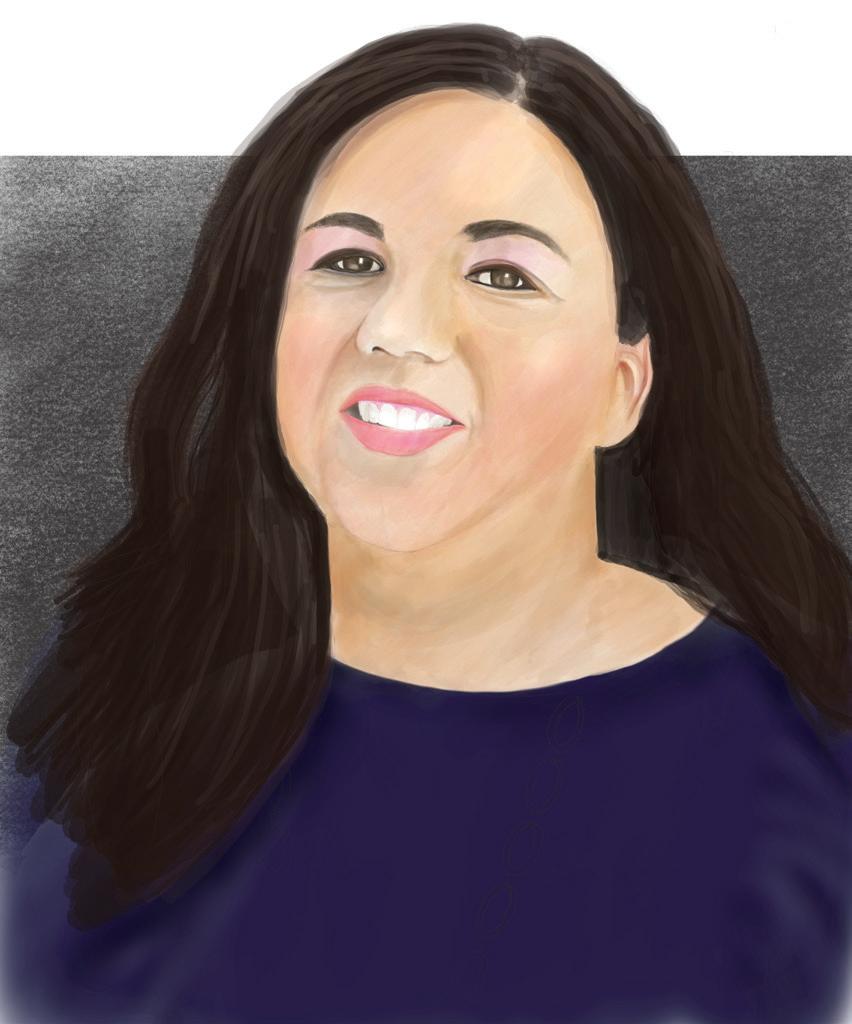
The importance of financial planning for hurricane season
not always top of mind. Do you have an emergency fund in place? Do you have adequate insurance on your home and businesses? Are your documents protected? The following tips are critical to avoiding a category five financial crisis in the event of a hurricane.
Establish an emergency fund: With any emergency comes additional unexpected expenses. Having an emergency fund in place can ensure that you don’t have to sell securities or assets at an inopportune time, like when the market is bearish, and having to incur short-term capital gains taxes. An emergency fund consists of a savings account with enough funds to cover the cost of hurricane supplies, evacuation costs such as hotels and gas, home repairs (while you wait for insurance reimbursement), cash in the event of a power outage (as ATMs and banks will not be accessible), and a credit card designated for emergency use only.
that flooding is not covered under your homeowner’s policy, and that you may want to consider a comprehensive umbrella policy if you are a high networth family with additional liability exposure.
Protect your documents: It’s important to keep a digital backup of all important documents and a printed copy in a secure, fire and water-proof container. Important documents include copies of ID’s, social security cards, birth certificates, passports, insurance policies, mortgage deeds, car titles, estate plans, health care proxy and durable power of attorney, among others. These documents will help you verify your identity and ownership of assets if necessary.
With hurricane season upon us and the aftermath of Hurricane Irma on the City Beautiful still fresh in our minds, now is the time to start your disaster preparedness. Forecasters are predicting another busy season this year and as residents of Coral Gables, most of us know to stock up on food, water, batteries, gas and other preparation items. But ensuring that our finances are well-organized and protected is
Review your insurance coverage: Make sure you understand what is covered under your homeowner’s policy as well as any automobile, boat, business, or renter’s insurances. Make sure they haven’t lapsed. And remember that Hurricane deductibles are based on a percentage of the home’s insured value. If you have coverage for $766,000 for example (Zillow’s median value for a home in Coral Gables) and have a 5 percent hurricane deductible, that translates into a $38,300 deductible. Also keep in mind
Protect your business: Ensure you have a continuity plan for your business that will include information about your employees, vendors and suppliers. The City of Coral Gables website offers several useful checklists and surveys on hurricane preparedness for your business. A well drafted continuity plan for disaster recovery will not only keep you, your staff, and your customers safe, it will also help you and your business recover promptly and minimize any loss of income or sales. Your city and community will thank you for it.
Financial preparedness is an essential part of hurricane season and a comprehensive financial plan should always provide for unforeseen events. A few simple steps now can help prevent financial headaches later.

Social Seen
The YPO Holds its Annual Dinner
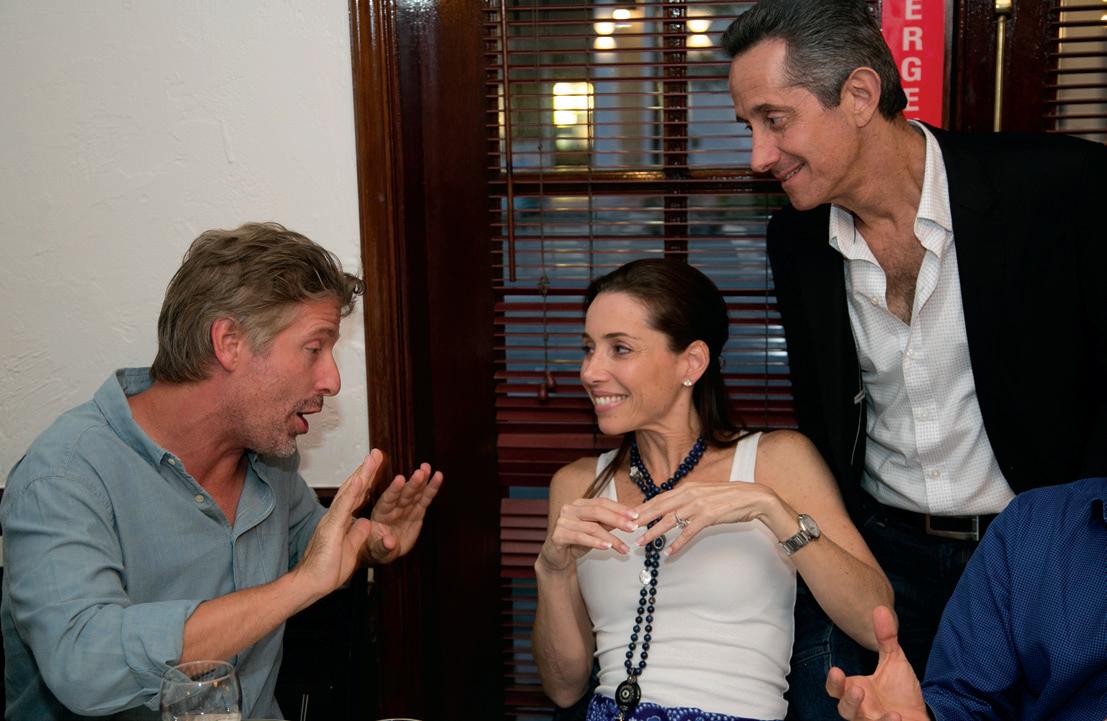
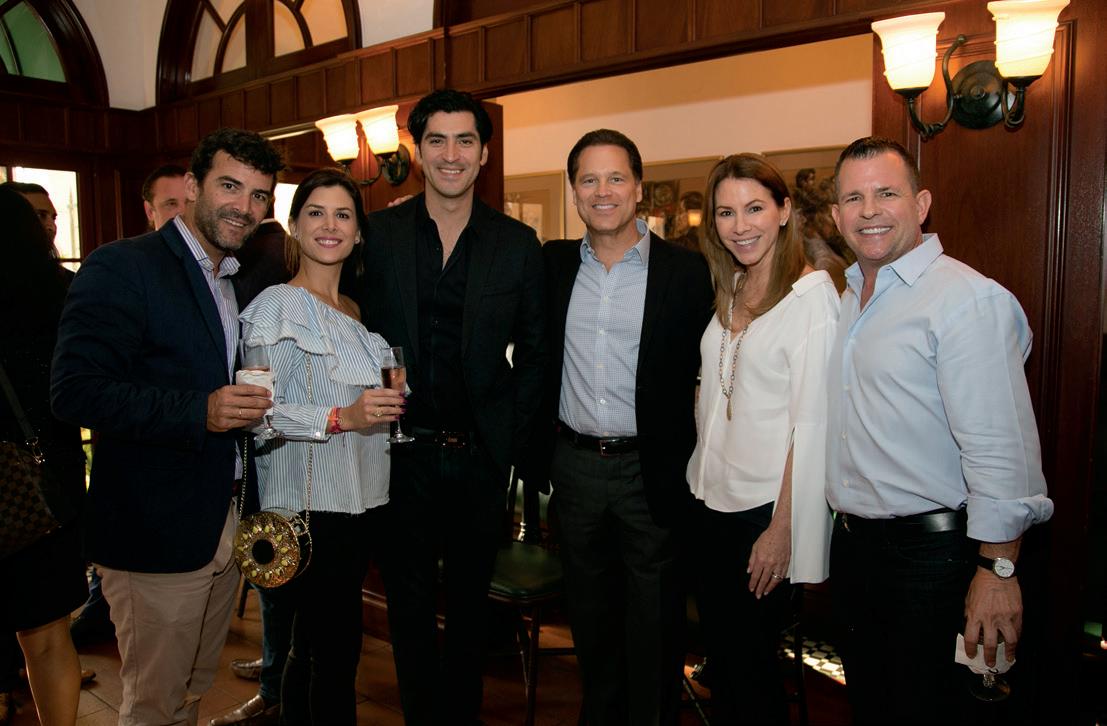
The greater Miami chapter of the YPO (Young President’s Organization) held its fiscal year-end dinner meeting last month at Joe’s Stone Crabs on Miami Beach. Better known as the America’s Gateway Chapter, the YPO chapter was chaired this past year by Gables resident and Patton Real Estate CEO William Holly. Incoming chair Jesse Stein is the CEO of Coral Gables-based Triton Web Properties. YPO is a global network of young chief executives, with 24,000 members in 130 countries.
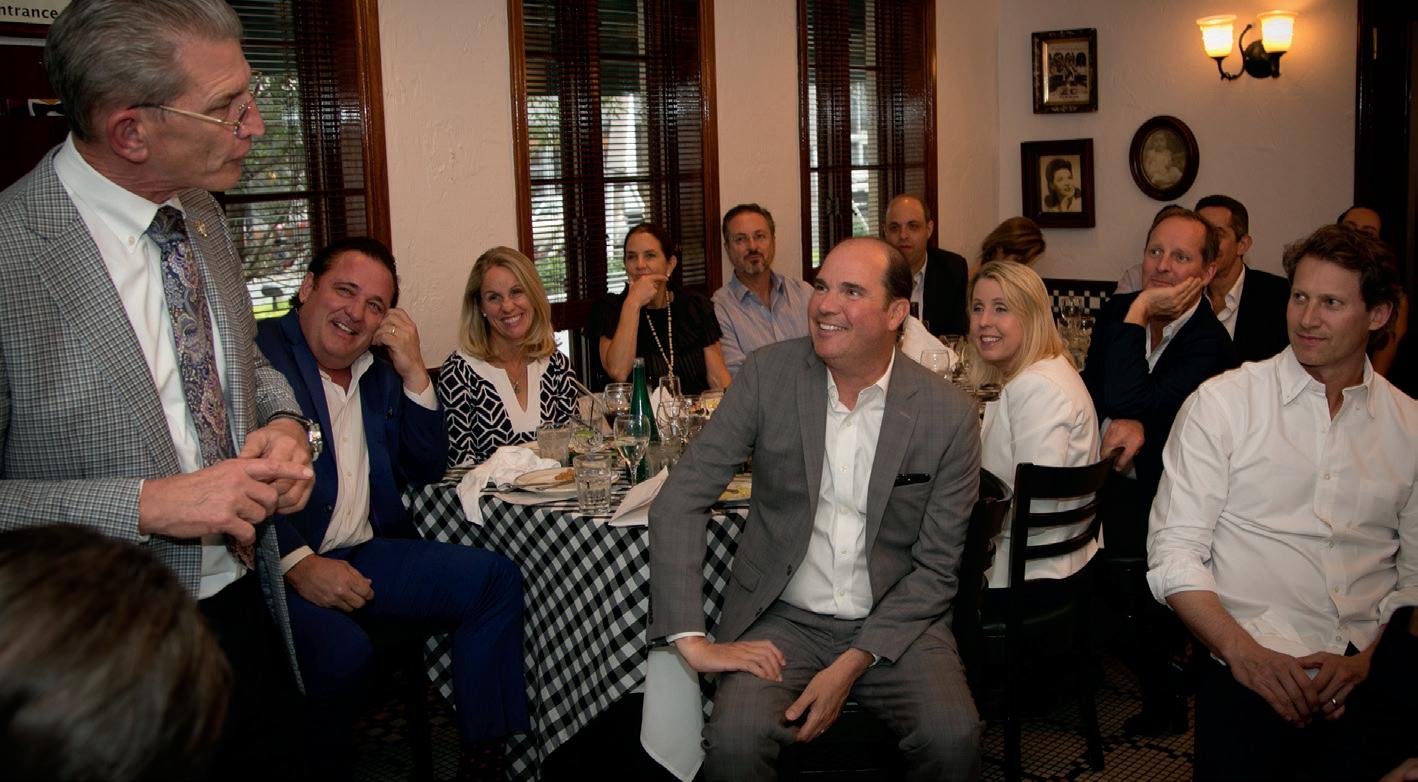
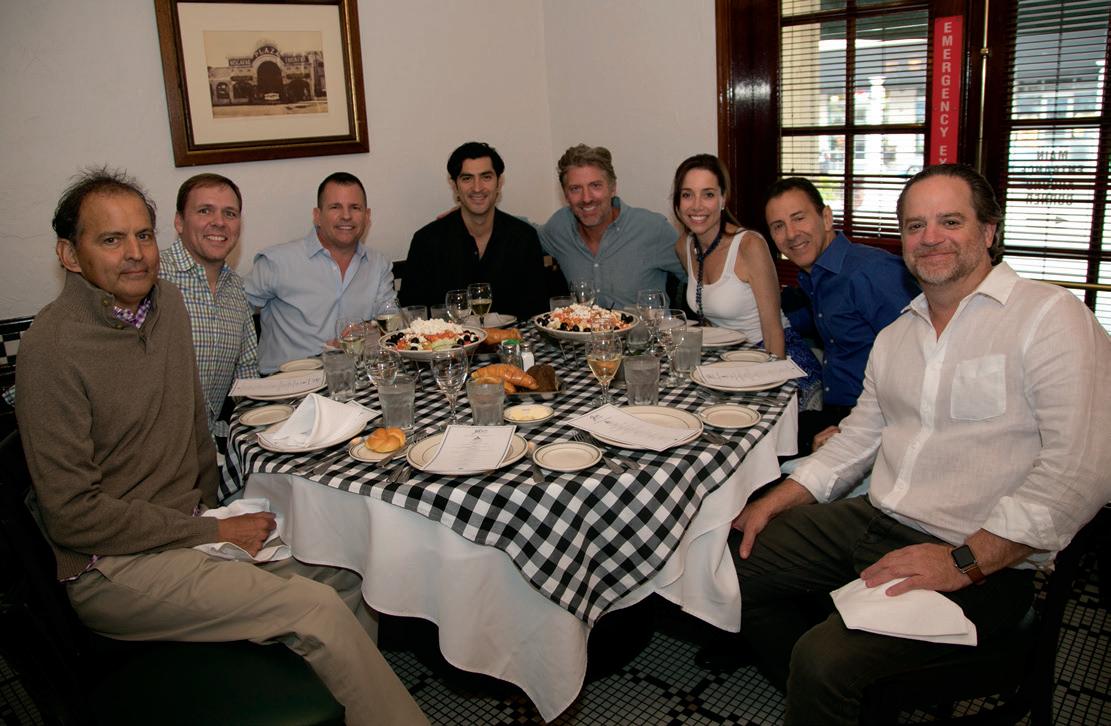
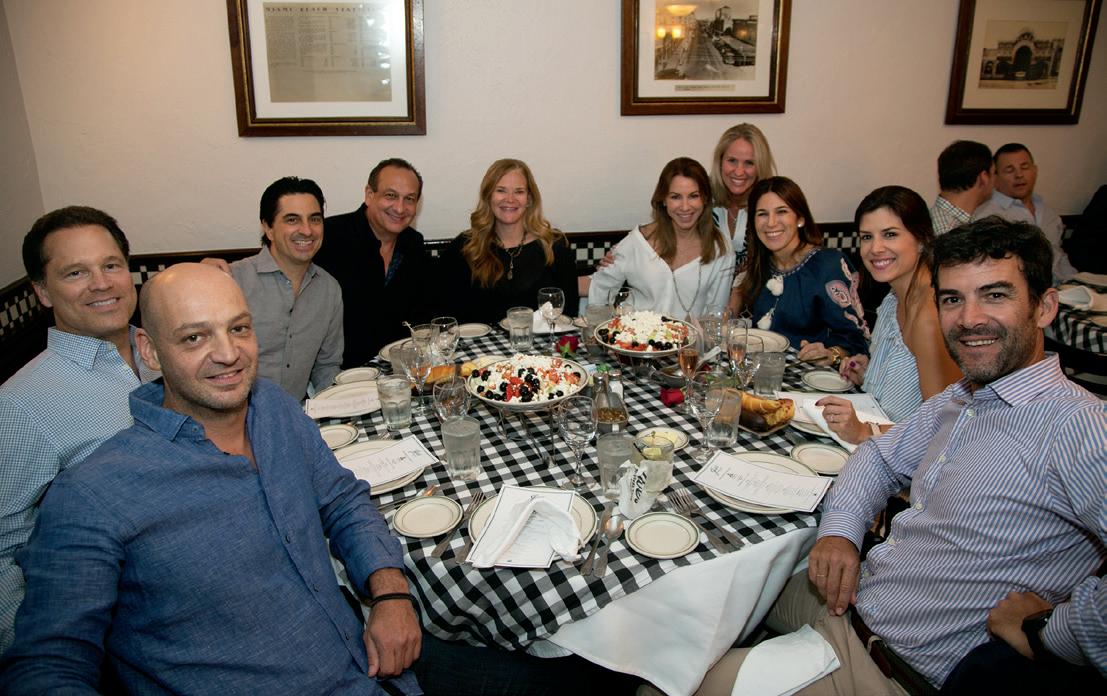
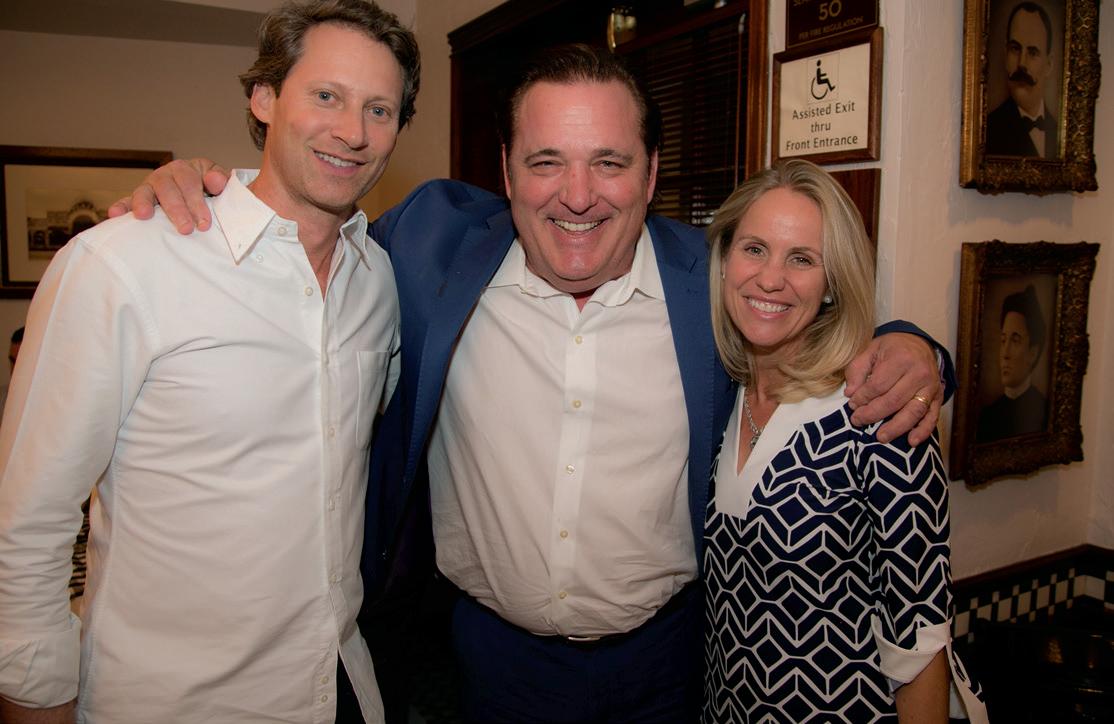
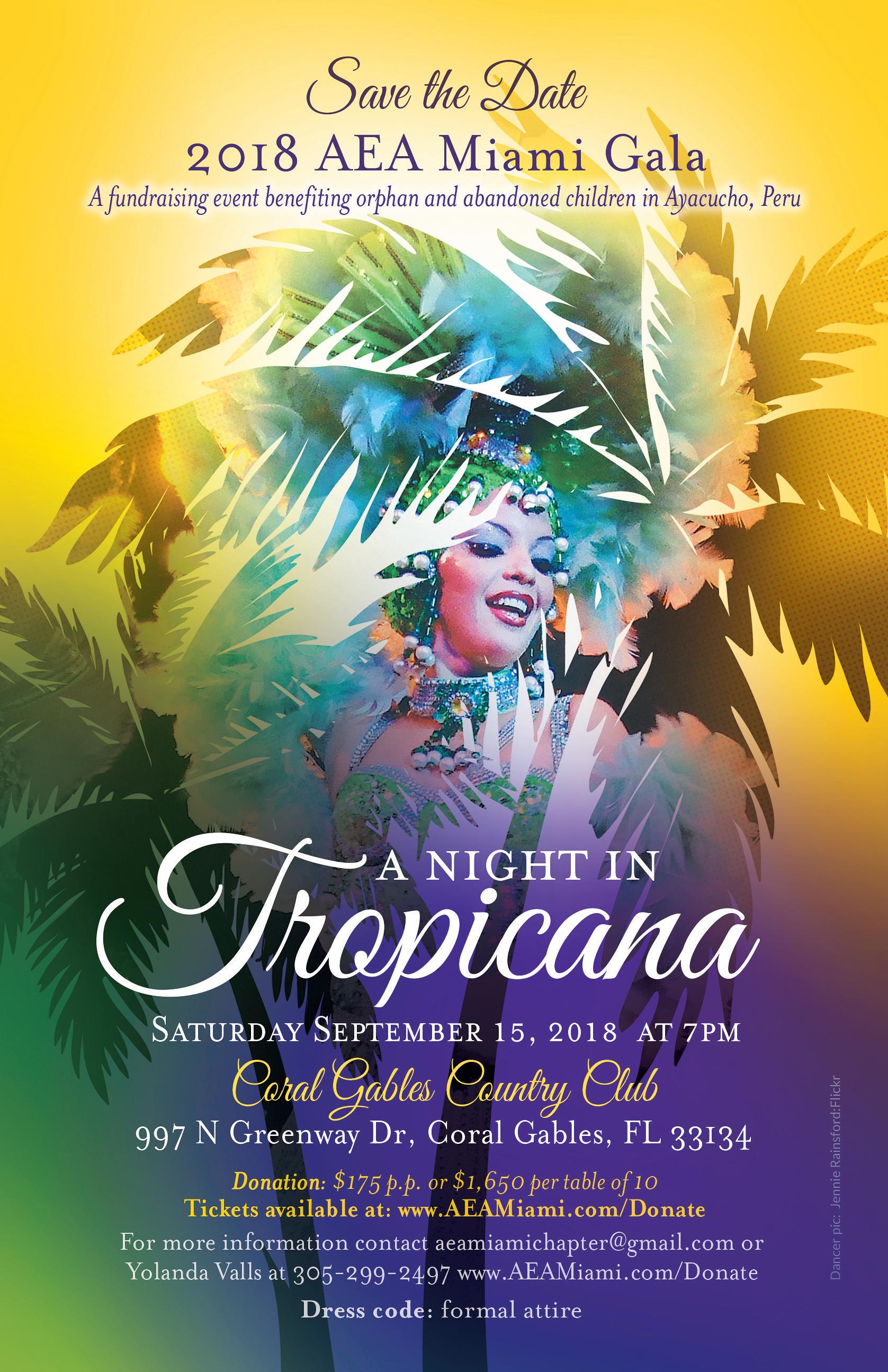
Social Seen
Coral Gables Magazine Launch Party
At the end of May, Coral Gables Magazine celebrated its launch in the art-filled atrium of the Biltmore Parc condominium. Among the speakers was Coral Gables Mayor Raul Valdes-Fauli and Juan Bergaz Pessino, the sixth-generation Bacardi scion appearing on the cover of the May issue. The event was attended by 275 people, sponsored by Infiniti of Coral Gables, and hosted by MG Developer CEO Alirio Torrealba, whose company built the Biltmore Parc.
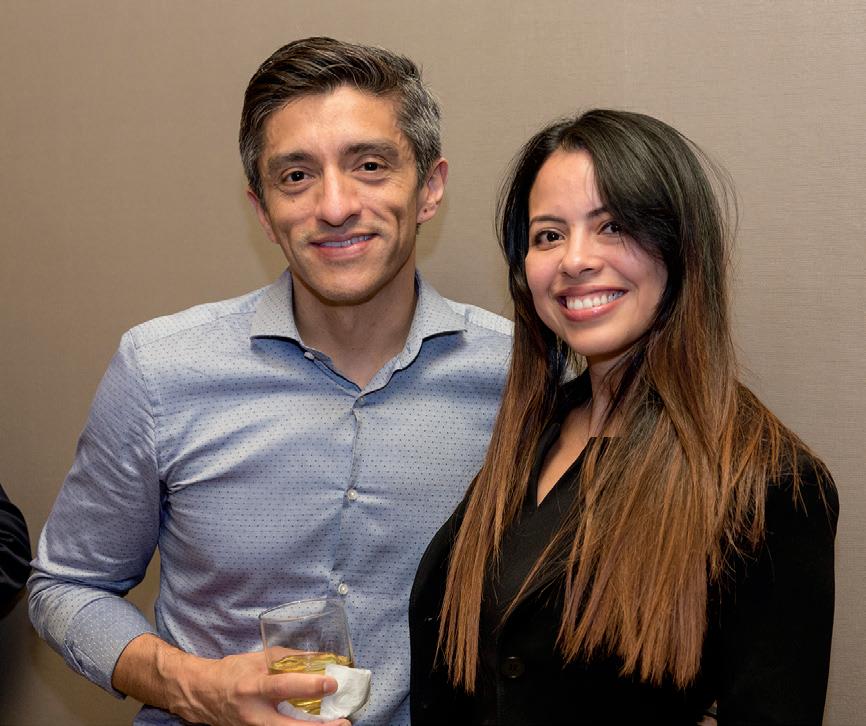
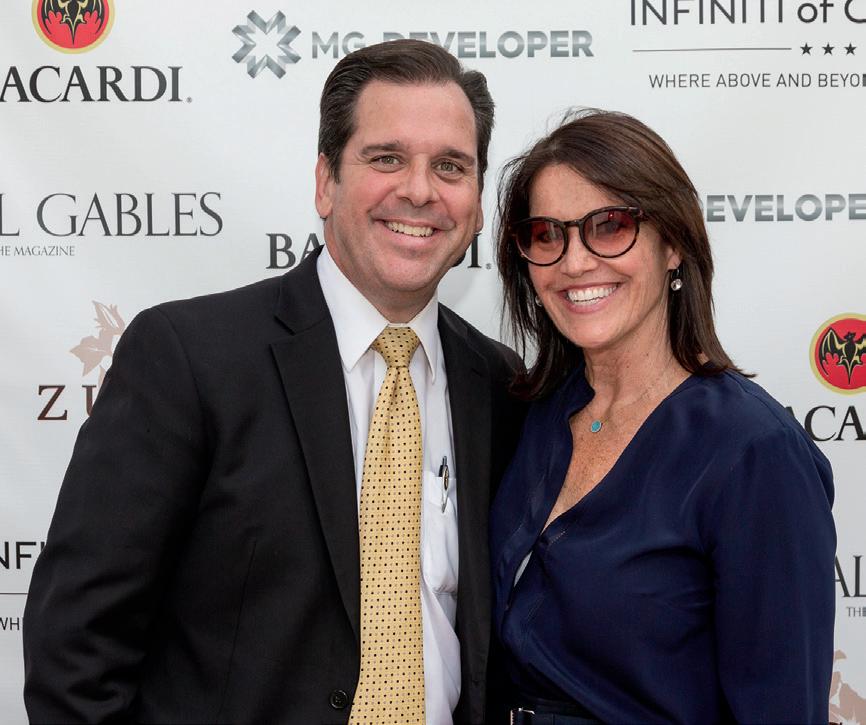
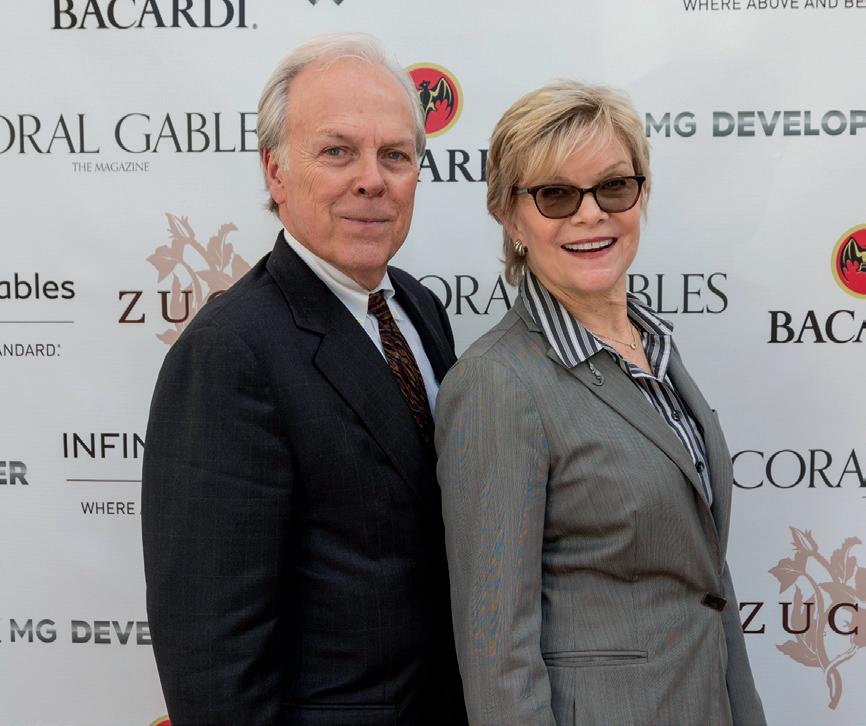
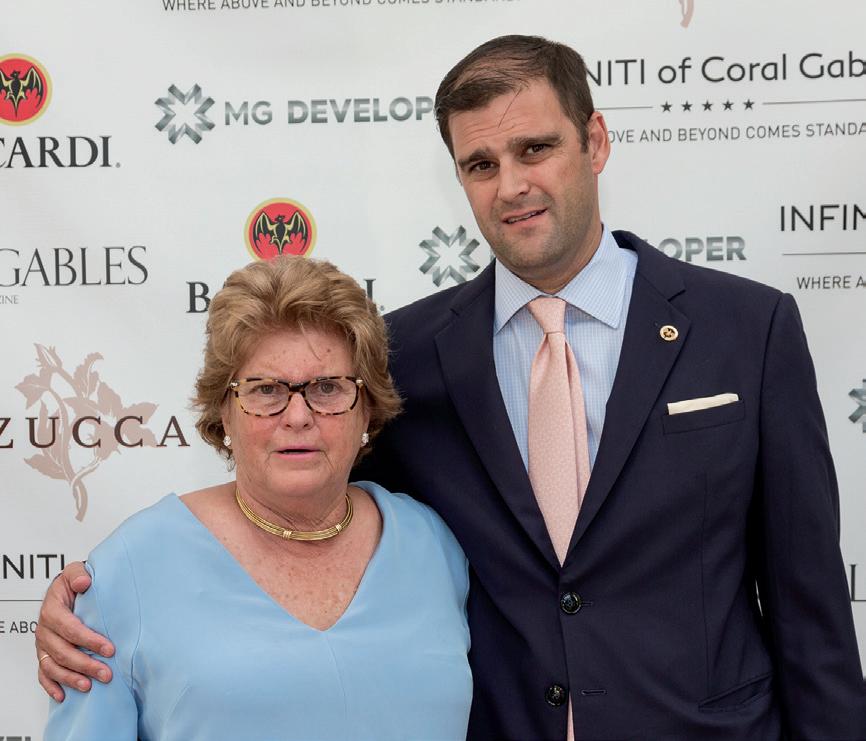
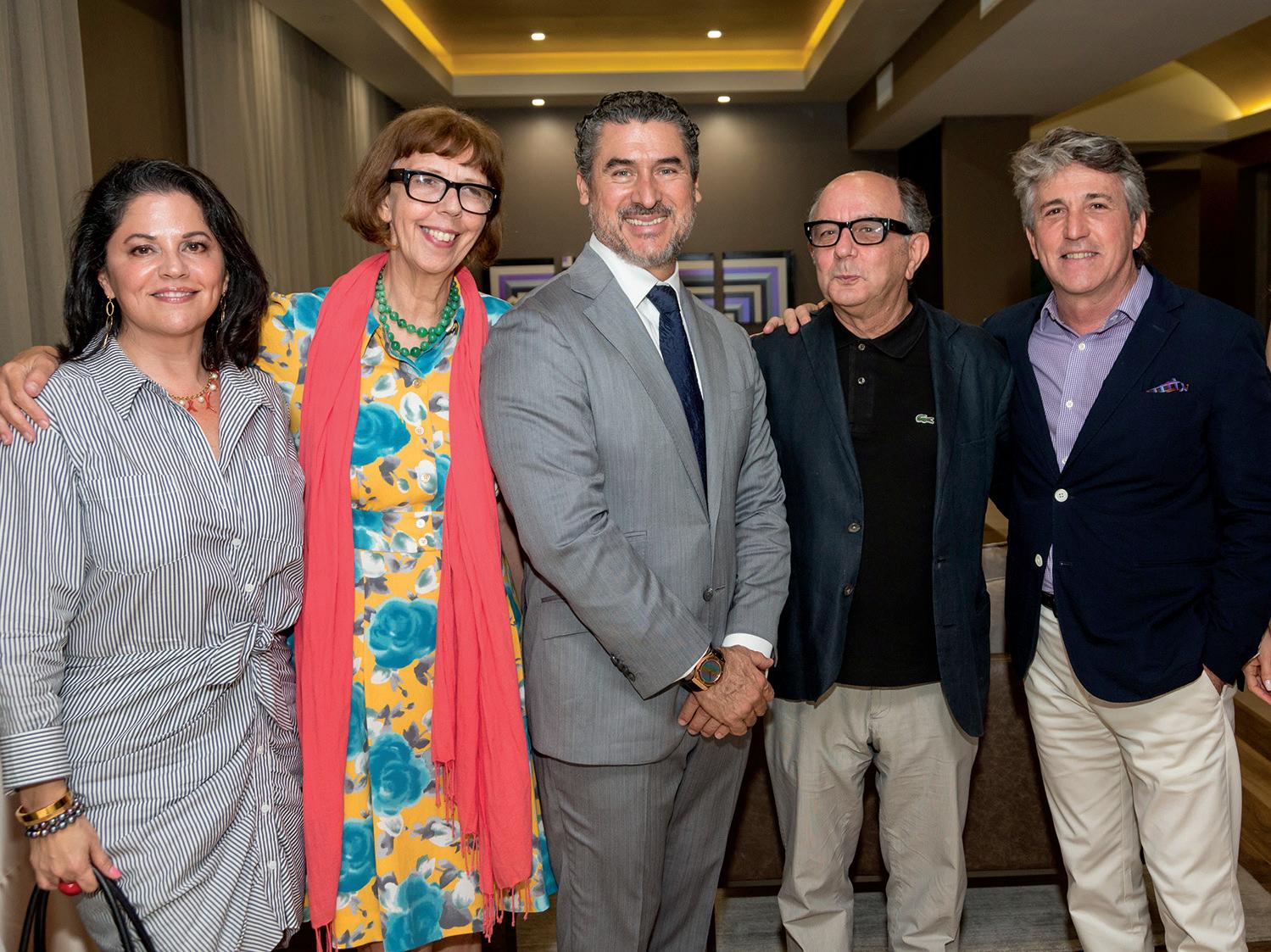
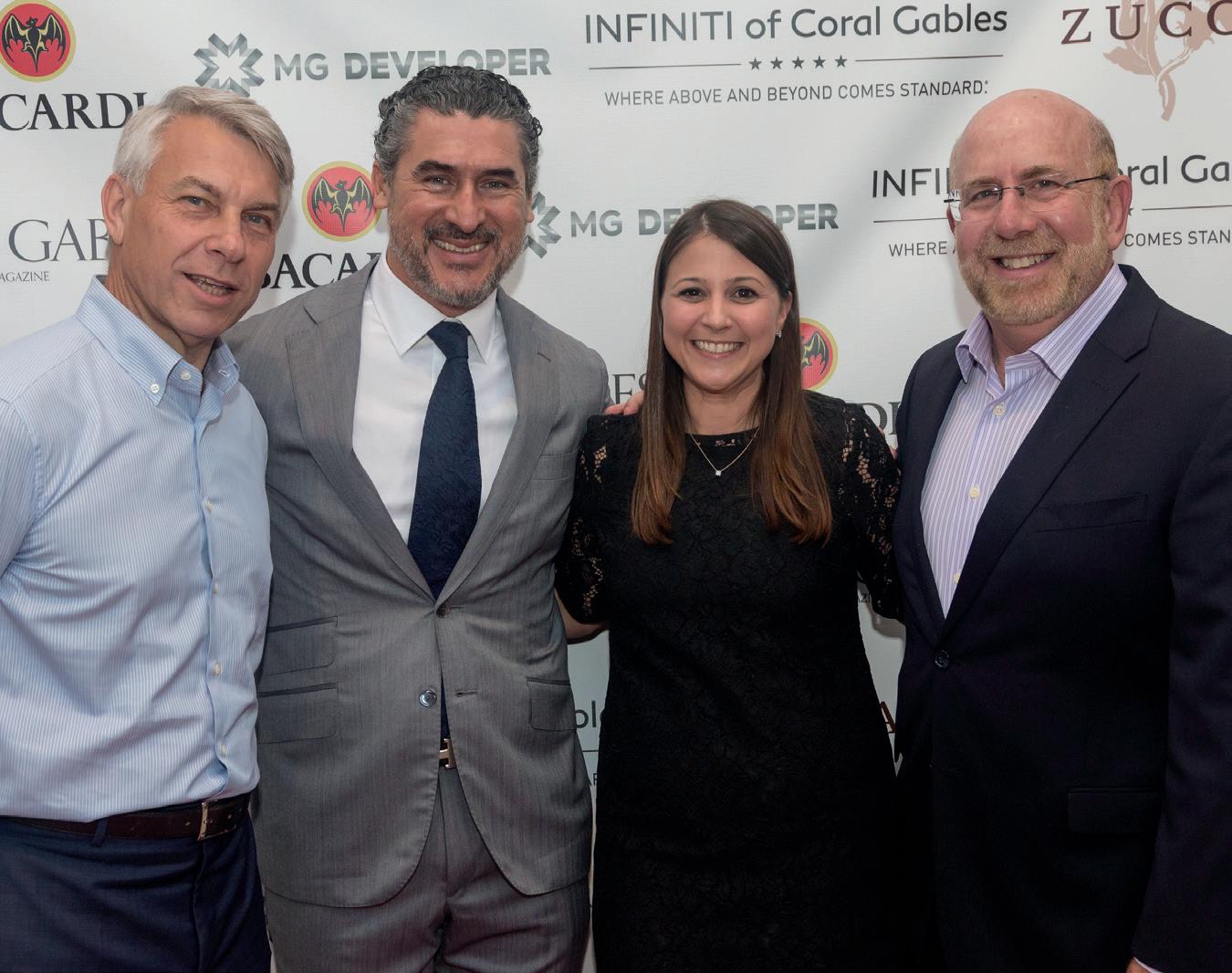
1. Coco Torre, Rosario Bejar, Alirio Torrealba, Roberto Bejar, Venny Torre
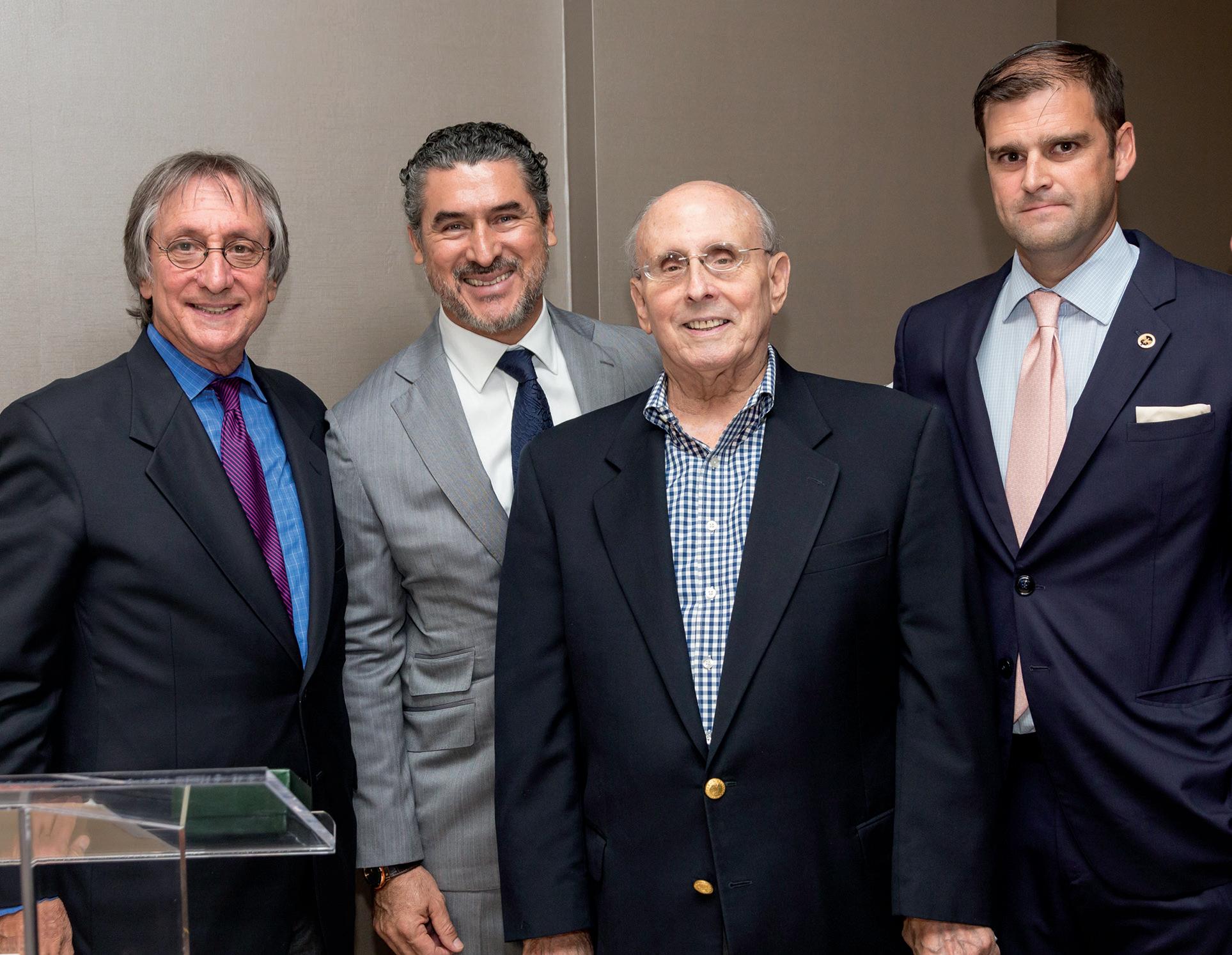
2. Walter Defortuna, Alirio Torrealba, Mary Snow, Israel Kreps
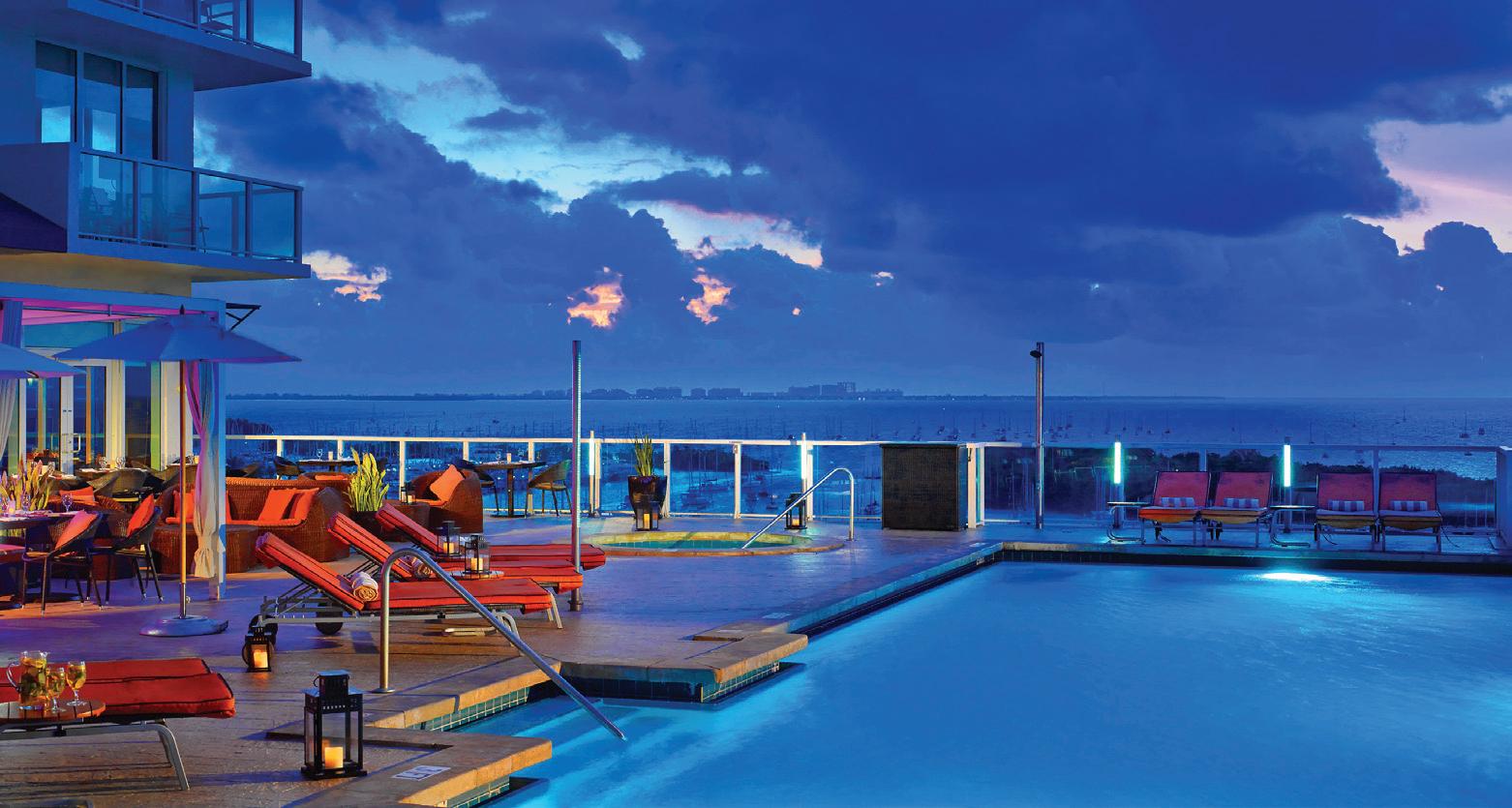
3. Michael Moore and Leslie Lott
4. Juan Bergaz Pessino with mother
5. Jorge Martinez and Amy Donner
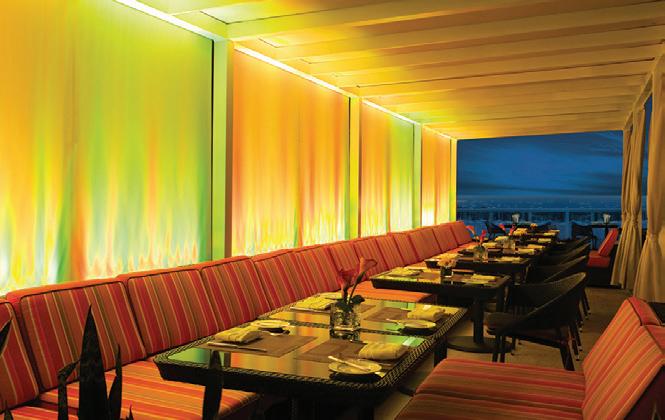
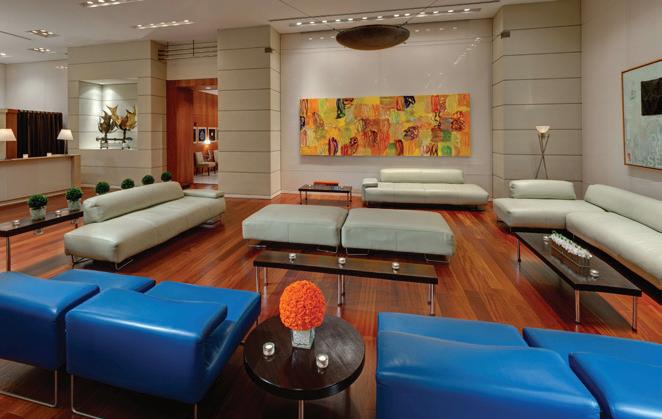
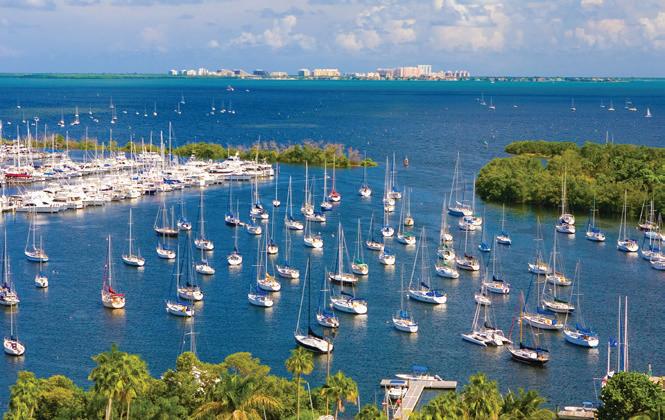
6. Carlos Duarte and Vivianne Medina
7. Richard Roffman, Alirio Torrealba, Mayor Valdez-Fauli, Juan Bergaz Pessino
8. Jeannett Slesnick and Don Slesnick
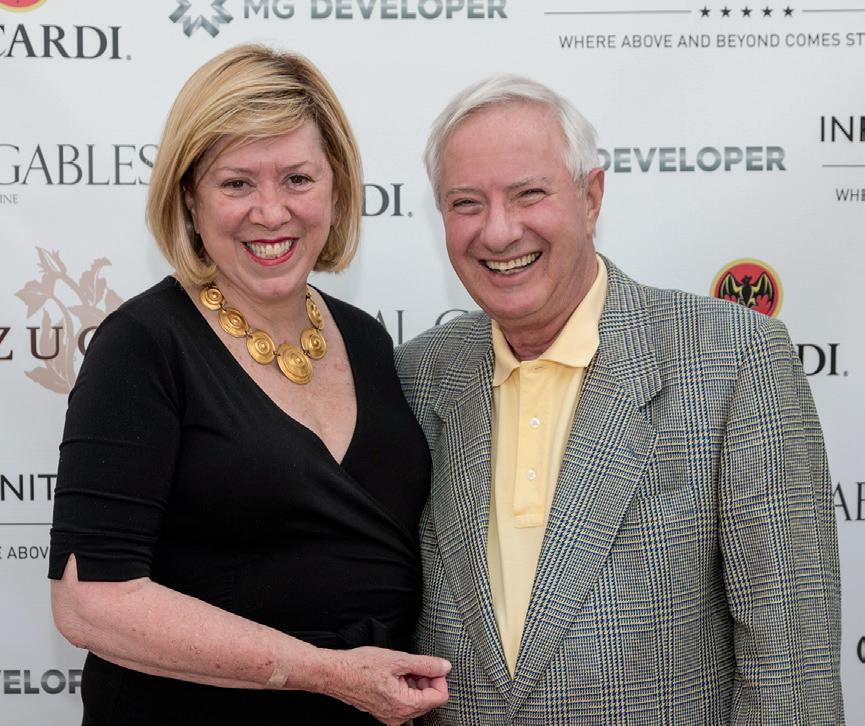
9. Belkys Perez and Francesca Valdés
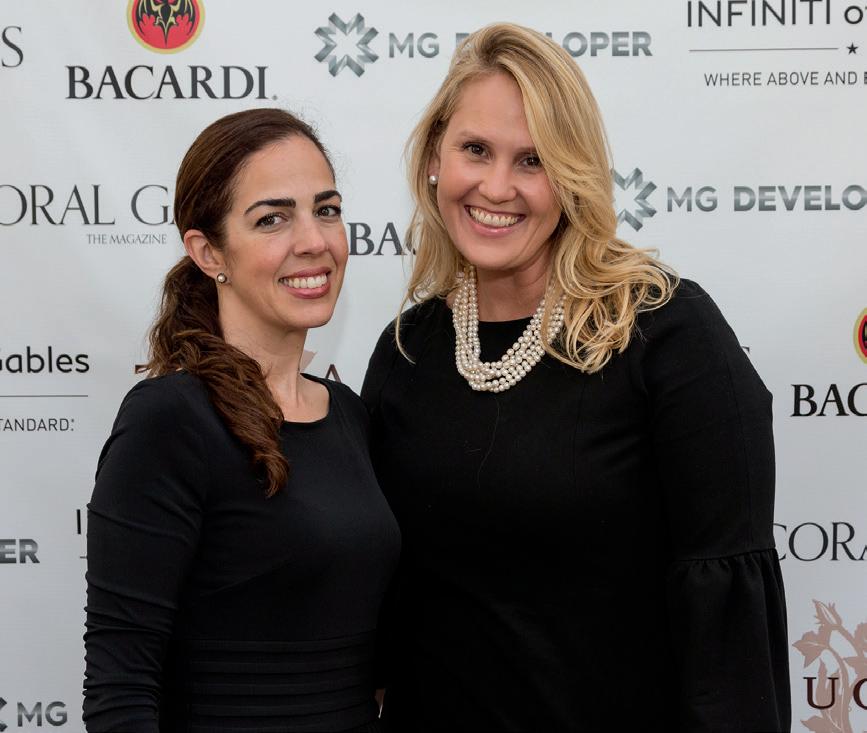
Time Machine
THE COLONNADE
In November of 1926, the magnificent Colonnade building on Miracle Mile was completed by famed architect Phineas Paist. Now the Hotel Colonnade, the building was originally designed as a sales center for Coral Gables,
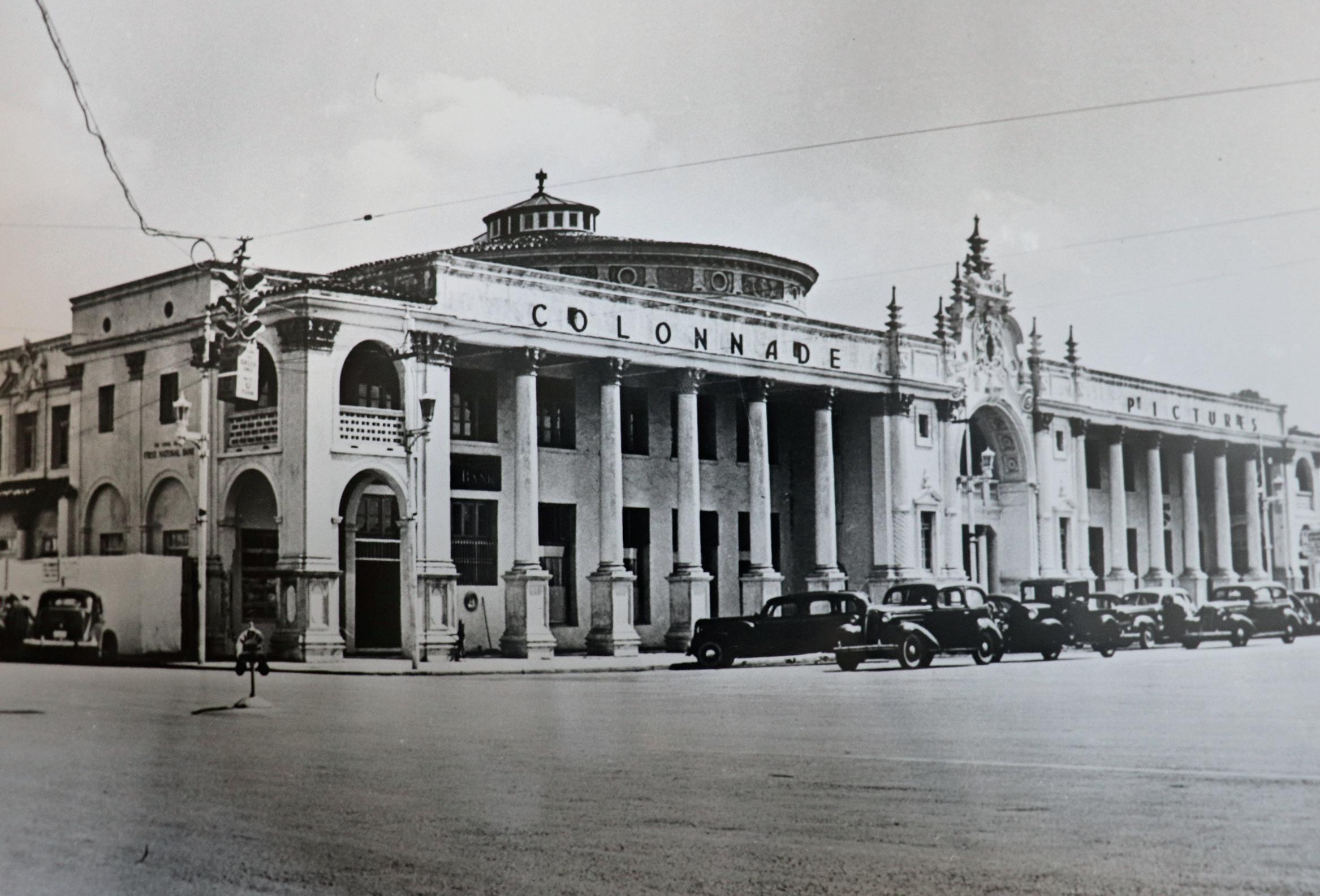
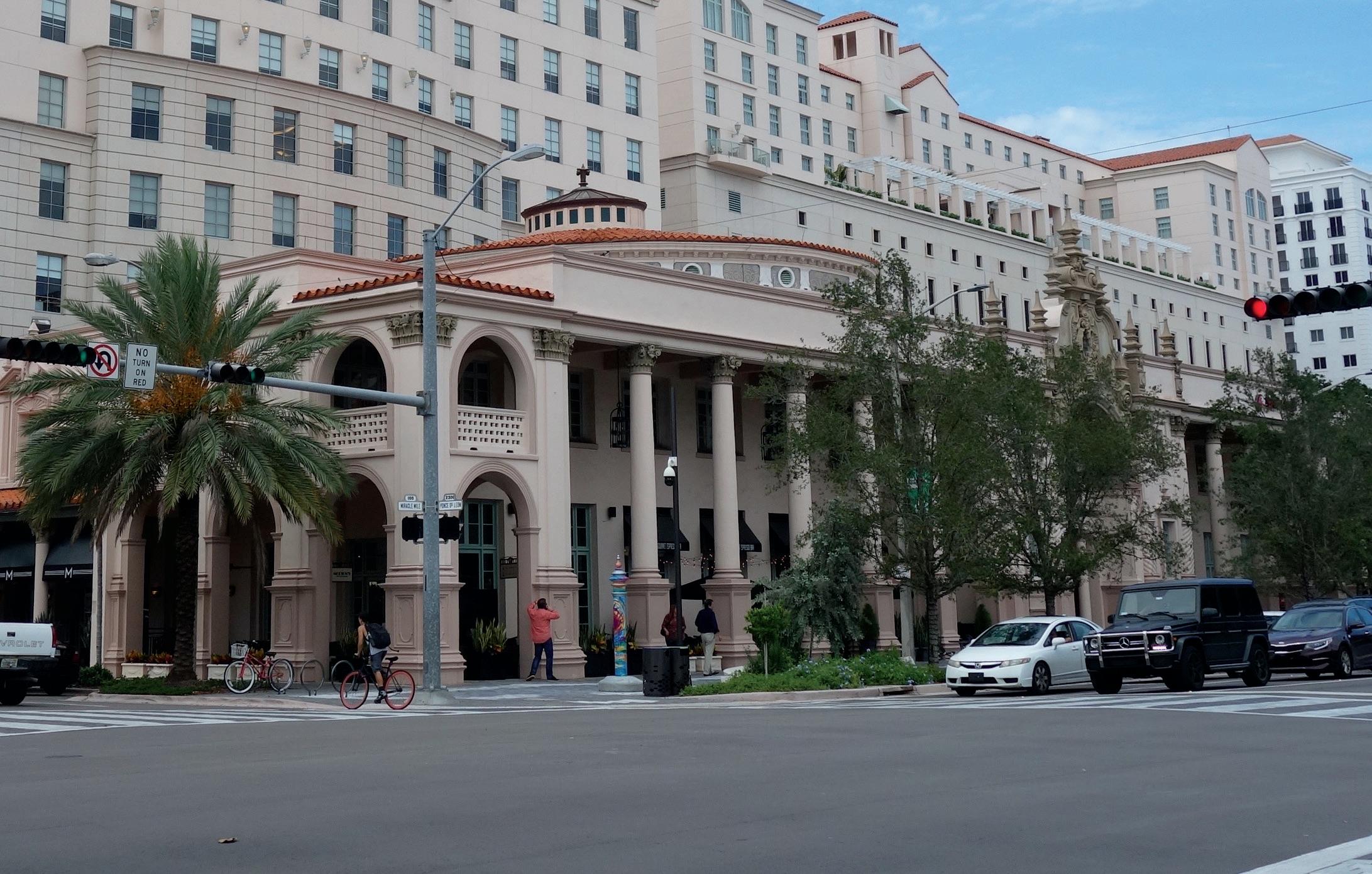
and became the center of the shopping district. Since then it has housed a pilot training facility, a movie studio and a World War II parachute factory. This image comes from the early 1940s.
World War II was underway in Europe
The movie Citizen Kane was filmed
Hemingway published For Whom the Bell Tolls
Franklin Roosevelt was president Campbell’s Tomato Soup cost 25 cents for 3 cans
